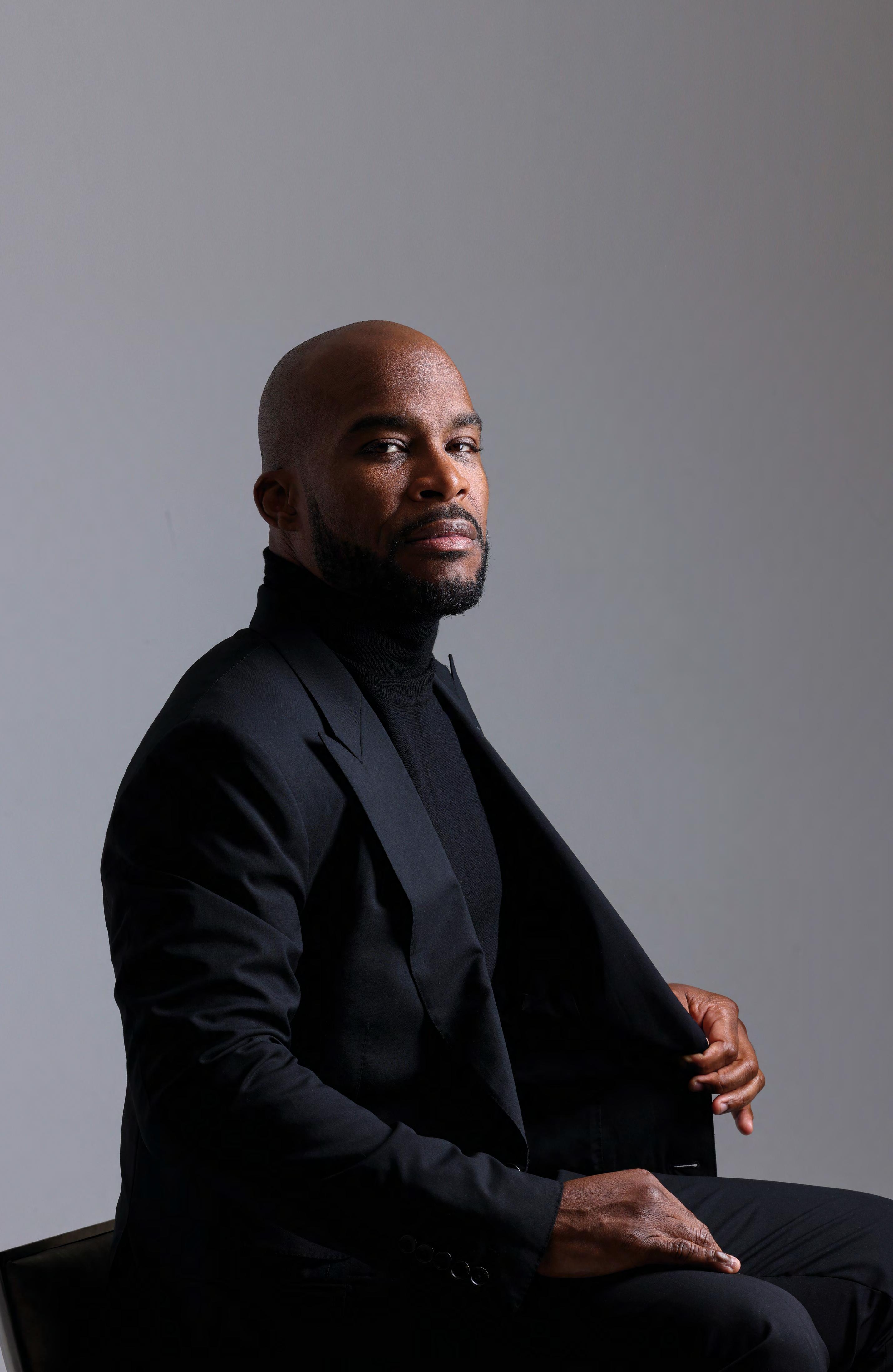



LA

Creative Director: Leona Vernon Editorial Assistant: Lizzie Griffiths
GUEST CONTRIBUTORS
Bayile Adeoti
Dr Denise Maxwell
Emmanuel Asuquo
Karl George MBE
DESIGN
Art Direction: Gloss Agency
Designer: Michael Bot
ADVERTISING
Media Packs are available upon request gavin@blackbusinessmag.com
BRAND & CORPORATE PARTNERSHIPS
Dr Tru Powell tru@blackbusinessmag.com @tru_powell
MANAGEMENT
CEO: Dr Tru Powell tru@blackbusinessmag.com
COO: Justice Williams MBE justice@blackbusinessmag.com
SUBSCRIPTIONS
Email: readers@blackbusinessmag.com
PUBLISHING
Black Business Magazine Ltd Unit 763 JQ Modern 120 Vyse Street Birmingham B18 6NF
info@blackbusinessmag.com
FRONT COVER
Front Cover featuring Dean Forbes
Photography: Lensi Photography
@lensi_photography
Creative Direction: Leona Vernon
Styling: Lionne C Whitfield
@theluxurycouturewardrobe
Makeup Artist: Jessica Williams
@jessicasmakeupchair
Photographer’s Assistant: Divine Favour
Videography: Savannah Pictures
@savannahpictures.tv
This issue of Black Business Magazine is sponsored by Lloyds Bank.


DISCLAIMER:
4 www.blackbusinessmag.com
parties.
June 2024 / The Leadership Edition
Black Business Magazine is fully protected by copyright. No part of this magazine may be reproduced or reprinted without the complete and expressed permission of the publisher. The greatest care has been taken to ensure accuracy. However, the publisher can accept no liability for errors and omissions. We cannot, under no circumstance, be held responsible for any material matter or photographic copy submitted for publication or not within the website or magazine. We cannot be held responsible or liable for any copyright breaches from advertising materials, all photography, or any other material supplied by a third party. The views and opinions expressed within our publications are not necessarily those of the publisher, Black Business Magazine Ltd, sponsors, advertisers or any featured
Issue 04 April -
@blackbusinessmag @blackbusinessmag
EDITORIAL MANAGEMENT Editor in Chief: Justice Williams MBE @justiceamariah EDITORIAL
Guest Contributors
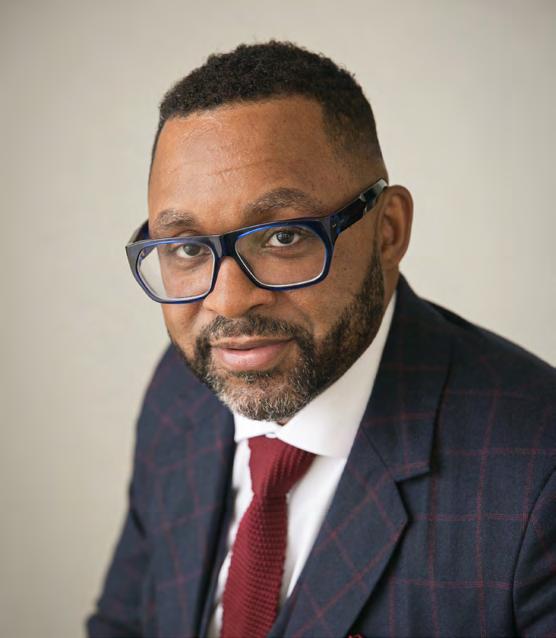
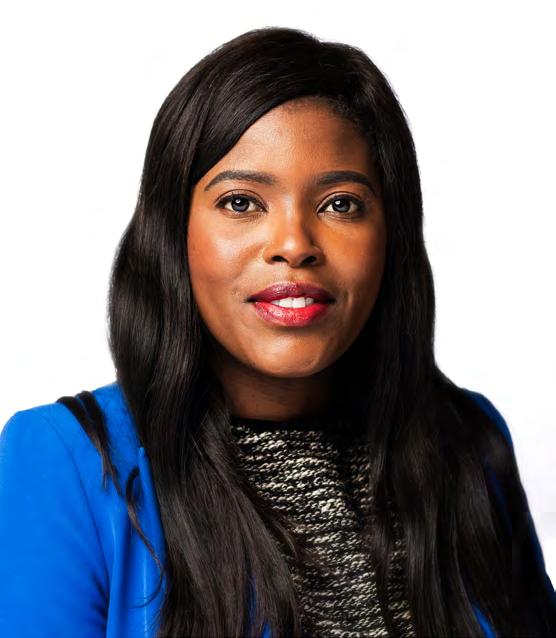
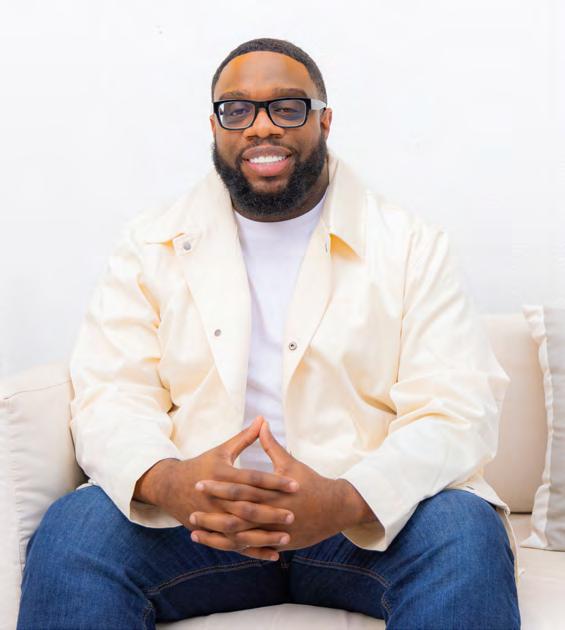

Karl George MBE
Karl George, a visionary in governance, has profoundly impacted global practices with over 30 years of experience. As a visiting professor, holder of an honorary doctorate, and acclaimed author, Karl's expertise extends across accountancy, business, and strategic development.
As the Partner and head of Governance at RSM, he introduced initiatives like The tgf Governance Code, The RACE Equality Code, and the Effective Board Member Programmes, influencing over fifty organisations worldwide. As a chartered accountant and Fellow of the Chartered Governance Institute, Karl's programs have reached participants in eleven countries, showcasing his commitment to fostering inclusive and effective governance.
Bayile Adeoti
Bayile Adeoti is CEO of Dechomai Ltd. At the heart of Dechomai's mission lies the ambition to cultivate a thriving entrepreneurship ecosystem within Ethnic minority communities, thus fostering sustainable growth and prosperity.
Bayile's dedication shines through her passion for nurturing and coaching individuals from Black and ethnic minority backgrounds, guiding them toward becoming influential leaders and change-makers.
Bayile sits on the NSET Programme 1 Board and Scottish Government steering committee for Social Enterprise, where she contributes her expertise and insights. Bayile is
also a Women's Enterprise Scotland Ambassador. Bayile has recently been appointed Entrepreneur in Residence at Glasgow Clyde College.
Emmanuel Asuquo
Emmanuel is a qualified Financial Adviser with over 15 years in the industry and stands as a beacon of financial literacy. Renowned for captivating talks that have reached over 50,000 people nationwide, he has graced major media platforms and served as a financial expert on BBC Radio, Channel 4, Jeremy Vine and ITV, putting him in the homes of millions of viewers across the UK.
As the Founder of the Eman Effect and a partner at Belvedere Wealth Management, he empowers individuals, families, and businesses towards financial independence.
Emmanuel is also the author of the Amazon bestseller, "Get Your Money Right," which demystifies finance and promotes a healthy money mindset. As an ambassador for the NSPCC, Prince's Trust, and MyBnk, Emmanuel is committed to imparting financial wisdom, breaking the chains of economic hardship through financial education, and becoming the nation's financial adviser.
Dr Denise Maxwell
Dr Denise Maxwell is a Photographer, Educator, and Mentor at LensiPhotography and has been a full-time photographer for 13 years, covering a range of genres.
Denise has photographed some of the world's most well-known people and events. Her genres include commercials, events, sports, fashion, music, and portraits.
www.blackbusinessmag.com 5

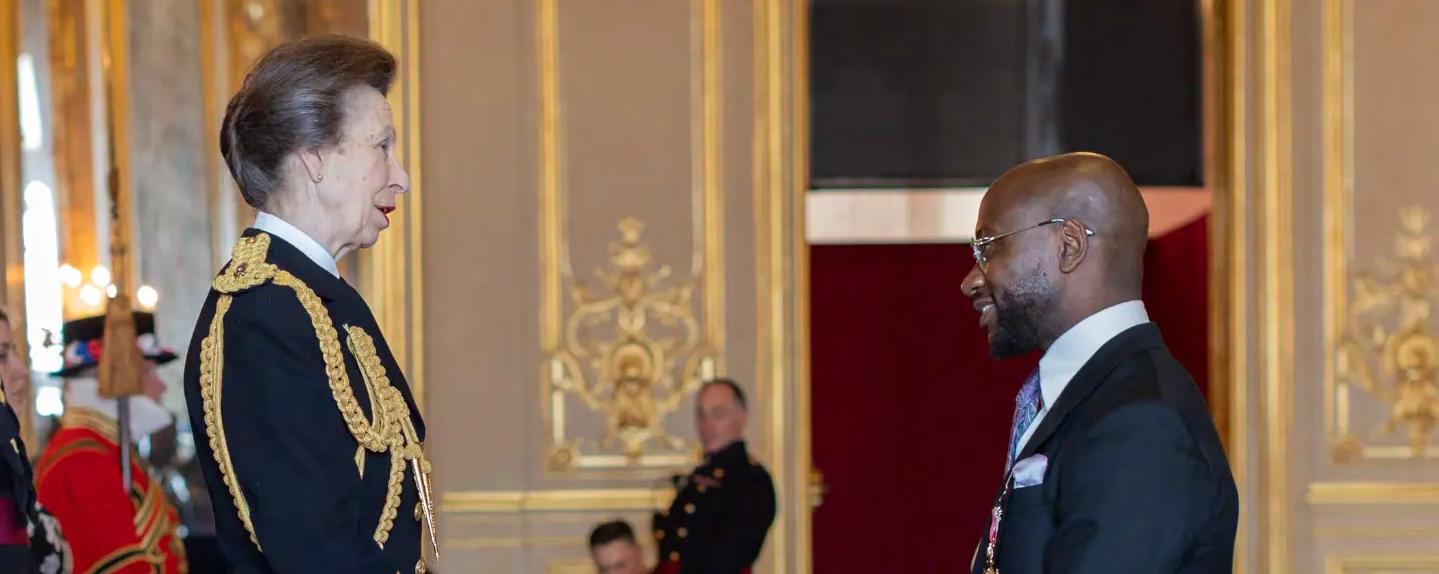
6 www.blackbusinessmag.com Contents Cover Feature 12 Beyond the Billions with Dean Forbes Business and Entrepreneurship 66 Business and Philanthropy with Serial Entrepreneur Shaun Sookoo 22 Flora & Curl - Leading with Purpose to Embrace Natural Haircare 26 Breaking Barriers with Dr Tunde Okewale OBE 32 Meet Empowering Wellness Entrepreneur Lottie Whyte 50 LO-CI is Scaling New heights in Purpose-Driven Footwear 68 From McDonald’s Assistant to Franchisee - The Inspiring Story of Joey Antwi-Kusi 70 Making the Jump from Teacher to High Fashion Sportswear Entrepreneur 78 Revolutionising Braiding Traditions and Education with MCR Braids Founder Lauren Parchment 82 Unveiling Success - The Entrepreneurial Journey of Linda Barker, Co-Founder of Aaron Wallace 86 Behind The WallCrafting Entertainment Excellence 122 Empowering SuccessThe Journey of Dr Yekemi Otaru 138 Imagine Me Stories 140 Pixels with Purpose - Creating Engaging Brand Images in the Digital Era 144 Become the CEO of your Own Life 150 Flushed Away - Meet the Pioneering Woman Behind the World’s First Flushable Wet Wipe 154 The Yes Network - Empowering Young Entrepreneurs in Business in Southend-On-Sea 26 12



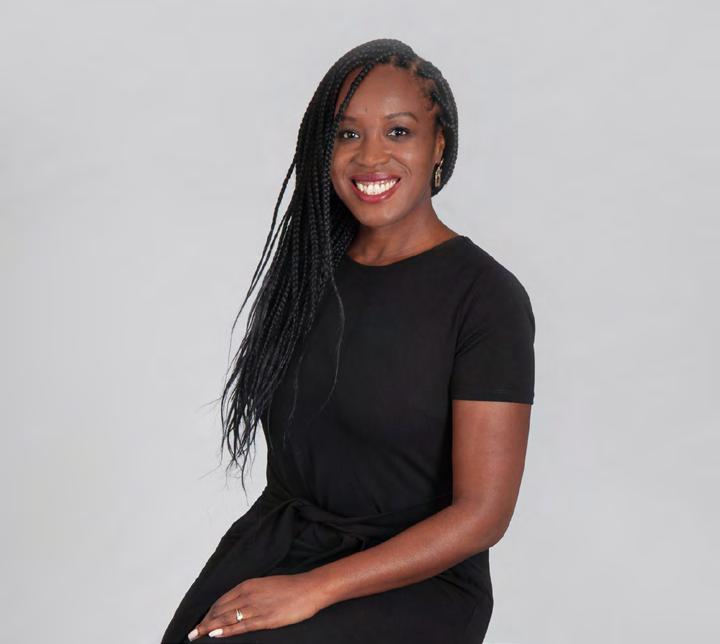
www.blackbusinessmag.com 7
36 54 114 32 96 A Conversation with Annisha Taylor - Redefining Diversity and Inclusion in the Workplace 42 Navigating the journey to senior leadership for Black Women with Liseli Sumbwanyambe 46 Lessons in Leadership - From Lloyds Bank’s Elsie Akinsanya 54 The Brave Leader with David McQueen 92 Abi Laditan - The Driving Force Behind GoDaddy’s Marketing 100 Amplifying Voices - A Spotlight on Annika Allen’s Leadership in Diversity, Equity, and Inclusion 104 A Catalyst for Change in the Media Industry with Stacey Olika 108 In Conversation with ‘The Governor’ Karl George MBE 118 Leadership SpotlightLorlett Hudson 146 Empowering Black ApprenticesA Conversation with the Founders of the Black Apprentice Network 156 Empowering Futures - The Impact of Sponsoring and Mentoring in Business 120 Spicing Up Traditions - Michelle Truselle’s Journey to Caribbean Culinary Royalty 62 Empowering Futures with Sayce Holmes-Lewis 126 Inspiring Health & Fitness with Just Geen 114 Pioneering Change Through Inclusivity with Georgina Wilson 162 Chapmans of London - For Those Seeking Authenticity in Every Sip 124 Driving Growth and Diversity - An Interview with Natasha Ferguson, Chief Operating Officer of the Taylor Bennett Foundation 74 Reshaping London’s Property Landscape with Kazeem Alli-Balogun 36 The Money Ladder with Franklin Asante 76 Building Trust, One Relationship at a Time with Tobias Alexander Rose 134 Jarvis Pensions - Empowering the Self-Employed for Retirement 136 Empowering Financial Wellness - The Story of One Stop Save with Emmanuel’s Asuquo 130 From Limitations to Possibilities - One Man’s Mission to Provide Fitness Training for All
Property Money and Finance Lifestyle Social Impact The Leadership Lens
Editor’s Note
Welcome to our Leadership Edition, a deep dive into what it truly means to lead in today’s complex world.
It feels like a conversation we’ve been inching towards, one cup of coffee at a time, and finally, we’re here, ready to dive deep. Our cover story is Dean Forbes, CEO of Forterro, whose journey embodies the pinnacle of leadership. His story is inspirational but also a call to action: to lead, inspire, and understand that leadership is a journey.
My personal one has been a dance of strength, grace, and, sometimes, sheer willpower. As a Black woman, mother, entrepreneur, and someone who has navigated the multifaceted challenges of leadership, I've come to recognise that before we can effectively lead others, we must first master the art of leading ourselves. I’ve penned an article in this issue on how you can become the CEO of your own life.
This edition features insightful contributions from Black leaders across various sectors, each sharing their unique perspectives on leadership. From the challenges of navigating corporate landscapes to the joys and trials of entrepreneurial ventures, these stories highlight the diversity of leadership experiences within our community. This is about more than just success stories; it’s about the real, raw journey of leadership - the kind that lights a path for the next generation, showing them that it’s possible and you belong here.
We’re also bringing to light Black women's incredible, multifaceted experiences in leadership. If you’ve felt, lived, or wondered about it, we’re talking about it. It’s about the intersectionality that often goes unnoticed
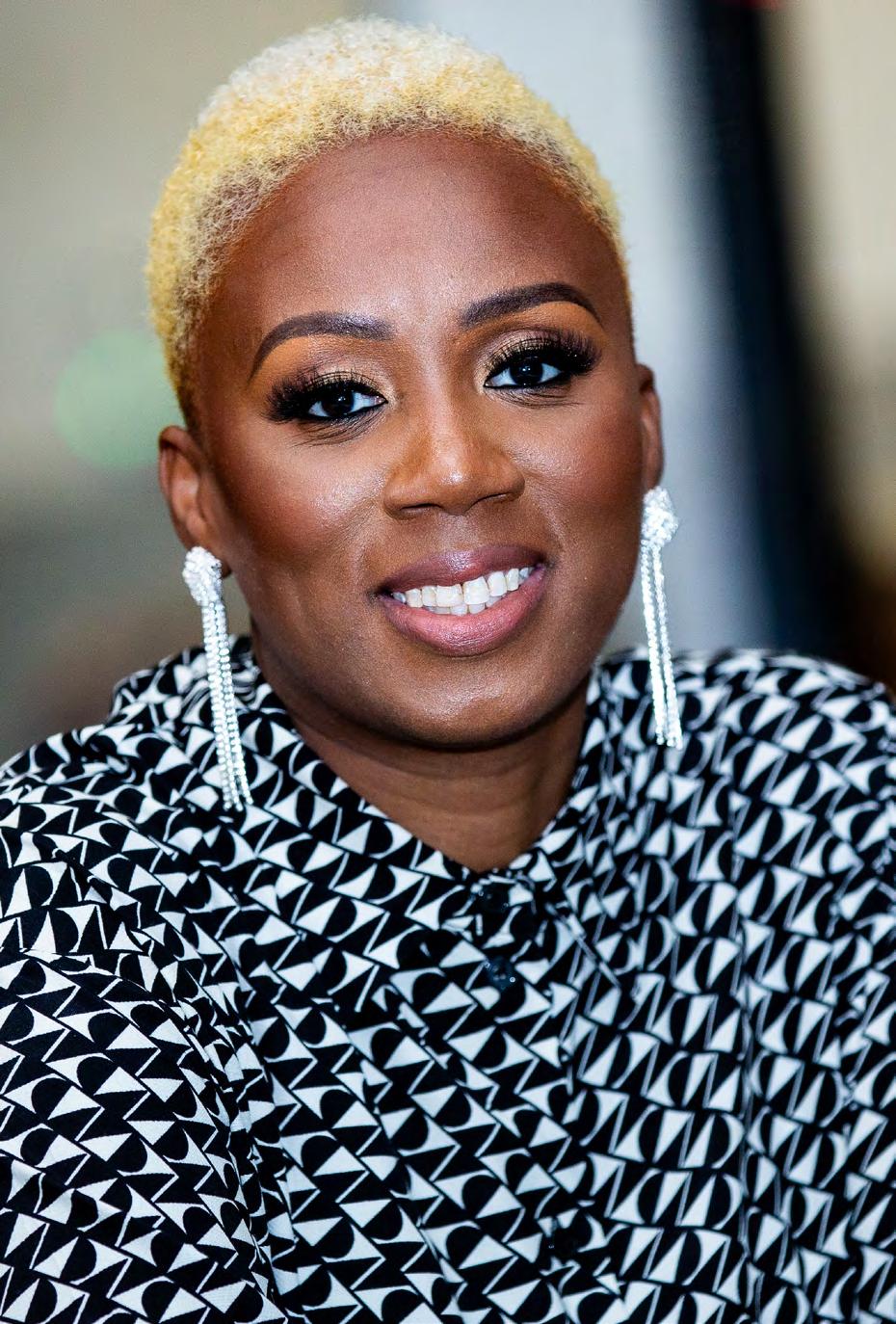
but shapes so much of our journey. It’s about being seen, heard, and understood in spaces where we’ve had to make our own seats at the table. This edition is like sitting down with a good friend—real talk, no pretence.
From the leaders just stepping into their power to those guiding the way for years, we’re showcasing the breadth and depth of what Black leadership looks like. It’s vibrant, it’s impactful, and it’s absolutely necessary.
So, as you turn these pages, I hope you find pieces of your story reflected back. I hope it sparks something in you - a dream, a goal, an idea. As you engage with the content of this edition, I hope you find valuable lessons, relatable stories, and the motivation to take the helm of your own leadership journey with renewed purpose and confidence.

www.blackbusinessmag.com 8
Our event production services provide an end to end solution for our clients.


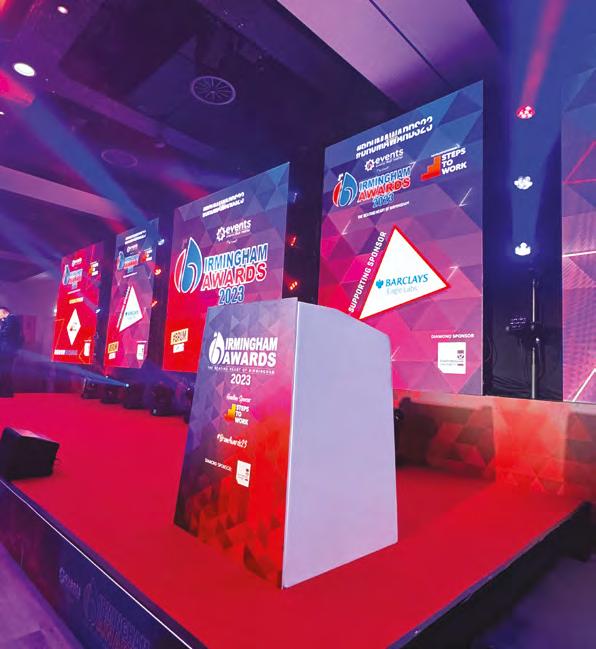

www.blackbusinessmag.com 9 Purple Square Audio Visual Ltd 0345 548 8850 Solihull | West Midlands www.p2av.co.uk | hello@p2av.co.uk Technical and Audio Visual Solutions. Live Hybrid Virtual Specialists in: elevate your events

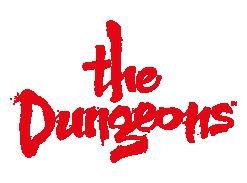












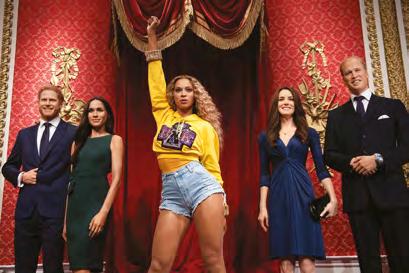


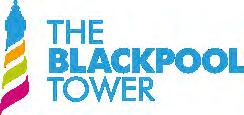







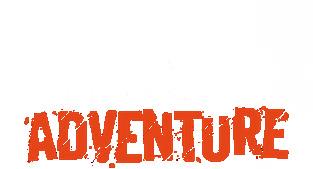





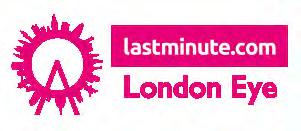




Merlin Entertainments strives to create an inclusive and diverse workplace where people can be themselves, have the same opportunities and thrive together. Because at Merlin, everyone matters!
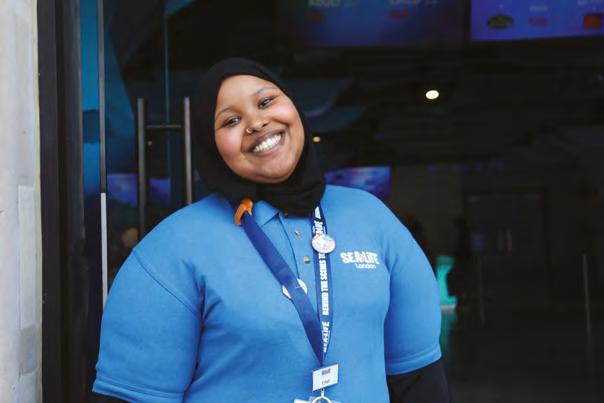

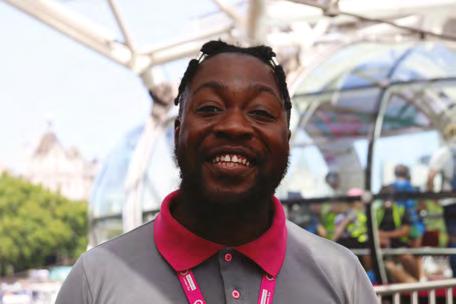






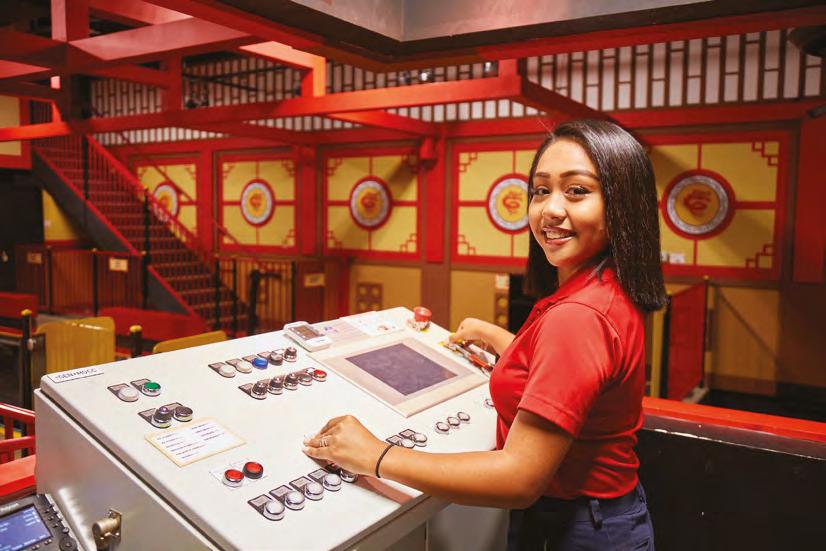




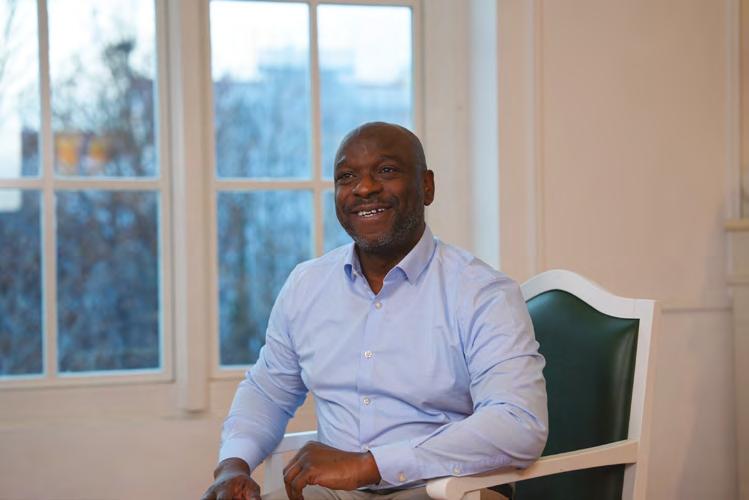
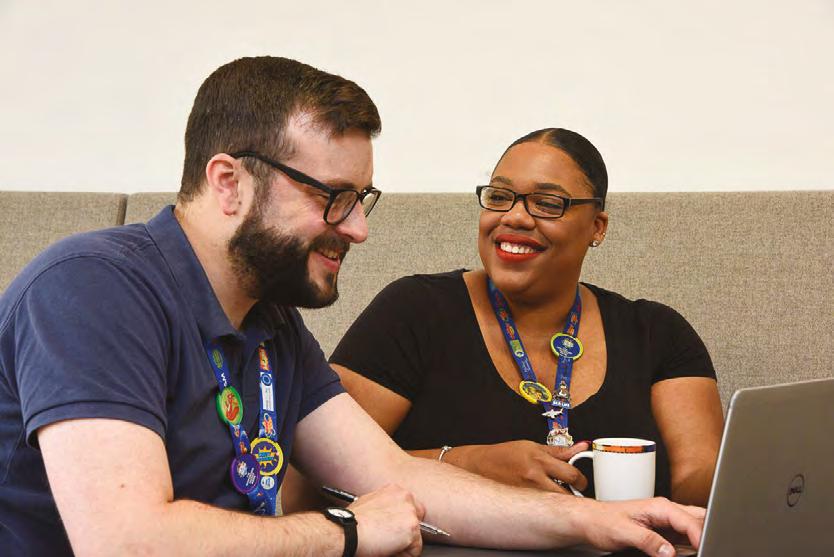

LEGO©, the LEGO logo, , the Brick configuration, the Minifigure and LEGOLAND are trademarks of the LEGO® Group © 2021 The LEGO Group. ©2021 DreamWorks Animation LLC.
Castle Fantastic Escapism
Fairytale
Fun Scary Fun
Discoveries Famous Fun A
Lifetime
www. MerlinCareers.com
Ultimate
OtherworldyAdventure Adrenaline Adventures Interactive
360°viewsofLondon WildAdventure Ultimate LEGO® Escape UltimateLEGO®
Panoramic Views Amazing
Career of a
Letter from the CEO
We are back again for edition four of the magazine, and boy, is this a good one!
If you are new to the magazine, welcome. I hope you enjoy your read. If you are a returning reader, we hope you enjoy this edition. By way of reminder, our mission at Black Business Magazine has been clear from inception: to celebrate, empower, champion and uplift the voices and achievements of Black entrepreneurs and professionals. We are committed to providing a platform where your stories are heard, your successes are celebrated, and your contributions are recognised.
I need first to thank our readers. It goes without saying you are the beating heart of this magazine, and your engagement and feedback will only fuel our drive to deliver content that resonates with your needs and aspirations.
I would like to thank Lloyds Bank for their partnership on this journey. You have rode this wave with us from the beginning, and working with you is great. Your commitment represents a significant stride in supporting Black businesses across the UK by celebrating the achievements of Black entrepreneurs and professionals in the hope that others will be inspired to follow in their footsteps.
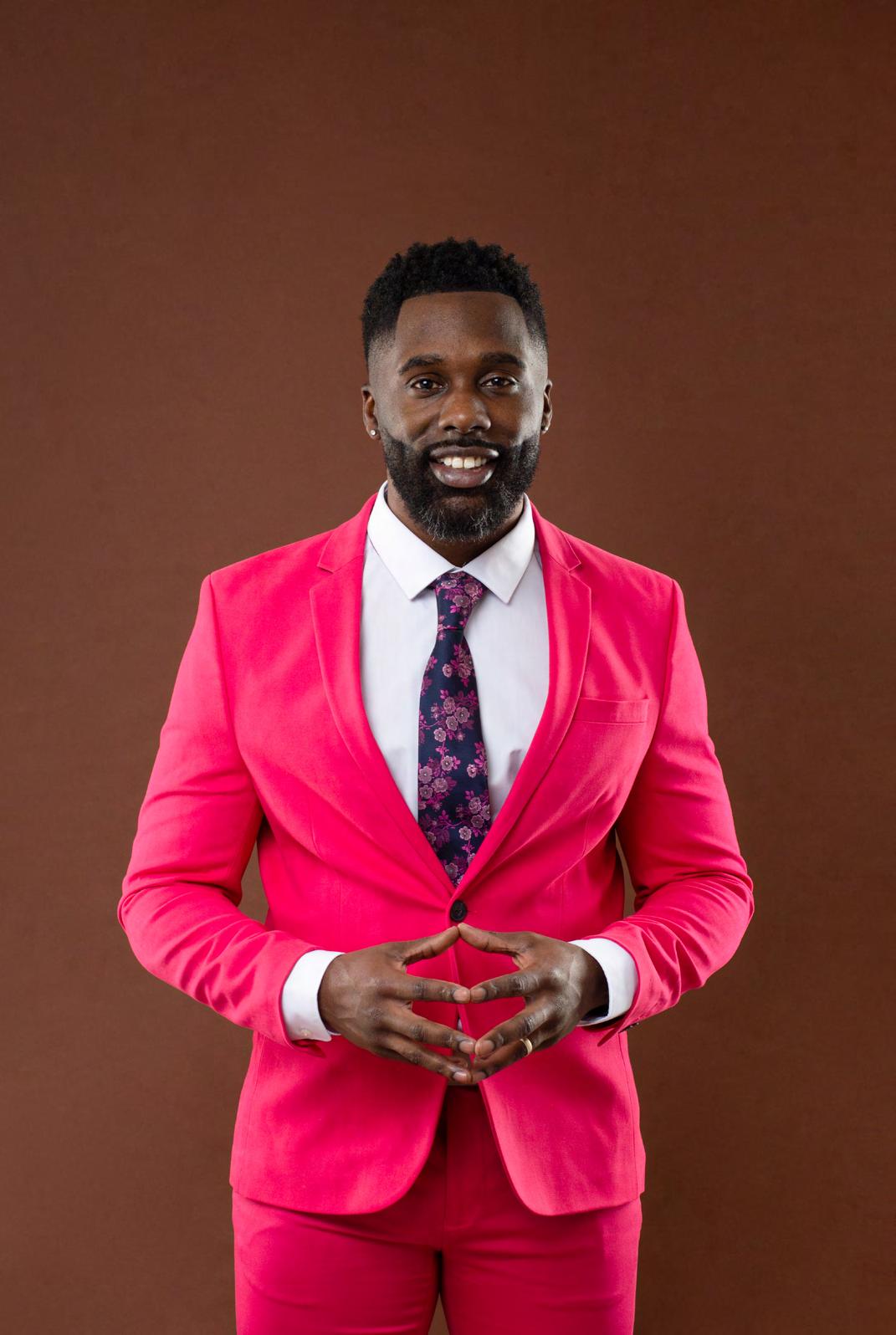
To the incredible entrepreneurs and professionals who are featured in this edition. Thank you for your stories. Thank you for the incredible work you do. I am confident your stories will inspire and empower our magazine readers.
To our team, all I can say is we did it again. The journey is never an easy one but always an enjoyable one. Each time we get better, learning from the last. Thank you for your commitment to the cause. To our team of writers, editors, photographers, designers, stylists, makeup artists, researchers and more, we thank you for working with us on this initiative. I know we are going to achieve something special together.
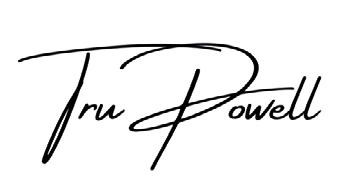
www.blackbusinessmag.com 11
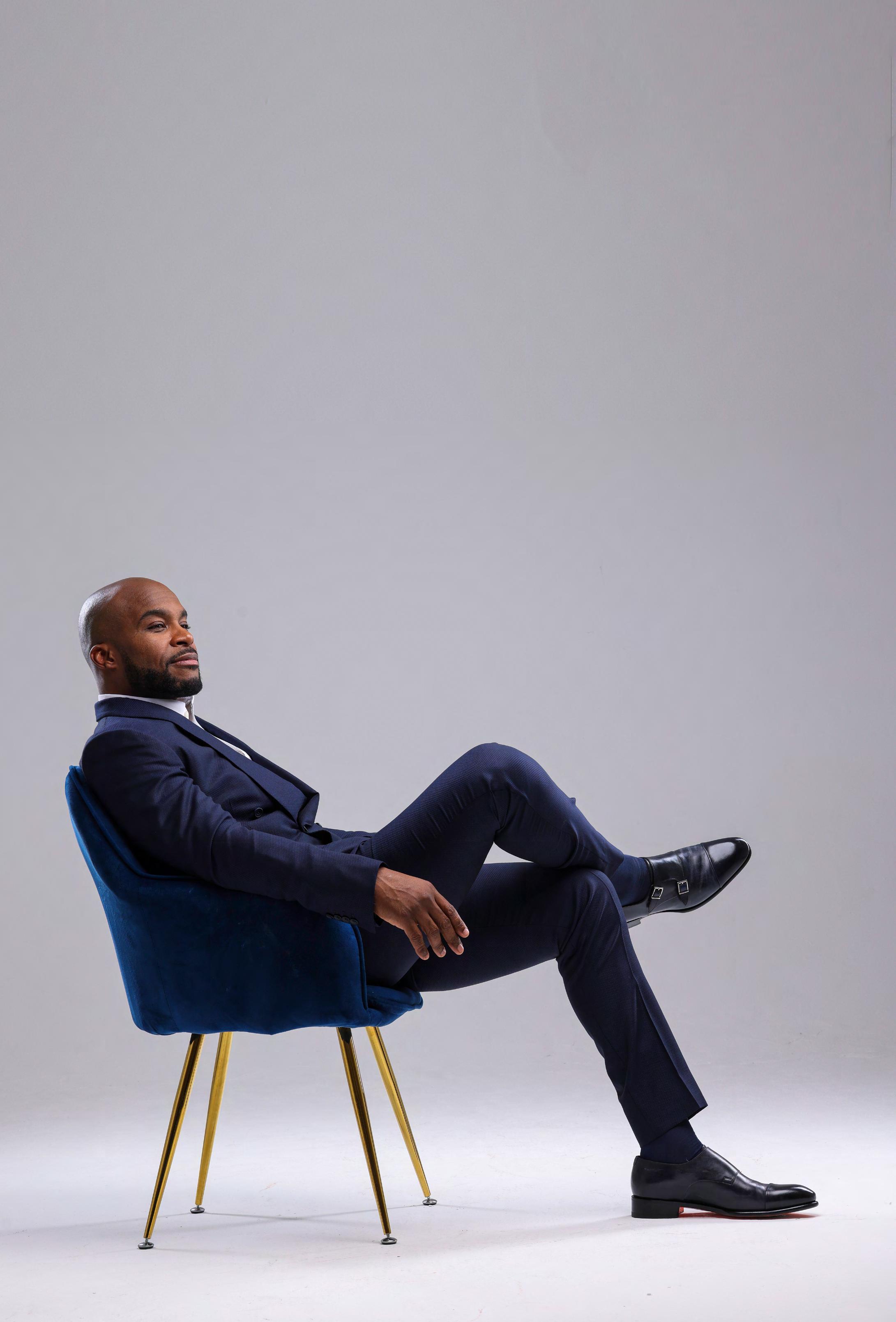
Beyond the Billions with Dean Forbes
Interview by Justice Williams
12 www.blackbusinessmag.com
PHOTOS BY @LENSI_PHOTOGRAPHY
Dean Forbes' journey encapsulates the quintessence of resilience and transformative leadership. From navigating personal adversities in his youth, including periods of homelessness and caring for his disabled mother, to spearheading Forterro's ascent in the tech industry by orchestrating a billion euro exit under his leadership as CEO.
Embarking on a career in sales from the humble beginnings of a call centre over 20 years ago, today, as CEO of Forterro, his leadership drives the company's success.
Dean embodies a commitment to leveraging success for social good. Through The Forbes Family Group (FFG), his foundation, Dean actively champions social mobility and philanthropy, extending opportunities to those from underserved communities.
Our decision to feature Dean Forbes on the front cover of this leadership edition is rooted in his remarkable synthesis of professional achievement and profound social impact.
His narrative illustrates how visionary leadership, grounded in empathy and driven by a commitment to equity, can effect meaningful change.
As we explore the insights and experiences that shape Dean's leadership, innovation, and community engagement approach, we invite our readers to explore the principles and values underpinning his success.
Dean Forbes' story is about overcoming adversity and harnessing it as a catalyst for growth and impact. This is a leader's journey who exemplifies integrity, innovation, and the transformative power of purposedriven leadership in the modern business landscape.
PERSONAL GROWTH
Your journey to where you are today has been an inspiring one. Leadership involves continual learning and personal development. Is there a moment or decision in your career that significantly contributed to your leadership growth?
When I became a leader for the first time, I misunderstood leadership to be about giving people instructions and being very dictatorial. Then, chasing people up continuously to ensure they did the things you'd ask them to do. Of course, that situation went badly, like it went, really badly. I didn't get the team on board at all. It led to my senior leaders training me in leadership, coaching, and understanding team personalities and profiles.
That taught me how to lead people effectively. You need to be able to adjust your style because people like to be led by and react to different leadership styles.
Once I got my head around the fact, that people are different, and I'd be led differently, and I needed to adjust my leadership style, that was a transformative moment for me.
LEADERSHIP PHILOSOPHY
What’s your core leadership philosophy, and how has it evolved over your career, especially in the context of turning around companies?
What I've learned now, and what I find really effective, is to try to connect the ambitions of the company and the desires of the people within it. I haven't yet encountered a business that can achieve its objectives and aspirations without a highly motivated, energised and super-focused team.
The most effective way I've found to create that is to connect what the company aims to do with the ambitions of the people - which is hard because everybody's ambitions are different. Some people are trying to pay off their mortgage. Some people are trying to get promoted. Some are trying to retire. In the case of Forterro, nearly 3,000 individuals, finding that connection and connectivity for a set of individuals can be a challenge. But once I've been able to do that, and in my previous roles when I've been able to do that, I've been able to move the organisation to a completely different place.
www.blackbusinessmag.com 13
STRATEGIC SHIFTS AT FORTERRO
Upon joining Forterro as CEO, what key strategic shift did you prioritise to address initial challenges?
Forterro was doing really well; in my career, I've been CEO four times, and those companies had deep and different challenges in the previous three times. So it's the first time I've led in what I call a positive trajectory.
However, the main strategic shift was that historically Forterro consisted of eight different companies in a group structure. Since I joined, we acquired another eight companies, doubling the organisation's size. Instead of being a federation of multiple companies in one structure, it's now becoming one company with multiple products, and that's quite a big shift, given the company's heritage.
ESSENTIAL LEADERSHIP SKILLS
Leadership demands a diverse set of skills and a high level of discipline. Could you elaborate on the key skills you believe are essential for effective leadership and how discipline plays a role in cultivating and applying these skills, especially in steering a company through transformation and growth?
Communication. Communication, for me, is number one because the ability to communicate and articulate what you need to happen is fundamental, in our case, to 3,000 people. If you have a great strategy and a brilliant plan but cannot articulate that, then you start to hamstring the plan's ability to be successful.
Secondly, discipline is key when leading, especially since things often don't go as planned. There are moments when everything seems to be going wrong, and it's in these times that maintaining discipline is crucial. I've faced situations where I had to persuade the organisation to stick with our existing plan and strategy, believing we
would eventually overcome the challenges. Convincing others during such periods is tough, as doubt creeps in when results aren't immediately visible.
Moreover, you're often met with questions about the plan's viability. However, it's equally important to remain detached and objective, recognising when a change of course is necessary.
Balancing the discipline to persevere with the belief in your strategy while being open to adapting and making necessary changes is a delicate equilibrium. This dual aspect of discipline is to persist when it's right and to be flexible enough to change when needed. This is essential for navigating through tough times.
CULTURE TRANSFORMATION
Can you describe how you've approached transforming the culture within Forterro to foster a work environment that supports the team in performing to its best?
One of the first things I did was heavily communicate to the organisation that our number one stakeholder is our employees. Different companies think about their stakeholders differently; some are very invested in shareholder focus, and some are customer-focused. The pivotal moment when I recognised that the most crucial individual to please was the employee marked a significant shift in our company culture.
This realisation fostered an environment where employees felt valued and understood that their voices mattered, encouraging open communication. This shift enhanced our internal dynamics and allowed us to convey this sense of care and attention to our customers. It has been a transformative journey to instil in our employees the understanding that their wellbeing is a priority. We've cultivated a more engaged and effective workforce by emphasising that their motivation and positive energy are indispensable for
14 www.blackbusinessmag.com
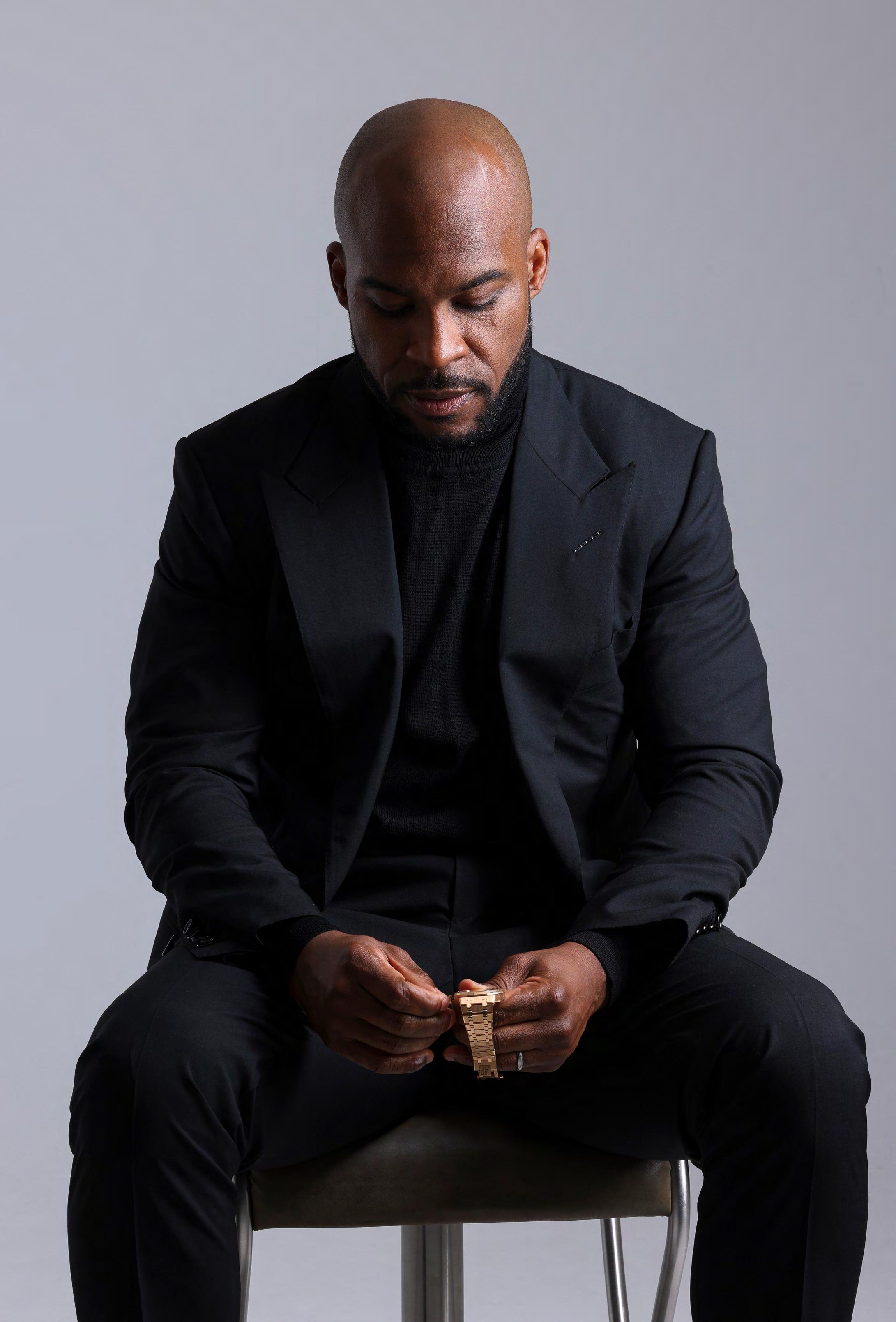
www.blackbusinessmag.com 15
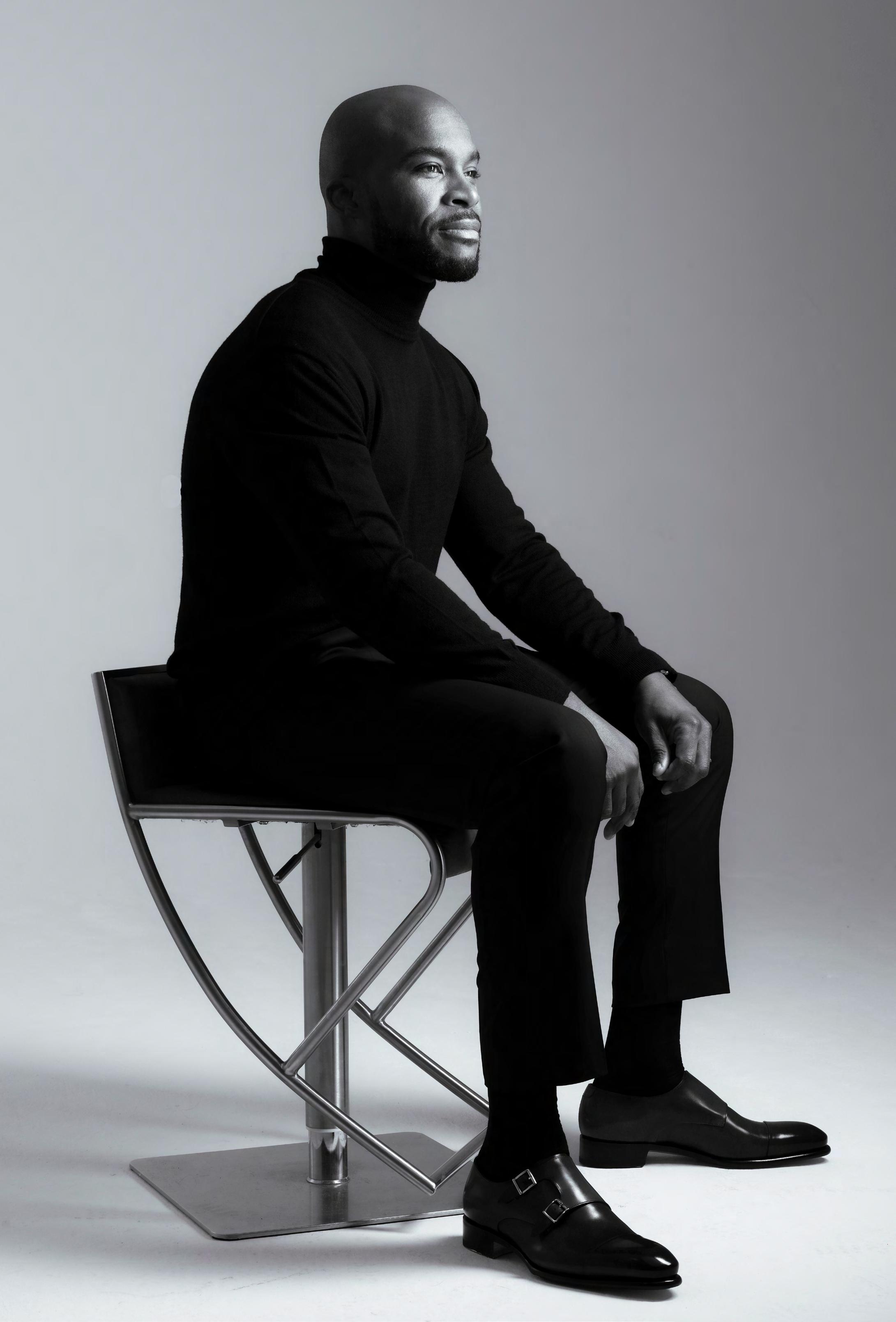
16 www.blackbusinessmag.com
meeting our client's needs. This process has also involved reassuring other stakeholders that prioritising employee satisfaction is beneficial to them and not detrimental to the company's success.
LEADING THROUGH UNCERTAINTY
Reflecting on recent global challenges, what has been your approach to leadership through periods of uncertainty or crisis?
In challenging times, especially with recent economic difficulties, it's crucial for a leader to step into what I term the "front-of-room leadership" role.
This means being the guiding voice that reassures and informs the organisation during periods of uncertainty. Employees, amid market fluctuations and customer feedback, look to leadership for clarity on the current situation and guidance on perceiving and reacting to these challenges.
Whether through virtual meetings, written communications, or standing physically in front of a room, a leader's role is to set the tone for the organisation, providing stability and confidence.
I often compare this to the role of an aircraft pilot navigating through turbulence. Passengers rely on the pilot to inform them about upcoming challenges, such as entering a rough patch of clouds, and to reassure them that the situation will improve despite a brief period of discomfort.
Hearing the pilot's calm and confident announcement to fasten seat belts because the turbulence will last for a specified time offers passengers a sense of security. In contrast, the absence of communication and witnessing anxious flight attendants can lead to panic and fear. This underlines the importance of visible, proactive leadership in guiding an organisation through difficult times, offering reassurance and a clear path forward.
INVESTMENTS
What key factors do you consider before investing in businesses or entrepreneurs?
I prioritise two key factors, the first being familiarity with the sector or category. My primary criterion for investment is whether the business operates within a space or category I understand deeply. I avoid speculative investments, especially significant ones, in unfamiliar industries.
This approach allows me to leverage my knowledge, instincts, and network to assess whether a venture is performing well from a distance. It's crucial for me to have a comprehensive understanding of the sector before committing any substantial financial resources.
The second is the quality of the individuals involved. Often, this factor is even more critical than the first. The reason is simple: talented and ethical individuals can turn mediocre ideas into successes, whereas wrong people can ruin an excellent business proposition. The character, vision, and capability of the people behind a business are paramount in my decision-making process.
Both the nature of the business and the quality of the individuals involved play pivotal roles in my investment choices, with a slight edge given to the latter due to people's significant impact on a venture's potential success or failure.
IMPACT
What is your vision for social impact through the Forbes Family Group, and how do you choose where to focus your efforts?
The Forbes Family Group (FFG) journey has evolved significantly from its inception. Initially, our ambition was to democratise access to the financial opportunities and networks I had been fortunate enough to benefit from.
www.blackbusinessmag.com 17
It struck me as inherently unfair that having capital opens more avenues to generate further wealth, particularly when those who lack financial resources are the ones who need these opportunities the most.
However, we encountered challenges with our initial approach and had to rethink our strategy. FFG pivoted towards becoming a platform for social mobility, leveraging the extensive network I've developed throughout my career. I'm in a position where I'm just two phone calls away from most key figures in the tech and financial sectors worldwide.
We asked ourselves, "How can we use this network for the greater good, particularly for those from backgrounds similar to mine?" Our focus has shifted to creating platforms and opportunities for social advancement through this network. We've explored various avenues, including hosting networking events, producing video discussions and podcasts, and opening up select investment opportunities to a broader audience. It's about social advancement enabled by my network.
Once you reach a certain status or point in your career, you can often feel additional pressure from your community. How do you handle this and the responsibility you may sometimes feel under?
It's such a privilege and pressure. On some days, the weight feels particularly heavy. I receive around 200 messages a week from individuals seeking advice or assistance, which adds to the feeling of pressure when I can't respond to everyone despite often knowing the answers to their queries.
To manage this, I constantly ask myself if I'm doing enough. While I might not meet everyone's expectations, I assess whether my efforts are substantial, and if I can do more, I make an effort to extend my reach. Another approach I take is pondering how to leverage my existing structures to have a
broader impact. Given that there's only one of me and balancing a day job and family life limits my availability, I explore ways to disseminate my influence more widely.
Lastly, I've come to accept that sometimes, the most significant contribution I can make is excelling in my current roles. Being visible and successful in spaces that are aspirational can inspire others, serving as a reminder that achieving similar success is indeed possible.
This perspective helps me balance the desire to assist directly with the understanding that setting a positive example can also be a powerful form of support.
WORK-LIFE BLEND
Achieving a harmonious work-life blend is a significant challenge for many leaders, especially when leading large organisations or during transformative phases. How do you manage your worklife blend, and what have you sacrificed to succeed in your leadership role?
I might not be the best person to discuss achieving a work-life blend, as my relationship with work is one of deep passion and commitment. I genuinely love what I do, to the extent that I sometimes work seven days a week without striking a traditional balance. While striving for a healthy work-life balance is important for physical and mental well-being, my approach deviates from this norm due to my enjoyment of my work.
I know the potential health, relationship, and family repercussions stemming from such intense dedication to work. So, I've implemented a level of discipline to ensure I attend to these aspects of my life with sufficient care and attention. It's a matter of finding a frequency that allows me to maintain these relationships healthily. My family understands that working less would not necessarily contribute to my happiness.
18 www.blackbusinessmag.com
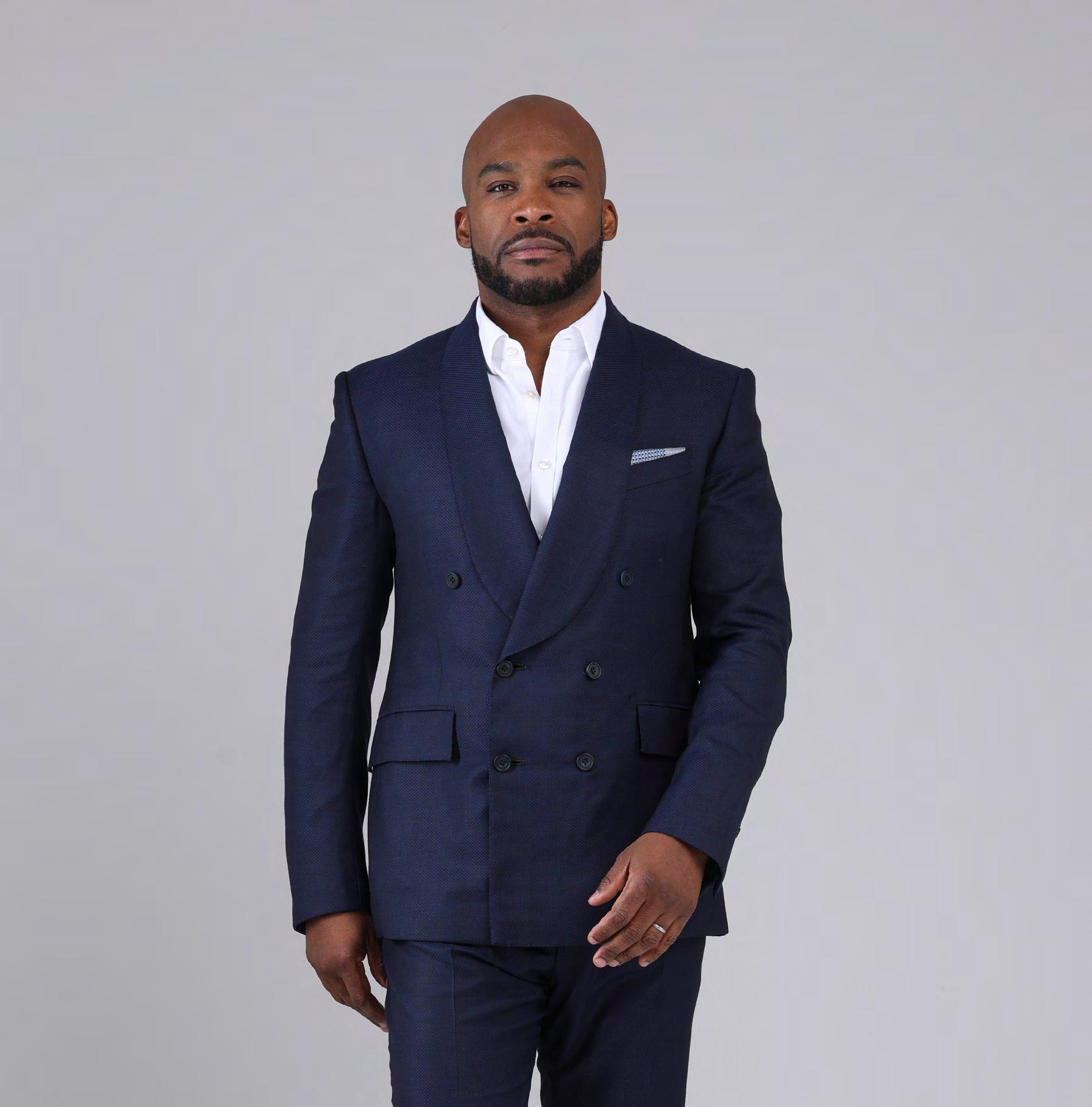
They've come to accept and, to some extent, tolerate this aspect of my personality, recognising that my work is a significant source of fulfilment for me.
HANDLING FAILURE
Failure is often considered integral to leadership's learning and growth process. Could you share when you faced failure or a significant setback in your career? How did you handle it, and what lessons did you learn about leadership, resilience, and moving forward?
During my time at CoreHR, we experienced a pivotal moment when we were in the process of selling the company. We had
initially received three offers, which was a high point for us. As the process progressed to the second stage, where final offers were expected, we were particularly optimistic.
It was December 24th , Christmas Eve, and I had planned a brilliant Christmas, confident of receiving favourable second-stage offers. However, all potential buyers withdrew, leaving us with zero offers.
The challenge of communicating this setback to the employees was devasting, as it significantly impacted morale within the organisation. As the leader steering this process, I felt a profound sense of failure, especially given the timing during the festive season and the end of our financial year.
www.blackbusinessmag.com 19

Two things helped me navigate this tough period. Firstly, this wasn't my first exit process as CEO; I had encountered volatility in a previous sale, which, after the initial shock, reminded me that we had weathered such storms before.
This experience prompted a moment of reflection. Instead of dwelling on the setback, it was crucial to plan our next steps.
Secondly, I've learned the importance of quickly moving past defeats, both from friends who run businesses and those who play professional sports. Lingering on failures
only detracts from the time and energy that could be directed towards future endeavours. A friend from football shared that in one club, the aftermath of a loss extended almost to the next game, affecting their overall success. In contrast, another team would move past the loss by Monday, using the rest of the week to prepare for the next match.
This principle of quickly rebounding from defeat has shifted focus from what cannot be changed to what lies ahead, ensuring we maintain our momentum and readiness for future opportunities.
20 www.blackbusinessmag.com
FUTURE OF FORTERRO
What are the next big goals for Forterro under your leadership? Can you share anything about the strategic projects and initiatives you have planned over the next 4 to 5 years?
Under my leadership, Forterro is targeting three main objectives. Firstly, we're nearing completion of our unification initiative, integrating 16 products into one cohesive organisation. We're about three-quarters through this process, and I'm particularly enthusiastic about its completion. This unification will significantly enhance our momentum by allowing us to operate as a single entity rather than separate parts. This shift is crucial for our overall strategy and efficiency. Secondly, reflecting on our history, Forterro has been active for 14 years and has made 16 acquisitions.
We plan to maintain this aggressive growth strategy, aiming to acquire another 16 companies within the next two years. This ambitious goal represents a substantial increase in pace, momentum, and intensity, which I find incredibly exciting. Combining these efforts with other strategic initiatives, we anticipate elevating Forterro from its 2022 valuation of one billion euros to four billion euros by 2026 or 2027.
Achieving this scale is a prospect I find exciting, not just for the numerical milestone but for the unprecedented territory it represents for me personally and the industry. Fewer than ten privately held software companies in the UK have reached this valuation level, and very few black tech leaders have led organisations of this magnitude. I'm looking forward to this journey towards significant growth and impact.
REFLECTION
Looking back at your 21-year-old self, what wisdom or guidance would you offer based on the experiences and insights you've gained up to this point?
It's very hard to answer that because much of my progression stemmed from lessons learned through adversity.
Providing hindsight might inadvertently steer me away from those critical learning moments, potentially altering the course of my development. I'm acutely aware of how such changes could impact the journey and the outcomes I've experienced.
However, if there's one piece of advice I'd impart, it would emphasise the importance of team quality. Leadership qualities such as effective communication and the ability to demonstrate leadership are indeed vital. Yet, the success of a leader is fundamentally supported or limited by their team's capabilities.
You could possess extensive education, such as a Ph.D. or the capacity to work tirelessly for 20-hour days, but without a competent team, there will inevitably be a point of failure.
Early in my career, I didn't fully grasp this, resulting in lost opportunities before I had this realisation.
Therefore, I'd emphasise the significance of investing in a high-calibre team right from the start to my younger self. Prioritising team quality over individual effort is my advice, as it truly is the cornerstone of achieving greater success.
www.blackbusinessmag.com 21

FLORA & CURL
LEADING WITH PURPOSE TO EMBRACE NATURAL HAIRCARE
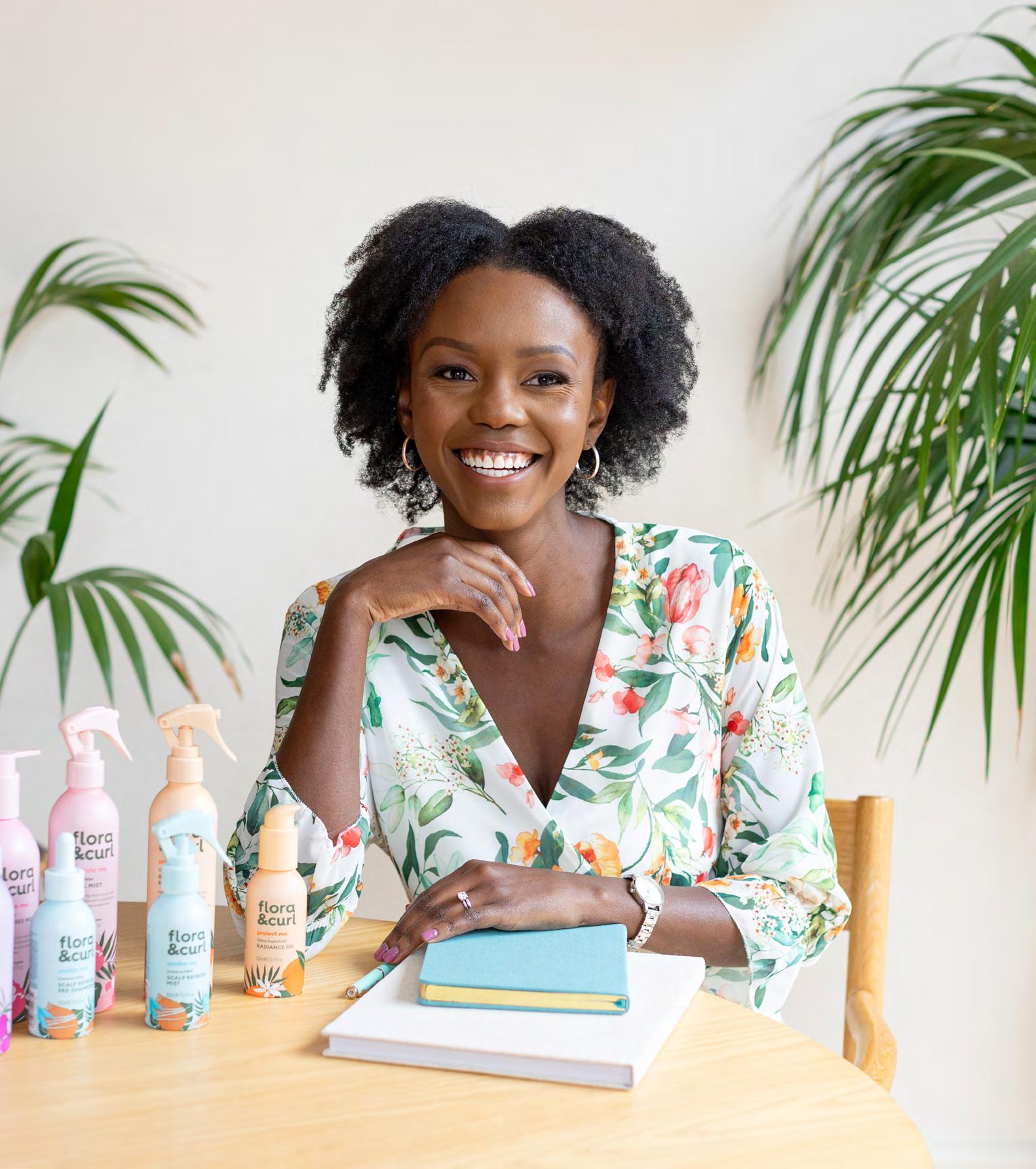
A Birmingham-based haircare entrepreneur has transformed her own hair journey into an international sustainable brand designed to help people embrace their natural curls.
22 www.blackbusinessmag.com
Feature
Sponsored
The now CEO and founder of Flora & Curl, Rose Ovensehi, decided to stop chemically treating her textured hair in 2011 after her scalp was damaged from years of processing and straightening her hair.
Looking for a more natural product and struggling to find many on the market, she then began creating her own DIY haircare recipes, documenting the journey on her own blog.
After asking her followers “what is your biggest hair problem?”, more than 300 responses cited dry hair and breakage. This was a turning point for Rose. Realising there was a more widespread need for natural products for textured hair, Rose decided to explore how she could turn creating recipes at her mum’s kitchen table into a business.
Rose experimented and formulated a streamlined range of nourishing haircare products for textured hair, using botanical and herbal ingredients. From Brazilian oils to Ghanaian butters, the products were designed to simplify the daily routine for curly, wavy and textured hair.
Rose transitioned from working in transport planning, to running the business full time with the launch of three products.
A leader from the start
Rose showed signs of a promising leadership career back in her college days, being awarded with a ‘Leadership Academy Certificate’ and participating in an academy programme focused on honing leadership and life skills.
Through this scheme she gained a great grounding in some of the basics of leadership including health and emotional wellbeing, public speaking,
critical thinking and self-confidence. It’s no surprise then, that Rose had the confidence and skills needed to take Flora & Curl from experimenting in her mum’s kitchen to the flourishing business it is today, where Rose leads a team of 16 employees.
Financing growth
As order numbers continued to grow – 100% year-on-year – Rose approached Lloyds Bank, securing an Invoice Finance facility. This allowed the business to fund larger orders with longer lead times, supporting Flora & Curl’s long-term goal of growing by 30% year-on-year.
“When orders started to increase, I knew I needed financial support to take Flora & Curl to the next level. The support from Lloyds Bank has allowed me to take on much larger orders and build the brand on an international level.” said Rose.
Today, the collection has expanded and includes mists, detangling lotions, shampoos, and conditioners and is available in more than 500 Boots stores across the UK.
The business also sells via its website to customers in more than 80 countries including Germany, France, Spain, Italy, and the Netherlands with plans to expand its retail placements in the US. A 16-strong team are now behind the brand, with positions for two additional employees to take on marketing and operational roles currently live.
The importance of culture
Rose puts her success as a business leader down to being inclusive and empathetic, creating a kind and communicative working culture.
www.blackbusinessmag.com 23
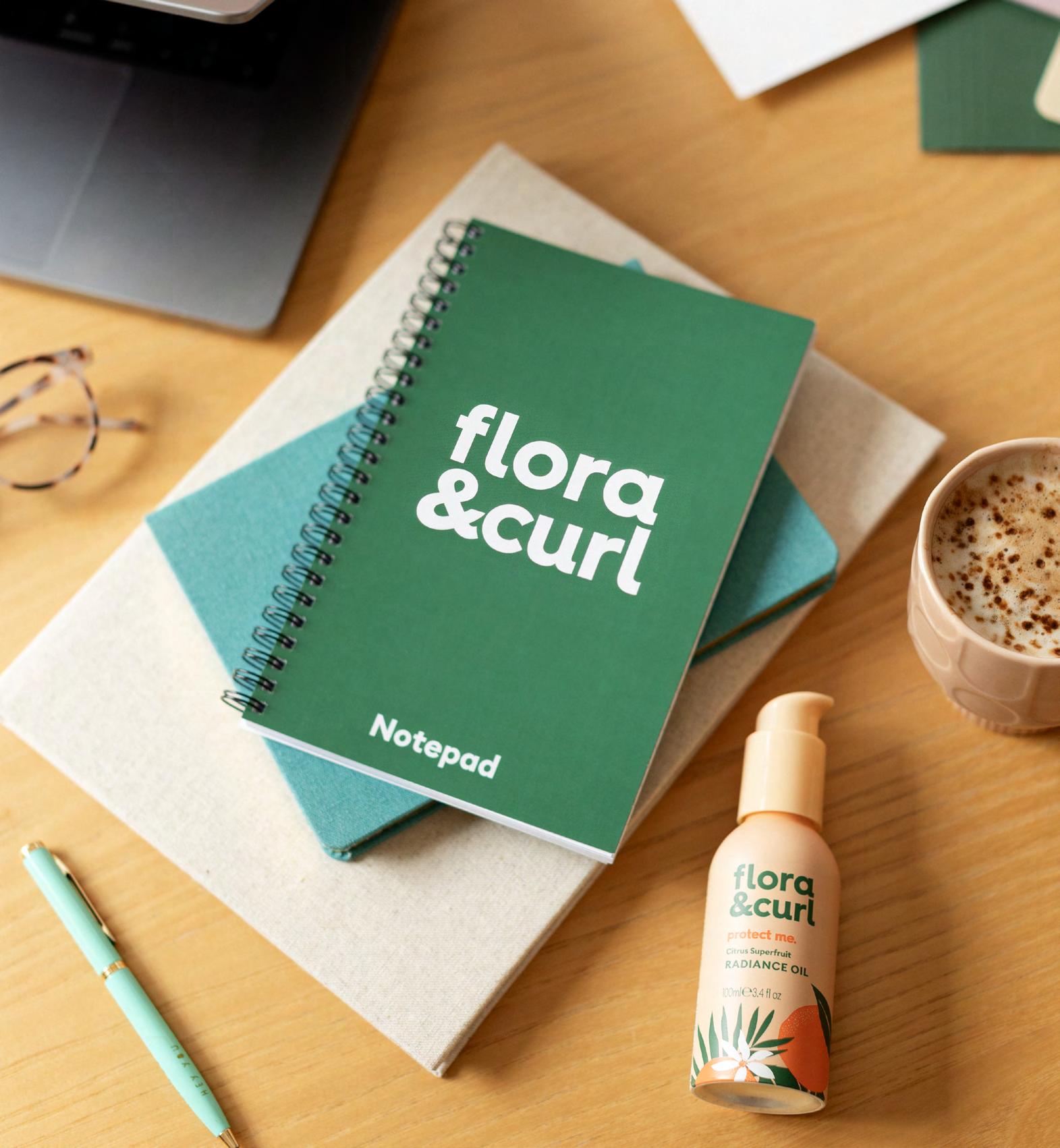
“I believe the key to making leadership easy is ensuring that you hire passionate people. Then entrusting them to deliver and experiment with new ideas. Leadership is about listening, encouraging and allowing your team to feel comfortable sharing new ideas and concepts with you.”
she says.
This approach has clearly fostered a culture of motivation and trust with just one voluntary turnover throughout her 7 years in business.
Her main hurdle in leadership, Rose says, has been realising that she can’t do it all. Through her growth journey, she has learnt to prioritise and focus
her efforts on the areas where her strengths lie. This comes hand-in-hand with the ability to delegate to others, to ensure everyone’s resource is being used efficiently.
This has been a learning curve for Rose, but one that she is embracing as her team grows and she brings in people with more specialised skills.
Listening to feedback
Despite the initial success of the business, Rose continues to listen to customer feedback and a full rebrand has been in the works for the past two years, addressing the increased demand for sustainable products. All products are made in the UK using
24 www.blackbusinessmag.com

To find out more about how Lloyds Bank is supporting flourishing Black-owned businesses like Flora & Curl, visit www.lloydsbank.com/blackbusinesses
infinitely recyclable aluminium bottles, which reduces the plastic content of the packaging, while all orders are shipped in eco-friendly boxes.
Flora & Curl also commits to growing trees in partnership with WeForest, with whom they’ve grown over 20,000 trees.
“Our recent rebrand is testament to the power of listening to feedback. Because of this, we’ve been able to offer our customers what they want and create a progressive sustainable plan that makes a difference, a real winwin.” says Rose.
Empowering and influencing
Rose says that the key to great leadership is to “be the leader that your team looks up to even if you didn’t have the title”.
Setting the tone, allowing space for ideas and discussion to flow and allowing your team to express themselves authentically are all part of this.
She also has ambitions to influence and empower other Black female entrepreneurs and her customers to celebrate textured hair in all its natural beauty:
“Through my business and its success, as a woman-owned business, I want to empower women both in the world of work, and my customers to be the best version of themselves.
I think my own natural hair is beautiful and I will continue working to help others with textured hair realise how they can embrace their natural curls and do it in the most sustainable way possible.”
www.blackbusinessmag.com 25

26 www.blackbusinessmag.com
Breaking Barriers with Dr Tunde Okewale OBE
Dr Tunde Okewale OBE, has carved out a distinguished career as an award-winning barrister and is an emblem of inspiration, particularly within the legal field.
His journey from growing up on a council estate in Hackney, East London, to achieving notable success in the legal profession underscores his commitment to overcoming social and structural barriers, enhancing diversity, and promoting social mobility within the legal sector.
His work has been widely recognised and celebrated, earning him a place on The Sunday Times 2017 'Alternative Rich List' for enriching the lives of others. Moreover, his innovative approach and dedication to widening participation in the legal profession have been acknowledged through his appointment as a Governing Bencher of the Inner Temple, making him the youngest to receive this honour in the institution's 650-year history.
In 2010, Okewale founded Urban Lawyers, a charity with a mission to educate young people from underrepresented backgrounds about their legal rights and to address diversity issues within the legal profession.
Through Urban Lawyers, Okewale has impacted at least 32,000 students, helping them to achieve their goals in law, and has provided legal education and support to over 50,000 individuals.
Overcoming Barriers
Your journey from a council estate in Hackney to becoming an awardwinning barrister is incredibly inspiring. Can you share how your early life experiences shaped your legal approach and commitment to breaking down social and structural barriers within the legal profession?
My journey is a story about overcoming challenges and demonstrating the power of belief and support. Growing up, I was fortunate to encounter teachers and mentors who took my dreams seriously, even when those dreams seemed out of reach for someone from my background.
My parents encouraged me to explore traditional careers like being a lawyer, doctor, or accountant, seeing them as paths to success. However, unlike the broader scepticism outside, within the walls of my school, my aspiration in sports was met with encouragement.
My teachers supported me, offering guidance and believing in my potential to excel in any field I chose, including athletics. This supportive environment was a refreshing contrast to the societal expectations that often sought to limit young
www.blackbusinessmag.com 27
people like me. The biggest lesson from this experience was realising the importance of having allies and champions who believe in your potential, regardless of your chosen path.
My family taught me about hard work and perseverance, values that are essential in any career, including sports. However, the encouragement from my teachers was equally important, showing me that any dream is attainable with dedication and the right support.
As I moved forward, I carried with me the importance of support and belief - not just from family but from educators and mentors who see beyond stereotypes and societal limitations.
My story has evolved into a mission to inspire and support others, breaking down barriers and creating opportunities for everyone to chase their dreams, no matter how big or unconventional. It's a testament to the idea that belief, support, and hard work can lead to incredible achievements, highlighting the importance of champions who push us towards our highest potential.
Foundation of Urban Lawyers
In 2010, you founded Urban Lawyers, a charity dedicated to making the law more accessible and enhancing diversity within the legal profession. What motivated you to start this initiative, and can you reflect on a moment or achievement with Urban Lawyers that you find particularly rewarding?
Starting Urban Lawyers was serendipitous, born from a desire to demystify the legal field for those from similar backgrounds to mine. People were curious about my transition from a council estate and working part-time at Sainsbury's to becoming a lawyer, especially overcoming
structural barriers and a lack of network. This curiosity led me to return to my old schools, sharing my journey and educating students on legal issues relevant to young people, especially regarding criminality and the ease of entanglement with the justice system.
The initiative expanded through workshops in schools, universities, and community groups across London. A pivotal moment was partnering with a community representative in South London, which helped bridge trust gaps in unfamiliar communities. This partnership led to the creation of a video on legal rights, marking a significant step towards broadening Urban Lawyers' impact.
Urban Lawyers formally became a charity in 2010, evolving its mission to make the law accessible to everyone. Our focus shifted from "Ignorance is not a defence" to fostering positive engagement with the law, from informational resources to career pathways.
We've initiated diverse projects, from providing legal education in prisons to helping inmates develop transferable skills for reintegration into society to soft skills training and work experience programs for innercity youth. We've collaborated with entities like Manolo Blahnik and Netflix to diversify fields like media law, reflecting the diversity of the culture dominating the media.
A particularly rewarding achievement was our Dragon's Den-style competition, offering inmates seed money and legal support to start their own businesses post-release.
This project exemplifies our commitment to transforming lives through legal education and support. Though Urban Lawyers is my brainchild, it thrives on the dedication of a fantastic team committed to making the legal profession
28 www.blackbusinessmag.com
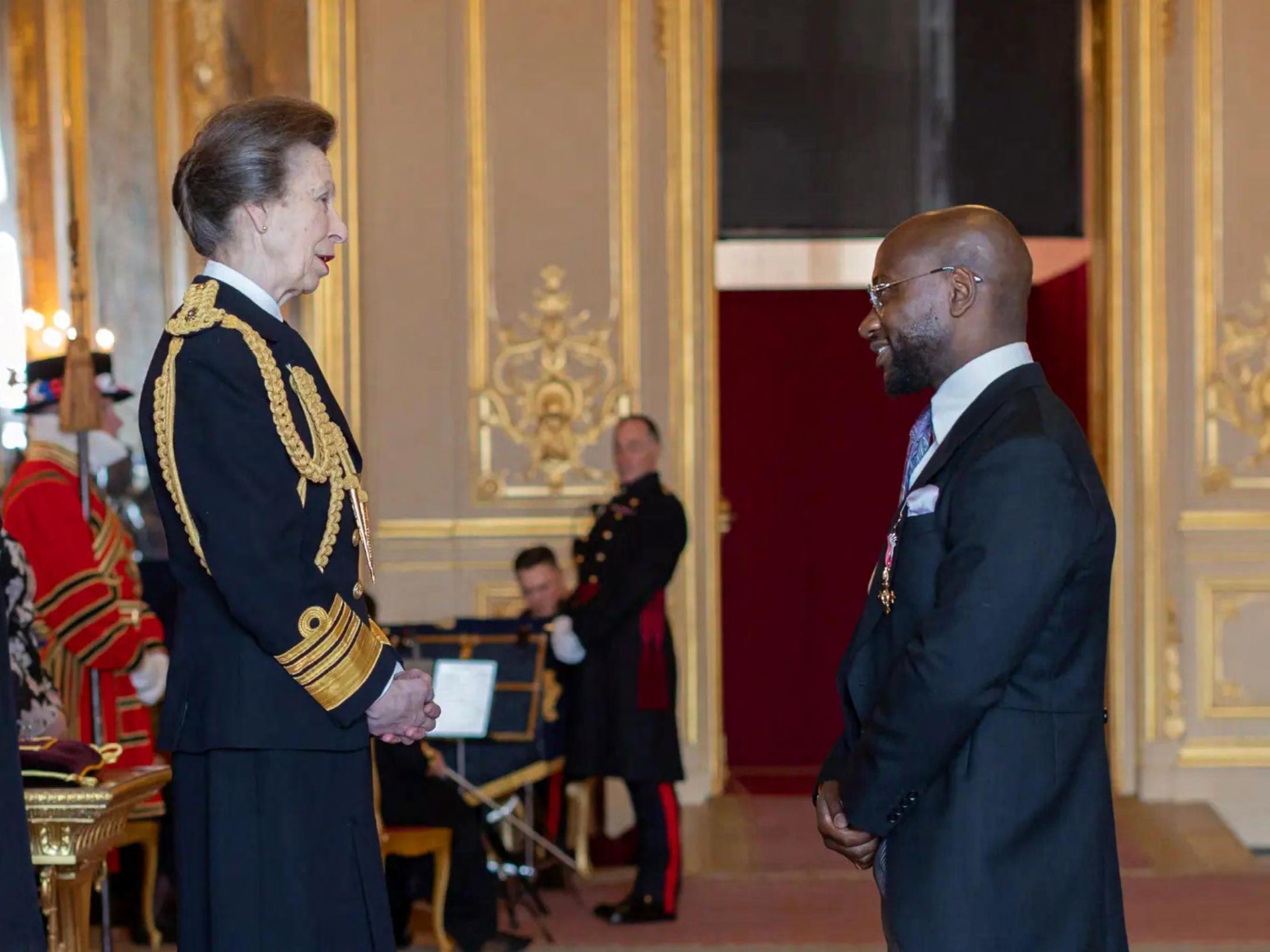
more accessible and diverse. Their creativity and hard work have been instrumental in turning our vision into reality.
Challenges and Solutions in Diversity
Despite ongoing efforts, the legal profession faces diversity and inclusion challenges. Based on your experiences, what are the most significant obstacles to achieving a more diverse legal profession, and what solutions do you propose to overcome these challenges?
The push towards a more diverse legal profession has certainly seen some progress, particularly in creating opportunities for entrylevel diversity. However, while we've made strides at the entry-level level, retaining and promoting diverse talent to senior positions remains the key challenge. This gap reflects a
broader issue: although we're getting diverse candidates in the door, they often don't see a clear path or role models at senior levels that resonate with their experiences. This lack of representation and mentorship at the top can make career progression seem more elusive, affecting the aspirations and retention of talent from diverse backgrounds.
Moreover, the existence of a few success stories can sometimes create a false sense of complacency, suggesting that enough has been done to address diversity and inclusion. While these stories are inspiring and important, they can also mask the ongoing need for systemic changes to ensure equity and inclusion throughout the profession.
The focus should be on bringing diverse talent into the legal field and ensuring they have the support and
www.blackbusinessmag.com 29
pathways to advance. This involves addressing talent retention and the promotion of such talent into senior roles. Despite the improvements in entry-level diversity, we must avoid complacency and continue to work on making the legal profession inclusive and equitable at all levels.
Role of Technology and Social Media
You have built a considerable following on social media. How do you utilise social media and leverage technology to further the goals of Urban Lawyers and similar initiatives focused on legal education and social mobility?
I leverage technology and social media distinctively, using my personal platform to raise aspirations through positive and identifiable images of success.
My approach avoids the conventional notion of role models, focusing instead on achievements and hard work as a source of inspiration. This distinction allows me to present a multifaceted identity, challenging the misconception that professional success is incompatible with personal interests and cultural identity. My social media showcases the initiatives of Urban Lawyers and aspects of my life that reflect success, aiming to inspire rather than advocate or activate.
On the other hand, Urban Lawyers' social media is dedicated exclusively to promoting legal education and accessibility. We share content from various sources to support our mission of making the law more accessible to everyone, regardless of their background or interests.
This approach is underpinned by the belief that our efforts should eventually make organisations like Urban Lawyers redundant by fully integrating legal accessibility into society. While our model as a charity
without employees offers flexibility and aligns with our mission, it also presents challenges regarding scalability and reach, which we are actively working to address.
Leadership Philosophy
Throughout your career, you've navigated the complexities of the legal field and founded and led Urban Lawyers to significant impact. Could you share your leadership philosophy and how it has guided your approach to practising law and spearheading initiatives aimed at social change?
My leadership philosophy revolves around two main principles: responsibility and humility. Firstly, I believe that as a leader, it's my duty to take responsibility for everything within my initiatives. If something goes wrong, I see it as my fault, and I focus on fixing the problem rather than placing blame. It's important to quickly find solutions and resolve issues, understanding that blame can wait until the problem is solved.
The second principle is recognising that success is not mine alone. When things go well, it's due to the collective effort of my team and the support from a broader community, both seen and unseen.
This keeps me grounded and reminds me that no achievement is solely my own. It’s about acknowledging the contributions of everyone involved and understanding that success is a shared accomplishment.
This approach ensures I remain balanced and appreciative of the support that has helped me achieve our goals while also taking full responsibility when challenges arise.
Looking Ahead
As you continue to lead and inspire within the legal community, what
30 www.blackbusinessmag.com
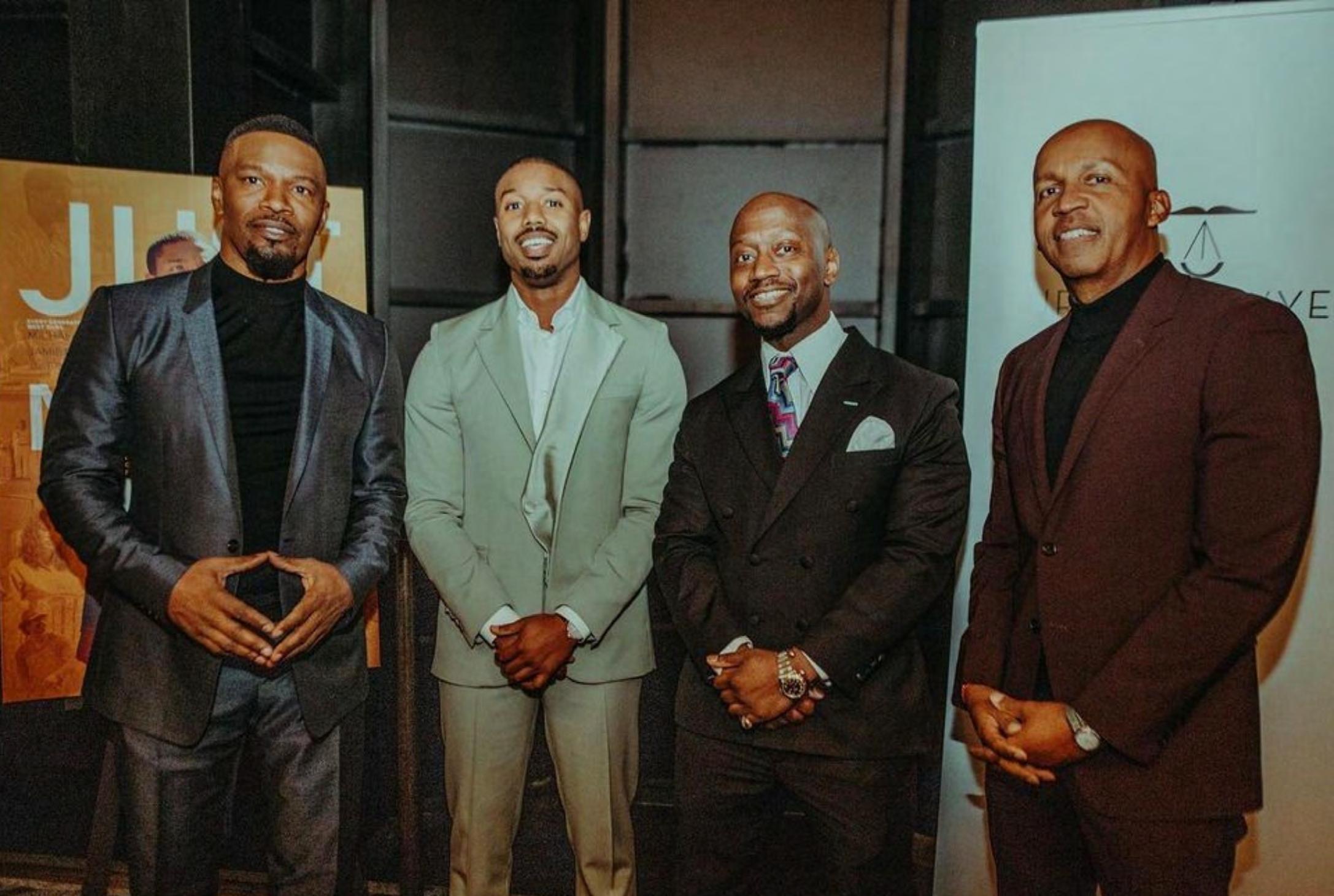
future goals do you have for Urban Lawyers and your work in promoting social mobility and diversity in the legal profession? Are there new projects or initiatives we can look forward to?
In the broader scope, my aim for Urban Lawyers is to expand our reach internationally. While we're currently active in cities like Manchester, Bristol, Sheffield, London, and Birmingham, enhancing our efficiency in these regions is a priority before stepping onto the global stage.
My vision is for Urban Lawyers to become a worldwide organisation, addressing the unique challenges of legal accessibility in different countries.
Every country faces its own set of issues regarding making the law more accessible. For instance, some countries struggle with legal educational opportunities being inaccessible to certain demographics, while others may grapple with the
lack of scholarships for students from underprivileged backgrounds. In the United States, the quality of education and, consequently, access to legal careers can depend heavily on one's residential area, which ties educational opportunities to socioeconomic status.
Our goal is to be at the forefront of these challenges, working on projects that not only make legal education more accessible but also inform individuals about their legal rights across various jurisdictions.
As Urban Lawyers grows, we look forward to being a key player in the global conversation about legal access, diversity, and social mobility, contributing to an ecosystem where the law is accessible to all, irrespective of their background or where they live.
To find out more about Urban Lawyers, visit urbanlawyers.co.uk and connect with Tunde on Instagram @tundeokewale
www.blackbusinessmag.com 31
MEET PIONEERING WELLNESS ENTREPRENEUR
Lottie Whyte
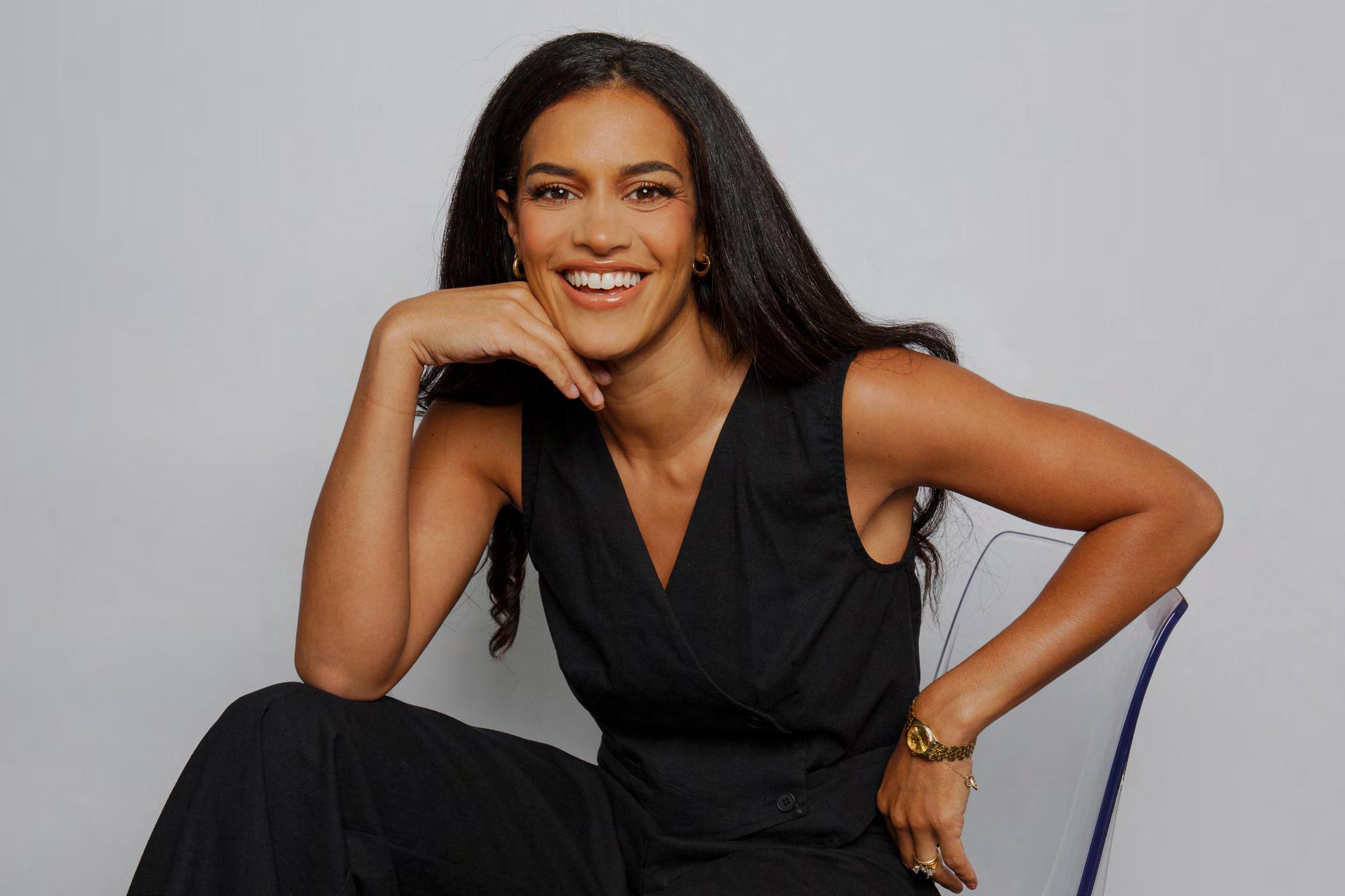
Lottie Whyte is the co-founder behind MyoMaster, one of the UK’s fastest-growing health and wellness ventures. Recognised as Natwest’s ‘Entrepreneur of the Year’ and a finalist at the Aviva Women of the Future Awards, Lottie has transformed her business into a £4 million revenue powerhouse in just three years.
Her standout moment came on the BBC's 'Dragon Den', where she earned the title of ‘Dragon Slayer’ for her unforgettable pitch, capturing the hearts and investments of renowned investors.
Before her entrepreneurial success, Lottie spent a decade honing her craft in new business, marketing, and leadership roles across various communications companies. Notably, she was appointed to the board of M&C Saatchi at just 27, showcasing her exceptional talent and drive.
Today, Lottie is a business powerhouse and a sought-after speaker, sharing her insights on business strategy and personal growth at prestigious events like Stylist’s Business and Work Festival and Google’s Future Forum.
32 www.blackbusinessmag.com

www.blackbusinessmag.com 33
Deciding to start a business two weeks after having your first baby is incredibly bold. What prompted you to take that leap, and how did you manage the challenges of balancing motherhood with building a successful company?
It was bold; I might have been high on some baby hormones. We are capable of so much more than we think we are. I was extremely disciplined with my time, and I took him everywhere with me. I remember taking him to pitch investors at one point, and there were a few raised eyebrows! It’s also important to do something you love, which will keep you motivated when the going gets tough.
Can you tell us more about the philosophy behind your brand and how MyoMaster products and services are tailored to help individuals achieve their athletic goals?
MyoMaster is the home of physical optimisation. We are on a mission to unlock every human’s peak performance. It goes beyond sports. We create products, experiences, and content that help people perform at their best at work, at home with the kids, or when they are training. It’s a complete personal passion of ours as founders. We're in our thirties, chasing our dreams, raising families, and pursuing fitness goals, and we wanted to invest in products that would help us feel really good, provide longevity, and give us the tools to be the best version of ourselves.
MyoMaster has experienced impressive growth, scaling from your kitchen table to seven figures in just three years. What do you attribute to this rapid success, and what key strategies did you implement?
We’ve had an amazing journey. We have a clear vision and great
products, and we really understand our customers. The key is having an authentic story that people can relate to; in a world where the barriers to entry are very low, having a story that connects is a big differentiator.
We have also been very focused. My advice is always to walk before you can run in business. Try to do a couple of things really well. As entrepreneurs, we are built to want to grab every opportunity, but that can often be the biggest downfall of businesses in the early stages.
In the competitive world of sports recovery products, differentiation is key. What sets MyoMaster apart from other brands, and how do you ensure your products remain innovative and effective?
We’re building the home of physical optimisation. Can you name another brand that is doing that? We innovate aspects of every single one of our products based on direct feedback from our customers. I think innovation doesn’t always have to relate to products. It can be in how you build your brand and create a community. We are building a community that is unique and loyal to our brand. That is irreplaceable.
Can you tell us about your recent experience going on BBC’s 'Dragon’s Den'? How do you plan to navigate the media attention that will follow?
It’s been an immense few weeks. When the producers of 'Dragon's Den' got in touch last year, our immediate response was no. Did we really want to risk humiliating ourselves in front of millions of people on national TV? But we realised that risk-taking led us to build MyoMaster in the first place, so we jumped in head first. The response has been phenomenal; we ride the wave and enjoy every moment.
For more information, visit myomaster.com visit or follow on Instagram @myomaster
34 www.blackbusinessmag.com

The Money Ladder with Franklin Asante
Franklin Asante is a Private Banker who has worked with high-net-worth individuals since 2008.
He now heads up the Entrepreneurs division of a UK Private Bank, where he’s an advisor to business owners across several sectors, including Tech, Property and Recruitment. Franklin is the Vice-Chair of Governors at
a London college and a Trustee for two charities that provide local communities with personal development and mental health support. Franklin also teaches financial literacy through his social media following under the name @urbanfinancier, where he delivers valuable and practical information about managing personal finance.

36 www.blackbusinessmag.com
As the head of the Entrepreneurs division at a UK Private Bank, you play a pivotal role in advising entrepreneurs across diverse sectors. Can you describe the key responsibilities of your position and how you approach leadership within this role, especially in guiding entrepreneurs through their financial decision-making processes and growth strategies?
My primary responsibilities revolve around steering the strategic direction of our division, which is notably the largest within the bank, in the sense that most of our clients and customers are business owners or entrepreneurs. This demographic predominates our client base because entrepreneurship often creates significant wealth, necessitating expert financial guidance.
My role encompasses not just setting internal objectives but also, more crucially, enhancing our external engagement to enrich the experience of entrepreneurs interacting with Coutts.
We aim to establish Coutts as the foremost choice for the UK's most successful entrepreneurs and business owners, focusing on our unique experiences, services, and communities. These initiatives are designed to make entrepreneurs feel welcomed and supported in their personal and business aspirations.
The job entails extensive strategic planning, involving regular meetings with internal and external stakeholders to identify and forge partnerships that broaden our reach. Given our heritage as a traditional private bank, it's vital to break new ground and reach entrepreneurs in markets we've historically not engaged with. If you look at the face of business now, it is very different
from even five years ago. I want to ensure that we're current and speaking to that entire community of entrepreneurs from all walks of life.
From your experience, what are the essential qualities of effective leadership in the financial sector?
In any sector, leadership fundamentally recognises that it's not about the leader personally but about the people they lead. Many might only sometimes strike the right balance. Thinking leadership means having the final say. However, success truly comes when the people you lead are successful. It's about listening to their needs and wants and creating a direction that resonates with them while enabling them to thrive.
This is applicable in any sector, but especially in finance, where we're navigating economic changes and uncertainties, often driven by emotions. Our expertise must guide our clients through these challenges, but leadership begins internally by empowering our team. They are the storytellers, illustrating why business should be done with us.
Communication is key, understanding not just what to communicate but how. When I took over the entrepreneurs' division, I immediately sought the input of the entire team and some external stakeholders to understand what the entrepreneurial proposition meant to them.
This was crucial before making any changes. It was about understanding what mattered to them and creating a shared vision that addressed these elements. Leadership is about understanding where people are at and creating a vision they can buy into.
www.blackbusinessmag.com 37
Then, maintaining momentum is essential; it's easy to set a vision but challenging to keep it alive. People might lose interest if they are not continuously motivated.
I've worked to create an environment where the team has autonomy and can showcase their strengths, including challenging them but ensuring they understand the purpose behind it.
For instance, junior bankers, who may lack confidence, are now given opportunities to build their experience in less intimidating settings. This approach helps them gradually prepare for bigger platforms. Leadership is identifying opportunities to build your team's skills and attributes, leading them to deliver strong results for the business.
How have you used your leadership skills in terms of your approach to mentoring and engaging the community in terms of the work you're doing outside of your professional role?
It's crucial to look beyond the confines of my day job, as it can become quite insular. I've always sought to expand my horizons and gain experiences in various fields because everything ultimately connects to leadership. For instance, serving as the vice chair of governors at a college introduced me to a different set of challenges than my professional role.
Engaging with an educational institution, which is an entirely different sector, required me to adapt and apply my leadership skills in new ways. However, the core principle remained constant: ensuring senior executives deliver the best outcomes for our learners and the community. This involves empowering,
challenging, and supporting them. Applying these leadership principles in a sector outside of my expertise has been enriching and enhanced my effectiveness in my professional role.
The experience of motivating and improving performance in a different context makes it easier to apply similar strategies in the familiar territory of my profession.
Therefore, I continuously challenge myself to learn from diverse environments, whether in my charitable work, on boards, or in my banking role. Bringing back these insights enriches my professional approach.
I advocate for others to embrace opportunities outside their primary roles, as the lessons learned can significantly benefit one's core responsibilities. This approach has been a key learning and takeaway in my leadership journey.
Your upcoming book introduces a practical 3-step wealth generation, accumulation, and preservation plan. What drove you to write this book, and why do you believe now is the crucial time for individuals to embrace its teachings?
The inspiration behind writing my book stemmed from a long-standing desire to offer a comprehensive guide to help the community navigate financial decisions more wisely. It took about 18 months of dedicated writing to transform this idea into a tangible resource that could be shared worldwide.
Given the current economic challenges, such as the cost of living crisis, the need for financial literacy has never been more acute. We can't afford to be financially illiterate
38 www.blackbusinessmag.com
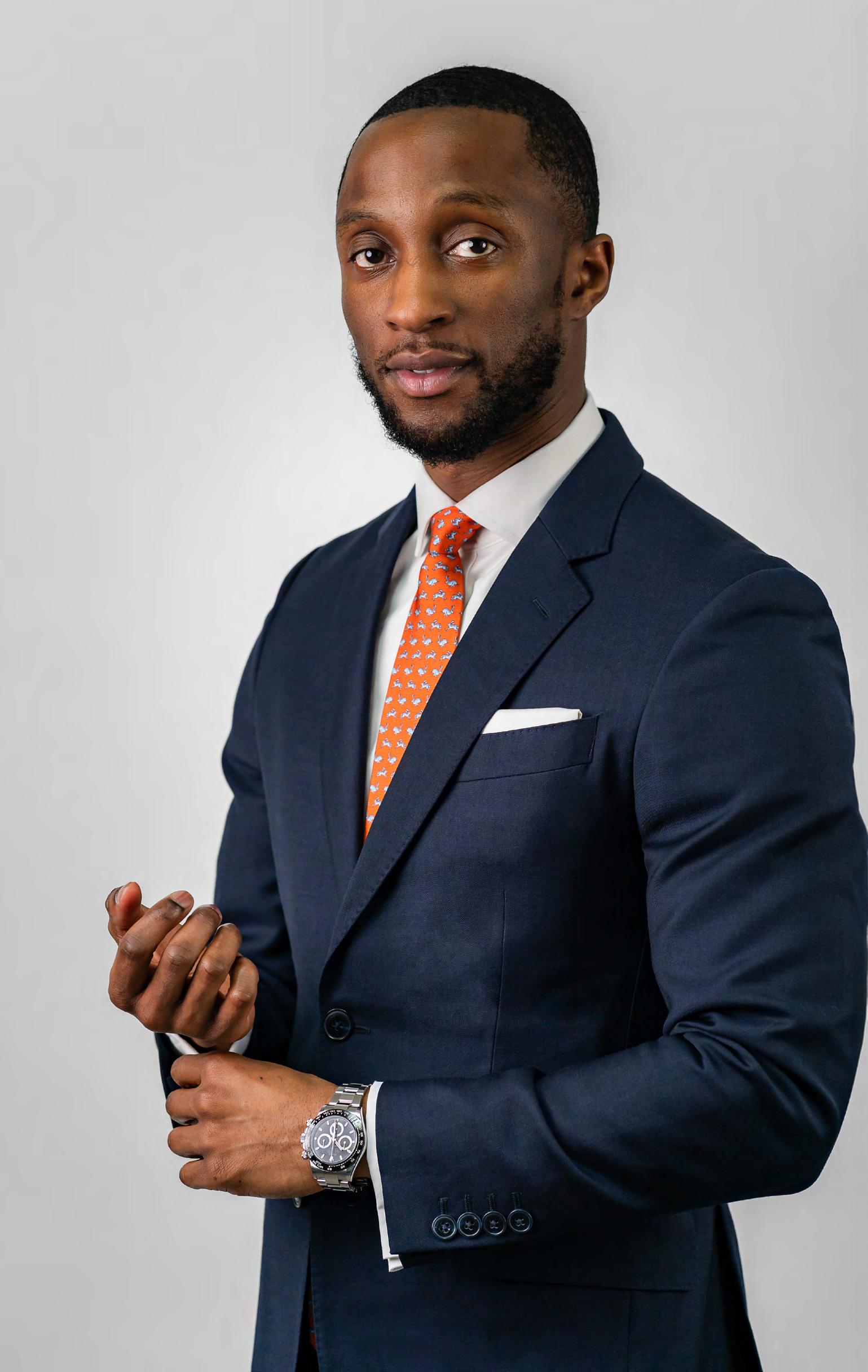
any longer; it's imperative that we start taking charge of our financial choices, which is far easier said than done. Entitled "The Money Ladder," the book metaphorically represents the financial journey of climbing a ladder, acknowledging the diverse stages at which individuals find themselves.
Whether you're at the bottom, the middle, or already at a higher rung, the key is having the determination to climb. This book provides the necessary information, or energy, to ascend at your own pace, beginning with the essentials of financial management: budgeting, saving,
www.blackbusinessmag.com 39
investing, borrowing, and spending. The first chapter goes beyond these basics to tackle wealth generation in-depth, covering crucial aspects such as earning an income, exploring passive income opportunities, and the strategic considerations between becoming self-employed and remaining employed.
This section also delves into the significance of understanding tax returns and other foundational elements for making informed financial decisions. It's all about setting the right foundations to ensure that you're equipped to make the best possible decisions, whatever your current financial situation.
Following this, the book explores the wealth accumulation phase, guiding readers on converting earnings into assets that will secure their future.
It demystifies the asset selection process, offering insights into various investment vehicles, including crypto and property, detailing their advantages and pitfalls. This enables readers to make decisions that align with their risk tolerance.
The final piece of the puzzle, wealth preservation, stresses the importance of safeguarding the wealth you've worked hard to build. This involves navigating the complexities of tax efficiency to prevent substantial losses through income tax, capital gains tax, and inheritance tax.
By likening the concept to constructing a house, with wealth preservation as the roof, the book underscores the necessity of planning for wealth protection from the outset. In essence, "The Money Ladder" is a
holistic guide to managing, growing, and preserving your money, making it especially relevant today when self-reliance in financial matters has become crucial. The book is a call to action for individuals to educate themselves to make the most informed decisions with what they have.
You address readers with different financial backgrounds and goals. What is the most common misconception about money management you encounter?
A common misconception about money management I often encounter is the belief that all debt is inherently bad, leading some to avoid it entirely. This mindset can hinder their ability to scale and accumulate wealth. It's crucial to distinguish that not all debt is detrimental.
As I've highlighted in my book, while certain types of debt can indeed be harmful, others are strategically employed by many successful individuals to expedite their financial objectives.
For instance, leveraging an asset to generate additional assets is a technique that can significantly advance one's financial goals when understood and applied correctly. The challenge lies in navigating away from counterproductive debt, which unfortunately colours many people's perception of all debt.
For those beginning their journey up the financial ladder, my advice is to understand your financial commitments deeply. Specifically, evaluate your monthly outgoings, focusing on your debts, and assess
40 www.blackbusinessmag.com
how much of this debt is invested in assets that will appreciate over time. If your current debts do not contribute to building valuable assets, such as overdrafts, credit cards, personal loans, and payday loans, then these are likely not beneficial types of debt.
On the other hand, debts like mortgages or loans secured against assets can be conducive to building equity and represent a potentially positive form of debt. The key is to discern between debt that can aid asset building and debt that detracts from your financial health.
What advice would you give someone just starting to climb their financial ladder?
If you're just beginning to navigate your financial journey, the key is to approach it with intention.
Understandably, when starting out, it might seem like everything is jumbled together, making it difficult to pinpoint exactly what you aim to achieve.
Therefore, setting clear, actionable goals is crucial as it provides direction and keeps you mentally focused and motivated.
Embrace Delayed Gratification: Achieving financial success often requires living modestly in the early stages, making sacrifices now to enjoy benefits later. While challenging, this concept of delayed gratification is a common thread among successful individuals.
Start Investing Early: The importance of beginning your investment journey as soon as possible cannot be overstated. Most of the world's wealthiest individuals have amassed
their fortunes through financial assets, not tangible items like property or luxury goods. Financial assets, especially during volatile economic times, offer substantial growth opportunities.
Understand Asset Types: Familiarise yourself with different asset classes from the outset. Stocks and shares ISAs, for example, offer a taxefficient way to grow your wealth. The principle here is to leverage the power of compounding and tax benefits to maximise your investment returns.
Diversify Your Investments:
Diversification is a fundamental investing principle. By spreading your investments across various asset types, you mitigate risk and increase the likelihood of steady growth.
Generate Sustainable Income: Focus on creating reliable income streams that can support your living expenses and investment activities. Income generation is essential as it provides the foundation for investment and the strategic use of debt for leverage.
Remember, not all debt is negative. Understanding how to use debt wisely can be a powerful accelerator for achieving your financial goals.
By planning carefully, investing early, diversifying your assets, and focusing on generating a solid income, you establish a robust framework for long-term financial security.
You can find Franklin on Instagram @UrbanFinancier
www.blackbusinessmag.com 41
Navigating
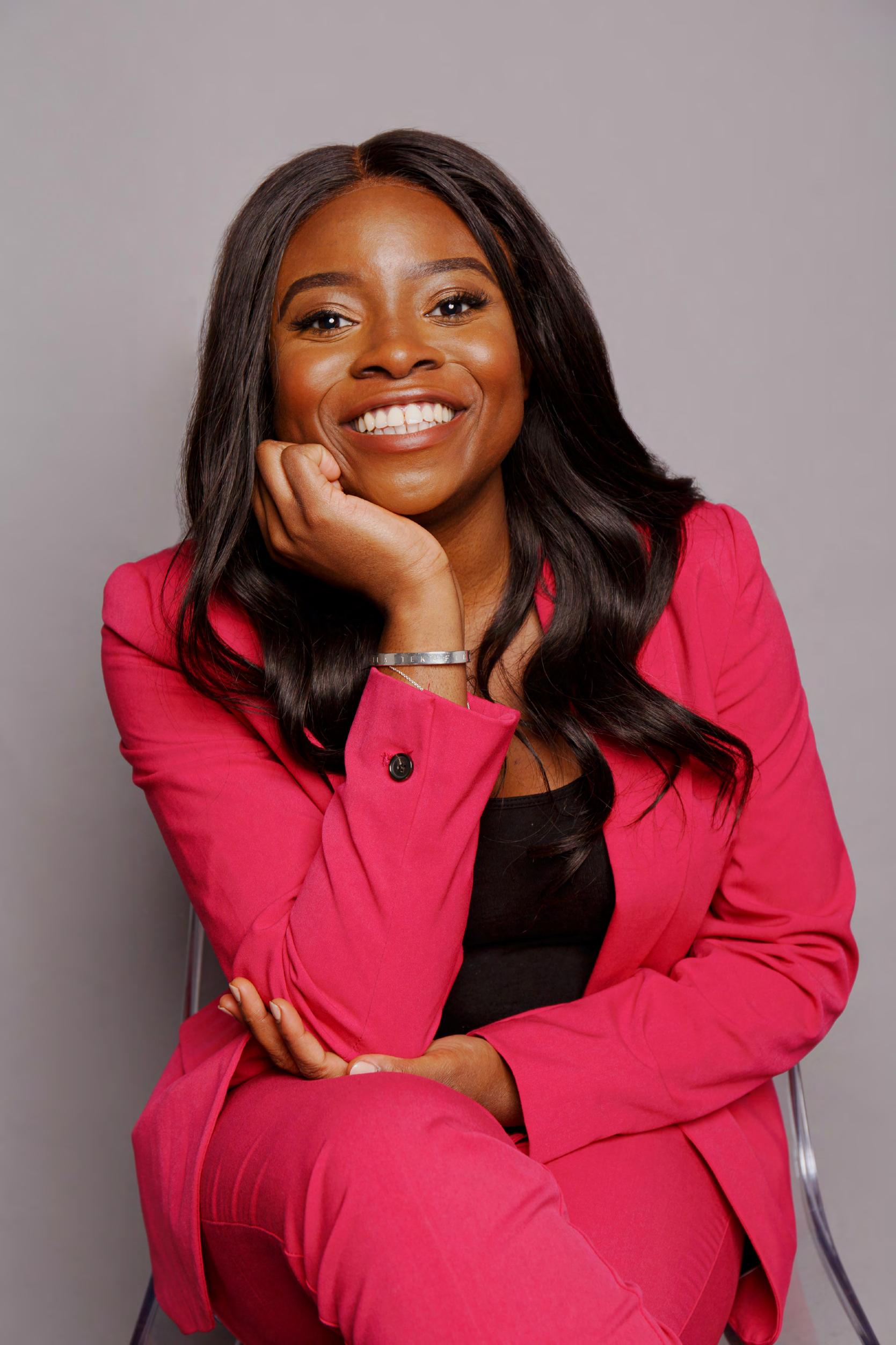
42 www.blackbusinessmag.com
the journey to senior leadership for Black Women with Liseli Sumbwanyambe and The Ladder Club
Liseli’s leadership journey started at the University of Glasgow, where she was the first Black person in the 150+ year history of the Glasgow University Union. Most recently, Liseli founded and built a 200+ community of Black women in less than three months - The Ladder Club. The Ladder Club is a non-profit on a mission to increase the representation of Black women in corporate leadership roles through networking and personal development events. Liseli also secured partnerships with Unilever, Michael Page, and the Amos Bursary over the past three months.
Alongside The Ladder Club, Liseli is a guest lecturer at the University of Cambridge, where she delivers the sales and marketing content for the MPhil Bioscience Enterprise (biotechnology and business) course. She is the youngest lecturer on the course, starting the role the same year she graduated. Liseli is also a regular public speaker, and in 2024, she worked with Google, Atos, Eviden, VMWare, and LinkedIn.
Her impact on the community has been recognised by her shortlisting in the 2024 British Diversity Award’s Inspirational Role Model of the Year category. Liseli was also listed in the Involve Empower Future 100 Role Models List, won the Wearethecity’s Rising Star Award and was a Finalist in the Black British Business Awards Rising Star category.
What inspired you to found The Ladder Club, and how did you envision its impact on the representation of Black women in corporate leadership roles?
The Ladder Club actually started from a dinner with two senior Black women. We discussed the importance of support networks and how hard they can be to build as a Black woman when you are often the only one or few in a company. I founded The Ladder Club to create space for Black women to meet their peers across different industries and businesses so they can grow their network even if diversity isn’t present in their workplace. The
second goal is to deliver personal and career development sessions catering to the needs of Black women climbing the ladder. When I first launched, I was nervous about how many women would agree with this need and sign up, but in our first week, we had over 100 members join our community!
Can you describe the challenges you faced as the first Black person in the Glasgow University Union's 120+ year history and how these experiences have influenced your leadership style?
Going into the role of the “first,” I put a lot of pressure on myself to be the perfect leader, giving myself no room for error and ultimately setting myself an unrealistic standard to meet. In the role, I was very fortunate to work with many senior leaders across the Scottish Universities and an incredible team within the Union, so I quickly learnt the importance of working together and that it is okay to make mistakes! My experience has always influenced me to empower my teams to be confident in decision-making and not to fear failure. Looking back, taking risks and pushing myself outside my comfort zone is when I really learn the most.
Securing partnerships with major organisations like Unilever and Michael Page is no small feat. What strategies did you employ to achieve these collaborations for The Ladder Club?
I started The Ladder Club in October with no funding or team but secured our first partnership within a few months. As I started to look for partnerships, my main focus was growing the community to prove its need. Then, through connecting with contacts in my network and cold messaging, I began to share The Ladder Club’s story using testimonials from community members to demonstrate our impact. It has been incredible to have the opportunity to work with companies that prioritise ED&I in their strategies, and I am looking forward to announcing more partnerships throughout the year!
www.blackbusinessmag.com 43

As a guest lecturer at the University of Cambridge, you influence the next generation of leaders. What key messages do you aim to impart to your students about navigating the intersection of biotechnology and business?
Many students think that if they study a STEM subject (Science, Technology, Engineering or Maths), their career will be limited to the lab or academia. A key message I aim to share with students is to be open about their career options. The skills learnt from a STEM degree are very transferrable, and biotechnology stretches into many different industries. I remember arriving on the first day of my sales and marketing graduate scheme as the only person without a business degree, confused about why I was selected. As the youngest lecturer, I’m in my 4th year delivering the sales and marketing content to the MPhil Bioscience Enterprise course. Over my career, I’ve seen firsthand the benefits of understanding an organisation's technical and commercial sides. It’s really rewarding to see the positive impact I can have on a student’s mindset toward leadership as they begin their career.
You have quickly become a prominent figure in public speaking, working with major companies such as Google and LinkedIn. What do you believe is the power of public speaking in shaping leadership and influencing change?
Growing up in an African household, I often heard the proverb, “Until the lion learns to write, every story will always glorify the hunter”. Progress has been made in the corporate world regarding diversity and inclusion; however, we are still far from having leadership boards representing the UK's demographics. To influence change, stories from underrepresented communities need to be shared, and the power of public speaking creates space for this to happen. I often think the hardest part of beginning public speaking is getting those early opportunities. A big focus of The Ladder Club this year is how to widen access to these opportunities for Black women in business.
The recognition you've received through awards and shortlists underscores your impact. How do you measure success in your initiatives and personal career milestones?
44 www.blackbusinessmag.com
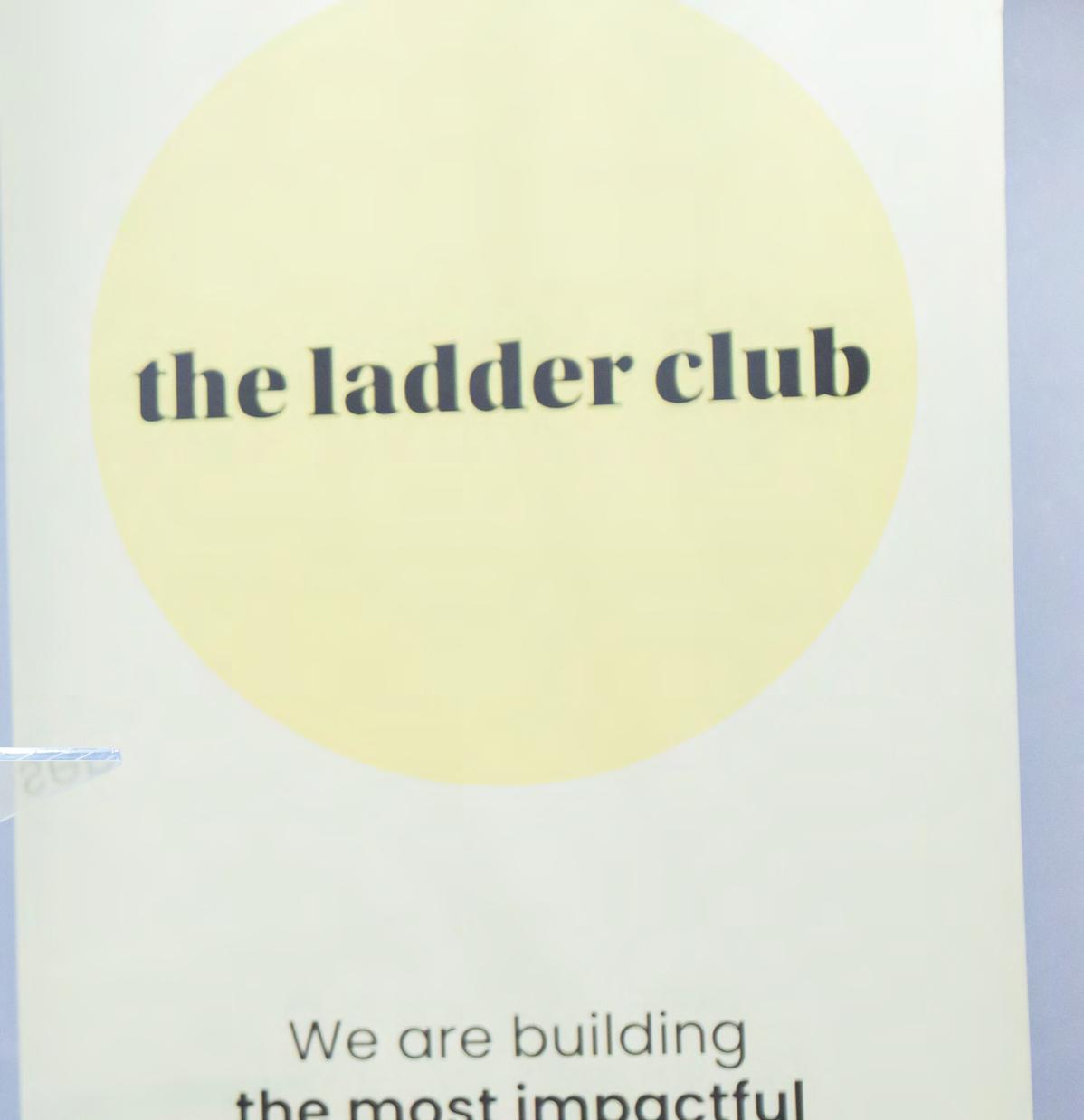
Success is always so difficult to measure. However, I find it most effective to focus on what drives me at the time of my career, and understandably, this changes through different life stages.
If you had asked me this coming out of university, I would have said salary and title, but now my focus is on the impact my actions can have on people around me. To measure success, I often reflect on barriers I have faced in my career and how those challenges may look to people going through them now. If my actions have played a part in improving those experiences (or making them disappear!) I would count that as a success.
The Ladder Club is a testament to building strong communities. What advice would you give aspiring leaders about the importance of community and networking in achieving professional goals?
I would advise you never to undermine the importance of conversations and the people you meet. I’m sure we have all been guilty at one point of not putting in full effort into a conversation with
someone as you can’t see the benefit in that moment, but you honestly never know how you may be able to help each other in the future. Looking back at my journey, I see that most of my network did not come from purely transactional conversations but were the result of friendly exchanges in passing, which led to strong connections.
Looking forward, what are your aspirations for the future of the Ladder Club and your role in promoting diversity and inclusion within corporate leadership and the wider community?
The Ladder Club aspires to be the most impactful community for Black women in business by directly playing a role in increasing representation in senior leadership roles. To achieve this, our focus is to grow our community sustainably and the offering we can provide to Black women in business. In the short term, this will include growing our core team and the number of corporate partnerships to enable us to increase the frequency and size of our events.
So far, all our events have sold out within hours and with double-digit waitlists! Personally, I am focusing on continuing to promote diversity and inclusion through all career stages. Previously, I have mainly focused on working in schools and universities; however, this year, I hope to grow my presence more, online and within the corporate environment.
To find out more about the Ladder Club, please visit theladderclub.co.uk or email hello@theladderclub.co.uk
www.blackbusinessmag.com 45


46 www.blackbusinessmag.com PHOTO BY FLH PORTRAITS Sponsored Feature
IN LEADERSHIP
LESSONS
FROM LLOYDS BANK’S - ELSIE AKINSANYA
Being an entrepreneur or leader requires wearing many hats. For example, as your business grows or you take on more responsibilities for managing a team, you’ll have to learn and adapt as you go.
Elsie Akinsanya joined Lloyds Bank in January 2023 following a human resources career in education, pharmaceuticals, research and financial services.
As Lloyds Bank's People Director for Corporate & Institutional Banking and Business & Commercial Banking, she’s keen to share her leadership journey and over 20 years’ experience to benefit others.
“I think when you look back on your career journey in the moment, it just feels like there was stuff you had to get through. It could be considering your next promotion opportunity, being heard or welcomed at the table or deciding how to use your voice when you get to that table.
Another thing I considered is what my next evolution would be. How could I show up as an individual from a brand perspective? These are all challenges I’ve faced and come away from in a better space,” she reveals.
Four fundamental qualities of a great leader
Elsie attributes her success to four critical personal qualities she’s developed throughout her HR career.
1. Tenacity – Everyone will face obstacles in their entrepreneurial journey or career path, so you need to cultivate a willingness to keep going no matter what.
2. Learning from failure - It’s okay to make mistakes, and you will fail along the way. The most important part of the process is to take stock
of what it’s taught you so you can bounce back and do things differently and better next time.
3. Empathy - People have had a lot to deal with over the past few years, with the pandemic, cost of living pressures, and the mental health crisis. Putting yourself in someone else’s shoes is critical to leading with empathy.
4. Communicating a common goal - It’s essential for leaders to be clear about the problem they and their team are solving.
Whether you’re an entrepreneur or line manager, ensuring everyone is united behind a shared purpose and understands their role in that journey is vital.
Always on the front foot
One obstacle for Black entrepreneurs and business leaders that Elsie feels doesn’t get enough attention is the mental toll of having to be consistently outstanding just to be noticed.
“You have to be perpetually excellent at what you do because the breaks don’t come easily,” she says.
In her experience, having this mindset over an extended period of time can be exhausting. Incessant comparison with others, how they perform and are treated can all play a part. However, Elsie has some words of advice based on her experience.
“You show up all the time, don’t get to have off days, and that’s exhausting. One of the things I’m learning as a leader is that it’s crucial to run your own race and stop comparing yourself to others. As long as you adopt the right approach, which is to keep showing up every day and do the best you can for yourself, that’s all anyone can ask of you. It’s important to give yourself some grace every day,” she states.
Common leadership mistakes to avoid
Falling into the comparison trap as a leader is only one typical mistake entrepreneurs and managers make. Elsie is keen to highlight some of the others to avoid.
• Not knowing when to ask for help - As a new entrepreneur or manager, you may feel like asking for advice or admitting you’re unsure of the best way to approach an issue is a sign of weakness. However, seeking out expert help can save a lot of time, money, and problems later on, so you should embrace the opportunity to learn. You can’t know everything, especially when you’re starting your journey.
Hiring people just like youTeams and businesses tend to flourish when a diverse range of backgrounds, lived experience and skills are in the mix. Employing people who are similar to you could stifle new ideas and innovation.
www.blackbusinessmag.com 47
• Ignoring your gut - There will have been times when you trusted your instincts and had a successful outcome. However, if you ignore your gut instincts when hiring a new team member, for example, it may cost you a lot of time and energy to put right further down the line.
Failing to build a networkWhen you’re running a business or a department within an organisation, it’s easy to let the day-to-day aspects of your role eat into your time. By building a supportive network of fellow entrepreneurs or people in similar roles, you’ll feel more empowered and able to handle every situation.
Natural networking tips
Another important aspect of leadership is acknowledging the areas you need to work on. In Elsie’s case, she admits that she could further develop her networking skills.
She describes herself as “an introvert who selectively presents as an extrovert.” Elsie’s networking experiences have taught her two valuable leadership lessons that apply to everyone.
• Make it natural - It’s important to have a purpose behind your networking activity. Take part in things you feel authentically connected to rather than because you feel you need to be visible in as many places as possible.
• Focus on reciprocity - What can you give to others, and what is the ROI for the other person? Networking should be mutually beneficial and can play a critical role in your development as a business owner or leader. Adam Grant’s book, Give and Take has shaped Elsie’s networking approach.
Why leadership is a team effort
While Elsie has worked in several predominantly male sectors, HR departments tend to be mainly female.
She’s keen to highlight her experience of having different allies and supporters from a gender and ethnicity perspective throughout her career.
Depending on your career path, it may be worth exploring mentorship or sponsorship. The difference between the two can be defined as:
A mentor shares knowledge and provides guidance. A sponsor actively promotes growth, provides access to opportunities at work, and/or advocates for career advancement.
For example, Elsie’s professional journey has been helped by sponsorship which provided access to growth and new opportunities, often from unexpected people and places.
For entrepreneurs, learning from the mistakes of people on a similar journey can provide a shortcut to future growth and eliminate unnecessary obstacles along the way.
“Leadership comes down to having a ‘learning mindset’ and remembering that we live in a world where if you don’t ask, you don’t get,” Elsie advises.
Talent acquisition and nurturing tips
As mentioned earlier, it’s important not to focus solely on hiring people with the same background and skills as you. A robust approach is essential if you’re hiring for the first time as a team manager or entrepreneur. For example, how
inclusive is your recruitment process for neurodiverse candidates, those with physical disabilities or people from different cultures?
Elsie’s years of developing and nurturing talent have given her valuable insight into recruiting and managing successful teams. Here are three top takeaways:
• Align your values - When you employ people who truly resonate with your purpose, things become much easier. It’s about more than that though; people tend to thrive when allowed to take risks and try new things.
• Be realistic - Sometimes, people just want a job and won’t reflect your organisation’s values, so you have to find a balance between the two if you can. When you can anchor individuals in their hearts with a purpose or reason to work for you, they’re more likely to be engaged and stay with you.
It’s a two-way street - Can you be a talent exporter as well as an importer? Developing someone’s talents and skills they can use elsewhere can be beneficial to them and other employers as their career progresses.
Knowing how to navigate uncertainty
No matter how well-prepared you are as a leader, there will always be unexpected events that catch you by surprise. In Elsie’s case, she had teams across Ukraine and Russia in a previous role when the invasion took place in February 2022.
There were no guidelines on how to manage such an unprecedented situation.
“I had teams in both countries. I had to not only manage a lot of the work extracting
48 www.blackbusinessmag.com
colleagues safely from Kyiv to Poland, but also my own teams who were having to work through everything that was happening on a daily basis,” she discloses.
Irrespective of the specific circumstances, Elsie recommends applying three core principles to any events causing uncertainty.
Communication - Ensuring a consistent cadence and strength of communication can help transparency and reassure your team.
• Authentic transparency - Even when you don’t have all the answers, showing you’re doing everything possible to find the information people are looking for will be well received.
Signposting - No matter how strong your relationship with your employees, they may not always want to discuss a specific issue with you. You can contribute in other ways such as opening doors to different sources of help.
Three final tips for becoming the best leader you can be
Nobody becomes a great leader overnight and there’s always something new to learn. Elsie has three closing pieces of advice for aspiring leaders.
1. Cultivate the right mindset
Think ‘learn it all’ rather than ‘know it all’, and you won’t go far wrong. There are lessons everywhere if you’re willing to be open and curious about what’s worked well and hasn’t worked for others.
2. Don’t be afraid to ask questions
For example, if you’re looking for a mentor or workplace sponsor, get used to feeling uncomfortable and
asking questions. The worst that can happen is that someone will say no; if they do, you simply move on with tenacity until you reach your goal.
3. Lead with honesty and confidence
This doesn’t mean pretending you have everything figured out. Being a confident and trusted leader often means having the awareness to admit when you don’t have all the answers but are willing to seek them out.
“It’s vital as a leader to have a robust ecosystem around you beyond a mentor or sponsor. This could be your partner, family member or friends you can turn to for support and advice,” Elsie concludes.
Visit the Lloyds Bank Black Business Hub to learn more about the support available through the Black entrepreneurs programme including mentorship, accelerator programmes and advice & guidance on many aspects of starting and growing a business. www.lloydsbank.com/ blackbusinesses
Taking bold steps in the banking world
In the Race at Work Charter Report 2023, 84% of employers said that action on race in leadership, progression, and recruitment was included in their organisation’s strategic objectives, a rise from 74% in 2020.
Lloyds Bank’s Race Action Plan was launched in July 2020 to help create a more inclusive organisation, and is just one of many initiatives being run by the Bank.
Its BOLD Network (Black Organisation for Leadership and Development) aims to have more Black colleagues in senior
leadership roles, by continuing to drive the change needed in areas that are considered barriers for them.
As well as providing a supportive environment where people feel empowered and inspired, Lloyds Bank aims to help the bank’s leaders and non-Black heritage colleagues become better allies.
The three Es are essential drivers of success.
1. Engagement
Continually engaging with Black colleagues to understand what matters to them most and deliver for them.
2. Empowerment
Creating a safe and fair work environment where Black colleagues feel empowered to call out inappropriate behaviour and achieve their goals in addition to being the best version of themselves.
3. Excellence
Recognise and give visibility at local and Group level to Black colleagues to retain and attract top talent.
The network has a range of impactful mentoring, coaching and career development programmes that run throughout the year that directly helped 80 colleagues in 2023, with 50% of those colleagues securing lateral roles or promotions.

www.blackbusinessmag.com 49

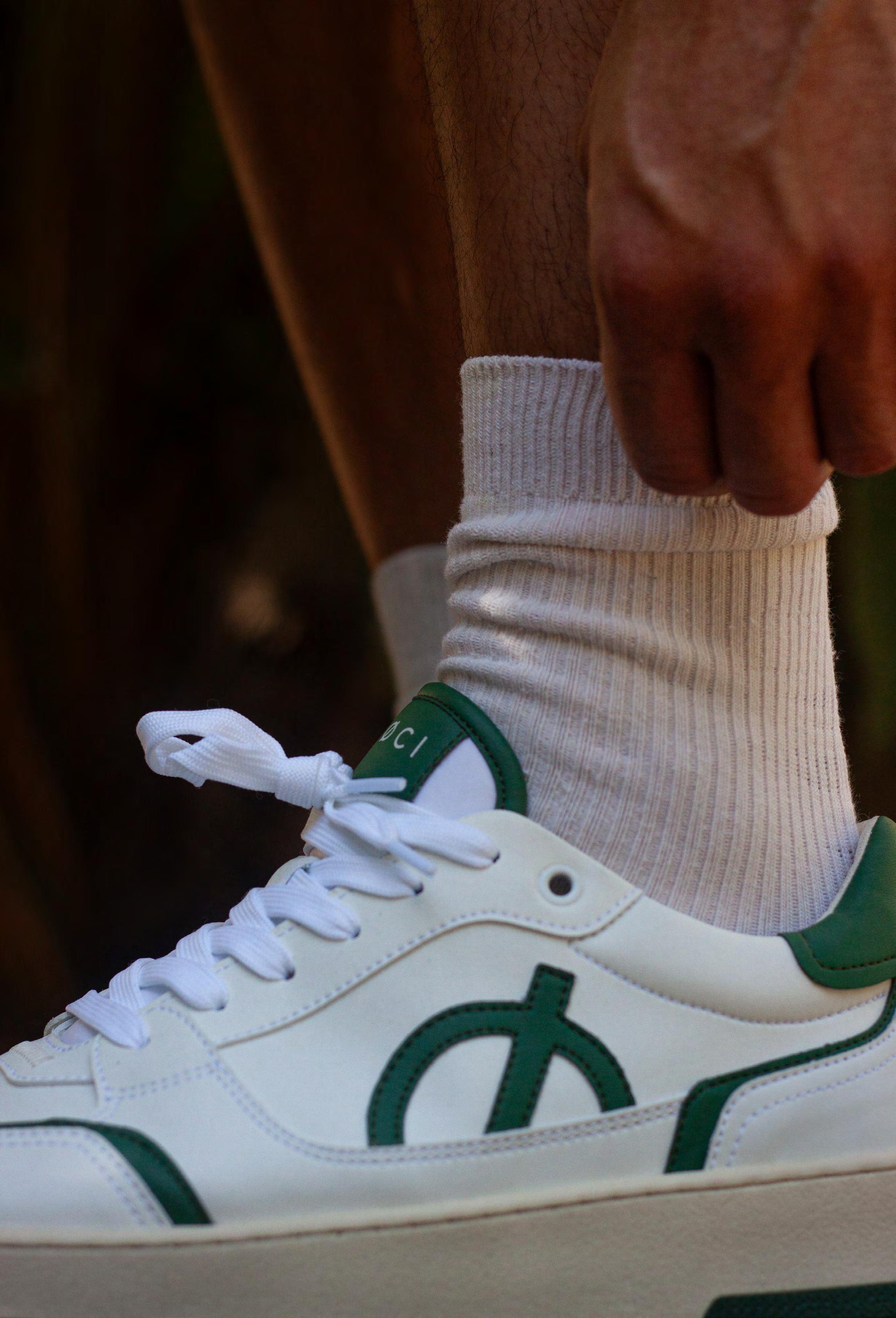
50 www.blackbusinessmag.com Sponsored Feature LØCI
SCALING NEW HEIGHTS IN PURPOSE-
IS
DRIVEN FOOTWEAR LLOYDS BANK BUSINESS
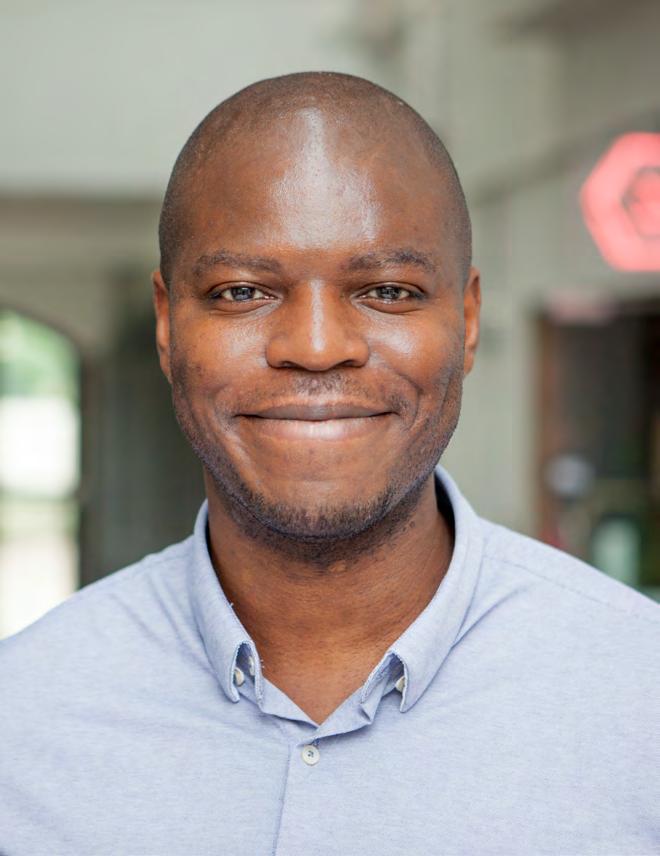
Read how two brothers and their best friends built a business from an exciting London start-up to the streets of LA in less than two years. By combining style with doing good, they’re proudly walking their own path.
LØCI is a flourishing vegan footwear brand with A-list celebrity customers. The company, co-founded by CEO Emmanuel Eribo, is a beneficiary of the Channel 4 initiative in partnership with Lloyds Bank. Read his thoughts on combining style with purpose, and the journey so far.
After working as an investment banker, Emmanuel was driven to sell something tangible where profit wasn’t the main motivation. His first foray into footwear was as cofounder and CEO of a global brand aimed at women.
However, he realised there was a disconnect on several levels and he wanted to establish and grow a business with more to offer. Joy, purpose and a passion for doing things differently resulted in LØCI coming to market in May 2021.
The name comes from the Latin for ‘place’ and everyone involved wanted to bring to life a clear vision that made them feel at home.
Using certified recycled materials, LØCI’s ethical approach to men’s
Meet Emmanuel Eribo, co-founder and CEO of LØCI - a beneficiary of the Black in Business initiative. It’s footwear but not as you know it.
and women’s footwear combines fashion, functionality and the feelgood factor.
The business also donates 10% of its online profits to wildlife and conservation charities - Re:Wild, SEE Turtles, Mission Blue and Sheldrick Wildlife Trust.
Building a business in public
Everyone in the business is proud and committed to doing things in an unconventional way. Emmanuel firmly believes in using a highenergy approach and self-belief to create great products and a unique story. This philosophy has seen them take great strides in a short space of time. While it’s an incredible story, Emmanuel considers the publicity to be a bit daunting.
“When you first start and a lot of people hear about what you’re doing, they tend to write off your chances. Being an underdog is a great place to come from and to prove people wrong. As you do better and better, you start building the business more in public, so it’s nerve-racking, and there’s added pressure,” he says.
Sustainability is never ending
Communicating LØCI’s sustainability progress is something else which needs to be done carefully and credibly. Emmanuel is well aware they’re only at the beginning of their
journey. They’re open and honest about what they do, and know there are always improvements that can be made along the way.
Producing and shipping footwear worldwide will never be a completely sustainable business, but LØCI is determined to keep challenging themselves and finding new ways to be even better.
Striving to be more sustainable is one of many challenges for Emmanuel and his team.
His philosophy is to expect every day to be tough but have fun finding ways to solve problems across every aspect of the business.
While he’s not one to celebrate milestones, Emmanuel was delighted when they won the 2022 PETA Award for Best Vegan Shoes, particularly as they didn’t submit an entry.
With 22 billion pairs of shoes going into landfill each year, LØCI is swimming valiantly against the tide.
Each pair of trainers features 20 recycled plastic bottles as well as recycled bamboo, foam and rubber.
All materials are ethically sourced, and they have an on-demand production system at their manufacturing site in Portugal to manage environmental impact, resulting in no unwanted footwear being discarded in landfill.
www.blackbusinessmag.com 51

Footwear is just the first step
Vegan footwear is the foundation to build a bigger brand in the future. The next phase is to gain a deeper understanding of their audience and community to see what new products they’ll be receptive to. For Emmanuel, it’s not about
bringing out lots of lines purely to increase LØCI’s bottom line. The questions he’s asking around new product development are more focused on how they can inspire more people through the brand’s story so far and make as much positive change in the world as possible.
Taking LØCI’s story to a larger audience
As one of five chosen beneficiaries from over 1,000 applicants, the Channel 4 initiative in partnership with Lloyds Bank will open new doors for LØCI in the UK. While it’s making waves worldwide, Emmanuel feels excited about being given £100,000 worth of TV advertising.
“We’re proud and blessed to have this opportunity with Channel 4. To have help growing in our home market is so important, and we’re super grateful. We’re going to enter so many homes via one of the most exciting and diverse channels in the UK.
I grew up watching Channel 4, and this is an amazing chance to tell our story,” he states.
Beneficiaries also get a six-month mentoring programme powered by DOES - a social enterprise that works with corporate partners to deliver business help to underprivileged communities.
Despite building two successful footwear brands, Emmanuel knows there’s always more to take on board and is relishing the opportunity.
“We try to stay humble. The most important thing is learning because we’re generalists.
I’m looking forward to hearing from experts in marketing and TV to enrich my knowledge in these areas,” he concludes.
Find out more at lociwear.co.uk
52 www.blackbusinessmag.com
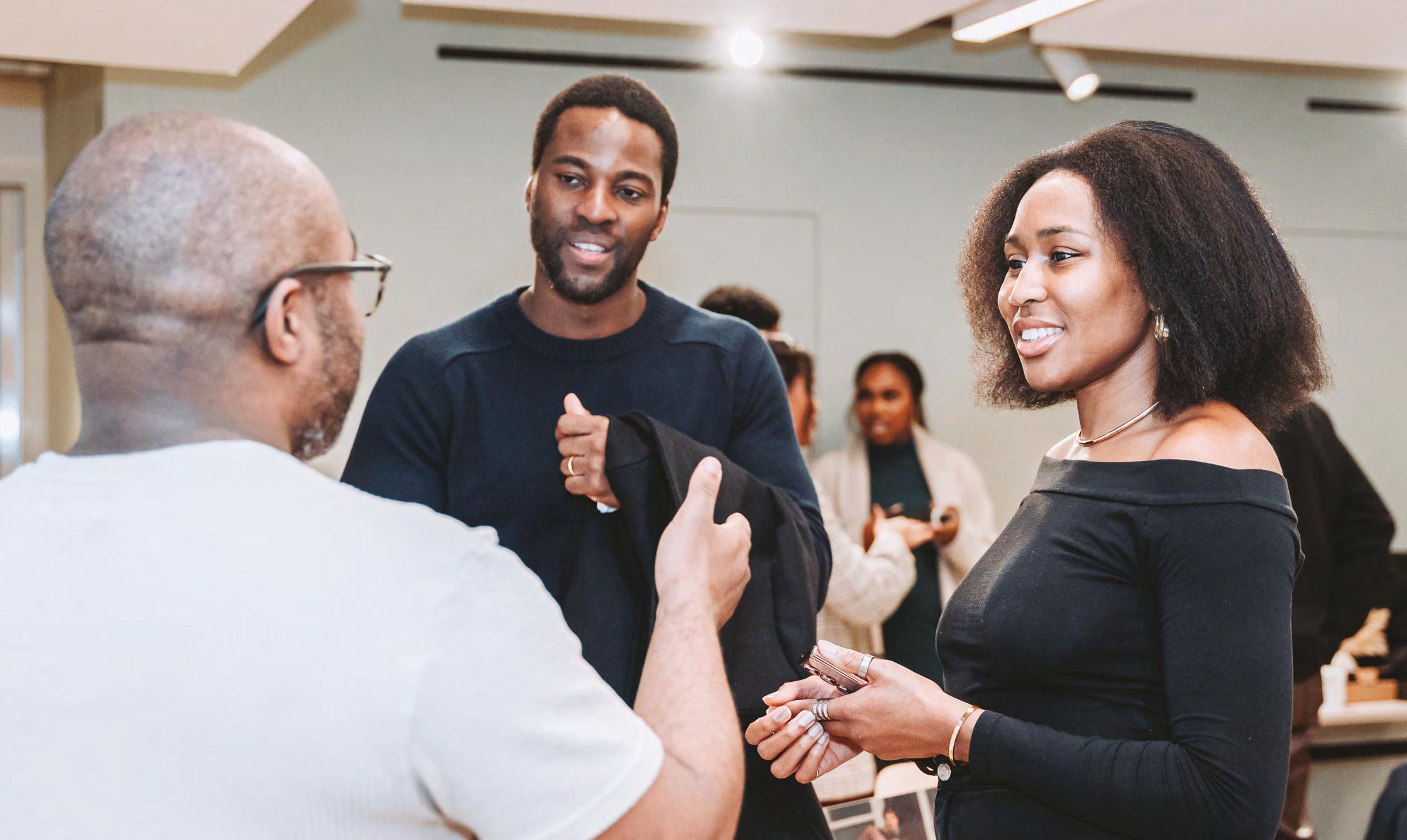
Empowering diverse founders to build, grow and scale businesses
Find out more about Foundervine Immerse and other ways Lloyds Bank is supporting Black-owned businesses at:
lloydsbank.com/blackbusinesses


www.blackbusinessmag.com 53
Authorised by the Prudential Regulation Authority and regulated by the Financial Conduct Authority and the Prudential Regulation Authority under Registration Number 119278.
The Brave Leader with David McQueen

David McQueen is passionate about developing leaders. A family man first, he is the husband of one, father of two and friend of many.
He has founded and co-founded several businesses, including Q Squared, Black Founders Hub, and Evermoor, and he sits as a non-exec on the advisory board of many companies offering support on leadership and financial competence.
As an executive coach, facilitator, board advisor, and international speaker, he has worked with corporate and non-profit organisations worldwide to develop their senior leaders and managers.
His clients include Facebook, Google, Shopify, Lloyds, HSBC, Mercedes Benz, Sky, BMW, Uber, Fidelity Investments, EY Foundation and Barnardos. David is also an Angel Investor, Mentor, and
54 www.blackbusinessmag.com
host of The David McQueen Podcast, a three-time TEDx speaker, who has published his book The Brave Leader and never works on a Saturday!
Reflecting on the evolution from founding businesses and offering leadership advice to becoming an internationally recognised speaker and author, David McQueen recalls a pivotal moment early in his life that illuminated his path forward.
At the age of 12, within the supportive environment of his church, filled with successful Black professionals from various fields, McQueen met Colin, who worked for the World Bank. This interaction was particularly impactful.
Colin shared his journey from an economics degree to a significant role at the World Bank, a narrative far removed from McQueen's understanding of leadership, which until then had been limited to biblical stories.
This conversation opened McQueen's eyes to the broader concept of leadership and the possibilities that lay beyond his immediate environment.
Colin's encouragement to pursue education and understand the world and its people, fundamentally shaped McQueen's professional direction.
This early dialogue about the potential and the encouragement to explore beyond academia played a crucial role in McQueen's career, setting the stage for his international work and reinforcing the idea that the world was full of opportunities.
You've emphasised the importance of developing leaders across various fields throughout your career. Could you share your core philosophy that guides your approach to leadership development?
Central to my philosophy on leadership development is first comprehending the essence of leadership itself. I firmly believe that leadership transcends mere titles; it's about function and action - how one guides people towards a goal or destination, the authority one holds, and how to garner trust and learn from those you lead. This understanding is critical.
Secondly, I advocate for a systemic approach to leadership. Leadership isn't just about individual charisma or the ability to motivate; it's about creating a system where leadership is embedded at every level. This means fostering an environment where everyone can lead, contribute to team dynamics, or even practise followership, which is vital. True leadership necessitates that followers are fully invested in the vision and direction.
Lastly, the concept of community is indispensable. Recognising that leadership impacts not just the organisation but also the wider community is key.
This involves a mutual learning process, whether through traditional methods like coaching and personal development or experiential learning. These three pillars - understanding leadership, systemic thinking, and community impact, form the
www.blackbusinessmag.com 55
foundation of my work in leadership development. They're not just theoretical concepts; they're practical principles that guide how I teach, lead, and influence others in the realm of leadership.
Reflecting on your collaborations with esteemed organisations like Facebook, Google, and Mercedes Benz, is there a specific project or undertaking that profoundly influenced your views on leadership or aided your development as a brave leader?
In 2020, I worked closely with a leading e-commerce company on a pivotal initiative aimed at advancing Black leaders within their corporation. This experience was not just transformative for the organisation, but it was a defining moment for me as well.
It was an opportunity to directly address and revise the ingrained narratives about hard work, especially those prevalent within Caribbean and African cultures that advocate for working "twice as hard to achieve half as much." My goal was to change this perspective, advocating for smart, efficient work over mere hard work, and emphasising the value of visibility, collaboration, and strategic thinking.
For instance, I met a young woman in sales who felt sidelined. By encouraging her to question established practices and collaborate more openly, she improved her sales figures and enhanced her team's cohesion and overall productivity.
It highlighted the critical importance of advocating for your work and ensuring it's recognised by others, thereby underscoring the need for a robust support network, including mentors, sponsors, and peers.
Moreover, understanding and navigating organisational power dynamics emerged as a crucial insight. This project highlighted the essential nature of contextual leadership - acknowledging that while some leadership principles may be universally applicable, their effectiveness is deeply influenced by the cultural and situational context.
This realisation led me to a more collaborative and nuanced approach, emphasising the importance of contextual understanding over the imposition of a one-size-fits-all leadership model. This shift enhanced my ability to engage effectively with diverse teams globally and reinforced the importance of courage and bravery in leadership, marking a significant evolution in my professional journey.
Given your experience across various cultures and communities, you've likely seen firsthand the challenges and opportunities that Black professionals and entrepreneurs face in leadership roles. Could you talk about the importance of representation and empowerment for Black professionals and entrepreneurs in leadership positions? Also, how can organisations better support and cultivate leaders to navigate systemic barriers and succeed in their careers?
56 www.blackbusinessmag.com
Starting with the essence of representation, it's vital but goes hand-in-hand with the alignment of values. I've witnessed individuals ascend to leadership across sectors, and not all resonate with me as representatives. It's crucial, especially in environments where, despite being part of the global majority, we're seen as a minority, to align with leaders who reflect our values and leadership ideals.
For me, personally, it's about paving the way for other Black individuals. I acknowledge my privilege and use it to mentor, sponsor, and introduce Black professionals to new environments, showing them both the highs and lows. This approach is crucial for empowering them to see beyond traditional narratives and envision themselves in leadership roles.
Additionally, the importance of selfreflection and community support is paramount. Many will possess exceptional qualifications, yet often feel like impostors. Addressing this involves forming mastermind groups, networking communities, and leveraging employment resource groups to share successes and best practices, highlighting the importance of self and collective empowerment.
On the organisational level, the reality of systemic barriers cannot be ignored. While I'm optimistic about progress, I recognise the institutional challenges that persist. My approach involves subtle yet strategic advocacy to promote change from within, highlighting the value of Black talent and the importance of understanding
cultural nuances. Organisations can play a significant role by fostering environments that support skill development, cultural awareness, and reciprocal mentoring, where learning and support flow both ways. Sponsorship, particularly from those in positions of power, is critical for advancing Black leadership. It's about intentional actions to recognise and elevate Black talent, ensuring they're given opportunities to shine and lead.
In essence, leadership is not just about holding a position; it's about creating pathways for others, challenging the status quo, and being the change you want to see. It's about organisations and individuals working together to dismantle barriers and build a more inclusive, empowering future for Black leaders.
What inspired you to write "The Brave Leader," and how have your experiences in leadership and mentorship influenced the insights and stories shared in the book?
The journey to writing "The Brave Leader" wasn't sparked by inspiration in the traditional sense. It was more about realising the potential to reach a wider audience through my book and podcast than I could in person. A poignant moment came when someone reminded me that my book would outlive me, cementing its significance and urging me to impart wisdom that would make my ancestors proud. This realisation propelled me to tackle the book with intention, focusing on encouraging more courage and less fear in leadership and challenging the conventional understanding of
www.blackbusinessmag.com 57
inclusive leadership. My experiences have shown me many are fearful of conflict, saying no, admitting they don't have all the answers, and recognising leadership as a systemwide responsibility.
My aim was to address these fears in a way that was neither overly academic nor overly simplified. The title, "The Brave Leader: More Courage. Less Fear. Better Decision for Inclusive Leadership," reflects this ambition, emphasising the need for leaders to be bold, resilient, agile, visionary, and ethical.
If I reflect on the dynamics of leadership within my own household, this illustrates how leadership isn't confined to the corporate world but is relevant to everyday life. My wife and I share the financial management of our home, an arrangement that speaks volumes about what I call distributed leadership.
While I might take the lead in certain aspects, my wife excels in managing the details with unparalleled precision. This underscores the book's message that effective leadership is about recognising and leveraging each person's strengths.
Influence also came from Caroline Criado Perez's "Invisible Women," which highlighted how many designs in our world ignore women's needs. This perspective on overlooked inclusivity pushed me to explore how leadership, hiring, customer service, and product design can all be more inclusive. Writing the book was a challenging, two-and-a-halfyear endeavour. Feedback from my
mentor helped me find my voice, making the book a true reflection of my insights into leadership and mentorship.
The book aims to spark conversations about being bold in a world that often sees boldness as aggressiveness, especially for women. It addresses navigating leadership in hierarchical and patriarchal cultures, advocating for a space where all leaders, can be brave. "The Brave Leader" is about distributed leadership, recognising and leveraging everyone's strengths, and it serves as a call to action for practical, inclusive leadership practices that can be adapted across different cultures and contexts.
How do you balance your commitments across various aspects of your life, and what motivates you to maintain a sense of work-life integration, especially with your commitment to never working on Saturdays?
My commitment to never working on Saturdays stems from my childhood experiences of Sabbath with my family, a practice that instilled in me the value of dedicating a day each week to rest, recharge, and spend quality time with my loved ones or in my garden.
This tradition has empowered me to be more intentional during my workdays, focusing on impactful activities and ensuring a meaningful work-life blend. This intentionality is crucial, as I aspire to leave a legacy defined by the positive impact I've made rather than the sheer volume of work I've accomplished.
58 www.blackbusinessmag.com

My guiding principle in life and work is the desire to make a meaningful impact on others. While I acknowledge that not everyone will view my actions positively, I own these outcomes as part of my life. Particularly, I'm outspoken about my marriage, proudly showcasing a successful, long-term relationship between two Black individuals - a narrative often underrepresented or challenged in society. I believe it's essential to celebrate and discuss our journey, complete with its highs and lows, as it reflects the authenticity and work inherent in any meaningful
relationship. This approach to life and leadership extends beyond my personal life to how I've raised my daughters, fostering an environment where they can be themselves and communicate openly.
The principles of leadership, communication, and values alignment that I advocate in my professional work are deeply rooted in my experiences as a parent and partner. These principles have been tested and refined within my own family and friendships, mirroring the advice I share in my professional
www.blackbusinessmag.com 59
engagements. Maintaining this balance requires a conscious effort to prioritise my health, spiritual balance, emotional intelligence, and overall well-being. Listening to my body's signals helps prevent burnout, ensuring I don't push myself to the point of exhaustion. My love for my work, coupled with the understanding and support of my family, allows for this balance. Travelling for work, sometimes with my wife, enriches our experiences and contributes to our shared journey.
Ultimately, my work is driven by the desire to impact positively and share my insights and methodologies with others. This desire, balanced with the rewards and recognition that come from my efforts, enables me to maintain a fulfilling and integrated work-life dynamic.
As we conclude, could you share what the future holds for David McQueen and "The Brave Leader"?
As I approach my 55th birthday in April, reflecting on my journey reveals a blend of life experiences - from music promotion and gospel singing to accounting and IT, among others. I sense another chapter, or perhaps a fourth career, on the horizon.
Specifically for "The Brave Leader," my vision is to expand it into a comprehensive system, a platform that extends beyond the confines of organisations, accessible to individuals, small businesses, and large corporations alike. I envision it becoming a part of the leadership
development ecosystem, akin to Simon Sinek's "Start With Why" or the Hogan assessments, but with a unique emphasis on inclusivity and representation, particularly for Black voices in leadership spaces.
The goal is to impact tens of thousands, if not hundreds of thousands, transforming "The Brave Leader" into a multi-million-pound venture that not only creates wealth but also profoundly impacts lives. Beyond this, as I turn 55, travel and exploration are calling. The desire to experience new cultures, places, and ideas while maintaining the flexibility to work remotely from destinations like Bali or Barbados is increasingly appealing.
Moreover, I'm drawn to the creative aspects of my beginnings. I wish to dive deeper into creative pursuits like photography, drawing, and artactivities that fulfil me personally and allow me to explore the breadth of my interests. This might even include taking sabbaticals to fully immerse myself in these passions.
In essence, the future for David McQueen involves nurturing "The Brave Leader" into a global, accessible leadership platform, embracing travel and cultural experiences, and indulging in creative endeavours, all while maintaining a focus on health, creativity, and making a lasting impact.
Find out more about David and his book The Brave Leader by visiting davidmcqueen.co.uk
60 www.blackbusinessmag.com

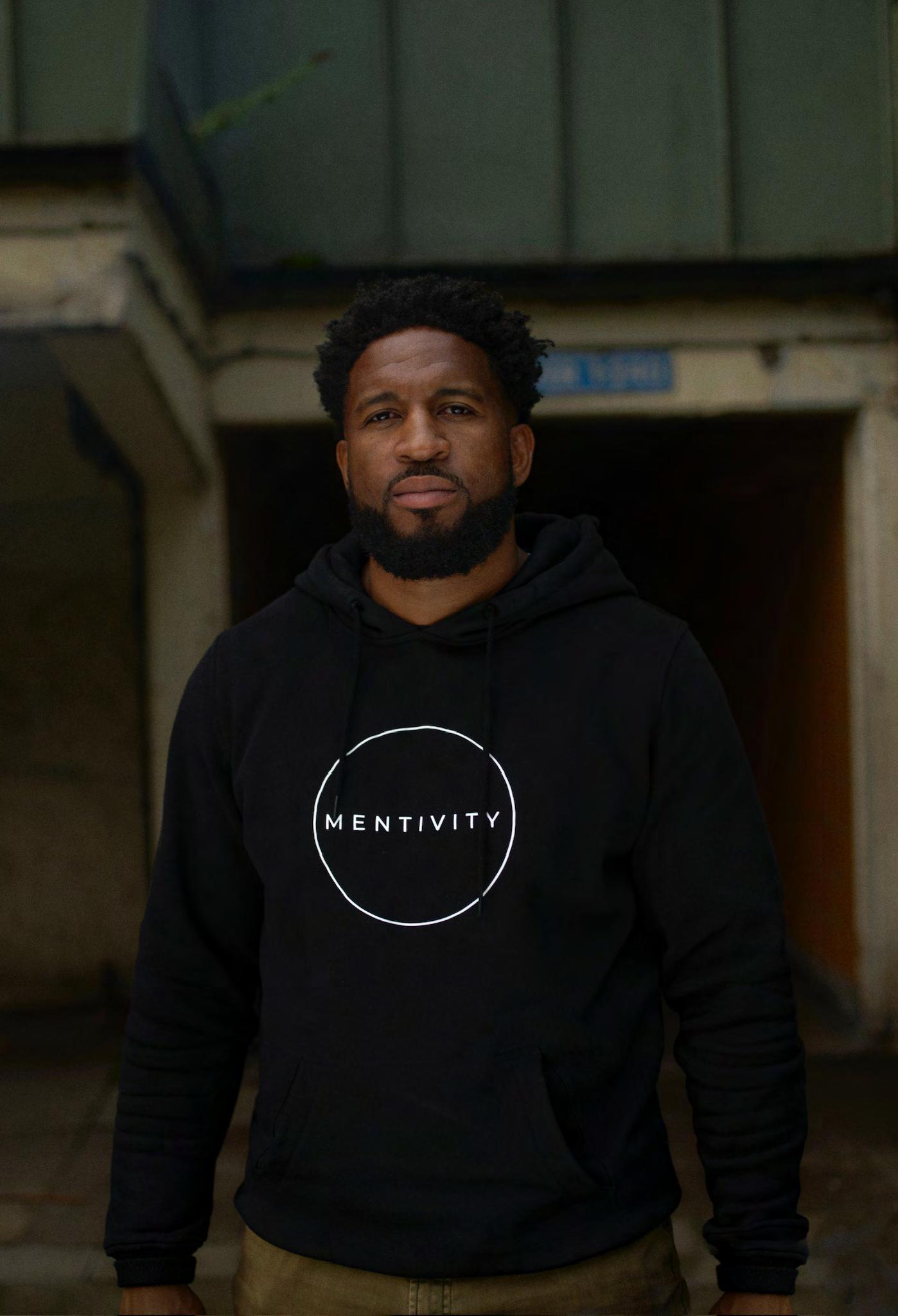
Empowering Futures with Sayce Holmes-Lewis
A Leadership Journey for Racial Equity and Social Change
62 www.blackbusinessmag.com
Sayce Holmes-Lewis is the CEO and founder of Mentivity, an award-winning alternative education provision and mentoring organisation based in London.
Established in 2016, Mentivity has positively impacted the lives of thousands of young people across London, Brighton, Barbados, Kenya, Uganda, and Zambia through its holistic approach to coaching and mentoring.
Recognised for excellence, Mentivity received the 'National Mentoring Programme of the Year' award at The National Mentoring Awards 2019 and the Mayor of Southwark's 2020 Civic Award for exceptional civic, educational, and community contributions.
Sayce's journey towards social justice and racial equity began after a traumatic encounter with the Metropolitan Police at the age of 14. Despite experiencing racial profiling and injustice, Sayce channelled his experiences into activism and youth advocacy. Leveraging his platform, he has initiated groundbreaking solutions such as training programs for law enforcement agencies on effective community engagement.
Sayce's passion for youth development stems from his professional football career, where he coached and nurtured accomplished athletes. With unwavering dedication, Sayce continues to champion underserved communities, earning recognition such as the 'Most Inspirational Person of the Year' award at the 2022 MBCC Awards and his appointment to the London Policing Board in 2023 by Mayor Sadiq Khan. Through Mentivity and beyond, Sayce remains a formidable advocate and voice for marginalised communities across London and the UK.
Your journey with Mentivity has been remarkable, impacting the lives of thousands of young people across multiple countries. What inspired you to establish this organisation, and how do you see it evolving in the coming years,
especially considering its expansion beyond London to places like Barbados, Kenya, Uganda, and Zambia?
I was motivated to establish Mentivity by the profound influence of several key figures in my life. My mum and first teacher, Jennifer, consistently demonstrated the importance of education and unwavering determination in her pursuits, serving as a beacon of resilience.
Additionally, mentors like Mr. Abdullah Ben-Kmayal and Mr. Devon Hanson, whom I encountered at the pivotal age of 14, played significant roles in shaping my ethos. Their collective inspiration spurred me to seek innovative approaches to my challenges.
They emphasised lifelong learning, the pursuit of passion, the importance of mentoring, and unwavering dedication to these passions despite adversities. It was from this mindset that Mentivity emerged.
I envision Mentivity evolving into a global movement, empowering communities to address systemic issues through collaborative efforts across generations. By fostering education, healing, and embracing joy in the process, Mentivity aims to effect positive change on a large scale, promoting intergenerational collaboration as a cornerstone of its approach.
Your deeply troubling experiences with the Metropolitan Police have shaped your advocacy work. Can you share more about how these experiences influenced your decision to initiate the solution-led training programme at New Scotland Yard and what outcomes or changes you hope to see as a result of this initiative?
My traumatic encounters with the Metropolitan Police in my youth fuelled my commitment to racial equity, social justice, and advocacy. At 14, I was assaulted by an officer while heading home from school in South East London.
www.blackbusinessmag.com 63
Despite clear evidence, the case was dismissed by the Crown Prosecution Service. Shockingly, I was later accused of assaulting the same officer and summoned to court at that young age. These injustices, along with over forty stop-and-search incidents, inflicted lasting psychological scars. Seeking support from my community, I grappled with PTSD and anxiety for nearly twentyfive years, with each police encounter reigniting the trauma.
In May 2020, while distributing food parcels for Mentivity mentees during the first COVID-19 lockdown, I was racially profiled and wrongfully labelled as a drug dealer by the Metropolitan Police under Section 23 of The Misuse of Drugs Act (1971). In response to the global demand for Justice for George Floyd and the Black Lives Matter Movement, I filmed and shared footage of my ordeal, gaining widespread attention on social media.
Building on this momentum, I initiated a pioneering training program at New Scotland Yard, collaborating with The Mayor’s Office for Police and Crime (MOPAC). This program aims to provide comprehensive training to the Metropolitan Police and City of London Police, focusing on effective engagement with the Black community regarding stop-and-search procedures. It also aims to deepen understanding of the historical context of racially biased and violent policing, stressing the critical need for increased empathy, genuine justice, and cultural competency.
Your background in professional football, coaching notable athletes like Reiss Nelson and Jadon Sancho, has informed your approach to mentoring and coaching young people. How has your sports experience influenced your youth development methods, particularly within Mentivity?
My journey in professional football, coaching incredible talents like Reiss Nelson and Jadon Sancho, has profoundly shaped how I mentor and
coach young people through Mentivity. It's more than just teaching skills; it's about instilling the same passion, resilience, and teamwork I've witnessed on the pitch into every aspect of their lives.
Every setback is an opportunity to grow in sports, and I carry that philosophy into Mentivity. We don't just focus on victories; we celebrate the journey and the lessons learned through challenges and setbacks. These experiences on the field have taught me the power of discipline and determination, values I pass on to every mentee.
Like coaching, Mentivity is about unlocking potential, fostering self-belief, and guiding young individuals toward greatness. It's about being there in moments of doubt, cheering them on in moments of triumph, and reminding them of their worth when the world seems against them. In essence, my experience in sports has given me a playbook for life, and I'm honoured to share those lessons with the next generation through Mentivity.
Your commitment to racial equity and social justice is evident in your personal experiences and professional endeavours. Could you elaborate on how your passion for youth development intersects with your advocacy for racial equity and how you navigate addressing these issues within the context of Mentivity's work?
My commitment to racial equity and social justice burns within me, igniting my personal journey and professional mission. It's a fire fuelled by the struggles and triumphs of my own experiences, a relentless drive to ensure no young Black person endures the injustices I faced.
At Mentivity, my genuine passion for youth development intertwines seamlessly with my unwavering advocacy for racial equity. They're not just parallel tracks but intertwined threads weaving the fabric of our futures. When we empower young Black individuals, we're not merely shaping
64 www.blackbusinessmag.com
their destinies; we're sculpting the very essence of our communities.
But let's be honest - talk of youth development without confronting racial equity is like building houses without foundations. Too often, systemic barriers stifle the brilliance and potential of young Black minds. That's why, within Mentivity, we charge headfirst into the heart of this issue.
We carve out spaces where young Black souls feel not just seen but celebrated. We arm them with the tools, support, and mentorship they need to overcome the hurdles constructed by a society that all too often fails to recognise their brilliance and their very existence.
Above all, we empower them to rise as architects of change and challenge the foundations of injustice that seek to confine them.
By confronting the harsh realities young Black people face, we can hope to dismantle them. And in doing so, we're not just forging a brighter tomorrow for them; we're forging a better future and world for us all.
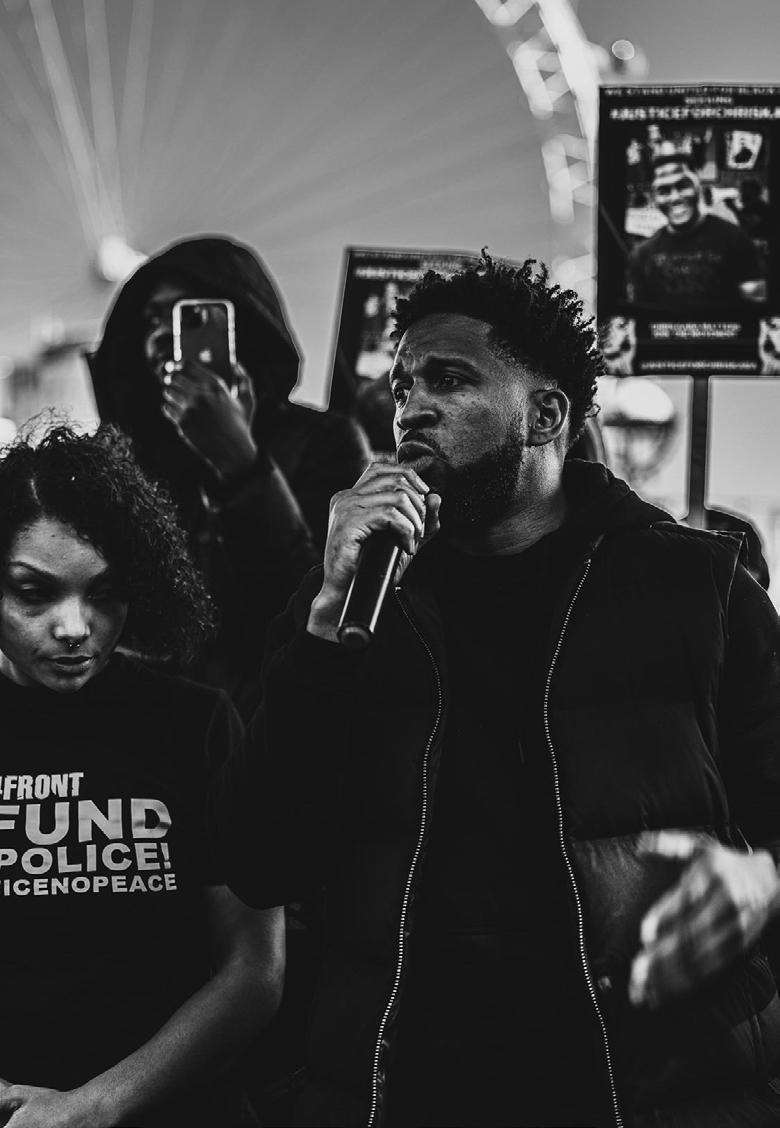
Your recent appointment to the London Policing Board reflects a significant step in your advocacy journey. How do
you envision leveraging this position to address the systemic issues highlighted in Baroness Louise Casey's report, and what strategies do you plan to implement to ensure accountability and meaningful change within the Metropolitan Police?
My appointment to the London Policing Board is not just about me; it's a testament to the power of perseverance and the belief that change is possible.
As the youngest board member and a passionate advocate for racial equity, I stand at the intersection of lived experience and unwavering determination to realise systemic change.
Through my work at Mentivity, I've witnessed the struggles and aspirations of my community first-hand. I've seen the faces of young Black individuals yearning for a fairer, more just society. And now, as a member of the London Policing Board, I carry their hopes and dreams with me.
I refuse to be just another face in the room. I'm here to shake things up, challenge the status quo, and inspire others who look like me to step into positions of power and be unapologetically authentic.
With every decision I make and every strategy I implement, I'll be guided by a burning passion to address the systemic issues highlighted in Baroness Louise Casey's report. I'll work tirelessly to hold the Metropolitan Police accountable, demand transparency, and push for meaningful change.
Most importantly, I'll be a voice for those who've been silenced for too long. I'll use my platform to uplift, empower, and inspire young Black individuals to believe in their own power to effect change.
Together, we'll forge a path towards a future where justice isn't just a dream—it's a reality for all.
For more information, visit mentivity.com
www.blackbusinessmag.com 65
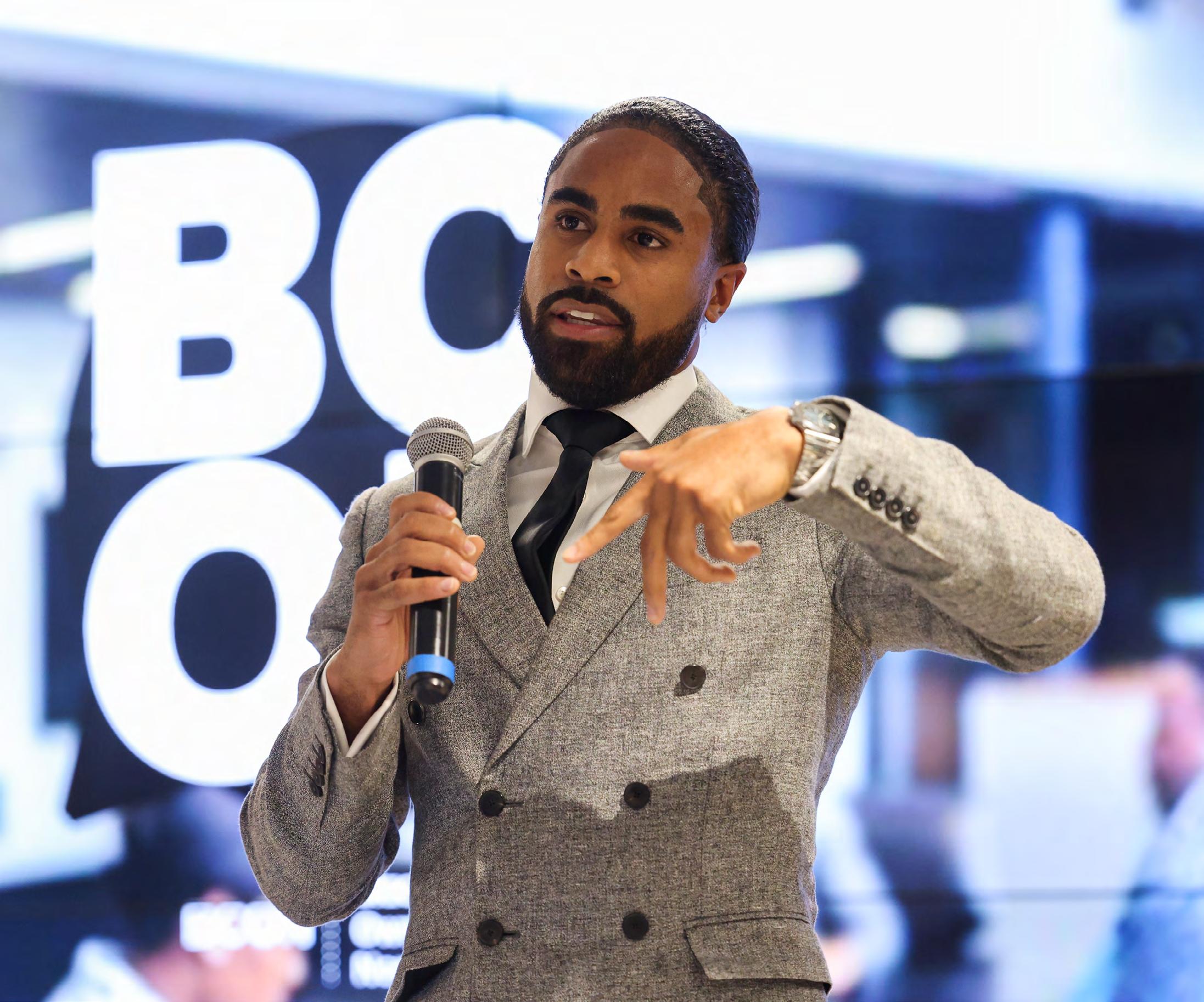
Business and Philanthropy with Serial Entrepreneur Shaun Sookoo
Shaun Sookoo is a serial entrepreneur with a mission that transcends mere business success. With an impressive portfolio boasting nine directorships across diverse sectors and a track record of creating over 120 jobs, Shaun is not just about profit margins.
He's about making a real social impact. From food manufacturing to non-profit endeavours, his work spans industries and continents, with a combined
group turnover exceeding £15 million. Yet, his dedication to fostering inclusive environments and supporting education projects in Jamaica, Gambia, and the West Midlands truly sets him apart.
You've achieved remarkable success in growing multiple businesses across various sectors. Can you describe some pivotal moments or decisions in your entrepreneurial journey that have led to your success?
66 www.blackbusinessmag.com
A pivotal decision and moment for me in my business journey was leaving London and moving to Birmingham. At the time, I was at a crossroads in my business, Winny’s Kitchen, where I needed to move to scale as I didn’t have enough money to afford the right-sized premises down South. This gamble paid off. Since then, I was able to scale that business and invest profits into starting another business (Food Division), which has generated profits to start other companies within my group.
How do you balance the demands of running multiple businesses with your philanthropic endeavours, and what motivates you to invest in education and community development?
I have assembled a solid senior management team, all with capabilities in their respective fields far greater than mine. It has enabled me to scale faster, leverage their expertise, and free up time to consider other opportunities, including my philanthropic endeavours. The core motivation of everything I do is social impact.
Job creation, developing raw untapped talent, and facilitating and enhancing education opportunities for children from lower economically developed backgrounds, are the key areas focused on through my organisation.
As someone deeply committed to building a more inclusive and equitable professional landscape, why must businesses develop and nurture talent, especially among underrepresented groups?
We must try our best to plant seeds of hope in underprivileged environments. There is talent EVERYWHERE. The issue is that most won’t feel it’s possible if all the examples they see around them are examples of mediocrity or people settling for a life far below their potential. If we work harder to unearth talent in these areas, these individuals will flourish and become beacons of hope within their communities.
Given your track record of success, including nine directorships and creating over 120 jobs, what advice would you give to other business owners and entrepreneurs on being influential leaders?
Any scaling business is only as good as the team that can be pulled together to drive it. This team will only perform as well as the leader can lead. When building a team, I think it’s vital to trust your judgment and allow as much autonomy as possible.
Empowering people to take the reins despite the chance of making mistakes is one of the hardest things to do as an entrepreneur, but it is also one of the most important.
The wins should then be celebrated, the losses should be dissected and learned from, and these lessons should also be celebrated. In my experience, great staff are just as motivated by responsibility and trust from their leadership as they are by money.
What does the next five years look like? Are there any new ventures in the pipeline?
More of the same for me. In the last two years, I have honed in on my identity as an entrepreneur and my mission to significantly impact the communities around me and internationally.
God willing, if I can continue at the rate I have been scaling as of late, I will be able to create many more new jobs, support 100s more children, and potentially launch a new start-up. The final focus in the next five years is writing.
My first book, “45 Things I Didn’t Learn at School”, will be published shortly, and I’d like to create more practical learning materials to be distributed through my non-profit organisation.
Find Shaun on LinkedIn @shaun-sookoo
www.blackbusinessmag.com 67

From McDonald’s Assistant to Franchisee
The
Interview by Lizzie Griffiths
Starting in 2010, his passion for business was ignited, leading him to excel in various roles before achieving franchisee status in Dagenham. Despite the pandemic challenges, Joey’s resilience shone through as he expanded
68 www.blackbusinessmag.com
Joey Antwi-Kusi’s journey from McDonald’s Customer Care Assistant to Franchisee exemplifies dedication and entrepreneurial drive.
Inspiring Journey of Joey Antwi-Kusi
into healthcare entrepreneurship, earning him recognition as one of the UK’s youngest franchisees in 2023 at age 35.
Beyond his business success, Joey remains a committed McDonald’s ambassador. He contributes to his local community, pursues his passion for writing children’s books, and cherishes time with his family.
Joey, your journey from starting as a Customer Care Assistant at McDonald’s to becoming a franchisee is inspiring. Can you share what initially drew you to entrepreneurship and how your experience at McDonald’s shaped your path?
I knew I wanted to run my own business from a very early age. Working as a customer care assistant at McDonald’s fuelled that ambition. I remember being impressed by the franchisee’s impact on the business and the local community.
I knew I wanted that for myself. That desire set me on a gruelling 10-year journey that has brought me to where I am today. The values of teamwork, leadership and commitment to quality instilled in me as a customer care assistant at McDonald’s continue to guide me in my journey as a franchisee.
For me, that full-circle moment makes me incredibly proud and inspires me to continue building on my legacy.
Looking ahead, what are your professional and personal plans and aspirations? Are there any new ventures or projects on the horizon that you’re particularly excited about?
I am looking forward to life and working as a McDonald’s franchisee. The industry constantly
evolves, requiring a lot of focus to scale the business. In short to medium terms, I aim to run one of the largest franchise organisations in the UK, so I have my work cut out. I dream of having the international licence to operate a McDonald’s franchise in SubSaharan Africa.
Picture this: 350 McDonald’s restaurants serving delicious burgers to millions of Africans daily across cities like Accra, Abuja, Abidjan, Nairobi, Yaoundé, and Bamako. The thought of that incredibly excites me. Maybe let’s check in 20 years from today to see how I have got on.
You’re also a children’s book author who prioritises family time. What advice would you offer to aspiring entrepreneurs seeking work-life balance?
Someone told me that when you’ve lived your life to the end, your kids will be the only ones who will remember that you worked long hours. And that struck a chord with me.
By all means, chase your dreams and aspirations, but that has to be balanced with making time for the important things in your life. Entrepreneurship is a timedemanding journey.
The most successful entrepreneurs manage their time the best. You must be able to say no to activities that do not align with your priorities. I have found that if you set clear boundaries between work and personal time, it is possible to be successful at both.
Becoming one of the youngest McDonald’s franchisees in the UK at age 35 is a remarkable achievement. How do you envision leveraging your role to strengthen your ties with the local community?
My role as a McDonald’s franchisee is an incredible opportunity to be a positive force within my local community and the Black and ethnic minority communities across the UK.
I am excited about leveraging this unique position to amplify opportunities to support people, whether sponsoring a U12 football club in my local community, leading an entrepreneurial academy for my local school’s alumni, or simply participating in community events. The most exciting part of my journey is that I get to make an impact in the lives of others.
Transitioning from the Royal Bank of Scotland’s graduate programme to global management consulting at Accenture is quite a shift. How did your roles in the banking sector prepare you for the challenges of entrepreneurship?
I loved working in a retail bank. It taught me many unique skills which proved invaluable as a management consultant. As a retail banker, you always think about the customer first:
“How will my decisions impact the customer journey positively?”
My experiences working in a retail bank allowed me to always put the customer at the heart of my business decisions. This is important both as a management consultant and an entrepreneur, because both roles demand that you constantly solve problems to add value. And if you always prioritise your customer, you tend to get better outcomes.
For more information, follow Joey on Instagram @myjoey
www.blackbusinessmag.com 69
M making the jump from Teacher to High Fashion Sportswear entrepreneur
Interview by Lizzie Griffiths
Kayleigh Benoit is the dynamic founder behind the award-winning fashion brand, BIND London.
But Kayleigh is more than just a fashion mogul: she's a multifaceted entrepreneur with a passion for wellness, education, and empowerment.
With a decade-long career in education, Kayleigh's journey from Teaching Assistant to leadership exemplifies her dedication and drive. In 2019, Kayleigh ventured into the fashion world, merging her fitness and hair industry expertise to create BIND London.
This high fashion sportswear brand offers headwear that protects against sweat, heat, and moisture for all hair types and textures. Despite the challenges of the pandemic, Kayleigh's brand successfully launched in 2021, garnering acclaim from Forbes, The Guardian, and BBC Radio London.
Beyond fashion, Kayleigh is a sought-after speaker, sharing her
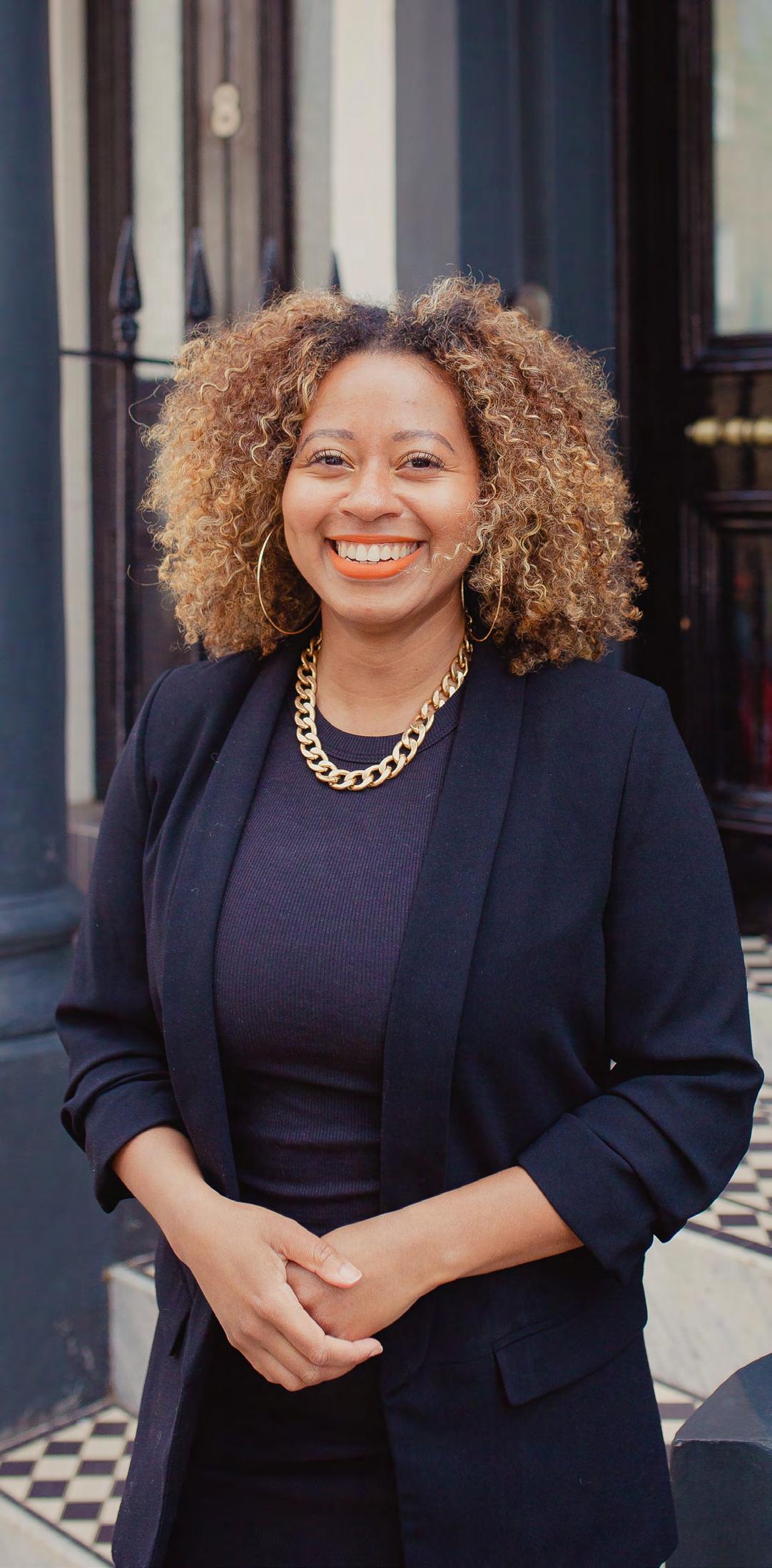
70 www.blackbusinessmag.com
entrepreneurial journey and expertise with organisations worldwide. She's a prolific writer, blending her English teaching background with fashion insights to inspire new business founders and students.
Kayleigh's commitment to inclusivity extends to her hybrid health and fitness community, where she empowers individuals to upgrade their nutrition, fitness, mindset, and goals.
Your success in raising over £10,000 for BIND London during the pandemic is impressive. Can you walk us through your challenges and how you navigated them to launch your brand successfully in 2021?
I went down the crowdfunding route. I had yet to learn about crowdfunding, but created an eightweek execution plan. The pandemic changed everything! We were locked down in March 2020, and all plans were postponed. I posted a video on social media and declared I would crowdfund anyway. Giving myself only twelve days to prepare, I chose to go live on May 1st, 2020. I had no products made, not even any samples! Zero budget. I had some basic graphics and a big mouth to promote loudly!
Everyone was online, so my goal was to be omnipresent and to get in people’s faces (virtual faces!).
All the challenges I faced until the launch (there were numerous!) gave me a backbone and resilience very early on. I learned how to work with what I currently have, and with limited resources, you can become highly resourceful. I use this principle even today.
The name BIND London is deeply symbolic, representing the act of tying together and uniting people. How does this concept of unity influence your approach to leadership within the company, and how do you foster a sense of cohesion and belonging among your team?
Before BIND London (“BL”), I was a secondary teacher on the leadership team with no prior business experience! BL has a five-piece core collection (headband, headwrap, headscarf, hijab and durag).
The pieces are individually named after a UK POC who has made a significant impact. Community is the blood flow of BIND London. A big part of BL’s journey has been in my raw documenting of everything on video since 2019.
I lead by example. I am very open and vulnerable in the community and online, documenting everything in real time. My view of leadership isn’t to say, ‘I’m up here, and you’re down there’. It’s to say, ‘I’m here alongside you, experiencing the same pain points. Let’s create something special together, and the community will feel they are along for the ride with me.’
Your decision to leave your full-time teaching job to pursue BIND London reflects a significant leap of faith in your entrepreneurial vision. Can you elaborate on the challenges you faced during this transition, and what advice would you offer aspiring entrepreneurs considering a similar career shift?
I cannot stress enough that it was a transition, and not a leap from employment, to working for myself. Besides the obvious things like putting
www.blackbusinessmag.com 71
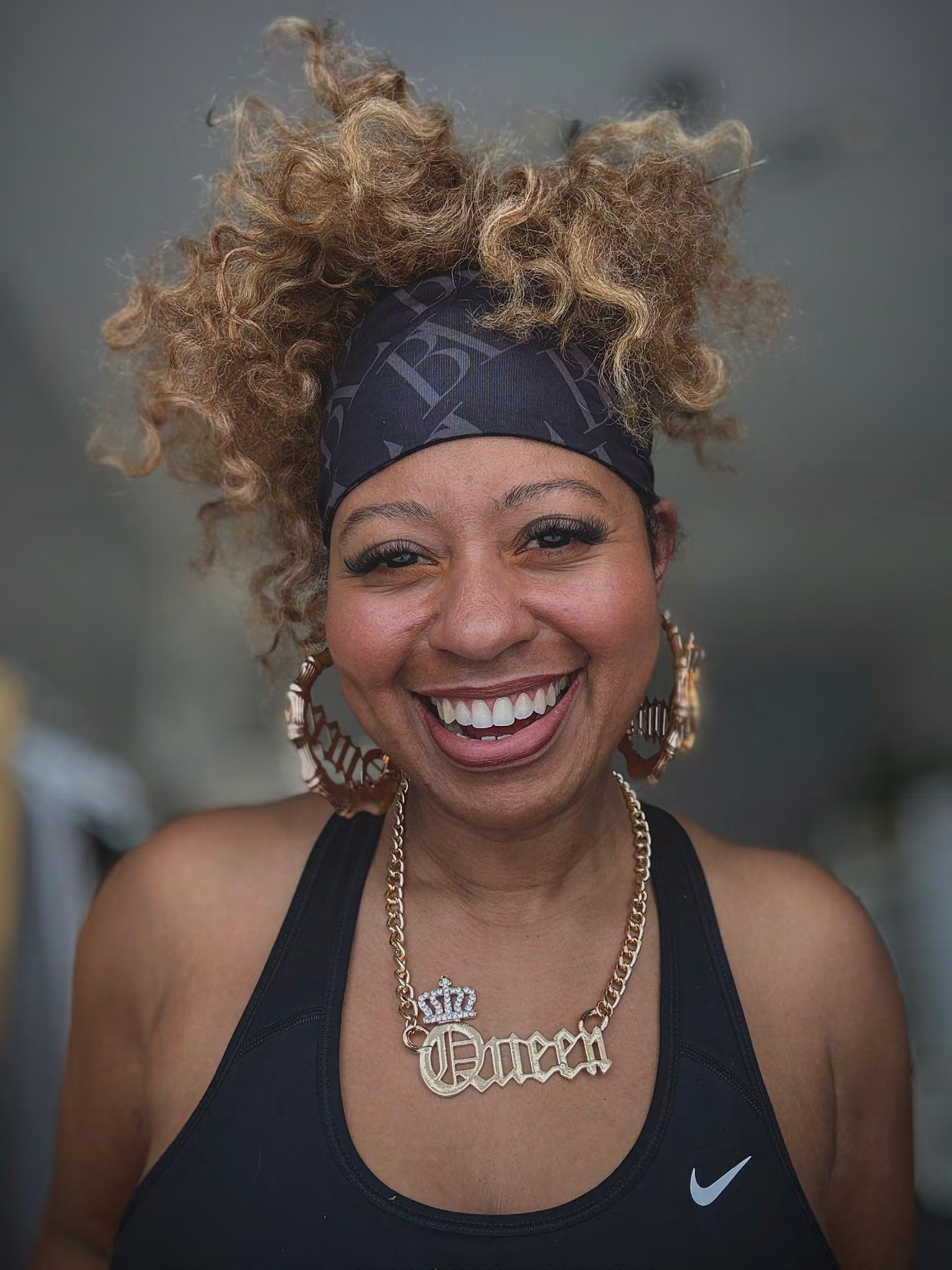
together an emergency fund, many other components exist. I left fulltime teaching six months before the pandemic and transitioned to flexible supply teaching part-time so that I wouldn’t have to do any planning and marking.
This was now my business time. During the pandemic, I freelanced as a Literacy Consultant for an
education charity in West London, which immensely helped me gain leadership experience. I know many people hate their 9-5 jobs, which I can relate to.
However, I still had the mindset of getting promoted and soaking up all the free courses and training I could, as they were transferable skills that could help me when I left. My mindset
72 www.blackbusinessmag.com
was: I’m going - what am I taking with me? Each piece of BIND London's collection is designed with inclusivity, style, and functionality.
How do you ensure that your designs resonate with your diverse customer base, and what role does customer feedback play in shaping your product development process?
Initially, the idea was a headwrap brand. I recently learned how to wrap my hair and struggled with my natural curls at the gym. I trained five times a week and was experiencing breakage from the sweat, drying out my hair.
I then decided to have a collection of pieces instead of one product with a range of coverage. I designed the headband, and then the hijab, headscarf, and durag were designed last.
It’s thoughtfully designed not only to be gender fluid but also to allow everyone to comfortably wear at least two pieces, eliminating any ‘token’ product.
When training, all pieces are sweat wicking to protect all hair types from sweat, heat, and moisture.
With our latest item, our DiNA headband, the community voted for this piece to be released first over social media, letting them know they are part of the process.
DiNA XXIV headband is the first piece relaunched in your REVELATIONS XXIV collection. Can you share details of the relaunch and what led you to relaunch this particular product?
REVELATIONS XXIV collection will see all pieces relaunched and revised slightly, expanding with more stock and colourways.
One thing I learned from BL’s soft launch in 2021 was to release each product individually. The DiNA headband was a bestseller, and many of our customers built trust in the products from the headband and purchased the other pieces.
Our USP and niche are to serve all hair textures and encourage more exercise without compromising our hair.
A vast mainstream fitness brand launched a rival product recently, challenging us as a smaller independent brand.
When they were described as ‘pioneering,’ a Black woman had been working on this concept before. I trust the community to know that BIND London can uniquely serve their pain point because I am my own customer.
This is a brand for the culture.
Instagram @bindlondon
For more information visit bindlondon.com
www.blackbusinessmag.com 73
Reshaping London's Property Landscape
Kazeem
Alli-Balogun

Kazeem Alli-Balogun, known widely as PropertyByKazy is a visionary property developer renowned for his high-end property flips in London, is renowned for his meticulous attention to detail and ability to create exquisite living spaces.
From humble beginnings in the Shisha business, Kazeem's journey has evolved into a successful venture into property development, marked by over £20M in completed deals and £1.5M raised in private funding, showcasing his unwavering commitment to excellence.
As the co-founder of SureRents, a thriving rent-to-rent company targeting young working professionals, Kazeem's entrepreneurial drive knows no bounds. His transition into property development reflects a deepseated desire to curate homes that resonate with individuals' lifestyles and aspirations.
With aspirations to surpass a Gross Development Value (GDV) of £7M, Kazeem's journey embodies a relentless pursuit of growth and empowerment, reshaping London's property landscape and inspiring others.
As a property developer focusing on high-end finishes and valueadded projects in London, could you share some pivotal moments that led you to pursue property development as your primary focus?
Being in the industry for over 12 years, I have seen vastly different markets: sellers’ markets, where there are open houses and bidding wars with properties selling way over asking prices, and buyers’ markets, where many properties sit on the market for a long time struggling to sell.
74 www.blackbusinessmag.com
The one consistent thing I realised is that a quality product will set you apart from the competition and always ensure you can sell for a reasonable price.
I want to be like the Louis Vuitton of refurbishments. They don’t sell their products, and if you want their products or the PropertyByKazy finish, you will pay the asking price, as there are no sales and limited supply.
Your passion for helping others navigate the property industry is evident through your presence on social media. What advice do you have for aspiring property developers, especially those looking to enter the London market?
Significant barriers to entry exist when it comes to capital requirements, which can seem daunting and sometimes make people think it's not possible for them. However, like any big task, it's best to break it down into mini, bite-size, more achievable goals.
In addition to a realistic analysis of how far you are from being able to enter the market, download your credit report, talk to a broker, and speak to all your contacts. If you don’t know how far away you are, you will also not know how close you are, and sometimes you are a lot closer than you think.
You can also use many creative strategies to get a foothold in the London market and build relationships. For example, in deal sourcing, you may not have the capital to buy yourself, but if you learn how to analyse deals, package them, and sell them, not only will you make a significant
financial return, but you will also build relationships with other property investors and build essential relationships.
What strategies have you used to navigate the complexities of property flips and project management in a competitive market like London?
You make your money when you buy. This sounds backward because you would think you make the money when you sell at the end, but the money is made on day one. If you buy at the right price, you can afford to make a few missteps throughout the project.
Live in the numbers. Let the numbers determine whether you should proceed with a project. Start with an accurate GDV based on strong, similar, comparable properties.
Then, deduct your sales cost, purchase cost, finance cost, build cost, and lastly, your required profit. That will leave you with your maximum bid for any potential purchase.
Particularly in a slower market, you cannot rely on the market to help you make money. You need to buy smart and have a realistic strategy to add value.
Your journey includes cofounding SureRents, a rent-torent company catering to young professionals. What lessons did you learn from this venture?
Co-founding a rent-to-rent business, which was a sevenfigure turnover business at its peak, taught me a lot. Primarily around
staffing, I tried to do too much early on, creating industry bottlenecks. If I had a magic wand, I would have outsourced more tasks earlier to allow me to focus on working on the business rather than in it.
Despite stepping down in early 2020, the experience and contacts I made building the brand over five years were invaluable to future ventures.
What do you have planned next for PropertybyKazy?
I would like to continue doing what I love: creating beautiful homes. I bought five new properties in February and I want to increase the volume this year.
Aside from this, I have recently taken on another 30 new members into the PBK community, and it has been going from strength to strength with a host of success stories.
These range from our youngest member buying his first investment property at 19 to two members making over six figures in their first deal, and others doing their first project with a JV partner they met in the group after years of procrastinating.
I would like to help as many people on their property journey as possible, whether through my social media, the PBK community, or live events. I look forward to hearing everyone’s success stories.
Follow PropertybyKazy @propertybykazy
For more information, visit propertybykazy.co.uk
www.blackbusinessmag.com 75
Building Trust, One Relationship at a Time

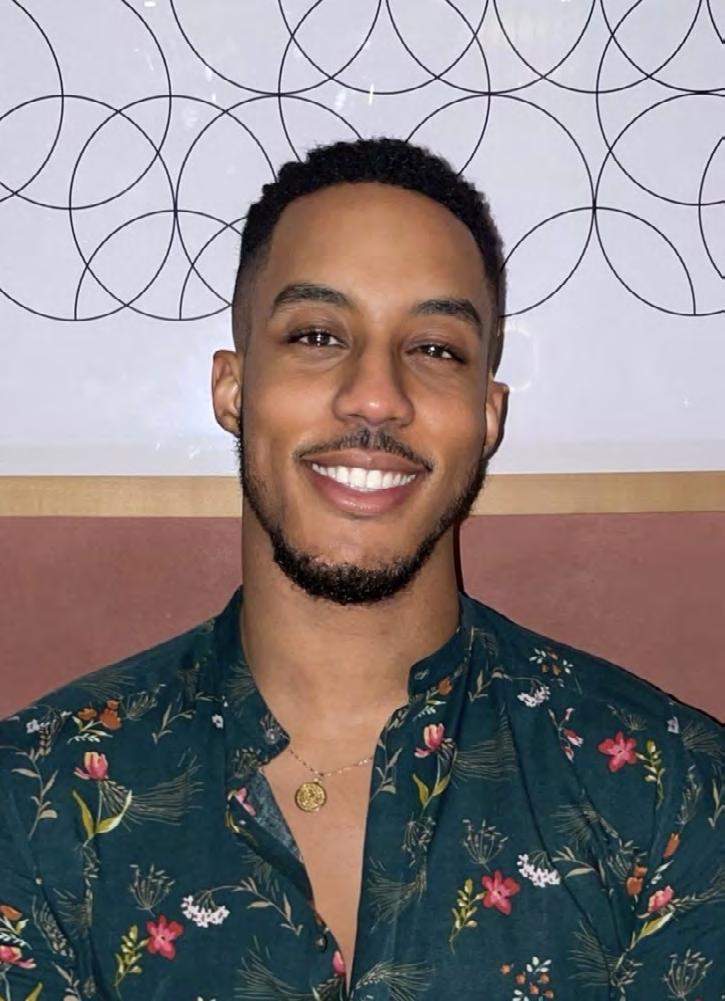
His journey from a decade in highstreet estate agencies to launching his venture just before lockdown is inspiring. Having observed the industry's emphasis on numbers
over personal connections, Tobias set out to revolutionise the landscape with a business model rooted in emotional intelligence.
Drawing inspiration from his
Caribbean heritage and the names of his parents, Alexander and Rose, Tobias infuses his agency with a uniquely personal touch.
76 www.blackbusinessmag.com
Tobias Alexander Rose is the visionary founder of Alexander Rose Estates.
The result? A refreshing approach to estate agency that prioritises relationships over transactions, earning Alexander Rose Estates a string of glowing 5-star Google reviews and a stellar reputation across Stratford and East London.
Tobias, congratulations on the success of Alexander Rose Estates. Can you share with us what inspired you to start your own estate agency business and how your approach differs from traditional high-street agencies?
I started my own business after recognising an urgent need to fill a gap in the market, where estate agents were viewed as one of the least trusted professions in the UK. Working for several high-street agents in my career, I soon learned that numbers meant more than names, and that was never me and, therefore, is never us.
My business is personal, and we pride ourselves on being honest, understanding, and having a genuine interest in the people we work with and their aspirations, enabling us to foster some great relationships, resulting in almost all of our business coming via word of mouth.
Your emphasis on a more personal approach to estate agency is evident in the glowing 5-star Google reviews and your healthy track record in Stratford and East London. What are the fundamental principles or strategies you've implemented to cultivate this personalised experience for your clients?
Being relatable is critical. People do business with people they trust, and you only earn trust once you can be related to.
With that in mind, we like to make our clients feel like part of the family. After all, the Alexander Rose Estates brand is a homage to my Caribbean parents, 'Alexander' and 'Rose,' and these values are at the heart of all that we do, from my family to yours.
What role does emotional intelligence play in your leadership style and decisionmaking process as a business owner? How do you balance your clients' emotional needs with the practical demands of running a successful estate agency business?
Emotional intelligence has always been one of my most significant attributes, in business or outside of it. Of course, we have targets to hit to enable the company to grow, but knowing how to deal with clients going through divorce, expecting their first child, or dealing with a loss is where relationships are nurtured and maintained.
We earn our fees and get recommended, because my business values the names more than the numbers.
The COVID-19 pandemic presented unprecedented challenges for businesses, particularly in the real estate sector. How did you navigate the uncertainties of lockdown shortly after founding Alexander Rose Estates, and what lessons did you learn from that experience?
I'll be honest, it was a terrifying time. I wasn't eligible for any loans or furlough schemes, so I had to go out there and make it happen. Do you remember the scenes of an empty Trafalgar Square, Oxford
Street and Piccadilly Circus? I was outside with my mask, gloves, hand sanitiser, and gimbal, shooting content and touting for business when everyone else was indoors. I'd reach out to landlords via specialist portals, as I knew their agents couldn't service them, and I'd use their keys to rent their properties out right from underneath them.
Proactivity was my most prominent teacher, and people still needed to move as the lockdown had forced people to live together or drive them apart!
With the real estate market constantly evolving, what are your plans for the future of Alexander Rose Estates?
Each year of my business has followed a theme, and the theme for this year is Growth. We have implemented some significant changes that will better serve our clients and maintain our strong footprint in East London, while raising awareness that we are no longer the new kids on the block but mean business, personally.
This year, I'd like to see us in the room with developers, getting exclusivity on new projects, and building strong partnerships that will benefit us both and stand the test of time.
For more information visit alexanderroseestates.co.uk linkedin.com/in/tobias-alexander Instagram @alexanderroseestates
www.blackbusinessmag.com 77
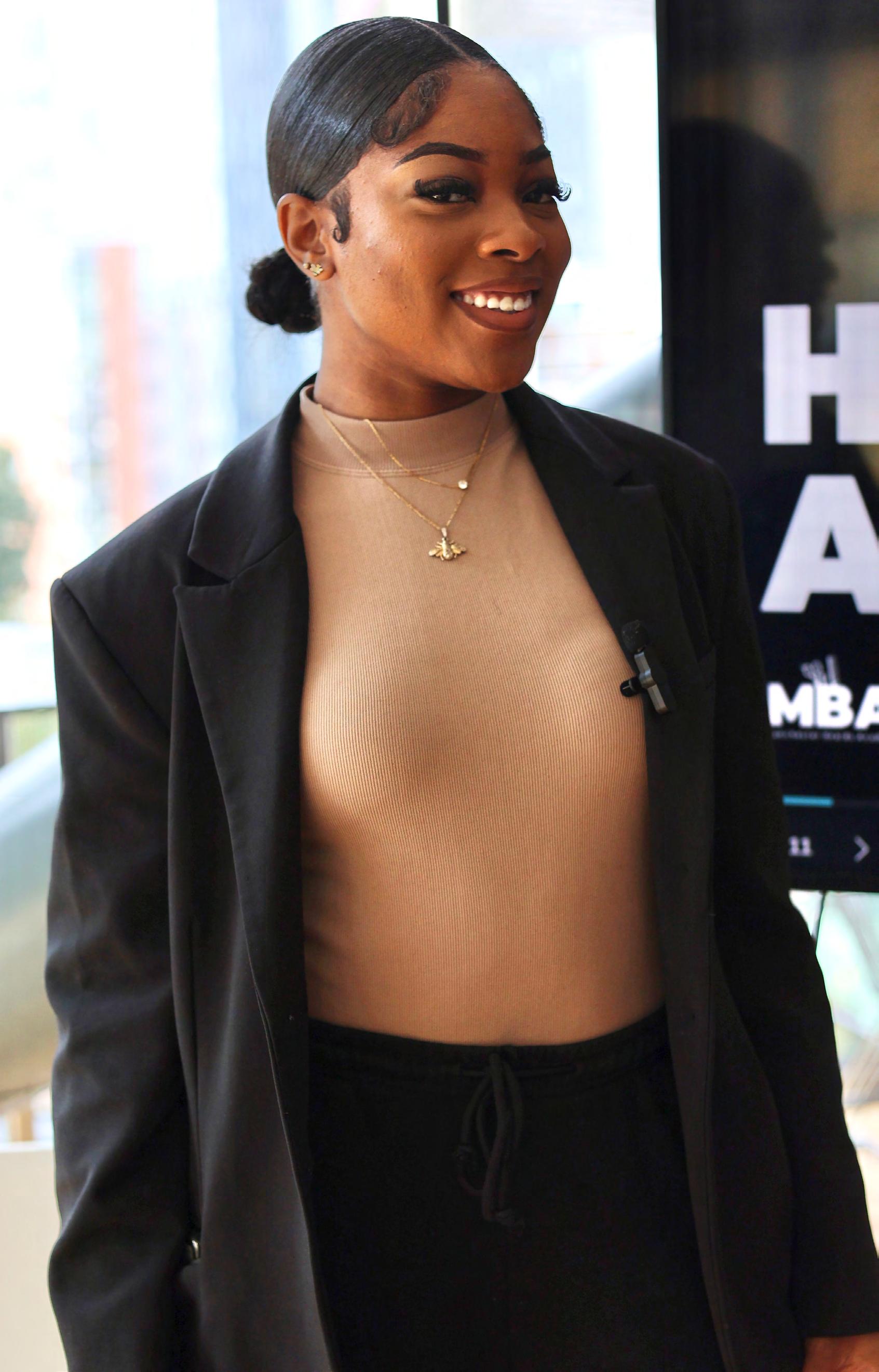
Revolutionising
78 www.blackbusinessmag.com
Braiding Traditions and Education with MCR Braids founder Lauren Parchment
Interview by Lizzie Griffiths
Lauren Parchment, the visionary force behind MCR Braids in Manchester, celebrates and elevates Black hair and braiding traditions. Beyond her luxurious salon, she founded the MCR Braids Academy to nurture the next generation of braiding talents.
Lauren's innovation includes CoreTEX Head™, a realistic training mannequin revolutionising braiding education.
In 2023, Lauren launched Let’s Talk Braids, the UK's premier braider networking event, fostering community and challenging stereotypes.
Her groundbreaking contributions have earned acclaim, including the Shea Moisture Salon Fund, showcases at London Fashion Week and prominent media platforms like BBC and Sky.
We had the opportunity to speak to Lauren about the challenges she has faced modernising the braiding industry and her approach to mentorship.
Your journey with MCR Braids has been transformative, from founding a luxury braiding salon to establishing the MCR Braids Academy and CoreTEX Head™. What inspired you to take on the challenge of modernising the braiding industry, and how do you see your leadership shaping its future?
It was mainly from seeing how outdated the braiding industry was, and the lack of opportunities for upand-coming braiders.
There was nothing to aspire towards, like an event or an award for braiders.
I decided to step out of my comfort zone and BE the change I wanted to see, rather than wait for it to happen.
As for leadership, I want to inspire aspiring braiders to push boundaries, be unapologetic, and empower others to do the same.
By modernising the industry and providing quality training, I can inspire a new generation of braiders to bring their creativity and passion to the forefront, shaping a brighter future for braiding.
The launch of Let’s Talk Braids marked a significant milestone in your career, establishing the UK’s first networking event for braiders. Can you share more about the motivations behind creating this platform and what impact you hope it will have on fostering community and elevating industry standards?
The launch of Let’s Talk Braids was a game-changer for me. I started it after noticing there wasn't much community vibe among braiders, and we missed valuable networking opportunities. Let’s Talk Braids is all about bringing braiders together, sharing experiences, empowering each other, and raising the bar for our industry overall.
Last year’s event was sponsored by TressureTress and Ruka, and the founders of both companies attended our panel talk. I still can’t believe it happened. It was so surreal seeing my ideas come to life. I hope this will catalyse positive change and build a stronger, more connected braiding community in the UK.
Your commitment to providing comprehensive training and mentorship through MCR Braids Academy is commendable. How do you approach leadership in guiding emerging braiders through their educational journey, and what values do you prioritise in your mentorship efforts?
Regarding leadership at MCR Braids Academy, it’s about creating a community where everyone feels supported and encouraged.
I believe in leading by example, so I show my students and mentees
www.blackbusinessmag.com 79

what it means to be professional, dedicated, and passionate about their craft. I also prioritise open communication and collaboration, creating an environment where ideas can flow freely, and everyone’s voice is heard. As a leader, I strive to empower my students to take ownership of their learning journey and to embrace challenges as opportunities for growth.
The CoreTEX Head™ is a groundbreaking product that sets a new standard for realism in braiding education. What challenges did you encounter in developing this innovation, and how do you envision its impact on the future of braiding training and education?
Developing the CoreTEX Head™ presented several challenges, primarily centred around achieving realistic texture and durability while maintaining affordability. Overcoming these obstacles required extensive research, collaboration with experts, and negotiation with manufacturers.
The result is a groundbreaking product that revolutionises braiding education by providing a more realistic training experience. It sets a new standard by empowering aspiring braiders to hone their skills with confidence and precision.
It also allows educators to teach on more authentic heads, empowering
their students. I’m so excited for the future of the CoreTEX Head™!
Your work has been recognised on prestigious platforms such as London Fashion Week and BBC, solidifying your influence and expertise in the industry.
How do you navigate leadership in the face of such visibility, and what responsibilities do you feel toward challenging stereotypes surrounding braiding and Black hair within these spaces?
Being recognised on these platforms requires a delicate balance of leadership and advocacy. In navigating this visibility, I’ve always prioritised authenticity and responsibility. It’s crucial to leverage these platforms to showcase expertise and challenge stereotypes surrounding braiding and Black hair.
As a leader, I feel a profound obligation to advocate for inclusivity, representation, and accurate portrayal of Black hair practices. I aim to lead by example, inspiring others to embrace diversity and challenge ingrained perceptions within the braiding and Black hair industry.
Follow Lauren on Instagram @laurenthebraider
For more information about MCR Braids visit mcrbraids.co.uk
80 www.blackbusinessmag.com
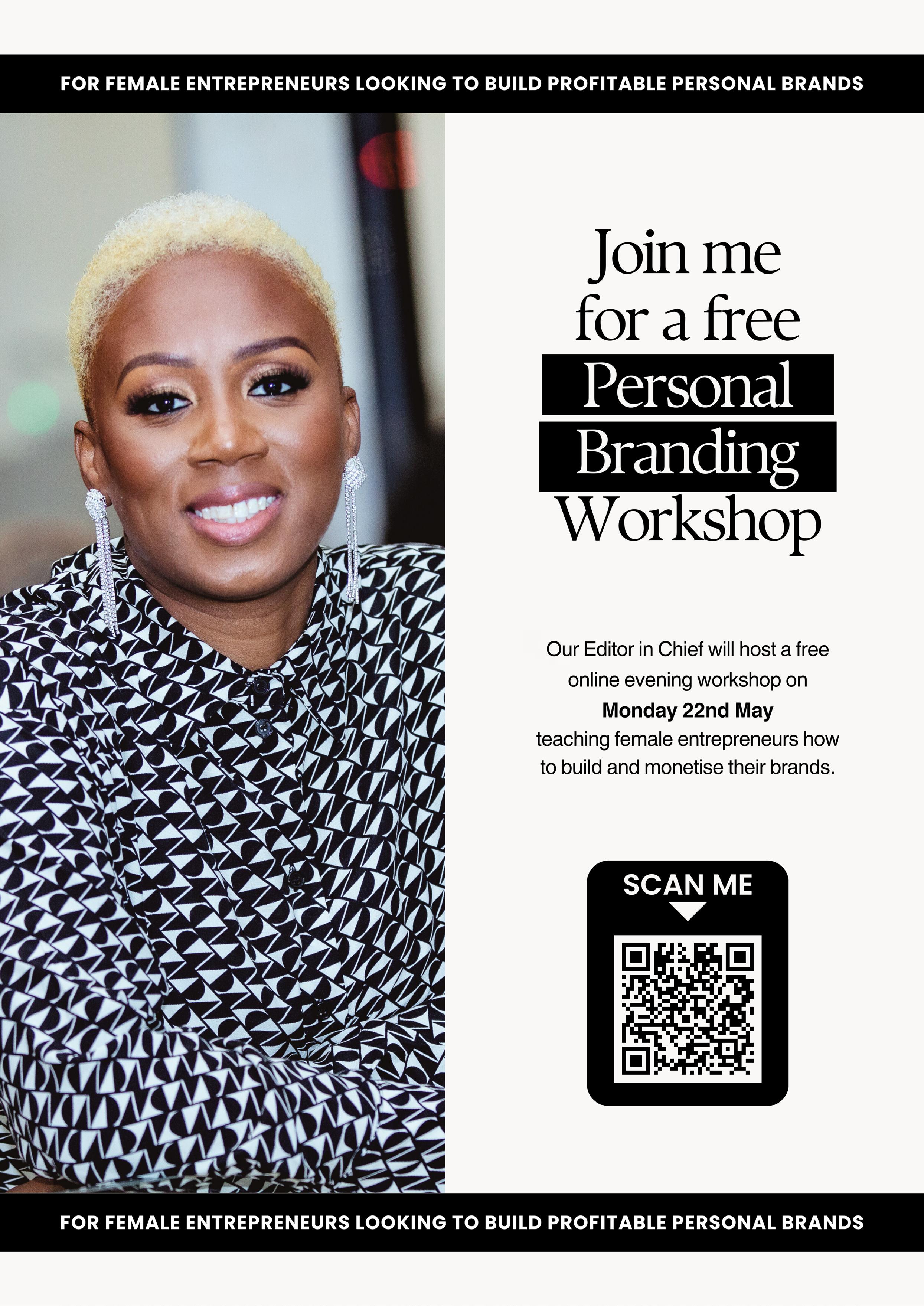
Unveiling Success
The Entrepreneurial Journey of Lina Barker, Co-Founder of Aaron Wallace
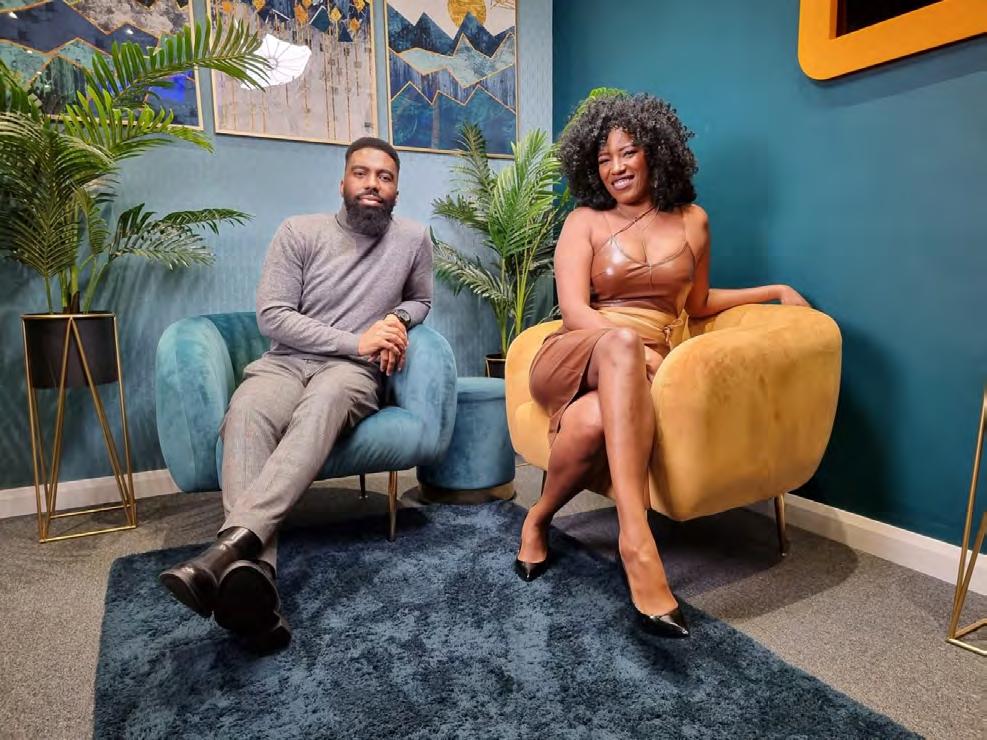

82 www.blackbusinessmag.com
Interview by Lizzie Griffiths
Lina Barker is an entrepreneur whose journey from orchestrating prestigious events at the Houses of Parliament to spearheading the flourishing male grooming brand Aaron Wallace is inspirational.
The idea for the revolutionary brand came to founder Aaron in 2016 when working as a barber. He could relate to the frustration felt by his clients when trying to access good quality products that would solve their hair and skin issues. With Lina on board, the duo endlessly researched to source the best ingredients that would meet the needs of their clients.
Notably, the expansion of Aaron Wallace into renowned retail giants like Sainsbury’s, Superdrug, Boots, ASOS, Saks Fifth Avenue, Debenhams, and Zalando stands testament to the duo’s strategic acumen and unwavering commitment to excellence.
We had the opportunity to learn more about Lina’s journey of co-founding a male grooming brand and her key challenges.
What inspired you to transition from hosting events at the Houses of Parliament to co-founding a successful male grooming brand like Aaron Wallace?
The opportunity was too exciting to turn down. I had thoroughly enjoyed hosting events and building SYG, but when the idea of the Aaron Wallace brand came along, the challenge drew me in.
At the time, the male grooming industry was experiencing exciting growth but was still massively undeserving and completely ignoring the unique needs of Black men. As a Black woman, I could relate all too well to being overlooked by entire industries and was immediately
bought into the idea of creating something that would challenge an entire beauty sector.
It has been an exciting journey ever since, with lots of huge wins and challenges. We have always been hugely ambitious from the start, and seeing our products on the shelves in Superdrug, Sainsbury’s, and now Boots is an incredible achievement for us.
Can you share more about the journey from identifying the need for better grooming products for Black men to the actual launch of Aaron Wallace? What were some of the key challenges you faced during this process?
Our journey started in a South London barbershop called Shear & Shine, which is incidentally the name of the grooming range we initially launched. As a barber, Aaron had a direct line to the men our products were created to help. He could see firsthand a glaring lack of goodquality hair, beard, and skin products free from toxic, harmful ingredients, and he wanted to change that.
Using his expert knowledge of afro hair, a formulation and manufacturing partner, we spent the next three years developing our core range.
This process involved several focus groups with Black men, testing products in barbershops with other barbers, and ensuring all the products went through the correct compliance tests to make them safe for our customers.
When looking back at the initial stages, the main challenges, as they would be for most start-up brands, centred around funding. We wanted a bespoke formulation with high-quality, natural ingredients and a unique scent, which meant a complete end-to-end formulation process, which is costly.
www.blackbusinessmag.com 83
So, one of our first challenges was overcoming this hurdle. In our case, we partnered with a formulation and manufacturing company quite early in the process with favourable terms that helped reduce the financial burden on an early-stage startup like ours.
We also had the biggest challenge of all, proving that focusing on the unique needs of Black men was economically sound. We knew the size of the market was there.
We have always instinctively known that, but it was our job to prove this with sufficient evidence to convince investors to back us and eventually convince mainstream retailers that stocking a brand was not just important for them to show they were paying attention to their diverse customer base. Still, it also makes business sense to do so.
Aaron Wallace is known for its commitment to using natural ingredients and avoiding toxic chemicals. How did you select the key ingredients like Black Seed Oil and Mango Butter, and what benefits do they bring to your products?
We knew we wanted to create something special for Black men. This meant dedicating ourselves to researching and finding the best natural ingredients with known benefits for men with afro hair.
Black Seed Oil is almost mythical. It’s commonly called Nigella Sativa and known as, “The cure for everything except death”, due to its fantastic health benefits. Black Seed Oil has been used for healing and medicinal purposes for thousands of years, and Greek philosophers mention it in ancient texts. It was even discovered in King Tut’s tomb.
Over 630 peer-reviewed studies have found it contains over 100 elements of proteins, alkaloids, and saponins. Regarding afro hair care, Black Seed is highly emollient, meaning it effectively penetrates the follicles and cuticles of
the hair and beard to achieve maximum hydration.
Extensive studies have also shown it to have restorative properties that feed and nourish the scalp. With its antioxidant, antibacterial, and antifungal properties, it’s also highly effective in reducing flaking and combating the environmental causes of early hair loss.
A lack of moisture is the leading cause of issues, including poor growth, patchiness, scalp issues and breakage.
Many products on the shelves do not contain enough nutrients to penetrate and nourish afro hair effectively. Most do more harm than good, stripping the hair of what it needs for healthy growth.
The outer layer of the hair is known as the cuticle; this is made of overlapping cells that strengthen and protect the hair shaft. On those of us with afro and curly hair, these cuticles are naturally raised and do not lay flat; as a result, they lose moisture much faster and tangle far more quickly.
Mango Butter is packed with fatty acids and vitamins. It is a moisture-rich food for the hair and beard, protecting the cuticle from damage and is especially advantageous in moisture retention. It strengthens the outer layer of the hair and beard to protect it from environmental damage.
Creating softer, plumper afro hair that is less prone to tangles and breakage caused by everyday brushing and combing.
Your brand has gained recognition from prestigious publications like Forbes and Business Insider. What strategies did you employ to achieve such recognition, and how has it impacted the growth and perception of Aaron Wallace?
We have a strong brand with a compelling story and are proud to share it. I am an avid networker and genuinely enjoy meeting new people, whether
84 www.blackbusinessmag.com
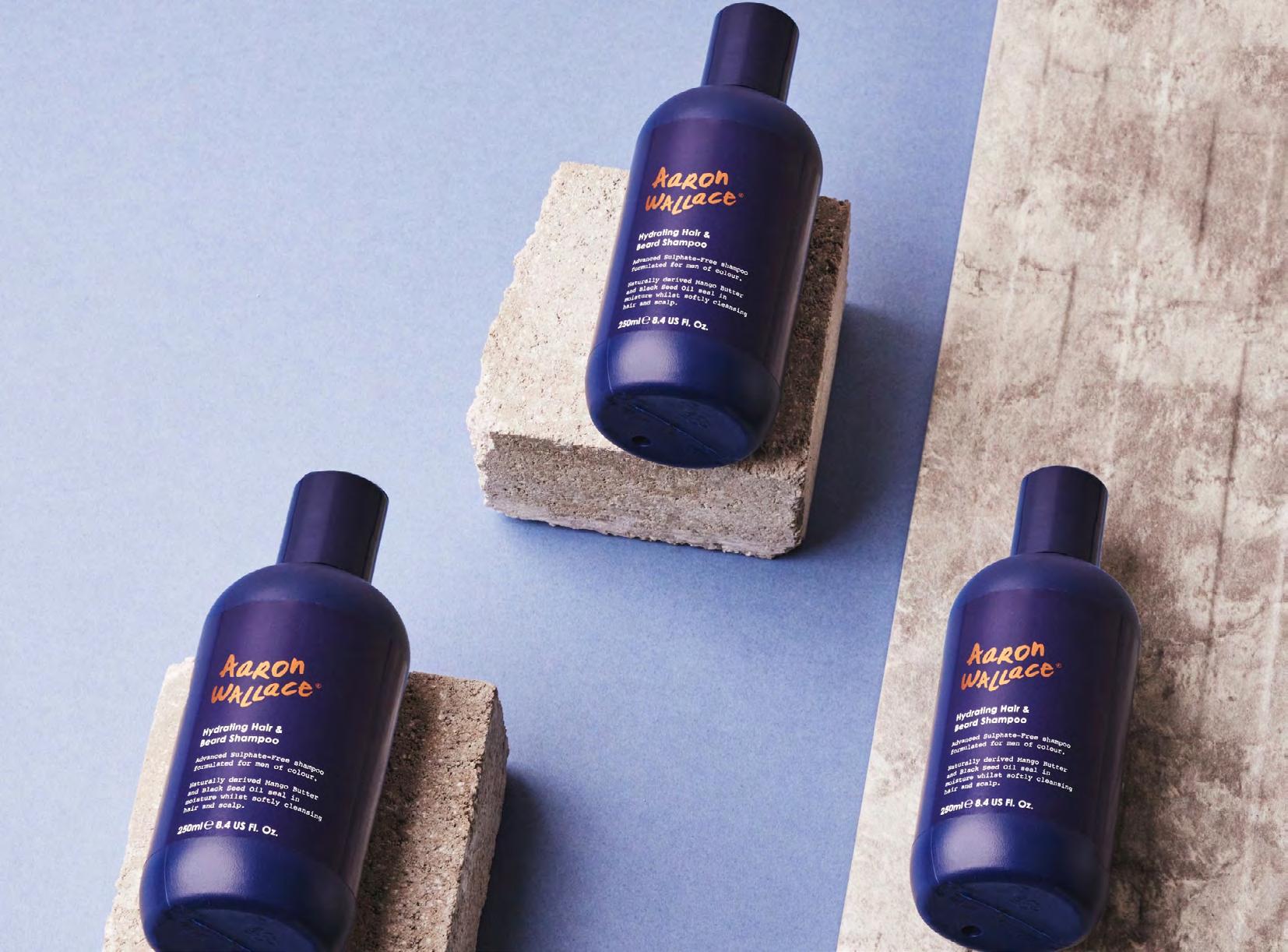
it’s through events or online through social platforms. I am always looking for interesting connections that can be mutually beneficial. This has led to connecting with several journalists who have found our story interesting enough to want to write about. More often than not, this has had a domino effect with other publications wishing to write about our brand.
The impact of all our features in the press has been invaluable. For a brand like ours, it’s important to get our story out there.
Without huge marketing budgets like the more established legacy brands that we are competing against on the shelves, storytelling through media publications is the best way for us to build that brand awareness. It isn’t easy and does require constant out-of-the-box thinking, but we have always found ways to make it work.
What impact do you hope to have on the broader conversation surrounding Black masculinity and grooming?
As I mentioned, we have always been extremely ambitious and want to grow
Aaron Wallace into a global marketing leader for Black men’s personal care needs, including Hair, Beard, Skin, and Body Care. But we want our impact to be much broader than that. We want to create a space for Black men where they are seen and catered for and free to express their authentic selves.
This means being part of important conversations about what it means to be a Black man in today's society, what masculinity means to men, and how personal care fits into that. Allowing these conversations to be fluid, tolerant, and accepting of new ideas.
I love that these conversations are already happening online and offline. I have seen the change in attitudes towards personal care for men from when we first started in 2016 to where we are now.
I hope to see this continue to evolve, and I am excited for Aaron Wallace to remain a part of those changes and, in some instances, be paving the way for Black male grooming in the UK.
For more information, visit byaaronwallace.com
www.blackbusinessmag.com 85
Behind The Wall Crafting Entertainment Excellence

The Wall of Entertainment is a dynamic production house quickly becoming a leader in crafting top-tier entertainment programming and branded content tailored for today's digital-savvy audiences.
At the helm of The Wall stands Tafara Makopa (Taf), a visionary leader, instrumental in driving the company's multifaceted business operations and spearheading groundbreaking projects in non-scripted entertainment. Under his guidance, The Wall has forged strategic partnerships with esteemed entities such as Channel 4.0, Netflix, Amazon Prime and Pretty Little Thing, solidifying its position as an industry trailblazer.
As an Executive Producer and Director, Taf's creative influence shines through in acclaimed projects like 'Does The Shoe Fit' for Foot Asylum, 'Secret Sauce' for Channel 4.0, 'Judge Nella' for Netflix, and 'The Pink Courtroom' for Pretty Little Thing, showcasing The Wall's commitment to delivering innovative and engaging content.
With a diverse team of 32 individuals from various backgrounds and ages, The Wall's achievements have not gone unnoticed. It has earned industry accolades and nominations that underscore its status as a true powerhouse in the entertainment and digital landscape.
86 www.blackbusinessmag.com
We had the opportunity to speak to Taf, Anoushka Awad - Head of Marketing and PR, Keryn Mae Benjamin - Post Producer, and Mah Hawa Kamara - Assistant Producer, about The Wall's remarkable success story, exploring their innovative approach to content creation and their impact on the ever-evolving media landscape.
The Wall of Entertainment has partnered with prestigious entities such as Channel 4.0, Netflix, Amazon Prime, and Pretty Little Thing. What strategies have you employed to cultivate and maintain these partnerships?

Anoushka: The entertainment world is teeming with an overload of content and far too much choice, but only a few stand out and create cut-through. So, innovation is at the heart of everything we do. We constantly strive to create bold, daring, authentic content that pushes boundaries and engages our core audience in new and exciting ways.
We also know we must be relentless in pursuit of creativity, and this sets us apart and makes us an attractive partner for platforms and brands seeking fresh and compelling narratives. Collaboration is also an essential factor.
We work closely with our partners to align our visions and blend our strengths. This involves regular communication,
flexibility, and a willingness to adapt to our clients’ needs and feedback. Doing so has helped sustain relationships by building trust and showing our commitment, ensuring our clients are happy.
Lastly, we also prioritise mutual growth. Our partnerships are not just transactional; they are about creating value together.
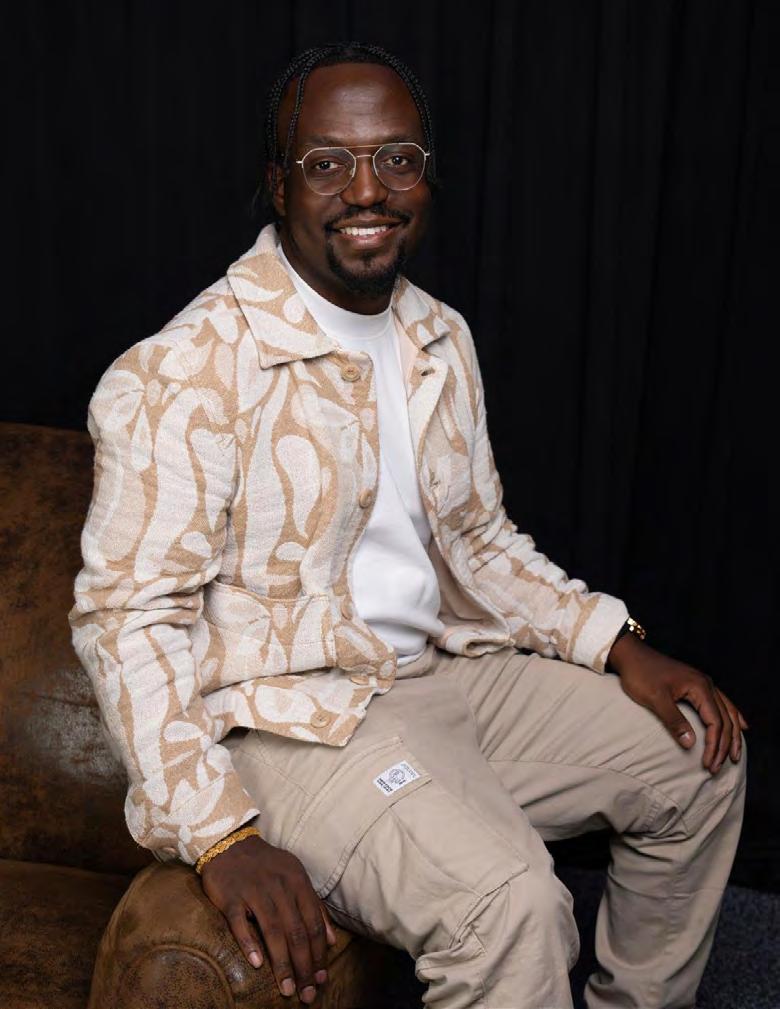
Taf: We identify brands that embody culture and aim to communicate meaningful messages to their audience or educate the community. These are brands looking to connect or reconnect with a younger demographic. We offer these brands strategies to engage and resonate with the youth via content and social media, ensuring that each brand's ethos is central to our creative process.
Take Channel 4.0, a newer digital platform designed to be the go-to for exciting and unfiltered entertainment targeted at a socially engaged audience. It’s a space where culture is celebrated through joy and entertainment. This aligns perfectly with our goal when developing shows: to be bold, authentic, and innovative in our approach.
Pretty Little Thing is another excellent example. We wanted to create an empowering platform for female content
www.blackbusinessmag.com 87
creators to try new things, and we did that by moving away from fashionrelated content to content that was formatted like a traditional TV show, centred around topical subjects and trends. The brand has seen its most considerable YouTube growth since it launched the channel and continues to climb.
The key to maintaining these partnerships is growing with the brand, while having a clear vision for success. We actively look at what is happening in the world around us, as well as conversations and discourse on social media, while educating the brand as much as possible. We also use our social insights to help direct the brand's social platform performance.
Can you share your journey, how you became involved with The Wall of Entertainment, and describe your current role in the business?
Anoushka: I initially started as a publicist for Joivan Wade, co-founder of the company, as his acting career across both sides of the Atlantic began to take off in 2017. As our professional relationship and trust grew, he asked me to get involved with The Wall, leveraging my broad experience crafting communications strategies for various brands.
Today, I am the Head of Marketing and PR, mainly steering our business through the B2B entertainment landscape. It’s my responsibility to ensure our services and offerings are seen and deeply understood by clients and brands alike. It’s about spotlighting our exceptional work and talent, firmly establishing our position as a leading force in our industry.
Taf: I started in the business as a consultant. I was an accountant at the time, while also working for another organisation. At that point, Joivan (Wade) and Percy (Ascott) asked me to look into the future of the business and give them my thoughts on how best to manage operations.
I called them, told them the company was in administration, and that we needed to pivot and start again. Unfortunately, my first primary task was making everyone redundant at the time and then rebuilding the company from scratch. I accepted the role of M.D. of the business in 2018 (including the sister companies like The Wall of Comedy), and started rebuilding the business operations to what it is now.

Keryn Mae: I have a background in TV production coordination, working on notable shows such as Olivia Attwood’s Getting Filthy Rich, series 1 for ITV2, and At Home with the Furys for Netflix. My journey with The Wall of Entertainment began when I joined as a PostProduction Coordinator, and over time, I worked my way up to the position of Post-Producer. In my current role, I have several responsibilities, including creating schedules for the edit team and ensuring smooth workflow and timely project completion. Additionally, I manage post-production budgets, ensuring that resources are allocated efficiently and projects stay within financial constraints.
One of my key roles involves liaising with clients on show viewings and deliveries, ensuring that their expectations are met and that the final product aligns with their vision.
88 www.blackbusinessmag.com
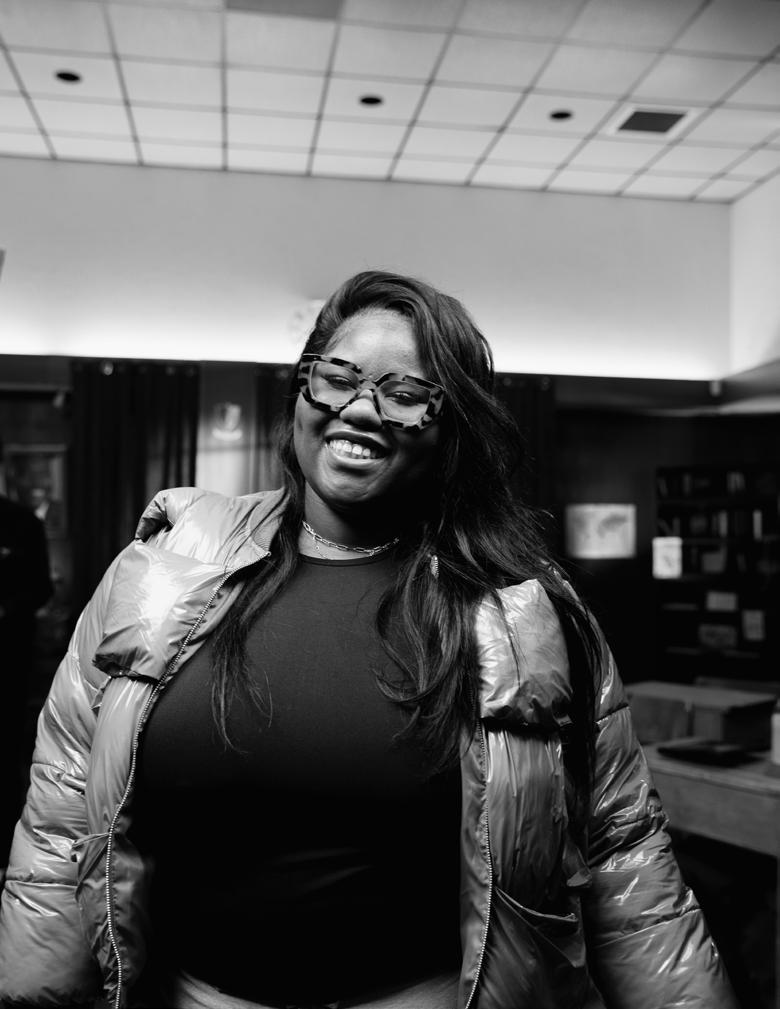
Mah Hawa: Initially, my career started in live TV as a camera assistant, but I decided I wanted to learn more and have other experiences. So, when a friend recommended The Wall of Entertainment, I saw it as a chance to explore new avenues.
I joined the team a year and a half ago as the Personal Assistant to Taf and a Development Assistant for the creative and production departments. I transitioned into a full-time Development Assistant role within six months after proving myself to the team.
For the past six months, I have been an Assistant Producer on some of The Wall's most significant projects, such as a series we make for Pretty Little Thing called ‘The Pink Courtroom’ and ‘Harry Pinero's Worst in Class’ for Channel 4.0.
However, I am still deeply involved in both the development and editorial aspects, overseeing signed-off projects from a creative perspective. Frankly, I have no complaints, and I love what I do.
Can you describe a day in the life of your role at The Wall of Entertainment?
Anoushka: As Head of Marketing and PR, my day begins with a team catchup covering, among other things, social media, insights, reports, and
campaign planning. I then liaise with the leaders of the Creative and Production departments to align on upcoming projects and to strategise marketing and communication efforts, including collaborations with clients and talent for project amplification.
I’ll probably sit down with Taf about enhancing our industry presence through events, speaker engagements and award submissions, which also form a crucial part of my daily agenda. I may even squeeze in a chat or coffee with a journalist to pitch a story or two.
Taf: No two days are ever the same in my role. It can vary from having half days dedicated to creative ideations with the team, where we think about a new show or content ideas for clients and prospective clients.
I will likely have new business meetings to kick off new client relationships and pitch ideas to them. I will then have calls with talent - as we work with some of the biggest content creators dominating social - to talk about content ideas they might want to do or how we can help them grow their platform and social presence. I will then review the business side: budgets, forecasting, team, and HR updates. On other days, you may find me on set directing scenes!
Keryn Mae: A typical day in my role at The Wall involves managing various aspects of post-production to ensure smooth project execution. I start by checking all the schedules for ongoing projects to assess their progress and deadlines. This helps me prioritise tasks and allocate resources efficiently.
Next, I check in with all the editors to ensure they are on track with their assigned tasks. I also update the edit team on any notes or changes required from the client, ensuring that everyone is aligned with the project goals and client expectations.
A significant part of my day is dedicated to editing viewings. This involves
www.blackbusinessmag.com 89
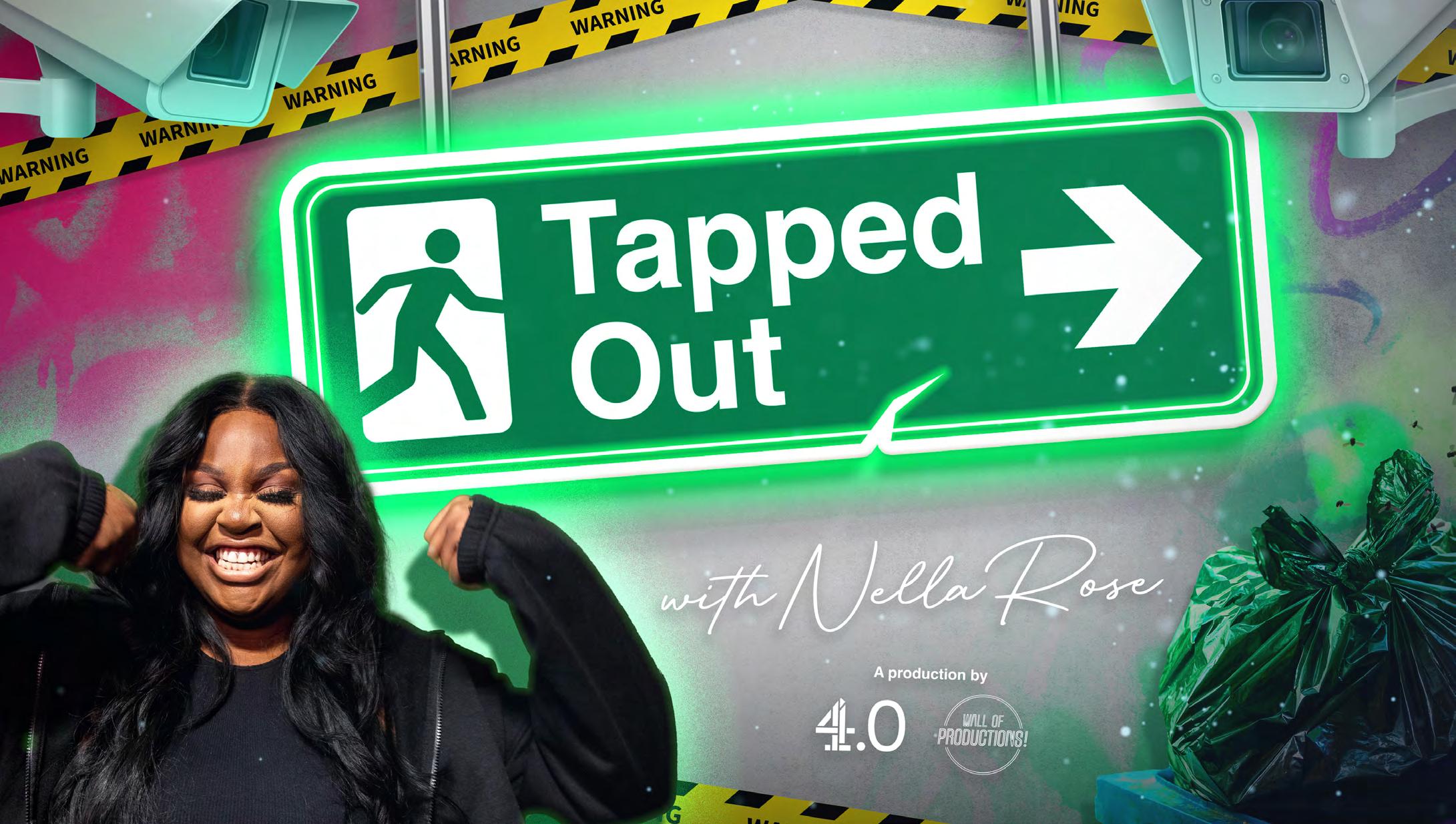
reviewing the edited content and ensuring that all graphics, sound effects, and other elements are in place and meet the project's quality standards. I pay close attention to detail during these viewings to ensure the final product is polished and ready for client feedback.
Generally, my day revolves around overseeing project progress, addressing any issues, and ensuring that the final deliverables meet the high standards set by The Wall of Entertainment and our clients.
Mah Hawa: My days can vary, which is great about the job and the nature of our work. Sometimes, I'm immersed in creative brainstorming sessions all day, developing new show concepts and striving to push new IPs forward. Other times, I'll collaborate with the director on editorial tasks before our shoots, or be on set producing or briefing talent.
In an industry as dynamic as entertainment, how do you stay ahead of trends and ensure that The Wall of Entertainment remains innovative and relevant in its offerings?
Anoushka: Staying ahead in the fastpaced entertainment industry isn’t always easy and requires a multifaceted approach centred on innovation and relevance.
Knowledge sharing is integral to our approach, fostering a culture of continuous learning and adaptability. By collaborating with emerging talent, we tap into fresh perspectives and creativity, ensuring our offerings are cutting-edge and diverse. We also strongly emphasise diversity in our company, the content we produce, and the creators we partner with.
Taf: The critical thing is understanding the audience we are serving. We take feedback on board on every element of our projects. We review show performances from engagement to viewership to know why something has peaked, gone viral, or has underperformed because watch time has dropped off.
Another key thing is in the hiring. Our team represents our audience from age, gender, ethnicity, and cultural backgrounds. I ensure I have a diverse company that is always open to blue sky and out-the-box thinking. We use the acronym L.E.G.S in our business, everything we do must have Longevity, Elevation, Growth and Sustainability.
Keryn Mae: In the fast-paced entertainment industry, we stay ahead by closely monitoring trends, fostering creativity within our team, and prioritising ongoing learning. We adapt quickly to
90 www.blackbusinessmag.com
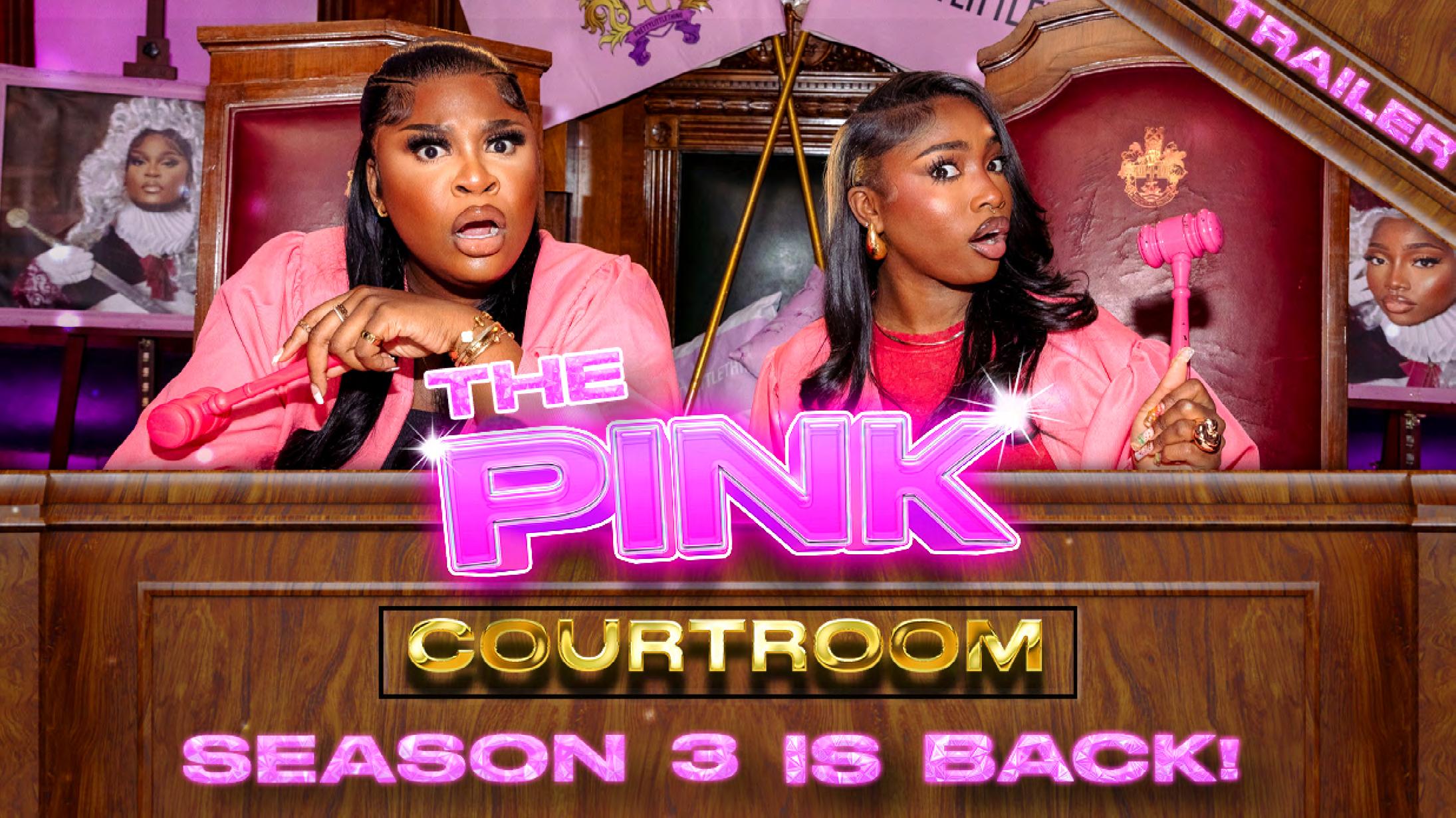
changes in audience preferences and emerging technologies, collaborating with industry partners to ensure our offerings remain innovative and relevant.
Mah Hawa: At The Wall of Entertainment, some of our team members are relatively young, such as in their early 20s, and being among the youngest has its perks.
I'm constantly plugged into social media and the conversations and trends happening there, which naturally integrate into my work. Additionally, our ethnically diverse team brings various exciting perspectives to the table, keeping us agile and adaptable to shifting trends.
What advice would you give aspiring professionals who aim to make their mark in the entertainment industry, particularly in similar roles?
Anoushka: Build your knowledge by reading and staying updated with industry developments. Follow leading industry voices and brands, and attend relevant events, and network your arse off. Don’t be afraid of rejection; opportunity is just around the corner.
Taf: I would say express yourself and tell the stories you know best. Where you start does not define where you end up; you learn from everyone around you.
Teamwork is strong, and networking has massive value.
Keryn Mae: My advice to aspiring professionals aiming to make their mark in the entertainment industry, especially in similar roles, is simple: keep going even when it seems complicated.
The entertainment industry can be competitive and challenging, but perseverance is key. Stay committed to honing your skills, building your network, and seizing growth opportunities. Be open to learning from setbacks and failures, as they often pave the way for future success.
Above all, remain passionate and dedicated to your craft, and never lose sight of your goals. You can overcome obstacles and make your mark in this dynamic and rewarding industry with determination and resilience.
Mah Hawa: My advice is to stay proactive, stay informed, and analyse the competition. It's a bit of a cliché, but networking and seizing every opportunity that comes your way is vital. People in this industry are generally supportive; you must demonstrate your eagerness to learn and grow.
For more information visit thewallofentertainment.com
www.blackbusinessmag.com 91

Meet Abi Laditan
HEAD OF BRAND MARKETING AT GODADDY
92 www.blackbusinessmag.com
Abi Laditan is the driving force behind GoDaddy’s brand marketing efforts in the UK, Canada, and Australia. With over 15 years of expertise in consumer technology, brand marketing, and PR, Abi brings a wealth of experience to her role as Head of Brand Marketing.
Passionate about championing small businesses and everyday entrepreneurs, Abi crafts compelling narratives that resonate with audiences.
Her leadership ensures GoDaddy’s brand positioning and messaging are consistent and effective across all marketing channels.
Abi’s career journey includes pivotal roles in agency and in-house settings, shaping PR departments for businesses like BlackBerry and Moonpig.com. Before GoDaddy, she founded and led Brides of Culture, showcasing diversity in exhibitions and events.
Beyond her professional pursuits, Abi is dedicated to empowering underrepresented young women in their careers as a mentor with the StepUp Sorority. With a BA from Kingston University, Abi balances her career with family life and is married with two children.
Abi, your role as Head of Brand Marketing at GoDaddy spans multiple countries, including the UK, Canada, and Australia. Can you share some unique challenges and opportunities you face in championing small businesses and entrepreneurs in these diverse markets?
Managing diverse markets like the UK, Canada, and Australia presents a wide range of challenges and opportunities, a few examples of which include cultural differences
between markets. Each market has its cultural nuances and preferences, and understanding these differences is essential for tailoring marketing strategies effectively.
What resonates with audiences in one country may not necessarily appeal to those in another. Similarly, cultural sensitivities must be considered when communicating with diverse audiences. Investing in localisation efforts, including culturally relevant content and references, enhances engagement and customer trust.
Market maturity is another consideration. The level of market maturity inevitably varies among countries. For example, a brand may have more awareness in some markets versus others or even a different range of products, so adjusting strategies to meet the unique needs of each market segment is essential.
My role gives me an excellent opportunity to leverage the opportunities presented by diverse markets.
With over 15 years of experience in consumer technology, brand marketing, and PR, what do you believe are some of the most significant shifts or trends shaping the marketing landscape today, especially within the context of small businesses and entrepreneurship?
Probably unsurprisingly, the main one I would highlight would be the digital transformation over the years. The proliferation of digital technologies has transformed how businesses reach and engage with their target audiences. Similarly, the increased dominance of social media and influencer marketing has evolved massively. Social media platforms and their various content formats
www.blackbusinessmag.com 93
are crucial in shaping consumer behaviour and driving purchasing decisions. At the same time, influencer marketing has emerged as a powerful strategy for businesses of all sizes to reach new audiences and enhance credibility. It’s a lot to keep up with!
The continued rise of e-commerce, particularly during COVID-19, has opened up exciting new opportunities for small businesses to reach customers beyond their local markets.
Interestingly, consumers also increasingly gravitate towards brands that align with their values and support social or environmental causes: social activism in consumer action!
Your entrepreneurial journey with Brides of Culture showcases your commitment to diversity and innovation. How have the skills and insights gained from running your business informed your approach to leadership and marketing strategies at GoDaddy?
Overall, it equipped me with a unique skill set in working with small businesses who exhibited their services with us. I gained valuable insight into understanding diverse business audiences as consumers. This has greatly informed my approach to leadership and marketing strategies at GoDaddy, particularly in targeting small businesses.
Entrepreneurship inherently involves navigating challenges and finding creative solutions. My experience with Brides of Culture and other roles has honed my ability to think innovatively
and adapt quickly to changing circumstances. This mindset is crucial when leading marketing initiatives at a large organisation, where staying ahead of the curve and offering cutting-edge solutions is essential to meeting the needs of small businesses in a rapidly evolving landscape.
Setting up Brides of Culture also gave me firsthand experience in building and nurturing communities. This is particularly significant when aiming to enhance brand loyalty and advocacy.
In your experience, have you encountered specific challenges or barriers as a Black woman in the marketing and leadership space? How have you navigated these challenges?
I’ve encountered various challenges throughout my career, both internally and externally. At the beginning of my journey, I often found myself being the only person in the room that looked like me. This sense of being a minority could be isolating and sometimes daunting, and I initially felt pressure to blend in and work hard not to conform to associated stereotypes.
As my career progressed and my confidence grew, I became more comfortable in my corporate skin. Nevertheless, intermittent bouts of imposter syndrome still arise, a common struggle for those underrepresented in their fields.
Navigating these challenges has been a journey of self-awareness and resilience. I’ve learned to embrace my unique perspective and leverage it as a strength rather than a hindrance. While it may have been challenging, I’m empowered
94 www.blackbusinessmag.com
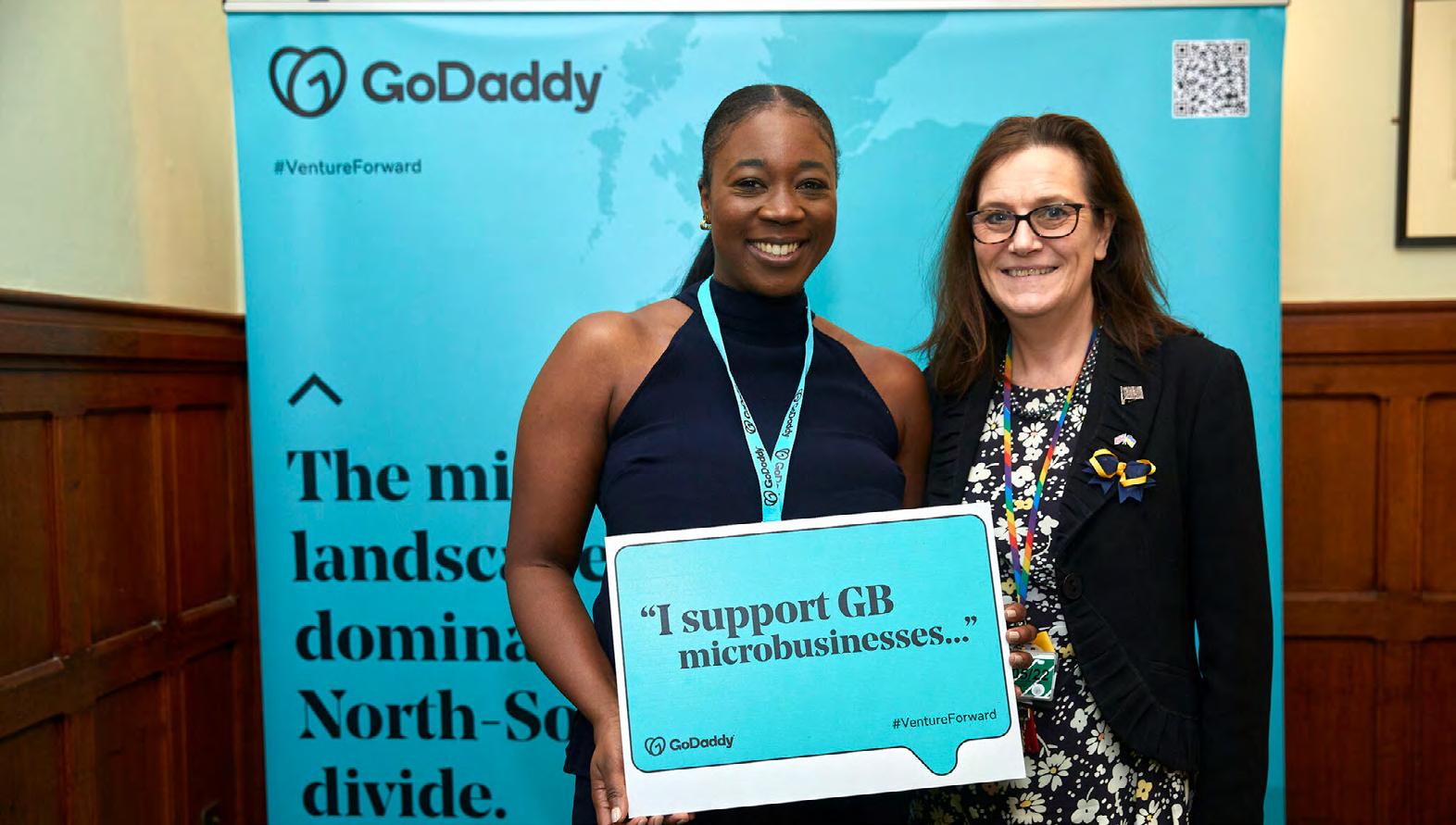
to embrace my identity and use it to drive positive change within the marketing and leadership space.
Mentorship and support networks can be invaluable for career growth and advancement. How do you approach mentorship, and what strategies do you use to support and uplift other Black women aspiring to leadership roles in marketing?
I approach mentorship with a deep understanding of the importance of representation and visibility.
A firm believer in the notion that it’s hard to be who you can’t see, I’m passionately committed to working with young Black women.
My mentorship strategy revolves around three key pillars: guidance, advocacy, and personal experience. I provide guidance, offering practical
LinkedIn @abi-laditan Instagram @abssolutelyme
advice on career path navigation and honing skills for success in marketing.
Secondly, I advocate. I actively recommend and endorse mentees for opportunities within my network, leveraging connections to open doors and create pathways. I aim to combat systemic barriers and promote inclusivity in the marketing industry by doing this.
Lastly, I share my experiences and insights to inspire and empower aspiring Black women leaders.
I engage in candid conversations about the realities of navigating predominantly white spaces, offering strategies for resilience and self-advocacy and demonstrating that success is attainable despite obstacles.
www.blackbusinessmag.com 95
A CONVERSATION WITH ANNISHA TAYLOR
R edefining Diversity and Inclusion
Annisha Taylor is a leading figure in Diversity and Inclusion (D&I) strategy with a proven track record in crafting inclusive organisational cultures.
With extensive experience, including roles as Head of Diversity & Inclusion Business Partnering at the BBC and previous leadership positions at John Lewis Partnership, Annisha has shaped strategies that promote equality and belonging.
Beyond her professional endeavours, she dedicates herself to community service, serving as a School Governor and Board Trustee while mentoring global purpose enterprises.
in the Workplace
Interview
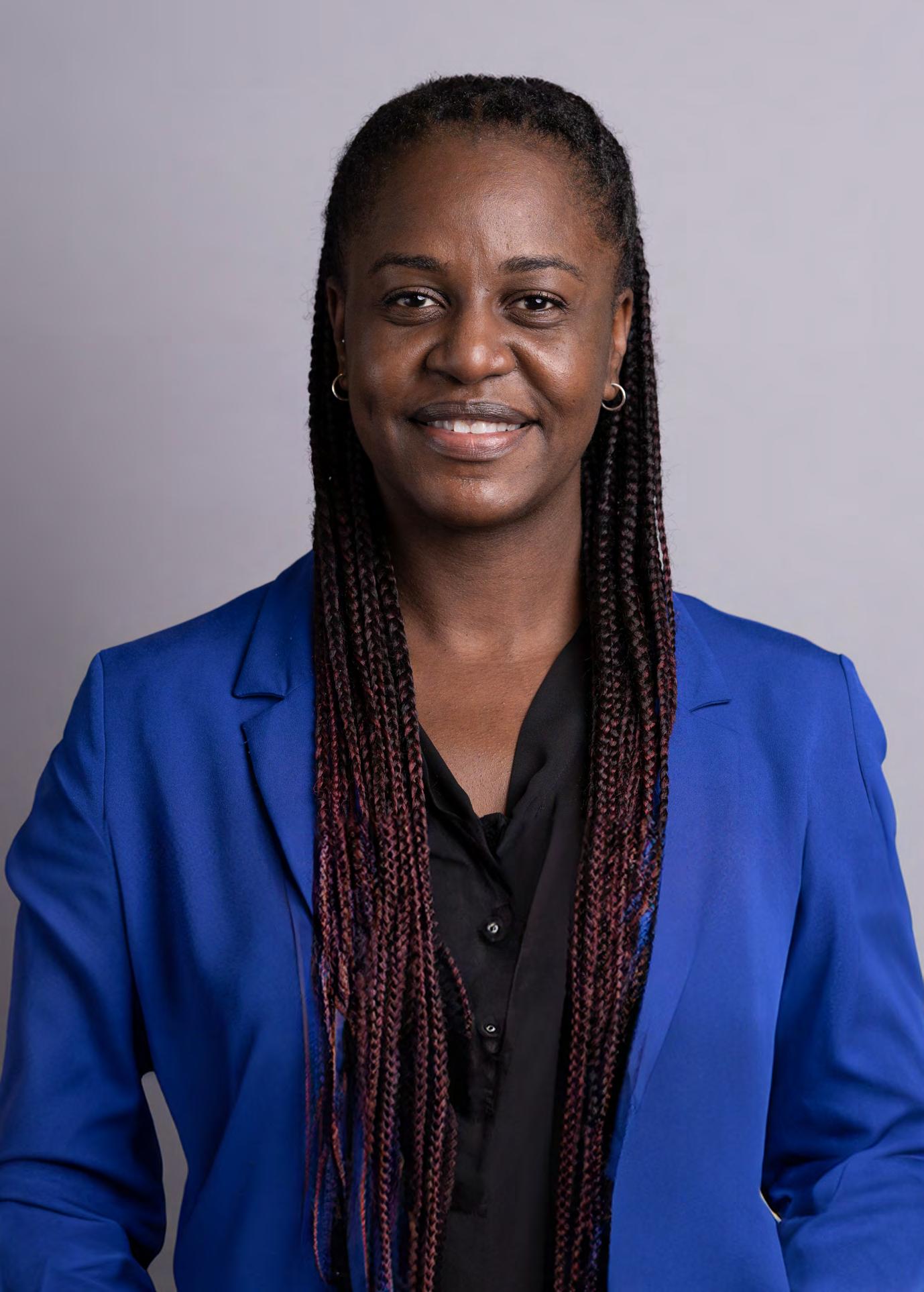
96 www.blackbusinessmag.com
by Lizzie Griffiths
Annisha, your extensive experience in Diversity and Inclusion spans both the BBC and John Lewis Partnership (JLP). Can you share some key strategies you’ve implemented to foster inclusivity and equality within these organisations?
The John Lewis Partnership and the BBC are both 100-year-old British institutions that come with their own very unique organisational cultures.
Creating an inclusive working environment that truly reflects the customer base or audience has required a comprehensive approach. Commitment from leadership, employee engagement, ongoing education, and continuous evaluation of policies and practices are all fundamental to delivering on this commitment.
I refer to myself as a creative problem solver, and I think it’s essential that I constructively challenge the status quo. I consistently use my platform to implement effective forums to create balanced representation for employees, particularly those from underrepresented groups.
In the past, when disparities have been identified, I’ve developed learning interventions such as ‘Turning Unconscious Bias into Conscious Inclusion’ workshops. I’ve found that these interventions positively impact the communities we support and, ultimately, the wider organisation.
As the BBC’s Head of Diversity & Inclusion Business Partnering, you’re tasked with developing a truly inclusive organisation. What advice would you give to organisations trying to do the same?
Promoting a sense of belonging requires consistent effort and awareness, but it takes time and unlearning. My advice to organisations developing a truly inclusive organisation would be
to acknowledge and address unconscious biases by encouraging decision makers to look inwards, particularly hiring managers and those setting criteria for promotion. This is crucial.
I also think it’s vital for D&I practitioners to demonstrate that it is every employee’s responsibility to make intentional changes across the organisation.
Some view D&I efforts as an addition to their day job rather than a part of it. Employees are often encouraged to be authentic and bring their whole selves to work, but this is a flawed ambition if not everyone sees the value of inclusion. Every employee has a part to make things better for everyone.
Your voluntary roles as a Responsible Business Ambassador for Heart of the City and Global Purpose Enterprise (GPE) Mentor highlight your commitment to community engagement. How do these experiences complement your professional leadership in Diversity and Inclusion?
Being an ambassador for Heart of the City has enabled me to share my specific skills and experience to support small and medium-sized businesses which don’t have the dedicated resources or expertise to enhance their responsible business initiatives.
Being amongst a community of SMEs dedicated to supporting businesses across London to operate more sustainably and ethically allows me to amplify my impact.
Volunteering with GPE has meant witnessing first-hand their incredible impact on young talent, particularly those from Black and underrepresented backgrounds. Being a mentor allows me to give back and learn from the invaluable
www.blackbusinessmag.com 97
reverse mentoring sessions. Through GPE’s innovative PRGRSS technology, I’ve been able to champion inclusive practices further and facilitate mentorship connections that drive growth and development.
For me, it’s about paving the way for more fair and equitable working methods and creating a lasting legacy that will positively impact future generations.
Speaking of the next generation, you serve as a School Governor and a Board Trustee at Sutton African and Caribbean Cultural Organisation (SACCO), demonstrating your dedication to your local community. How do you leverage these positions to drive positive change and support underrepresented groups?
I believe it’s just as important for D&I work to be endorsed in educational settings as in the workplace. These positions enable me to advocate for implementing inclusive policies, practices and programs within these organisations, such as training plans, anti-discrimination policies, flexible work arrangements and recruitment efforts targeted at underrepresented groups.
I’ve learned how crucial it is to ensure underrepresented voices are included in decision-making processes and leadership positions within any organisation. In a school setting, this is even more necessary for empowering representation. I think it’s important that I utilise my position to allocate resources, including school funding and support, to initiatives that address the needs of underrepresented groups and promote equity, which forms a large part of my responsibility.
In your experience, what are some effective strategies or initiatives that organisations can implement to address systemic racism and promote equity and inclusion for Black employees and communities?
Above everything else, be intentional. Listen to the feedback from Black employees – whether through engagement surveys or dedicated listening sessions. Ask about their experiences; don’t assume. Adopt targeted messaging, initiatives, and recruitment drives by being transparent about who you are trying to attract. Generic ‘catch-all’ language dilutes the message.
Dissecting policies and practices and piecing them together through a D&I lens is highly effective. Ask questions such as: Are they disproportionately impacting your Black employees? Are your Black employees being unintentionally excluded? Are your Black employees being measured against more stringent criteria? Is there a particular point when Black employees become disengaged? Interrogating these areas will help to recognise the barriers Black employees may be experiencing.
If you have access to employee diversity data, examine the stories being told by the themes and insights. Look holistically and intersectionally at the impact on Black employees.
Act on what is being drawn out and be transparent about the areas that can be improved. Most importantly, take the time to understand what inclusion means to your Black employees.
LinkedIn @annisha-taylor
98 www.blackbusinessmag.com





LEARN HOW OUR CLIENTS ARE USING A.I. AND AUTOMATION TO ACHIEVE
Sales on Autopilot
Setting up automated sales systems that work around the clock, making you sales even while you sleep
Passive Income Streams
Strategies to convert your expertise into passive income products that generate revenue without ongoing effort.
True Freedom
SCAN
www.ceogrowthlab.co/ automatedfreedom
Liberating yourself from daily tasks by automating your business processes, giving you the freedom to pursue your passions.
Work-Life Balance
See how automation allows you to achieve an enviable work-life balance, spending less time working and more time enjoying life.

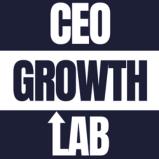
THE QR CODE
REGISTER FOR THE NEXT AVAILABLE WORKSHOP or visit
by
TO
powered
Amplifying VOICES
Interview
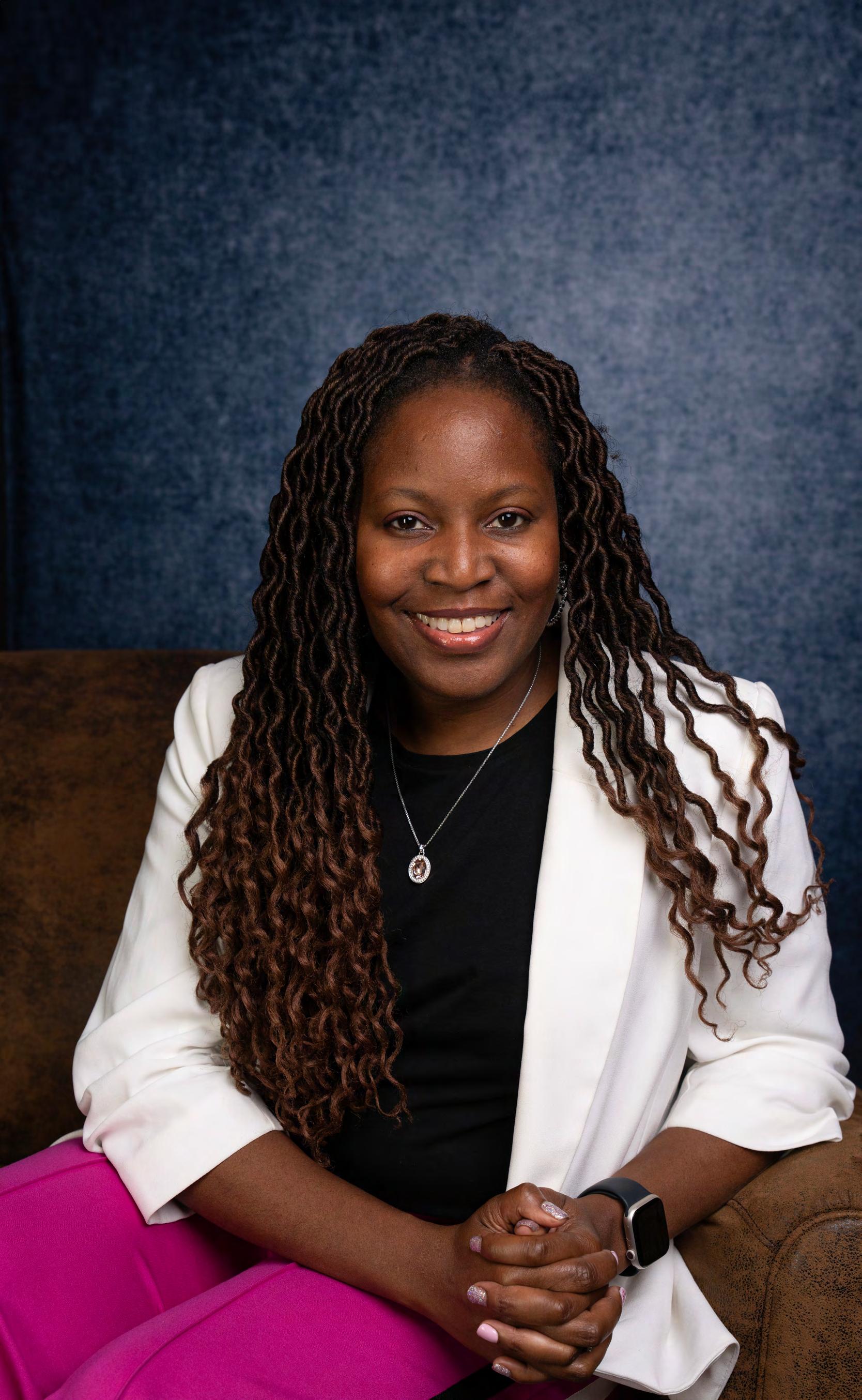
A SPOTLIGHT ON ANNIKA ALLEN’S LEADERSHIP IN DIVERSITY, EQUITY, AND INCLUSION
100 www.blackbusinessmag.com
by Lizzie Griffiths
Annika Allen is a dynamic force spearheading Diversity, Equity, and Inclusion (DE&I) initiatives at All3Media, a global production powerhouse. With a career spanning television, journalism, and impactful corporate roles, Annika brings a wealth of experience to her mission of amplifying underrepresented voices and untold stories.
Starting her journey in television and journalism, Annika garnered diverse credits before making her mark at All3Media.
Before her current role, she was pivotal in Barclays’ Global Diversity, Equity & Inclusion efforts, crafting groundbreaking reports and pioneering initiatives that fostered inclusion and belonging among colleagues.
Beyond her corporate endeavours, Annika is a passionate advocate for the Black community. She co-founded The Black Magic Awards and Black Leaders in TV, an inspiring testament to her commitment to celebrating and uplifting marginalised voices in the industry.
Annika’s impact extends beyond the boardroom as an advisor, mentor, and catalyst for change. Through her global DE&I activities and programmes, she continues creating spaces where everyone feels valued, heard, and inspired.
Can you discuss your experience developing and implementing DE&I and some of the training programmes or initiatives that have been effective in your organisation?
In my role as the Head of Diversity, Equity, and Inclusion (DE&I) at All3Media, a leading
global production group, I’ve spearheaded the development and implementation of numerous DE&I initiatives. Over the past 17 months, I’ve focused on creating a culture of inclusivity and belonging through strategic programmes and training initiatives.
First and foremost, I established a DE&I advisory group, bringing together diverse voices to contribute to and implement collaboration on DE&I efforts.
This collaborative approach ensures that our efforts are rooted in the unique needs and challenges of each business unit. Working with our training team, I developed an engaging inclusion education and training series that has seen increased engagement in learning and development across the organisation.
This series covers a range of topics, including neurodiversity awareness, gender and health in the workplace, Islamophobia and antisemitism awareness, trans awareness, and pronoun usage, to name but a few, providing colleagues with the knowledge and tools to create a more inclusive environment.
I’ve spearheaded the development of Diversity Network Associations (DNAs), which serve as employee-led groups dedicated to supporting and facilitating personal and professional growth.
These DNAs aim to cultivate a nurturing environment where colleagues feel comfortable bringing their authentic selves to the table.
Additionally, allies are encouraged to join DNAs to show solidarity and support for their peers.
Our Race and Ethnicity DNA, All3Heritage, has recently launched successfully. This initiative aims to amplify racially and ethnically diverse voices while providing access to invaluable opportunities for growth and inclusion across the organisation. Already, members of All3Heritage have made significant contributions, offering cultural insights and acting as a vital sounding board for various projects.
For instance, they provided valuable cultural advice for a production involving a contributor, ultimately leaving the contributor’s family with a more positive experience and enhancing overall cultural sensitivity within our work.
In partnership with organisations like Tilting the Lens, we’ve prioritised disability and accessibility in our DE&I efforts. This includes providing education and strategic expertise in disability inclusion and developing an Accessibility Blueprint to guide our companies in creating inclusive physical spaces.
Through focus groups and collaboration with hiring and office managers, we’ve gained valuable insights that have informed our approach and empowered employees to share disability and health information more comfortably.
Moreover, our efforts extend beyond internal initiatives to address external challenges.
For instance, when faced with a lack of diversity in specialist roles for on-screen representation, we developed targeted strategies to attract a more diverse pool of applicants.
www.blackbusinessmag.com 101
These initiatives reflect our ongoing commitment to fostering diversity, equity, and inclusion at All3Media.
By continuously evaluating and evolving our approach, we drive positive change, and create a workplace where everyone feels valued, respected, and empowered to succeed.
You co-founded The Black Magic Awards and Black Leaders in TV. What inspired you to create these initiatives, and how have they impacted the industry?
In my journey as a journalist, in TV production, and now as the Head of Diversity, Equity & Inclusion at All3Media, my passion has always been to elevate underrepresented voices and cultivate a more inclusive industry.
The inspiration behind initiatives like The Black Magic Awards and Black Leaders in TV stems from this commitment to champion diversity and provide platforms for those who may otherwise go unheard.
The Black Magic Awards, in particular, was born out of a desire to spotlight the outstanding achievements of Black trailblazers and changemakers in the creative industries.
By honouring their contributions, we celebrate individual excellence and pave the way for a more diverse and representative narrative within our industry.
Similarly, Black Leaders in TV will serve as a vibrant community of senior Black professionals in TV and content creation. Our goal is to foster connections, collaborations, and opportunities for advancement. Witnessing the impact of this community and
seeing how individuals have come together to support each other’s careers and projects fills me with immense pride.
These initiatives have already impacted the industry by amplifying Black voices, fostering networking opportunities, and driving meaningful change. As we continue to expand and evolve, they will play a pivotal role in shaping a more inclusive and equitable future for all.
Could you elaborate on your involvement in advisory boards and committees and your role as a MEFA mentor? What opportunities do they provide for furthering your mission of inclusivity and belonging?
I have had the privilege of serving on several advisory boards and committees, including the UK Black Business Show, UK Black Business Week, and the advisory board for the Be You Festival.
These platforms are invaluable opportunities to contribute diverse perspectives and insights to discussions surrounding diversity, inclusion, and belonging in the media and advertising industries.
The Be You Festival, in particular, is designed to ignite candid conversations about the myriad challenges and opportunities within film and TV culture, from diversity and inclusion to wellbeing and purpose. By lending my voice to this advisory board, I aim to ensure that diverse perspectives are heard and valued in shaping the future of our industries.
As a MEFA mentor, I am deeply committed to supporting Black, Asian, and ethnic minority talent in the media. MEFA’s mission aligns
closely with my values of fostering inclusivity and representation.
This structured programme allows me to provide mentorship, guidance, and practical expertise to emerging professionals, while also learning from their lived experiences and perspectives.
These advisory roles and mentorship opportunities enable me to contribute to the advancement of diversity and inclusion and also to provide a platform for amplifying underrepresented voices and driving meaningful change. Together, we are working towards a more inclusive and equitable future for all in the media and advertising industries.
You are a founding member of ‘Join Our Table’, a space to celebrate Black women. What inspired the initiative, and what do you hope the platform will achieve in the future?
Join Our Table (JoT) is not just a platform; it’s a collective movement to create a space of equity and visibility for Black women in the media, advertising, and communications industries.
The inspiration behind this initiative came from a shared desire among eight founding members to leverage our collective voice and make a tangible difference in addressing the stark disparities Black women face in these sectors.
We are driven by the vision of ensuring that Black women have a lasting seat at every table, not just during Black History Month, but year-round. True inclusion means empowering Black women as decision-makers, leaders, and visible contributors in all aspects of
102 www.blackbusinessmag.com
these industries. The statistics paint a sobering picture: Black women founders are virtually absent from the UK landscape, and they are consistently underrepresented in senior roles across various sectors.
Despite these challenges, we believe that we can shift the dial and improve representation at all levels through unity and action.
JoT is not just about one-off initiatives; it’s about sustained, ongoing efforts to effect meaningful change.
We are grateful for the support of our sponsors, Brand By Me, and the generosity of outdoor sales agencies such as C-Screens, IQOOH, JCDecaux, and Clear Channel. Influencers like Candice Brathwaite, Zeze Millz, DJ Ace, and Terri Walker have also lent their voices to amplify our message.
Seeing the impact of JoT firsthand, from being featured on screens outside BBC Television Centre to receiving messages of support from fellow Black women in the industry, has been incredibly rewarding.
Our campaign, with the call to action “It’s time to celebrate Black women”, has garnered attention and support from industry networks like Bloom UK, WACL, and Media For All.
The founding members of JoT recognised a crucial gap in the authentic representation of Black British women in our industries, and we are committed to filling that void.
As a Black woman in the media industry, I know firsthand the importance of having champions,
sponsors, and active allies. We must share our experiences, pay it forward, and send the ladder back down to uplift the next generation of Black women leaders.
Together, we are showing Black women that we see them, appreciate their hard work, and, most importantly, have their backs. We all have our favourite motivational quotes or mantras.
Can you share one that resonates with you personally or professionally, and explain how it has inspired you in your leadership journey?
I have a few favourite quotes, but one that particularly resonates with me is:
“Your network is your net worth.”
This quote encapsulates the power of connections and relationships in my personal and professional journey. From a young age, I was drawn to media and journalism, driven by a passion to challenge limiting narratives and promote equity and inclusion.
Coming from a state school in Birmingham with no connections in the creative industries, I initially faced uncertainty about how to break into the field.
However, I was determined to pursue my dreams and make a meaningful impact.
Upon moving to London for university, I embraced networking opportunities, attending events, and building relationships with industry professionals.
This quote has been my guiding principle, emphasising the importance of being sociable and building genuine connections with people at all levels. It has enabled me to manage teams effectively, collaborate with like-minded individuals, and engage with talent, stakeholders, and media figures.
By fostering solid relationships, I have cultivated a supportive network that has opened doors and propelled me forward in my career.
Another quote that deeply resonates with me is:
“Your winning days aren’t accidental. You manifest them with positive thinking, action, and words.”
This quote speaks to the power of mindset and perseverance in overcoming challenges and achieving success. Growing up, I faced obstacles and setbacks that tested my resilience, but each experience strengthened my resolve to advocate for diversity and inclusion.
Today, as the Head of Diversity, Equity & Inclusion at All3Media, my professional journey is driven by purpose. I am deeply committed to creating an inclusive environment where every voice is valued and celebrated.
Through positive thinking, intentional action, and a dedication to championing diversity, I am manifesting meaningful change and contributing to a more equitable future for all.
Instagram @annikaallen
www.blackbusinessmag.com 103
A Catalyst FOR Change IN THE Media Industry
In Stacey Olika’s world, diversity, authenticity, and creativity collide.
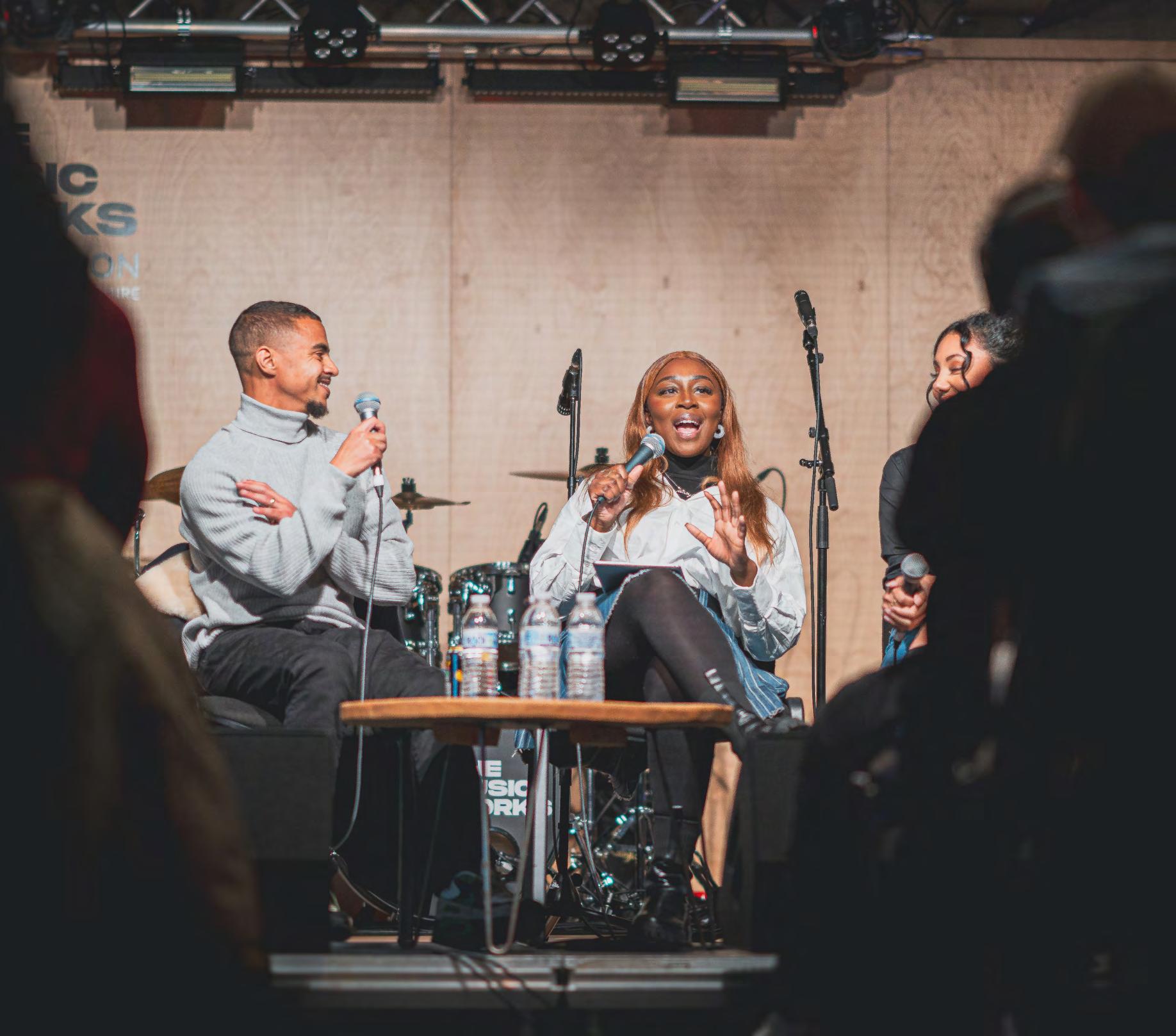
As a driving force at Channel 4, Stacey Olika's champions inclusive representation in programming while wearing multiple hats as a presenter, public speaker, and digital content
creator. Her passion for empowering young creatives is palpable as she guides them into the industry through workshops and engaging talks. Stacey's digital presence offers candid insights
104 www.blackbusinessmag.com
into navigating the complexities of twenties life, while her collaborations with brands like Spike Island, Pinterest, and Huffington Post showcase her versatile talents.
Recognised as one of Bristol's most influential women, Stacey's impact extends nationally, earning her the title of one of the UK's most influential Black creatives by GUAP magazine. We had the opportunity to speak to Stacey about how she is shaping the future of media and mentorship.
Breaking Barriers
Can you share how you’ve navigated your journey from multidisciplinary creative to becoming an influential figure in the UK creative industry, particularly as a Black woman?
After finishing university, I stumbled into freelancing. I had no clue what I wanted to do, but if something I wanted didn't exist, I'd just make it myself. That was my mantra.
I did various odd jobs—teaching and delivering packages—while working on my freelance gigs. I then launched “I Am Melanin," a passion project with friends that became significant. It was about sharing stories, building community, and empowering Black women. That set the tone for my career.
There was a phase where I felt torn. I had this itch to be a presenter, but it felt like a betrayal to the younger me who worked hard for that degree. It took a while to shake off that guilt and realise it's okay to follow my heart, even if it doesn't fit the mould I had for myself.
Staying disciplined is key for me. I kept my eyes on the prize, even when things got tough. And let me tell you, they did. Every setback just made me more determined. It's wild to think how far I've come. As a Black woman, I must represent and lift up others like me in the industry.
Empowering the Next Generation
What initiatives and strategies do you employ to support and mentor young people aspiring to enter the creative industry?
I have an open-door policy and am willing to listen to and guide those looking to break into the industry. I believe in the power of generosity and giving back, so I'm generous with my time when it comes to helping others in their creative journeys.
Even in my online presence, I am authentic and transparent. Ultimately, I am a laid-back, approachable, and down-to-earth person. If someone reaches out to me respectfully, I'm happy to offer guidance and support along their creative journey. We're in this together, and lifting each other up drives positive change and growth in the industry.
The Digital Frontier
As the Creative Diversity Coordinator at Channel 4 and a prominent digital creator, how do you utilise platforms like TikTok to amplify your advocacy for diversity, share lifestyle content, and provide insights into the realities of being in your twenties?
I'm all about sharing what I learned as a D&I expert, including some of my day-today experiences, and giving insights into what it's like being in your twenties. I try to be myself with it, which means sharing my successes and being honest about the frustrations and challenges I face.
I've been fortunate enough to have people pass on their knowledge to me, so I want to do precisely the same. Whether it's tips on career stuff or just navigating life, I’m here to share what I've learned.
TikTok is a good place for that. Someone halfway across the world could stumble
www.blackbusinessmag.com 105
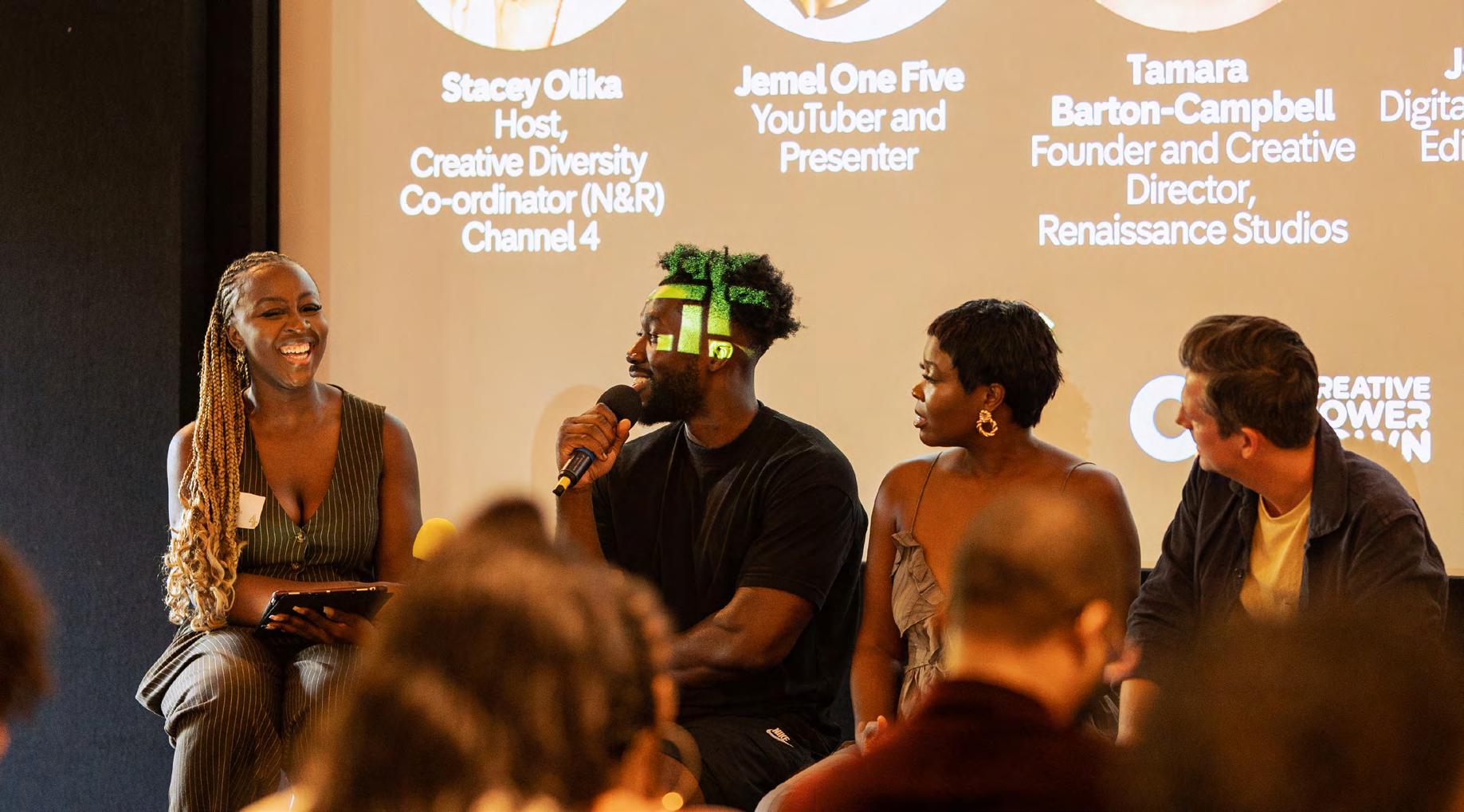
upon your content and take away something that helps them. It’s a virtual community.
Collaboration and Innovation
How do you leverage your expertise and platform to drive innovation, promote creativity, and advocate for representation within the creative industry through partnerships with organisations like Pinterest, Notion, and Faber & Faber?
Sharing our stories and experiences is a valuable tool for innovation and representation. With Pinterest, I could tell my story through digital collages and illustrations. I wanted to show what celebrating blackness means to me, and I felt that Pinterest's platform was the perfect canvas for that expression. It was a chance to visually capture the richness of my culture and community.
We collaborated with Notion and focused on regional representation. Growing up in Bristol, I've always been aware of the importance of spotlighting
talent outside the capital. So, we birthed this project, ‘No Boundaries,’ with the mantra that "talent has no boundaries." It was all about showcasing DJs from regions and backgrounds across the UK.
Creative Influence
As a creative where do you seek inspiration, and how do you like to spend time outside of work?
As a creative, inspiration is all around me, but I have my go-to’s. One of my favourite places to seek inspiration is doing puzzles. I'm currently obsessed! I have five puzzles spread out in my living room right now.
There's something incredibly satisfying about spending time alone, working on a puzzle, and just letting my mind wander.
I find a lot of inspiration in travelling. I love exploring new places and immersing myself in different cultures.
Follow Stacey on Instagram @stxce.olika
106 www.blackbusinessmag.com
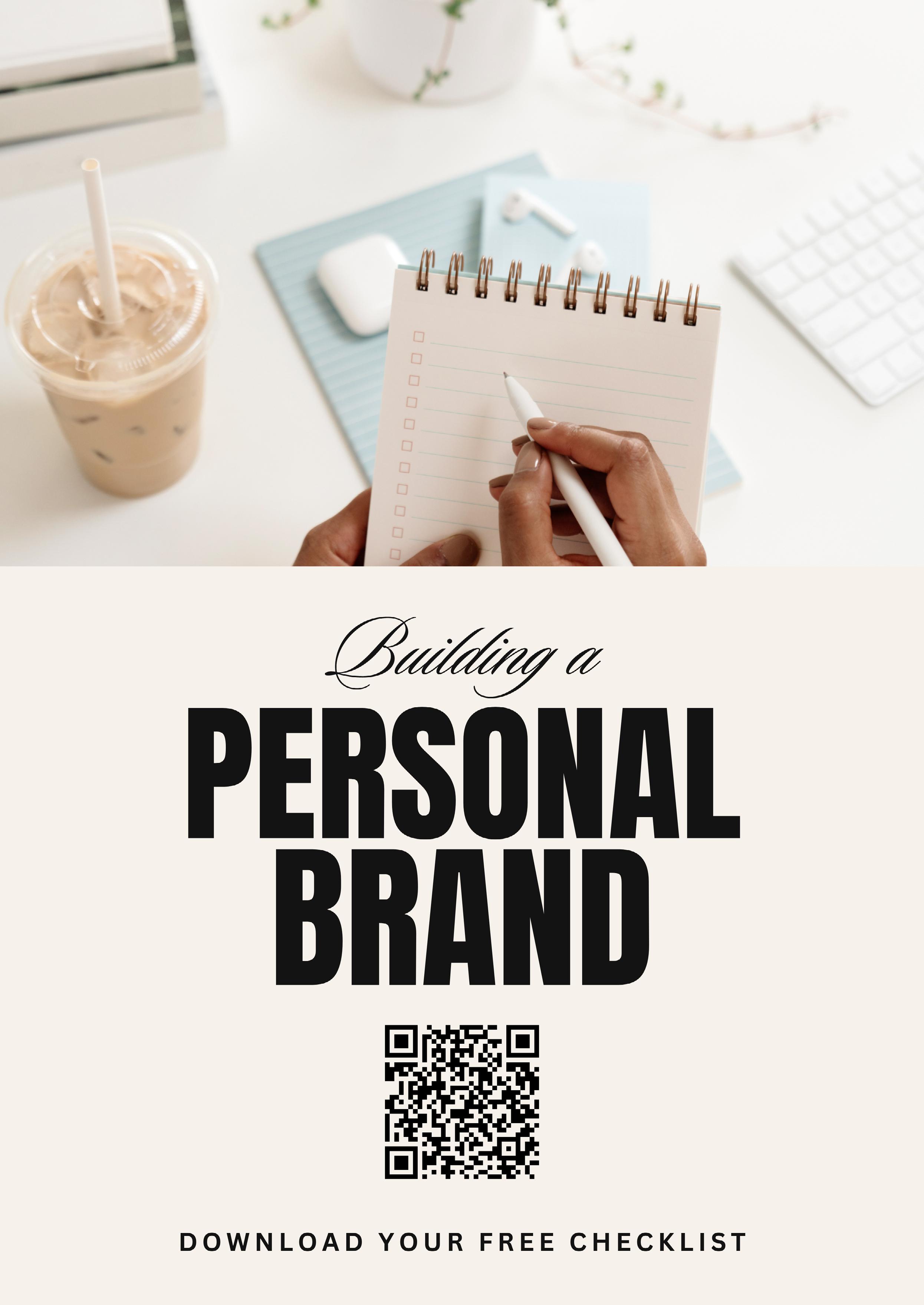
THE Governor ‘ ’ in conversation with
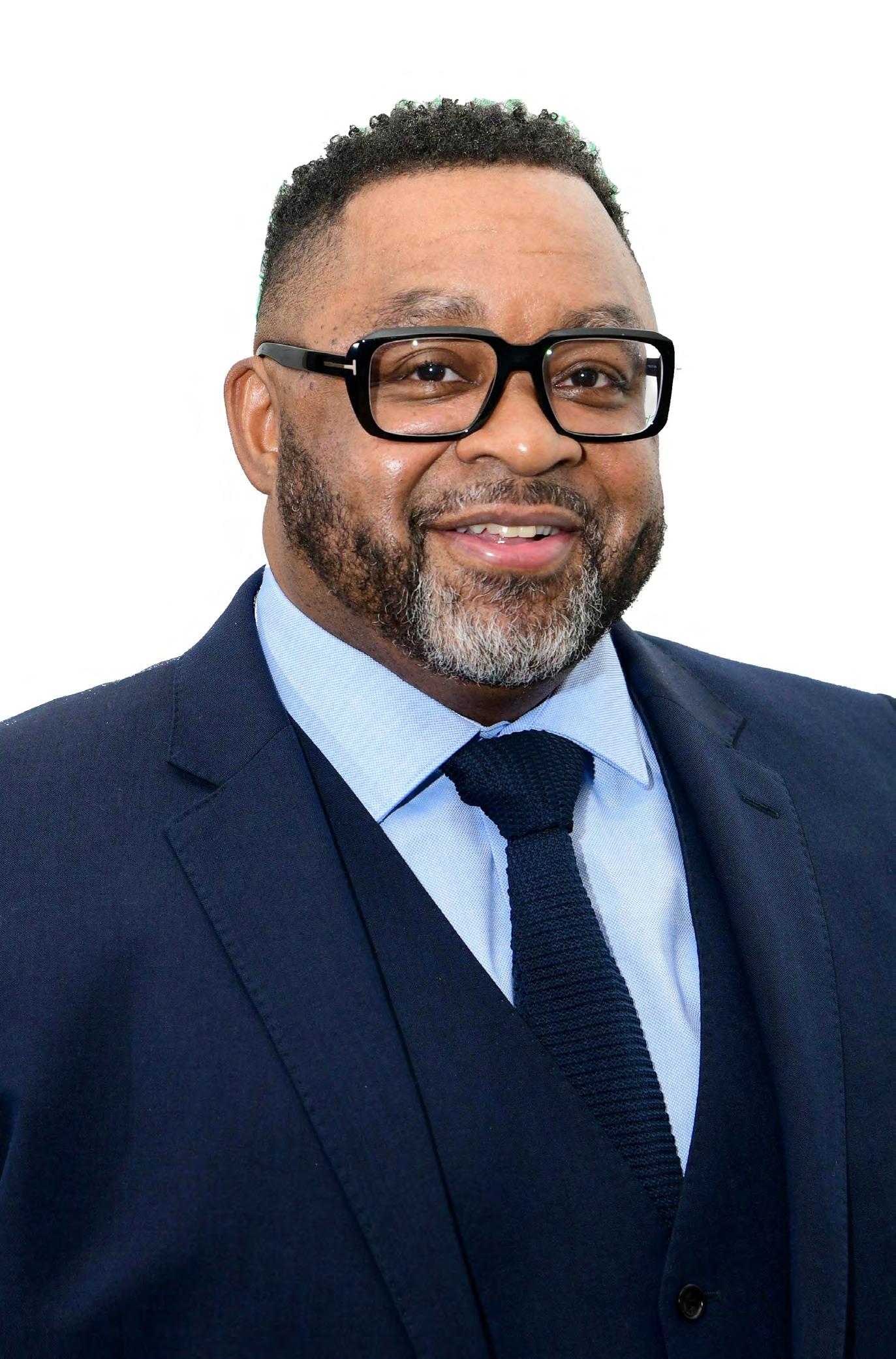
108 www.blackbusinessmag.com
Interview by Lizzie Griffiths
Karl George MBE
Karl George is a trailblazing figure whose expertise has left an indelible mark on the global landscape of governance practices. In this interview, we delve into the multifaceted career of Karl George, a thought leader and internationally acclaimed authority in governance.
With a distinguished background as a visiting professor, holder of an honorary doctorate, and esteemed author, Karl's influence extends far beyond conventional boundaries. As the Partner and head of Governance at RSM, a leading professional services firm, Karl has spearheaded groundbreaking initiatives such as The tgf Governance Code, The RACE Equality Code, and the acclaimed Effective Board Member Programmes.
Drawing upon over three decades of combined experience in accountancy, business, and strategic development, Karl brings a wealth of insight to his role.
His qualifications as a chartered accountant and Fellow of the Chartered Governance Institute underline his commitment to excellence in the field.
Karl's influence extends across borders, with his Effective Board Member Programmes reaching participants in eleven countries. His initiatives, such as the RACE Equality Code, have garnered adoption by over fifty organisations, further solidifying his status as a
catalyst for positive change. Karl shares insights from working with CEOs, directors, and company secretaries across diverse industries, offering a glimpse into his transformative approach to governance evaluation, training, and consultancy services. Join us, as we uncover the remarkable journey of a true visionary in governance.
Karl, you've amassed over 30 years of experience in accountancy, governance, and strategic management. Could you share what initially sparked your interest in governance and what led you to become an internationally recognised expert in the field?
Honestly, it all started by accident. I found myself on various boards, thanks to being a young accountant with a knack for numbers - and, let's not forget, my Caribbean roots didn't hurt either.
People kept asking, and I kept saying yes. It wasn't until deep into it that I realised this was all about governance. My grandma was the one who nudged me into accountancy because I was good with numbers, and she had to use accountants for her many business interests. However, after setting up my own practice, I discovered that my true passion lay beyond crunching numbers.
It was all about making a difference in the business and volunteer sectors. That's when I
took the leap, sold my practice, and set up a consultancy focused on governance. It was a mix of personal insight, divine inspiration, and a desire to help organisations get their governance right.
Can you share the process of leaving the accountancy world to work in governance?
Transitioning from the accountancy world to governance involved several pivotal changes in my personal brand and career direction. Initially, my work centred around the Black business community, where I played an integral role in projects like 100 Black Men and Black Link, initiatives that connected young professionals with senior leaders through modern platforms akin to today’s podcasts.
This phase branded me as the ‘Black accountant,’ a role that, while fulfilling, limited my business's growth potential due to its niche market. I merged with a longstanding business to broaden my horizons, transforming my image from the ‘Black accountant’ to the ‘young accountant’ at the helm of a historic firm.
The real shift came when I decided to delve into governance, necessitating another brand overhaul towards a more international profile.
My work with PwC in the Middle East — in places like Abu Dhabi, Dubai, and Lebanon — and
www.blackbusinessmag.com 109
engagements in the Caribbean and Africa propelled this transition. By moving away from labelling myself with professional affiliations and focusing on global governance, I successfully repositioned my personal brand and my entire business perspective.
With over thirty years of experience in accountancy, business, and strategic development, you’ve witnessed firsthand the evolution of leadership and governance practices. From your perspective, how has the governance landscape changed over the years, and what key shifts have you observed in the approach towards effective leadership within boards?
Reflecting on my extensive experience, I've observed what I term three generations of governance, each marking a significant evolution in leadership and board practices. Initially, governance was characterised by meticulous structural detail, focusing on the setup of boards and clear directives through board papers, mirroring the authoritarian yet homogenous boardrooms of the early '90s. This era was notably influenced by the Cadbury Report in 1992, setting the stage for what was to come.
The turn of the millennium ushered in the second generation, distinguished by the introduction of independent board members. This
shift brought external expertise into the fold, diversifying perspectives beyond the internal business view.
The period saw an increase in governance codes, regulatory structures, and the formation of specialised committees, driven in part by global movements such as the Sarbanes-Oxley Act of 2003.
Today, we're in the third generation, where governance includes external expertise and functional roles within the board, such as accountants, lawyers, and HR professionals. This generation is marked by a significant emphasis on diversity, including age, gender, ethnicity, and cognitive diversity—reflecting a structured yet adaptable approach to governance.
This evolution showcases a dynamic governance landscape grounded in solid principles and flexible enough to adapt to the complexities of modern business environments.
You have developed innovative governance frameworks throughout your distinguished career, such as The tgf Governance Code and The RACE Equality Code. Can you share the inspiration behind these frameworks and how they address contemporary challenges in governance and diversity within organisations?
I've always been sort of a governance nerd, fascinated
by the myriad of governance codes out there, from housing to healthcare and charities. There's a code for everything, and that's pretty exciting in my world.
But here's the thing: I noticed how overwhelming it can get for folks navigating these codes across different sectors. So, I had this lightbulb moment: why not pull all these insights into one easyto-digest framework? That's how the TGF - The Governance Forum framework was born.
I dove into 11 different codes from around the globe and brought them all together, and now we have a universal governance code. It's been pivotal in helping me to run diagnostics on over 100 organisations to see how they stack up against our gold standard.
The Black Lives Matter movement led me to write the race equality code. I wrote to Number 10 and strategic leaders in the NHS because they are the largest employers of ethnic minorities. I also had meetings with the National Housing Federation as they updated their governance code and Sport England in their consultations on updating their governance code.
All this work on governance codes made me distil all those countless reports and recommendations on race and equality into something tangible and actionable. My race equality framework is the
110 www.blackbusinessmag.com
culmination of all that effort, providing a clear, strategic path to more inclusive governance. It's about making those lofty ideals practical and something we can actually work towards, one step at a time.
Your Effective Board Member Programmes have been delivered globally, offering vital insights into board effectiveness and diversity. What are the most critical competencies for board members in today’s fast-paced and diverse global business environment, and how do your programmes address these needs?
I have trained over 1000 people in 11 countries around the world. This ranges from people with lots of experience in huge corporations, listed companies, and global companies to the smallest charity to people working in the education system. I’ve trained the youngest right through to the oldest, and the fundamental principles are precisely the same.
Whether you're a global company with a billion pounds of turnover, a small school or a charity, the principles are the same. It's new to everybody because it's the framework I teach people. So you'll learn something new even if you've done many board appointments.
I've got two acronyms that helped remind me of the competencies of a board member.
The first one is SPARSE:
S stands for strategic. Strategic thinking is one of the core competencies. You have to be strategic as a board member.
P stands for People. You set the remuneration of the senior people as board members - so not the general staff but the directors. You can attract, retain, and motivate the best people.
• A stands for Ambassadorial. So, you are the voice for internal and external stakeholders .
R is for Risk . Not your daily risk but your strategic risk. You have to set the risk appetite for the organisation, consider the strategic risks that might impact us, and have a plan in place.
• The second S is for Scrutiny. We want to scrutinise and challenge the executive. We have to do this in a non-conflicting but not too friendly way. Make sure there's healthy tension with the executive.
• E is for Evaluate. Evaluate your own performance and ensure you're always checking what's working and what's not working and your individual performance.
So those are the core competencies people need, and then I've got some more, which I call the six Cs.
The six C’s:
Competence: You've got to have a base level of knowledge for the core competencies like governance, legal, finance, human resources and, recently, digital and cyber.
Contribution: You've got to be able to contribute in the boardroom. That means that we bring our specialist skills to the boardroom. So if I'm an accountant, there's a more significant duty of care expected of me in accountancy because that's a skill I bring, and I've got to contribute across the whole agenda.
Committed: It’s no good having the skills and competence if you don't attend the meetings. You've got to read the papers, attend the meetings, and attend training. Make sure you're aware.
Capability: These are the soft skills you need as a board member, such as negotiating skills, being articulate, influencing skills, and the ability to read, almost the equivalent of a novel because the papers are about 300 pages long for each meeting sometimes.
Code of behaviour: We’ve got to have integrity. Sensitivity, confidentiality. What we say in the boardroom is confidential. And when we make a decision, we must do it collectively. So that's that.
www.blackbusinessmag.com 111
Comprehension: Understanding the organisation. Every organisation is different, so you’ve got to understand its history and culture.
Have you seen increased diversity among board members, or do you think there's still a long way to go?
Unfortunately, there's a lack of representation of age, gender, and ethnicity. Over the last ten years, we've done much better on gender because there's been a focus on gender. It started with the Davis report in 2011.
We're starting to do some work around race, but it's still woefully underrepresented. Age is difficult because you need experience to be on boards as well, but it is still an area we need to tackle to bring the average age down.
Your latest publication, 'Governance 3.0', offers an international perspective on contemporary governance, while your bestseller, 'The Effective Board Member', remains an essential read for board members globally. Can you share the inspiration behind the books?
'Governance 3.0' describes the three generations of governance. The aim was to equip people to work in the rapidly changing technology environment. Postpandemic, we find ourselves in a new world and embracing the digital age.
'Governance 3.0' recognises that we must have new ways of working with a new demographic of people to cope with the rapidly
changing business world in which we see ourselves.
'The Effective Board Member' does what it says on the tin. I've got a unique way of helping people understand board behaviour because I talk a lot about compliance, which is essential. But governance is more than compliance.
Bad behaviour in the boardroom can undo all your excellent work. I introduce what I call my TGF zoo, several animals to describe behaviour in the board room. There are 12 animals in the zoo, but I use four in the book.
The peacock demonstrates the ego; the busy bee describes the interfering operational board member; a shark demonstrates the dominant board member; and a rabbit for the board members who are stuck in the headlights and are scared to do anything.
Mentorship plays a crucial role in leadership development and governance excellence. Could you share your views on the importance of mentorship and shape in shaping the next generation of leaders?
In my years of mentoring and role modelling, I put everything into a sponsor program I've developed. This is split into five stages: awareness, inspire, mentor, sponsor, and the recipient.
Before you even begin to mentor people and before people look for a mentor, there's this awareness that it's not what you know; it's who you know.
The Inspiration phase involves seeing a Black accountant who is a partner in a firm and knowing that it is possible to be in that position. You’ve been inspired.
You are then aware as you've been inspired. Now, I want to mentor. Mentors can be informal or formal and are wise and trusted counsellors.
They're just helping you to achieve something they've done before. A mentor should speed up the process for you. My unique take is that we need to get a sponsor after I mentor.
A sponsor goes through four stages. In the first stages, they just introduce you to opportunities. In the second stage, you have to see if there is an advocate for you.
So when you're not in the room, they speak about you. The next stage is to promote you. So they're not only talking about you but saying you should use this person; they are really good.
The final stage of a sponsor is an investor. They invest in you by giving you a job or contract. They will invest in some kind of commitment.
The last stage of the cycle is when you are the recipient. I've seen full circle with people I mentored end up having a bigger business than mine, and then they have given me advice like I did for some of my sponsors.
For more information about Karl George and his publications, visit www.karlgeorge.com
112 www.blackbusinessmag.com
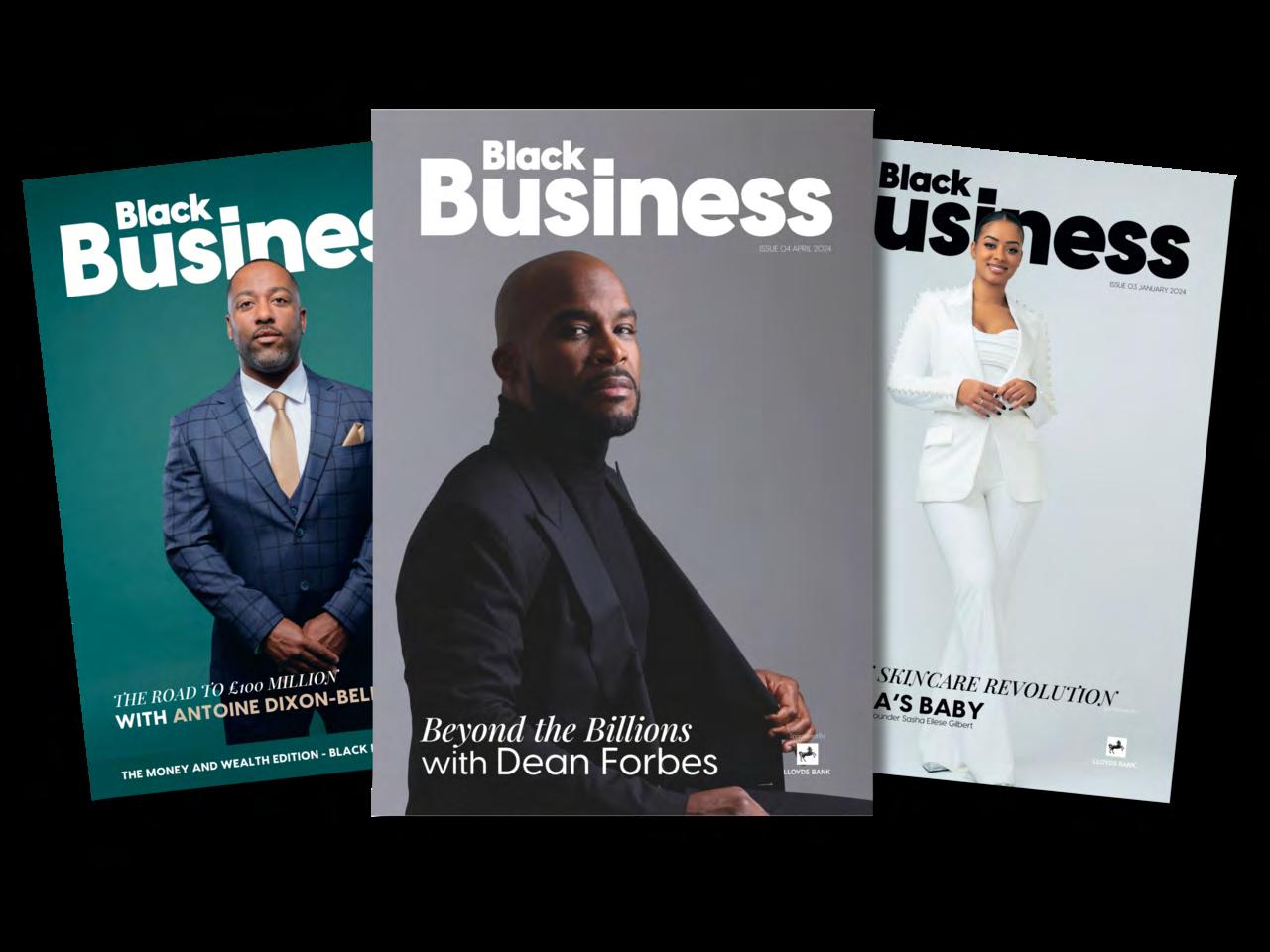

www.blackbusinessmag.com 113 • Exclusive Discounts • Free Business Resources • Exclusive Content every Month • Access to Expert Business Clinics • Your Quarterly Digital or Print Edition Subscribe to Black Business Magazine blackbusinessmag.com/subscriptions
Pioneering change through Inclusivity
Georgina Wilson is a trailblazer who drives tangible change through innovative and inclusive approaches. With a passion for empowering women in leadership and a commitment to supporting Black and Global Majority-led businesses, Georgina aims to make a lasting impact.
Renowned as the ‘£50 million woman’ by Pitch Black Magazine, Georgina’s ChallengeX2 campaign aims to double the revenue of 2030 Global Majority women by 2030, exemplifying her determination to create economic opportunities for marginalised communities.
Drawing from years of expertise as a Public Speaker, Systems Thinker, Programme Designer & Project Manager, Facilitator, and Leadership Coach, Georgina founded BUD in 2014 to promote diversity in leadership roles. Recognising the barriers faced by Global Majority women, she strives to provide them with the necessary networks, tools, and resources to thrive.
Tell us about what led you to found BUD Leaders and your commitment to facilitating real change through innovative approaches. Can you share some examples of your unique strategies in your programmes, particularly in empowering women in leadership and change?

114 www.blackbusinessmag.com
BUD Leaders has just turned ten years old, but it started years before this. I was eight years old, watching my family television, when an advert to donate to causes supporting poverty in Africa came on.
It was harrowing, and left me shocked. I thought, ‘No one should be experiencing this’. I called the line immediately, desperate to donate my £3 a week pocket money to those who needed it more.
When the call handler answered and I explained how I wanted to get my money sent every month, she asked if my mum was home. I told her she was at the shop, and she’d be back soon.
The call handler started to laugh and sneer, telling me it didn’t work that way and I couldn’t do it. I felt devastated. Totally disempowered. I decided no one would take my power away from me again.
Fast forward to 2014, BUD Leaders was launched with a vision to create a world where diversity in leadership is not just an aspiration but a reality. Recognising the national systemic challenges that Global Majority women face, BUD Leaders was born out of a commitment to facilitate
real change through innovative approaches. We help people recognise their potential, and grow as a leader. We then give them support for the barriers they face to leading others, developing their organisations and changing the systems that create disparities.
We make ‘non-boring’ experiences for learning, growth, and change, and we ensure that there are tangible actions to take. After all, talk is cheap and we want to facilitate transformation.
Statistically, Global Majority women possess the talent, but need more networks, tools, and resources to advance in leadership roles. Can you share how BUD Leaders address these disparities, and what strategies do you employ to provide them with the support and resources needed to thrive in leadership positions?
This is true; we have the talent! We address this inequity by ensuring that what we provide is accessible to those who need it.
Global Majority women can engage with these solutions in several ways, and large organisations work with us to find solutions around their diversity
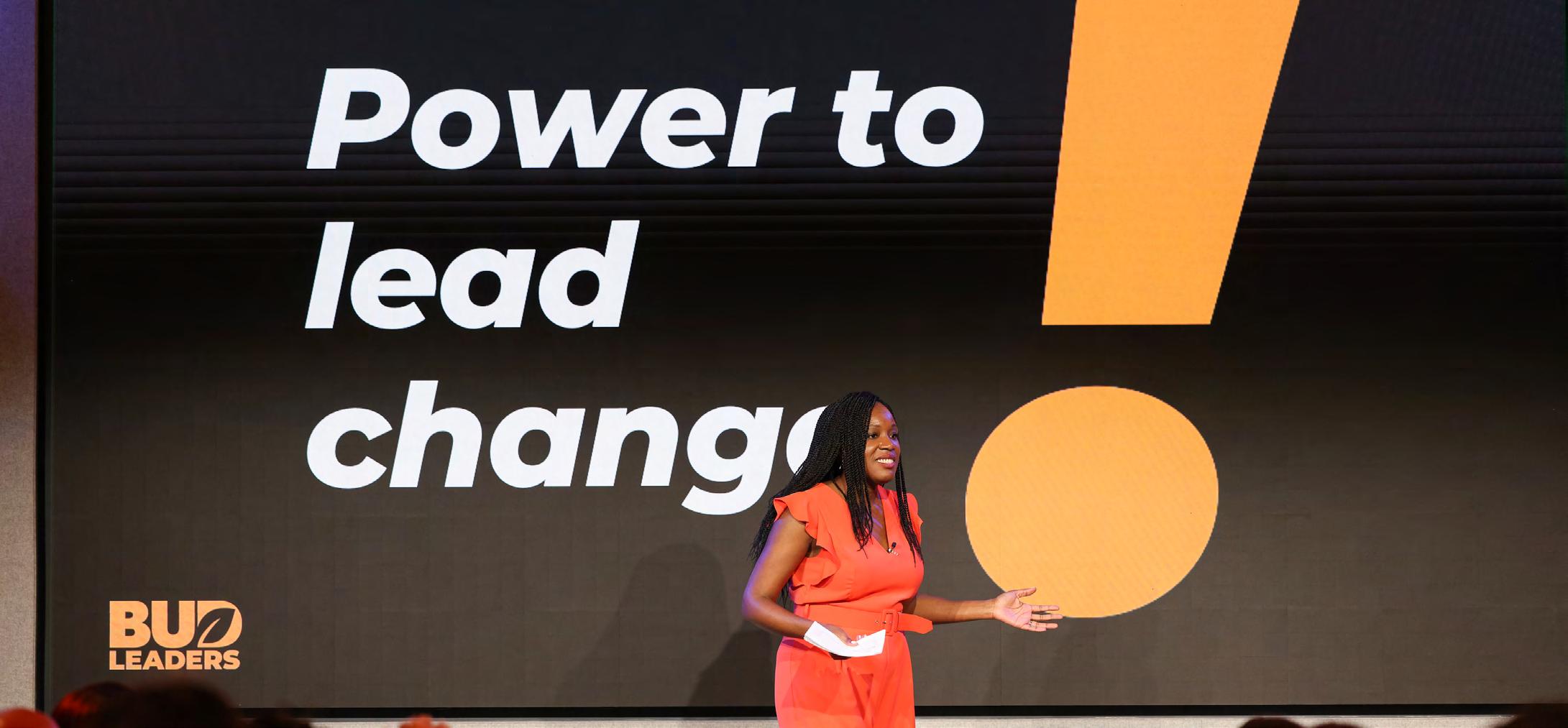
www.blackbusinessmag.com 115
in teams and supply chains. Our community platform, BLOC (BUD Leaders Online Community), is free to use and is an opportunity to connect with peers and wider networks that are all there for the same reason: to see and create more equity.
Become a member and you’ll benefit from learning from peers in small businesses, and colleagues from our network of large organisations, trusts, and foundations. With the potential to participate in more, such as Hackathons, masterclasses, and more, there are many opportunities for you and your business. Plus, you can also join our ChallengeX2 movement.
BLOC aims to create a culture of reciprocity. Not only do you share your experience and expertise, but you also learn from others. There is an opportunity for skill sharing, mentorships and collaboration.
We have created several programmes and strategic partnerships with larger organisations and trusts to provide the tools and skills required for us to be successful.
This includes our ‘Supplier Springboard’ programme to become supplier-ready and increase your chances of winning big business contracts, or ‘Facilitating Black Brilliance’, a programme that demystifies social investment. We have developed several resources available to access via our online community, and our in-person events are strategically designed to equip, enable and give power back to our Global Majority women, so that they can thrive.
Your background as a Systems Thinker, Programme Designer, and Leadership Coach uniquely positions you to drive meaningful
change. How do you integrate these diverse skill sets into your approach to leadership development, especially considering their systemic challenges?
My background as a Systems Thinker, Programme Designer, and Leadership Coach allows me to take a holistic design approach.
Therefore, the programmes I design address the multifaceted nature of leadership development. I can also explore and recognise the parts of the system, the broader system as a whole, and the challenges faced by various stakeholders. This is crucial when trying to change systems to bring real societal change. We may deliver programmes and support, but this is all aimed at the broader vision to facilitate change.
As the founder of BUD and a seasoned public speaker, you’ve empowered thousands of women in leadership roles. Can you elaborate on the inspiration behind your ChallengeX2 campaign and your mission to double the revenue of Global Majority women-led businesses by 2030?
ChallengeX2 2030 is our mission to double the revenue of 2030 Global Majority women in business by 2030. It’s a bold but necessary goal to change the way that the UK does business, to overturn the vast disparities for Black and Global Majority women, and to eradicate the decisions being made today that worsen inequity.
This equates to a minimum of £50 million added to these businesses, their families and communities. We were thrilled to launch this programme at our recent 10year anniversary event, and it’s beyond exciting to see people and
116 www.blackbusinessmag.com
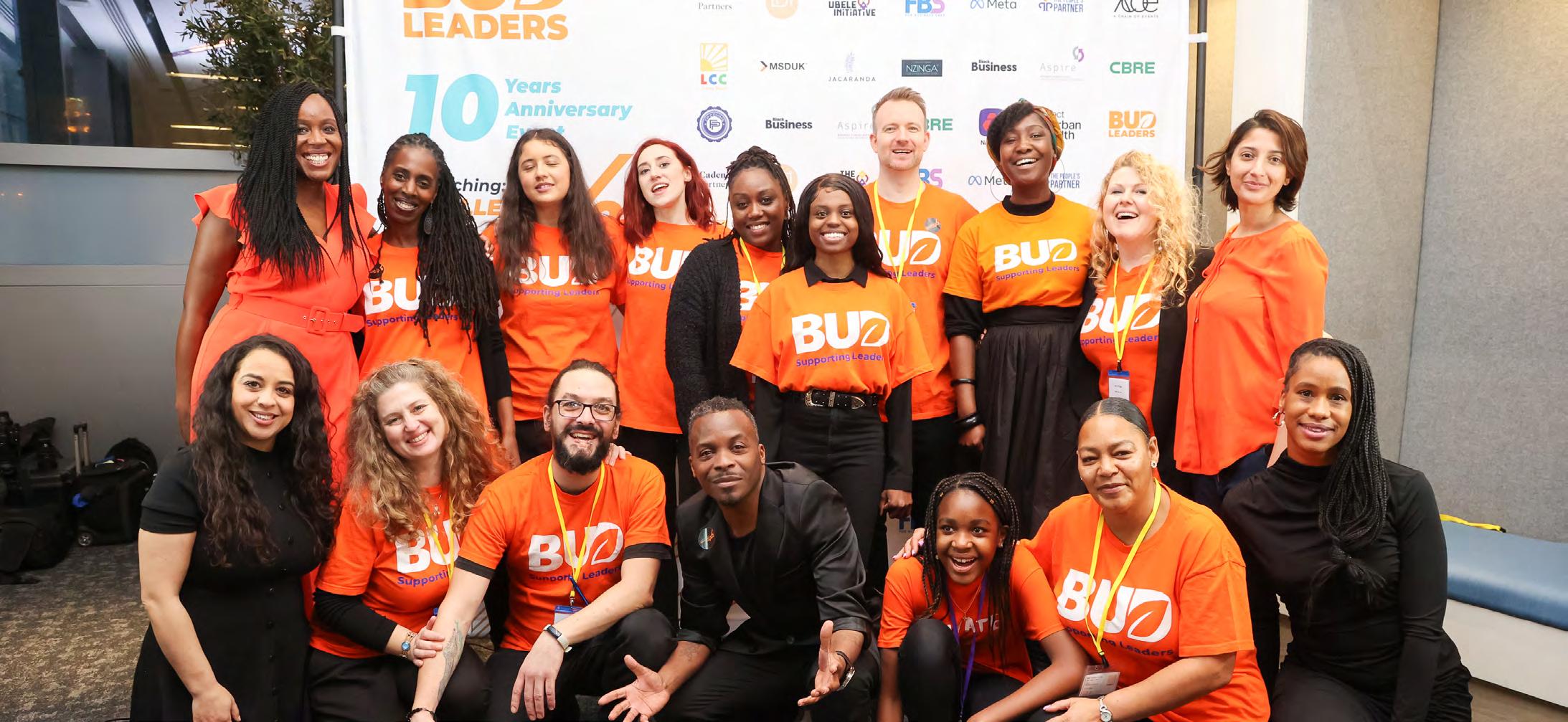
organisations join this movement by pledging towards ChallengeX2.
How does it aim to address the systemic barriers faced by Black and Global Majority women in business and leadership?
Our theory of change is to create more power and equity for Black and Global Majority Women in Business. However, we needed something much more substantial, something tangible, so that people could be part of a movement for change that would impact businesses and communities!
This entrepreneurship vehicle is all about wealth building. Business inequities have a negative ripple effect on our families, housing, and health. We want to shift this through ChallengeX2.
Pledging encourages all involved to actively work towards addressing the systems and structures that create inequity in the business world, focusing on increasing the revenue and the growth of Global Majorityled businesses. This will create a positive ripple effect as others see more people who look like them becoming successful, as well as their families and communities. We hope this movement creates a legacy!
How can individuals and organisations get involved and pledge their support?
We aim to make things accessible and straightforward, so the pledging process is precisely that. Simply visit budleaders.org or scan the QR code below to pledge today and join the movement!
1. Register to pledge towards this mission as either a Supporter or Global Majority woman looking to double your revenue.
2. Confirm your pledge and share briefly how you’d like to get involved, what you can give or what you need, for example, skills, mentorship or being an ambassador.
3. Create your profile, and get connected (BUD Leaders will be in touch, too).
You can join us as a Global Majority business owner and pledge to take action that helps grow your business and creates a ripple effect of success inspiring success.
For more information, visit budleaders.org
www.blackbusinessmag.com 117
Leadership Spotlight
Lorlett Hudson
Championing Leadership and Cultural Preservation
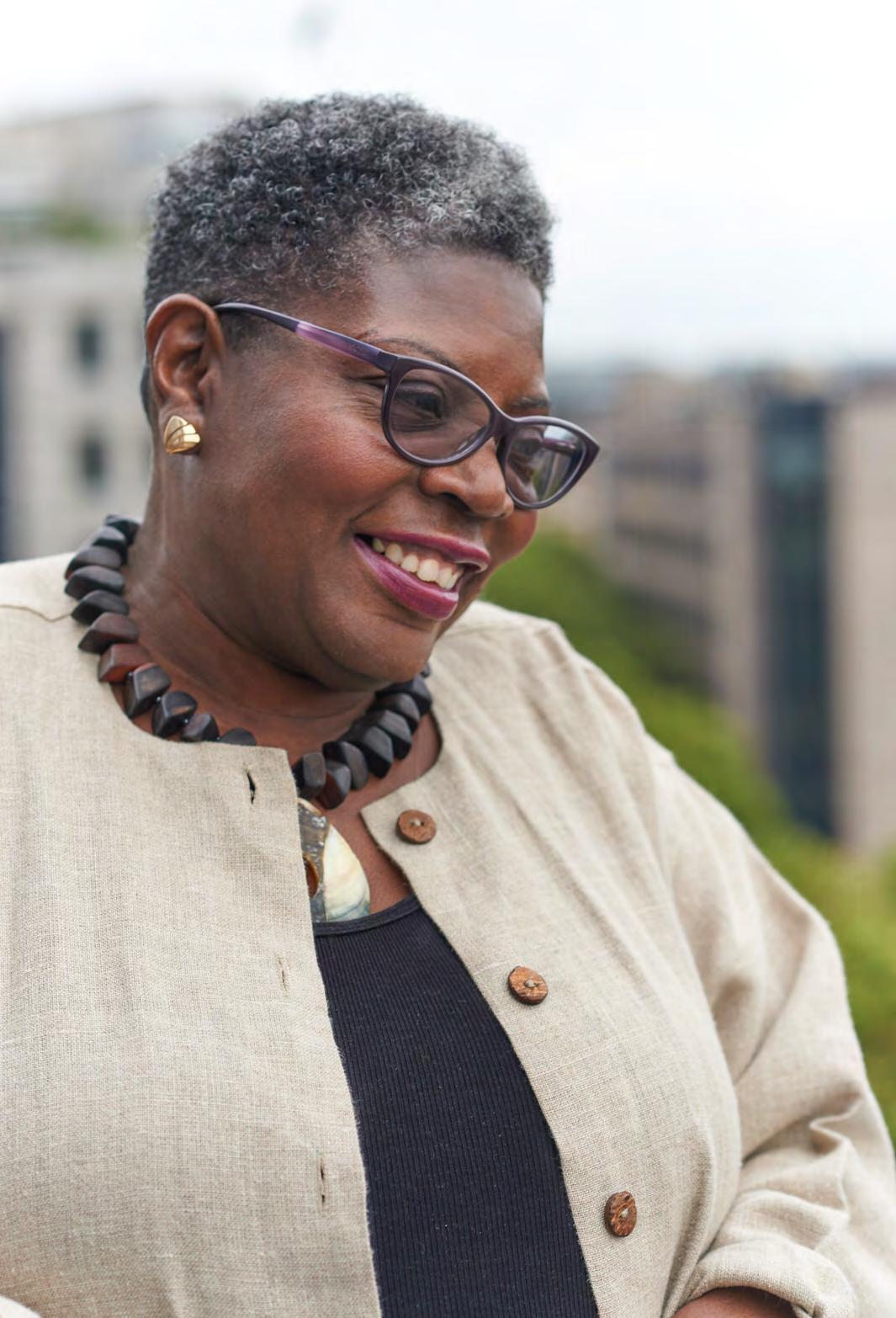
Lorlett Hudson is a dynamic business leader, leadership coach and innovator whose career spans over three decades of transformative impact.
118 www.blackbusinessmag.com
With boundless energy and a visionary mindset, Lorlett has dedicated her life's work to championing leadership, fostering cultural preservation, and driving business growth.
As the CEO and Founder of One Hand Cant Clap, a premier Learning and Development Enterprise in the UK, she has cultivated a robust network of Senior African and African Caribbean leaders and entrepreneurs, leaving an indelible mark on the industry.
Lorlett's pioneering approach to entrepreneurship and leadership development has garnered prestigious accolades, including the Silver Award from the British Female Inventors & Innovators Awards, recognition from the Wavemakers National Awards, and accolades from the GLE Enterprise Award and Pride of the Caribbean for her innovative business and brand.
As an RSA Fellow, Lorlett is part of a global network of 29,000 individuals committed to driving positive change.
Her involvement as a Cherie Blair Business Mentor, and a mentor at the Branson Centre of Entrepreneurship Caribbean, underscores her dedication to nurturing the next generation of leaders and fostering a culture of innovation.
With over 30 years dedicated to championing leadership and building leaders, Lorlett's journey is characterised by transformative moments and success
stories. She has mentored numerous Senior Black leaders who have gone on to become top leaders in their communities and global business owners, transforming education and industries alike.
One of Lorlett's notable contributions to cultural preservation and education is her critically acclaimed invention, "The Things Mama Used To Say, Jamaican Proverbs Cards."
These cards aim to teach cultural intelligence and preserve cultural heritage.
People interested in purchasing these cards can visit onehandcantclap.co.uk to access this innovative tool for learning and cultural appreciation.
Lorlett's commitment to innovation and excellence in her field is further reflected in her approach to mentorship, where she influences and motivates visionary leaders and entrepreneurs to change, grow, and make their bold ideas a reality.
Through initiatives like the Cherie Blair Business Mentor programme and the Branson Centre of Entrepreneurship Caribbean Business Mentorship, Lorlett continues to guide and inspire aspiring entrepreneurs and leaders on their journeys, leaving a lasting impact on individuals and communities worldwide.
Find Lorlett on LinkedIn linkedin.com/in/lorlett-hudson
www.blackbusinessmag.com 119
Spicing Up Traditions
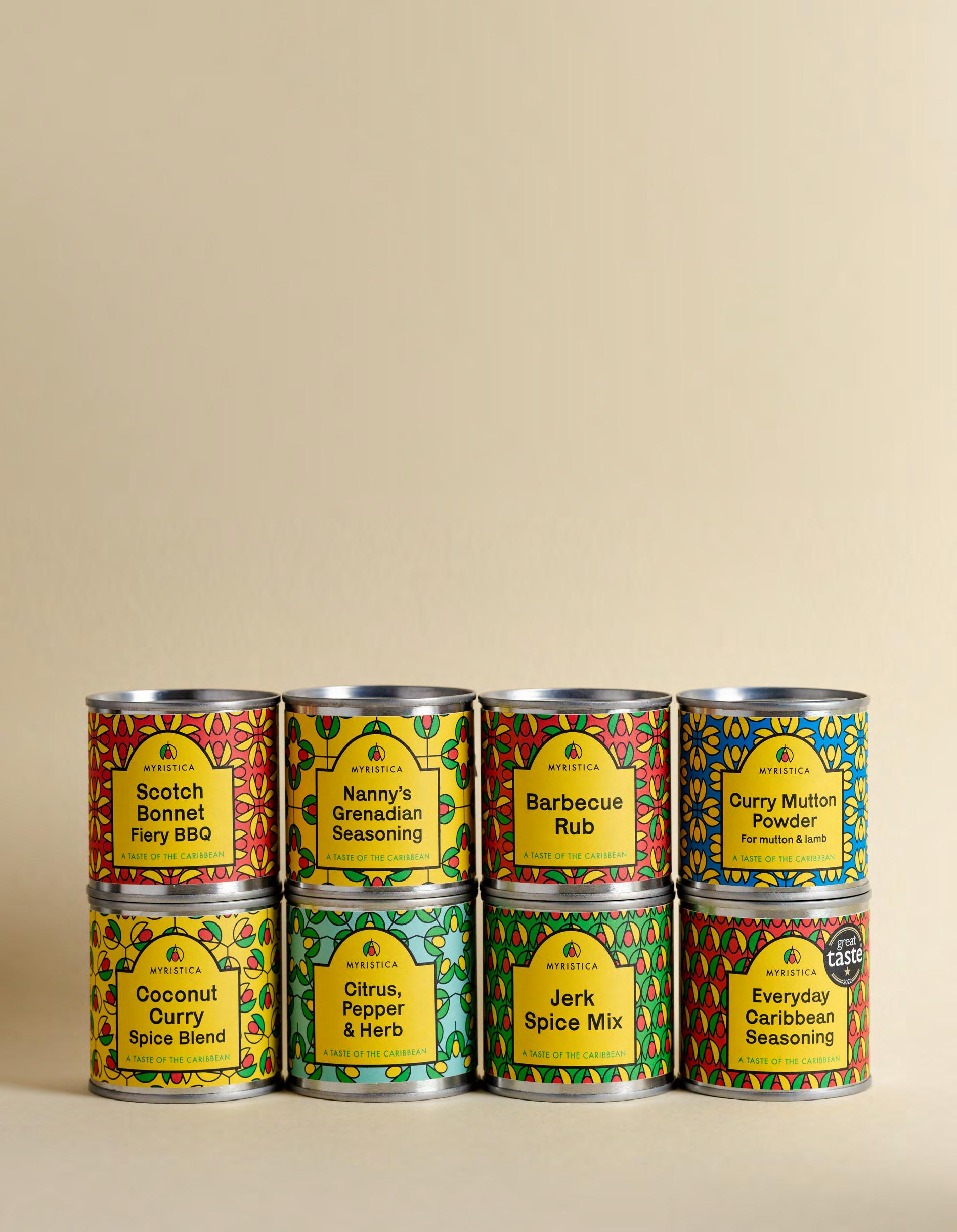
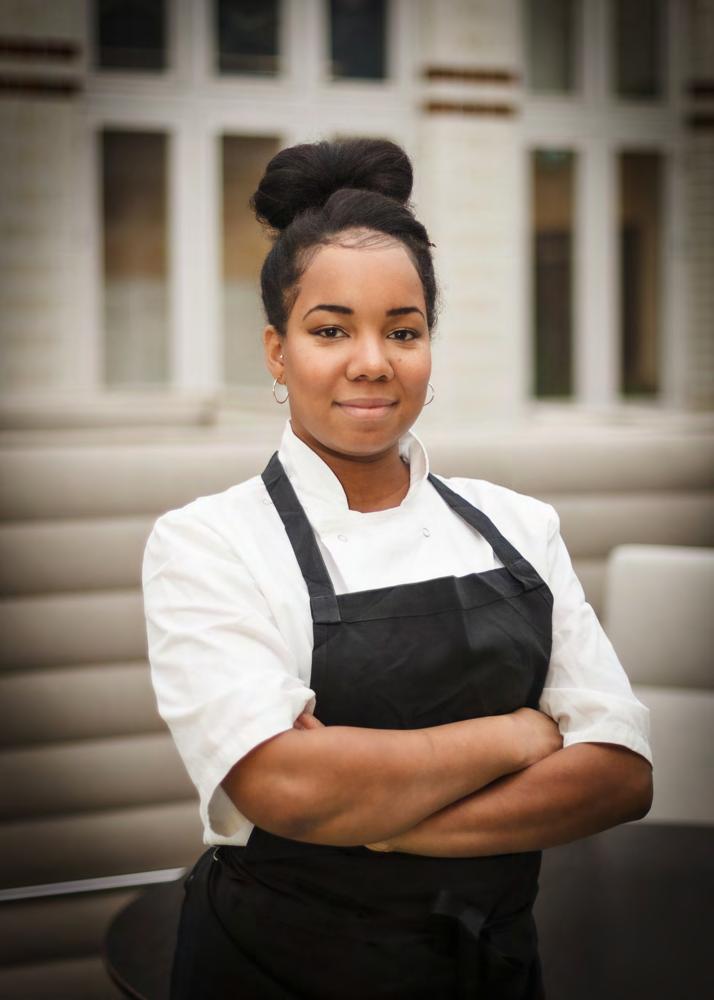
120 www.blackbusinessmag.com
Michelle Trusselle's Journey to Caribbean Culinary Royalty

Michelle Trusselle is a Caribbean culinary talent renowned for her innovative approach to showcasing the flavours of her heritage.
As a semi-finalist on MasterChef: The Professionals, she garnered praise for her Caribbean-inspired dishes, earning acclaim from renowned chefs like Marcus Wareing, who described her creations as "Caribbean royalty on a plate."
With a culinary background that includes training in Michelin-starred kitchens, Michelle blends traditional Caribbean recipes with modern gastronomic techniques. Her brand, Myristica, embodies her Caribbean concept, offering a platform to share recipes deeply rooted in her family heritage.
Growing up with the aromatic scents of island spices wafting through her grandmother's kitchen, Michelle developed a profound appreciation for the rich flavours of Caribbean cuisine.
Her grandmother's Grenadian roots imbued Michelle with a love for spices and a passion for cooking that she carries into her culinary endeavours. This can all be found in Myristica’s eight Caribbean island spice blends, two of which have been awarded a Great Taste Award.
Michelle hopes to inspire a newfound appreciation for this vibrant culinary tradition by encouraging others to explore Caribbean cooking with her spice blends.
“I started creating spice blends because I found that when seasoning food, we Caribbeans would often go by sight as to how much of each spice we should use. Although instinct to some of us, I realised this may not be easy for others. That's when I began to create, develop, and tweak spice blends so that anybody using them can easily have authentictasting Caribbean food at home. I also made other spice blends to encourage people to bring Caribbean flavours to their everyday favourite dishes.”
Michelle hosts Caribbean supper clubs alongside Myristica, inviting guests to experience Caribbean cuisine's vibrant flavours and cultural richness firsthand.
For Michelle, Caribbean food isn't just about the flavours - it's about the joyous memories and sense of community accompanying each dish. Through her work, she aims to share the warmth and vibrancy of Caribbean culture with a broader audience, inviting people to embrace the spirit of the Caribbean through their culinary adventures. Michelle Trusselle's mission is clear: to share the joy, flavours, and heritage of Caribbean cuisine with the world, one spice blend and one delicious dish at a time.
For more information and to purchase Myristica products, visit myristica.co.uk Follow Michelle on Instagram
@ChefMichelleTrusselle
www.blackbusinessmag.com 121

Empowering Success
THE JOURNEY OF DR. YEKEMI OTARU
Interview by Bayile Adeoti
122 www.blackbusinessmag.com
Dr Yekemi Otaru is an awardwinning entrepreneur, chief growth officer, and co-founder of Doqaru Limited. Doqaru works with individuals and teams to boost sales capabilities and, thus, revenue growth. Yekemi is a GlobalScot, an avid supporter of women in business, and a mentor for businesswomen in the world’s poorest countries.
Yekemi is a published B2B social media author who inspires her audience through her significant online presence to achieve great things.
She is best known for her authentic personal stories and uplifting content. In September 2021, Yekemi was appointed Chancellor at the University of the West of Scotland (UWS). UWS awarded her an honorary doctorate for her contributions and commitment to higher education and learning in June 2022.
Last year, she won Service Industries Entrepreneur of the Year at The Great British Awards 2023. Her business also scooped the Business of Excellence of the Year award at the Black Scottish Awards last November.
Who were your role models when you were growing up?
Growing up, Oprah Winfrey was a significant role model for me. I absolutely loved her. I was fascinated by her story and the way she was able to connect with her guests live on TV and uncover what made them tick.
Her natural and authentic approach allowed her to draw out real gems from people. As an accomplished Black woman, Oprah served as an inspiration to me and many others. More recently, Michelle Obama has
become another role model of mine. These women have inspired a generation of women from all backgrounds. We need to support and encourage each other, and these women are fantastic examples that we can learn from and emulate.
You wear many hats. How do you manage it all?
The key to managing multiple roles is to have supportive people around, including family, friends, and my team. I prioritise and delegate tasks to build flexibility and control, but I still have room for improvement.
Recently, I wrote about becoming better at delegation, acknowledging that I am a work in progress. Setting boundaries is crucial for maintaining my sanity, and I also give myself some slack when I have to change plans or miss something.
I am fortunate to have a fantastic team I can trust to get things done, and my husband’s support is particularly invaluable. Without him, I couldn’t handle everything I’m doing now.
What are the key lessons you’ve learned in your entrepreneurship journey?
Some important lessons for entrepreneurs are to be kind to yourself, work hard but not at the expense of others, build a supportive network of fellow entrepreneurs, stay open to new connections, nurture relationships, and rely on faith or spirituality when facing challenges.
The path to success can be difficult, so it’s important to have resilience and seek support from others. Whether young or old, it’s never too early or too late
to become an entrepreneur. Additionally, you can always try entrepreneurship and move on to other pursuits. Entrepreneurship teaches valuable skills such as self-awareness, resilience, and resourcefulness, which can benefit you throughout your career. If you’re considering becoming an entrepreneur, take the time to carefully consider it because it could be the making of you.
What does success look like to you?
I define success as having peace of mind and positively impacting people. It also means leaving a legacy where your actions continue to live on. Success, in my book, means being able to live well, healthy, with a clear conscience, and knowing that you’ve made a positive impact in your little corner by being on this earth.
One of the barriers Black people face is a lack of networks and mentorship. How do you support founders?
We must see people like us doing amazing things. Supportive networks and mentorship nurture and grow a thriving community, so publications like Black Business Magazine are crucial for driving black representation in UK business and showcasing the incredible founders behind them.
To support Black entrepreneurs and professionals, I often serve as a sounding board, make introductions to helpful contacts, provide mentorship on skills like sales, and generally aim to create more visibility for Black achievement so others can see what is possible.
For more information yekemiotaru.co.uk
www.blackbusinessmag.com 123
Driving Growth and Diversity
An Interview with Natasha Ferguson, Chief Operating Officer of the Taylor Bennett Foundation
Interview by Lizzie Griffiths
Natasha Ferguson is the Chief Operating Officer at the Taylor Bennett Foundation, spearheading initiatives to enhance growth and diversity within the organisation.
With over 15 years of international communications expertise, she brings a wealth of experience to her role, and drives transformative change.
From her early days as a journalism graduate to her current position, Natasha's journey embodies her unwavering commitment to fostering inclusive

workplaces and empowering underrepresented talent. As a seasoned talent advisor, Natasha has influenced industry practices, advising global entities on implementing inclusive talent solutions.
Her rise to COO underscores her dedication to organisational excellence and diversity. Natasha's leadership at the Taylor Bennett Foundation reflects her vision for driving impactful change and fostering a culture of inclusion within the UK business and thirdsector landscape.
Natasha, congratulations on your appointment as the first Chief Operations Officer of the Taylor Bennett Foundation. Can you share with us what attracted you to this role and your vision for the Foundation as it enters this new phase of growth and transformation?
Thank you so much! I’m a 2018 alumni of the Foundation (TBF) and I have always stayed close to what's happening. Over the last few years, I’ve worked in different roles for TBF. When I came back last year, the success
124 www.blackbusinessmag.com
I delivered across functions organically created the role, which made the offer of being the first COO attractive, as I have the opportunity to make the position my own.
My vision over the next three years is to expand our reach and support more candidates outside of London with the opportunities our programmes offer. Companies and candidates have shared their interest in diversifying sector and location opportunities. The Summer Stars Programme, which has been running for the last six years, is where our national reach continues to expand, with candidates and companies in Birmingham, Manchester, and beyond collaborating with us to increase diverse representation within their workplace.
Your background spans journalism, EU strategic communications consulting, and talent management. How do you use your diverse expertise to make a difference in your new role?
The crazy thing is when I look back at how broad yet unique my skill set is, I give God thanks for the journey as everything fits seamlessly for this role. The TBF is a part of a group of leaders advocating for change in the PR and communications profession, in which I have over 15 years of experience. Having a 360-degree view of the position as a Black woman living in the UK and Brussels positions me responsible for articulating and communicating our vision unapologetically.
As an advisor in consultancy, I have been graced to navigate conversations around systemic barriers by understanding how recruitment and the talent process can create blind spots that impact diverse talent. I have experienced
the selection process multiple times myself, which has given me insights into why certain positions were not chosen. This experience allows me to counsel others with a broader, more comprehensive perspective.
According to research by Green Park, just 17 of 1099 leadership roles across British society are held by Black people - just 1.5% compared to a 3.6% proportion of the national population. Do you hope your appointment as COO will contribute to the broader conversation about representation and inclusivity, particularly for Black women and other underrepresented groups?
For those who want to join the change by increasing C-Suite representation across UK FTSE businesses, then yes, I hope my appointment allows me to speak with more organisations on how to deliver accountable talent solutions to support the transformation they want to create when increasing diverse representation.
The number of FTSE ethnic CEOs is increasing, as the latest Parker Review report highlighted this month: “According to a report by the Federation of Small Businesses (FSB) and the Centre for Research in Ethnic Minority at Aston University (CRÈME), Blackled businesses contribute as much as £25 billion to the UK economy.” This is an exciting moment for leaders running British businesses to recognise the opportunities and potential outlined above. This should make the 2027 goals the Parker Review has set for organisations one to watch.
Do you have specific initiatives or strategies to provide diverse talent with the opportunities and training to thrive in PR and Communications?
We do! We’re working on an inspiring initiative to support a gap we have identified in supporting the professional development element of nurturing diverse talent to thrive and fly in the profession. Watch this space this year for the announcement we have coming!
As the Foundation celebrates its 15th year of service and embarks on a new growth strategy, what are the key goals you want to achieve for the Foundation and those who benefit from its service?
I want our mid-senior alumni to know that we are working to create relevant opportunities for them based on where they are in their careers. We are in innovation mode as we want our programmes to go on a journey with future and existing professionals, providing them with the necessary training, mentoring, and senior development to allow them to design their success in the industry.
I want our new junior alumni to know that we are working on diversification to support their dreams, which we know are possible.
To our partners, trailblazers, and supporters, their transparency, authenticity, and integrity regarding restructuring frameworks that no longer fit the purpose are imperative to create a more inclusive and equitable workplace. Let’s work on having organisations reflect the clients and societies we serve, so that the next generation can take what we achieved to higher heights.
For more information about the Taylor Bennett Foundation, visit taylorbennettfoundation.org
www.blackbusinessmag.com 125
Interview by Lizzie Griffiths
Inspiring Health & Fitness
JUST GEEN with

126 www.blackbusinessmag.com
PHOTO BY SOJI JEBODA
Gina Obeng is a qualified Personal Trainer, whose journey through health and fitness emerged from a turbulent period in her life.
Finding solace and empowerment in physical activity, Gina discovered that fitness was her most effective stress relief and therapy. Determined to improve herself, she embarked on a transformative path, birthing ‘Just Geens Journey.’
Through ‘Just Geen’, her online fitness platform, Gina shares her inspirational journey with the world. The platform, an authentic extension of herself, reflects her belief that true fulfilment comes from embracing one’s authentic self.
From Instagram to Twitter and Blogspot, Gina offers insights into her daily routines, workout regimens, and uplifting messages to motivate others to pursue health and fitness goals. Gina’s mission is to inspire others to embrace the concept of ‘living for the journey’ in fitness.
Rejecting the notion of fitness as a mere destination, she advocates for a mindset focused on continual growth and progress.
Can you share more about the time in your life that inspired you to turn to health and fitness and how this led to the creation of ‘Just Geens Journey’?
I got into fitness as a result of a bad breakup. I used fitness as a form of therapy at the time and found it therapeutic. It was my way of dealing with whatever issues I was battling internally. I created Just Geen to document my process on this journey.
I felt like no one looked like me at the time, that represented my community and what I needed. I was looking for
a “me,” so I created one instead.
Philosophy of Fitness as a Journey
You emphasise fitness as a journey, not a destination. How has this philosophy shaped your approach to personal training and your online fitness platform?
It has helped shape my approach by being something I instil in anyone I contact regarding my services. I started this over ten years ago, so I have no deadline. I’m still learning and finding what works for me on this journey. My goals change, and so does my approach, so it’s a neverending journey. However, that’s what’s so exciting about it, and the journey has kept me going for so long.
Impact of Fitness on Personal and Professional Life
In your experience, how does maintaining a health and fitness routine influence the personal and professional lives of entrepreneurs and professionals?
They both go hand in hand. I say this because I work out more for my mental health. The physical rewards are a fantastic by-product of my lifestyle. To maintain entrepreneurship, I need a healthy mind, so I don’t think I would have got this far in business, had it not been for my health and fitness being a part of my routine.
Engaging with Your Audience
You inspire others in their fitness journeys through platforms like Instagram and other social media. What strategies do you use to connect with your audience and make your content relatable and motivating?
www.blackbusinessmag.com 127

The essence of my brand is about being the girl next door. It’s what Just Geen means. I’m nothing more and nothing less than who I am: I’m just Gina!
So, with the content, I adopt the same approach. I think about things that an everyday woman similar to me would resonate with, and I think that’s what allows my audience to remain engaged, as it’s very relatable.
Advice for Busy Professionals and Entrepreneurs
What are the three top tips you can give busy entrepreneurs and professionals who struggle to incorporate fitness and wellness into their demanding schedules, whether due to work or caring responsibilities?
Find something you enjoy so it’s easier to fit into your lifestyle. It doesn’t have to be the gym. It can be any form of movement that makes you feel good, but the critical thing is that you enjoy it.
Make it fit your lifestyle. Examples can be walking to meetings as opposed to taking transport, having a gym in or near your office or home, or staying in hotels that have a gym. If you have kids, make it something you can do with them or your partner so it’s also a form of quality time.
You scheduled it for your day via your calendar, so it’s nonnegotiable.
For more information, visit justgeen.com Follow Gina on Instagram @just_geen
128 www.blackbusinessmag.com
PHOTO BY SOJI JEBODA

Book a Free Consultation


No.1 Laser for Black Skin
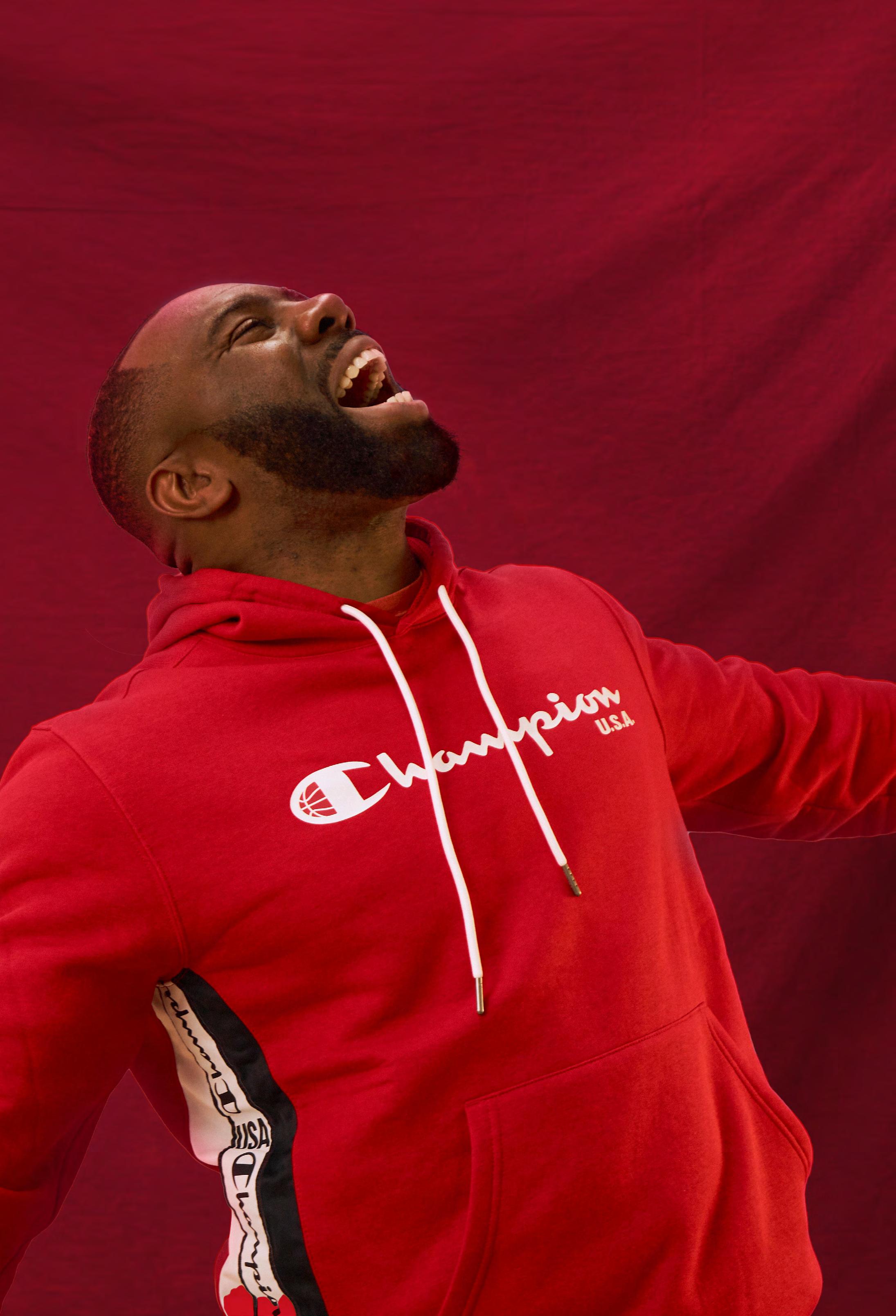
From Limitations to POSSIBILITIES
One Man’s Mission to Provide Fitness Training for All.
Interview by Lizzie Griffiths
130 www.blackbusinessmag.com
The journey of Javeno McLean, an exercise specialist from Manchester, exemplifies the true essence of leadership. For over two decades, Javeno has been a beacon of hope and empowerment for those often overlooked by mainstream fitness establishments.
Through his unwavering dedication and compassion, he has provided free training to individuals facing various challenges, from physical disabilities to terminal illnesses and to the elderly community.
Javeno’s vision for J7, a revolutionary health facility, transcends the conventional gym model. With a singular focus on fostering connection and inclusivity, J7 redefines what a gym space should represent: a sanctuary where everyone, regardless of background or ability, can thrive.
Driven by a profound belief in people’s untapped potential, Javeno’s mission is clear: to shift the narrative from limitations to possibilities. He champions the inherent greatness within each individual, igniting a ripple effect of empowerment and selfdiscovery.
Beyond the confines of his gym, Javeno’s impact reverberates globally, with over 100 million views on TikTok alone. His infectious enthusiasm and unwavering commitment to spreading hope and joy have earned him recognition as a true inspiration.
Your dedication to training disabled and elderly individuals for free for over two decades is truly admirable. What initially inspired you to focus
your efforts on these underserved populations, and how has this commitment evolved throughout your career?
I didn’t purposely go out and target them. I just don’t like to see injustice, and if I see people being disrespected and mistreated, I have to intervene.
My commitment is sometimes scary and concerning. I’m only getting started. I can’t turn it off. My commitment is an obsession I love and thrive off, because I’ve seen my work’s power and life-changing impact.
You’ve described your vision for J7 as breaking boundaries and creating a gym accessible to everyone. Can you elaborate on how you designed this space to foster connection and inclusivity and what impact you believe it has had on the communities you serve?
The place was designed with love, attention, and family morals as its priority. I wanted open spaces where people could see and have endless opportunities to engage with each other. I wanted a place where the energy and vibe are contagious, and you instantly feel that family atmosphere. It has completely changed my community and filtered to the UK and globally.
Your emphasis on focusing on what people can do rather than what they can’t is incredibly empowering.
How do you approach this mindset shift in your training programmes, especially when working with individuals facing significant challenges or limitations?
www.blackbusinessmag.com 131
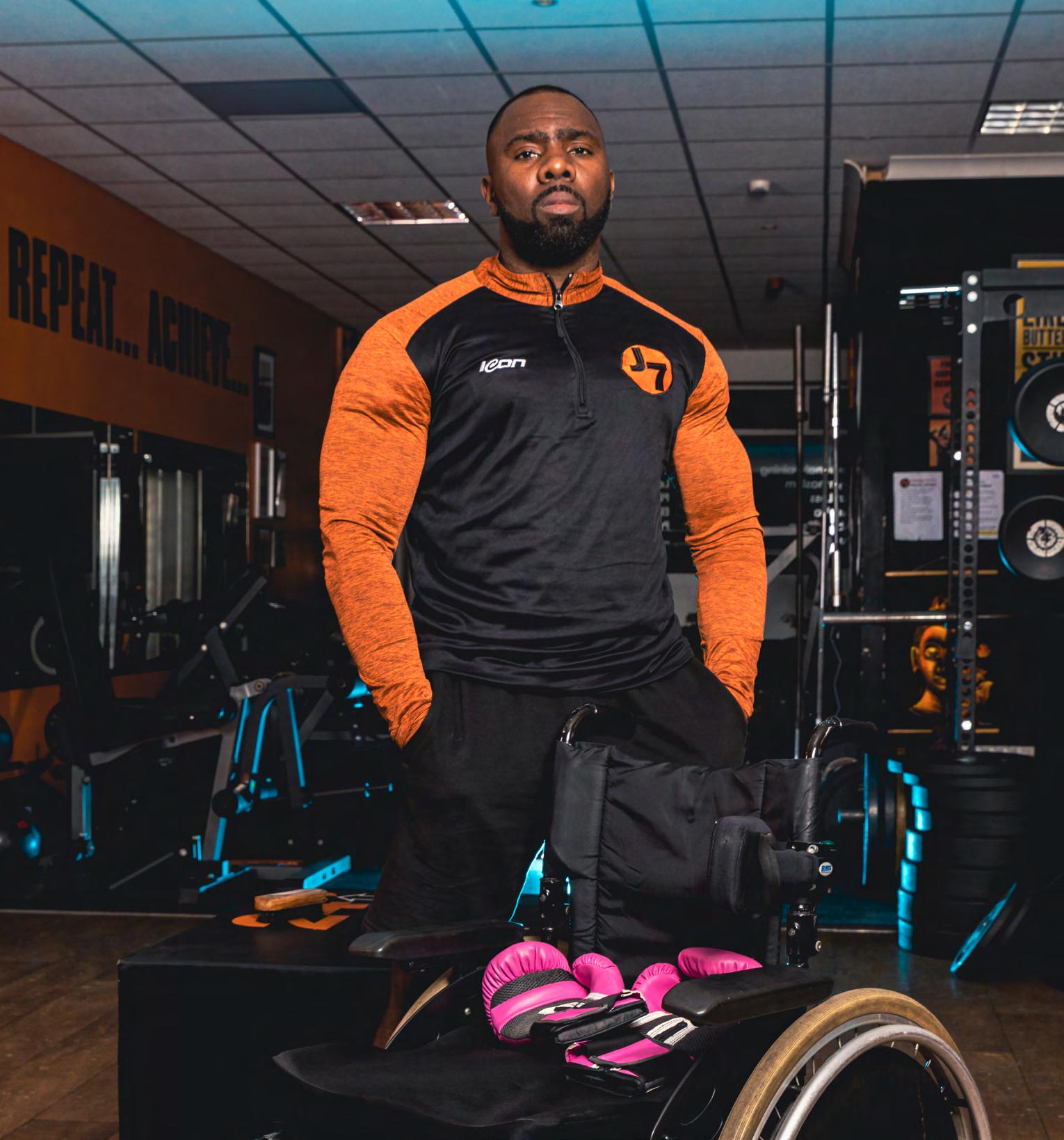
The mind is a powerful tool. It is usually used to block pain. I try to use pain as fuel, allowing the mind to create something more significant, something that will overpower anything life has to throw at us. If we create joy, happiness, love and self-worth, these things are more significant than pain, and we will develop an unbreakable mindset.
Your work has garnered significant attention, with over 100 million views on TikTok alone, making you a global inspiration. How do you navigate this newfound visibility, and what role does social media play in spreading your message of hope, care, and inclusivity?
Social media is a tool to showcase extraordinary people to all corners of the globe. This newfound visibility is humbling. However, I remain 100% myself, unapologetically Javeno, on every platform I’m blessed to be on.
As you continue your journey, what are your aspirations for the future of J7 and your broader mission of inspiring and uplifting individuals through exercise and positivity? How do you plan to continue making a meaningful impact in the lives of those who need it most?
We all have the ability to change the world. I just thank God my gift of inspiring people has been welcomed globally.
I just want it to continue, and I want people worldwide to see examples of real care, real love, and the real way humans should treat each other and champion each other’s accomplishments.
For more information about J7 Health Centre, visit j7healthcentre.co.uk Instagram @j7healthcentre
132 www.blackbusinessmag.com


LA
Empowering the SelfEmployed for Retirement jarvis pensions
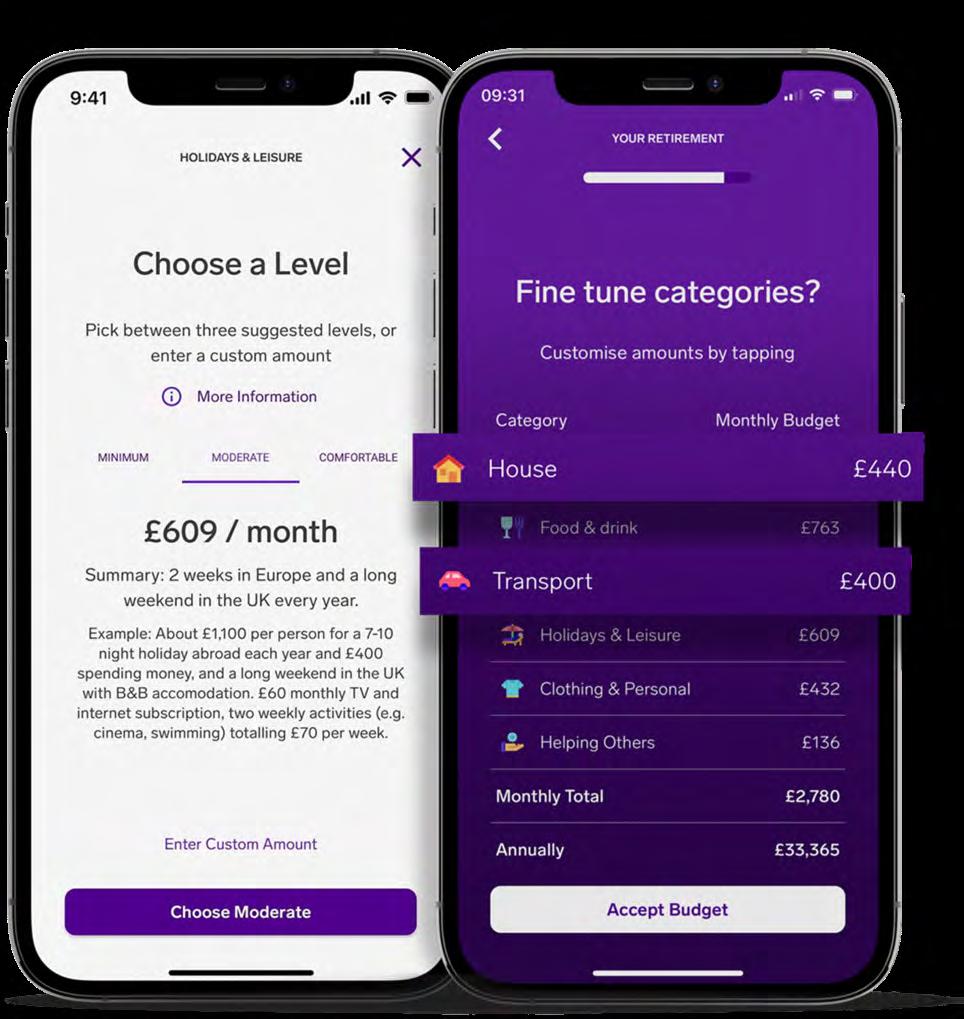
134 www.blackbusinessmag.com
For the self-employed, saving for the future often evokes uncertainty and a lack of confidence and control over their financial wellbeing.
With only a third of self-employed individuals having existing pensions and a mere 18% actively contributing to one [Nest Insight, 2022], many are left unsure about the adequacy of their retirement savings.
Introducing Jarvis, the pension app explicitly tailored for the selfemployed: a groundbreaking solution revolutionising retirement planning in the UK. With Jarvis, individuals can take charge of their retirement journey, empowered by insights that provide clarity and direction.
By offering a comprehensive view of retirement goals and the necessary steps to achieve them, Jarvis removes the guesswork from pension decisions through smart analytics and retirement projections.
Jarvis simplifies the pension process with its fully digital sign-up, allowing users to seamlessly consolidate old workplace pensions and clearly understand how much they need to save for their retirement lifestyle.
Through personalised cash flow forecasts and retirement planning tools, users can visualise their financial future and make informed decisions about their retirement strategy.

With the innovative modelling engine, Jarvis Analytics, users benefit from tailored suggestions and insights to optimise their retirement savings plan.
Designed to cater to the needs of non-permanent workers, Jarvis offers a trusted financial guidance platform that enables individuals to take control of their retirement planning journey.
By providing accessible and practical tools, Jarvis ensures that retirement planning is within reach for all, empowering individuals to build a secure financial future with confidence and peace of mind.
For more information, visit: getjarvis.app
www.blackbusinessmag.com 135
Empowering Financial Wellness
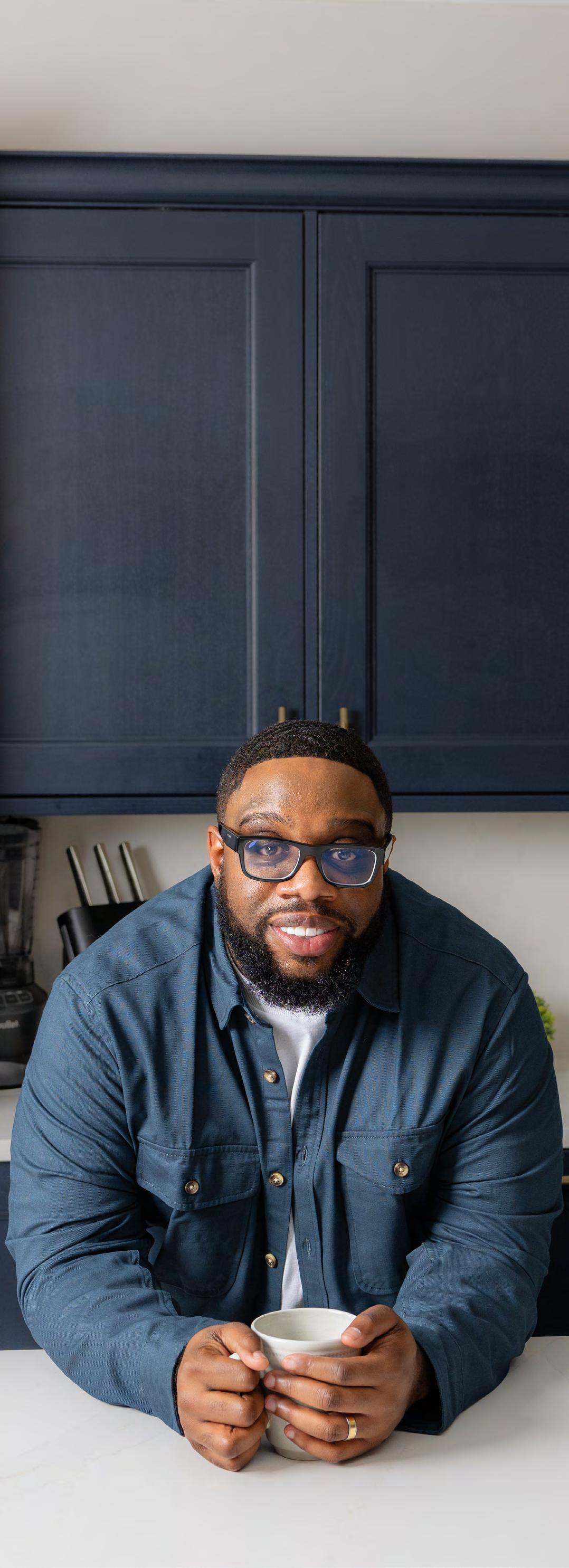
136 www.blackbusinessmag.com
The Story of One Stop Save and Emmanuel’s Mission
One Stop Save is a comparison website designed for the everyday working person. The purpose behind creating it is to level the playing field for working people, as financial education is an essential life skill that should be accessible to all.
I come from a working-class background, grew up on a council estate, and saw my family and friends make bad financial decisions that led to struggle. It wasn’t until I started working and became a financial adviser that I realised that people in the city only focus on people with money, and don’t care about those who don’t have money.
When I was made redundant for the third time, I decided to go full-time with my financial education company, The Eman Effect, giving talks to companies, schools and organisations across the UK. I also started posting videos on social media making finance funny and relatable, which helped me grow a large following.
To date, on social media, I have a reach of over 100,000, and I have spoken to over 50,000 people across the UK, yet I know there are still so many people who don’t have access to financial education.
I wanted to create a way to help people without being present, a place where people can regularly go to find ways to save, make and manage money, so this led to the creation of One Stop Save.
One Stop Save
One Stop Save is a comparison website with a difference. Most comparison sites target middleclass people and focus on savings, comparing mortgages and consist of long articles. One Stop Save aims to teach people three main things:
ways to save, make and manage your money in a way that’s easy to digest and very relatable.
Save money
When you compare things, you’re likely to get it cheaper. This is why on our website you can compare car insurance, home insurance and so much more.
When it comes to finances, we know it’s not just about cutting back as some people enjoy spending money. So whilst you are spending money, you can find ways to save money as well.
Make money
What makes One Stop Save different from other comparison websites is that we teach people how to make money and increase their income. Especially with the current climate, making an extra £200 a month from a side hustle can really make a difference.
Managing money
Through research, we found that a lot of sites focus on saving money, but we want to educate people on how to manage their money better.
We want to help people make better financial decisions and choices with the money they have by providing information on the best savings account available, tips on the best credit cards to use and how to increase your credit score.
At One Stop Save, we believe everyone should have the confidence to save, make and manage their money, regardless of their background. Everybody can make better decisions for themselves and their family and leave a legacy of generational wealth.
Find out more at onestopsave.com
www.blackbusinessmag.com 137
Imagine Me Stories
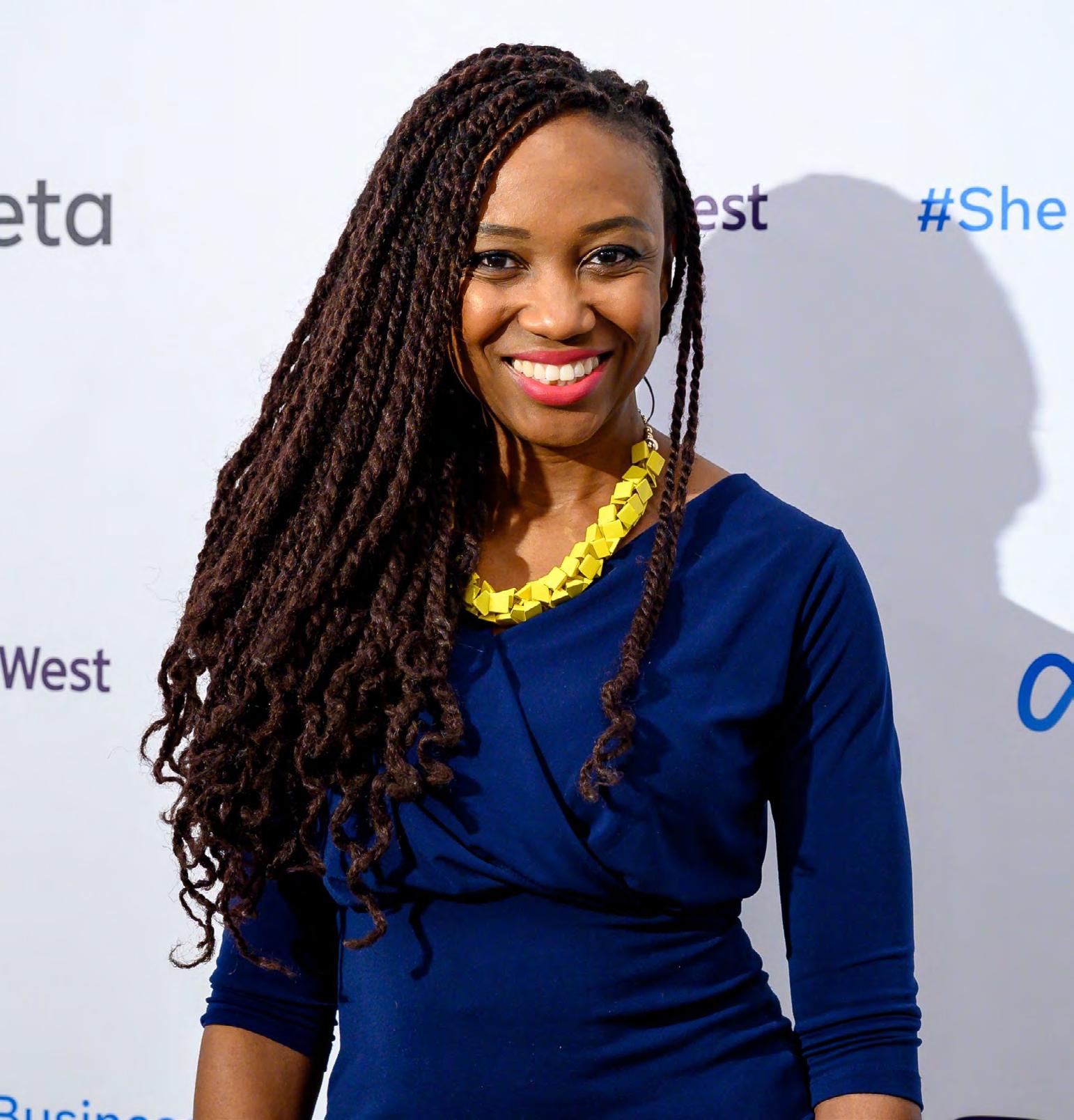
Interview by Lizzie Griffiths
Keisha Ehigie, a Nigerian-Jamaican mother, observed a gap in children's literature when her young daughter struggled to find characters that mirrored her identity and experiences.
138 www.blackbusinessmag.com
Keisha knew action was needed, with only 1% of UK children's books featuring Black protagonists at the time. Driven by this insight, she established Imagine Me Stories, a company dedicated to transforming how children experience literature.
They cater to families, schools, and libraries across the UK through diverse children's book packages. Their innovative Black children's book subscription box simplifies the process for parents and educators to discover enriching stories that celebrate Black characters and highlight inspiring figures from the Black community.
Keisha's dedication has garnered Imagine Me Stories numerous accolades, including Bookshop Heroes of the Year, the Great British Entrepreneurs Award (Inspirational Category), and her recognition as one of the Telegraph NatWest 100 Female Entrepreneurs to watch.
How did you identify the gap in children's literature, and what motivated you to take action?
After becoming a mother in 2016, I noticed the glaring lack of diversity in children's media and the impact on my daughter's perception of herself. Frustrated, I searched for children's books with characters she could identify with, but had little success at high street bookstores.
At the time, only 1% (now 3.4%) of UK children's books featured Black main characters. This statistic ignited a fire in me. So many children missed the crucial experiences of seeing themselves reflected in stories and exploring diverse perspectives.
In a 2020 report, The Centre for Literacy in Primary Education (CLPE) found that 5% of children’s books published in the UK last year had a Global Majority main character. Could you elaborate on Imagine Me Stories' mission and how it aims to reshape children's literary experiences?
Imagine Me Stories addresses the lack of representation in children's books by sending a curated box of Black children's books catering to the child's age and empowering Black history activity packs to educate all children on historical achievements within the Black community.
Furthermore, we also work with schools across the UK to help them build inclusive libraries that reflect society. Representation is vital to ensure children see positive views of themselves and what they can achieve in society. All children should be reading diverse books, and we are working to change that one box of books at a time!
What strategies do Imagine Me Stories employ to reach and impact families, schools, and libraries across the UK?
Imagine Me Stories uses a multipronged approach to reach and impact families, schools, and libraries across the UK. For families, we leverage social media, influencer partnerships, and paid advertising to raise awareness and connect directly with parents and families.
For schools and libraries, we employ targeted outreach, email marketing, library diversity audits, and consultations to integrate diversity in children's literature.
This comprehensive strategy ensures Imagine Me Stories fosters a love for reading and promotes inclusivity in children's literature across the UK.
In what ways has your leadership and dedication to children’s literature been recognised through the accolades and awards you have received?
I've been fortunate to receive recognition for my work, including being named Bookshop Heroes of the Year 2020 by The Bookseller and Entrepreneur for Good at the Great British Entrepreneur Awards 2021.
Additionally, Imagine Me Stories was featured in Forbes, BBC News and ITV News. In 2022, I was named one of the Telegraph NatWest 100 Female Entrepreneurs to Watch.
Meta and Natwest also selected me for their prestigious She Means Business programme, culminating in a video feature on Imagine Me Stories across Meta platforms.
Most recently, in 2024, I secured funding from the F100 Black Equity Organisation programme in partnership with Sky.
What is next for Imagine Me Stories?
We're exploring the exciting possibility of international expansion, which would bring the joy of these books to a wider global audience.
For more information about Imagine Me Stories visit imaginemestories.com Instagram @imaginemestories
www.blackbusinessmag.com 139
Pixels with Purpose
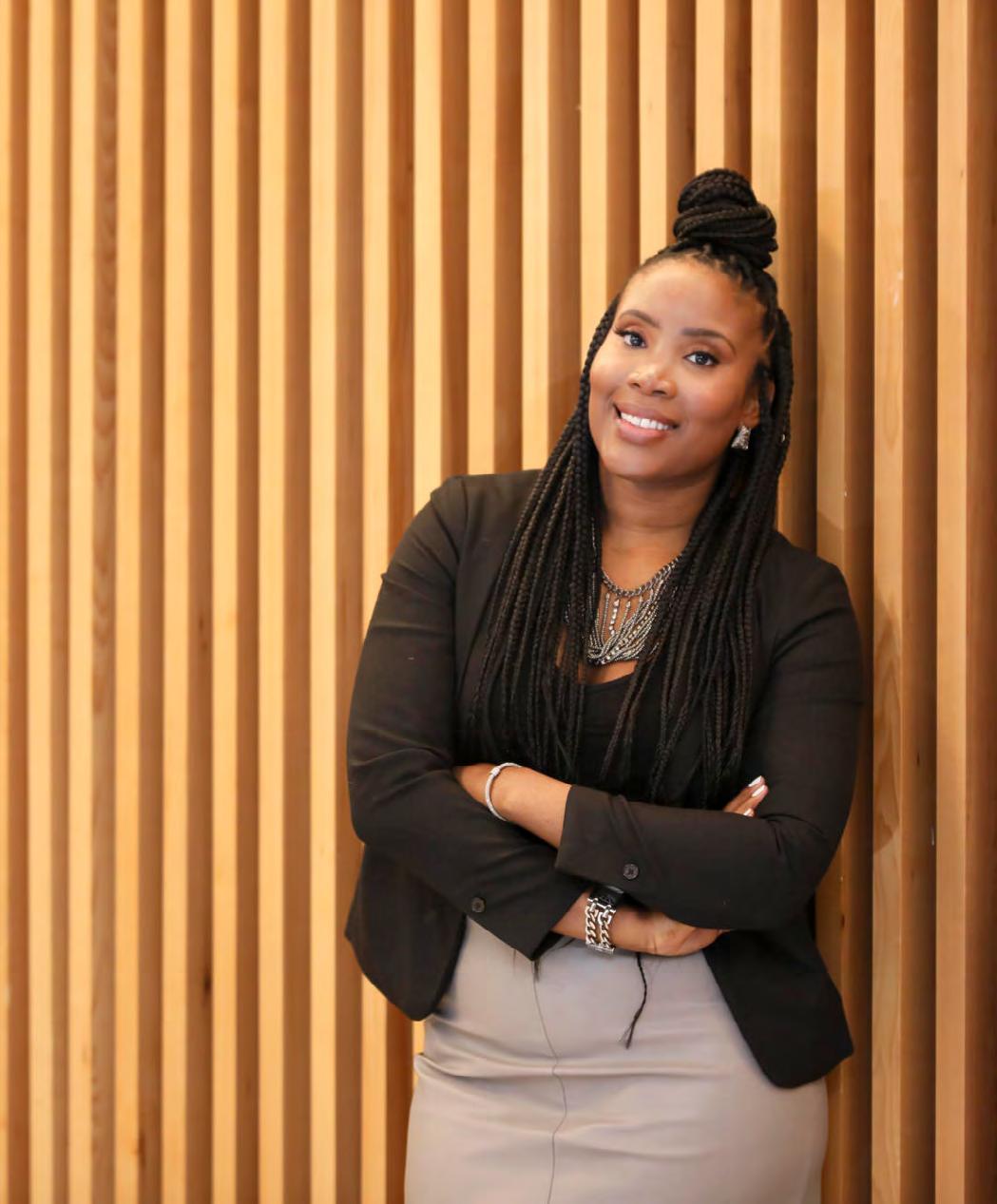
CREATING ENGAGING BRAND IMAGES IN THE DIGITAL ERA
By Dr Denise Maxwell
What is a branding portrait?
You may call them business headshots, business portraits, press shots, corporate headshots, or ‘branding portraits’. I call them ‘branding portraits’. These are the images you will use as your ‘shop window’ to present yourself and your
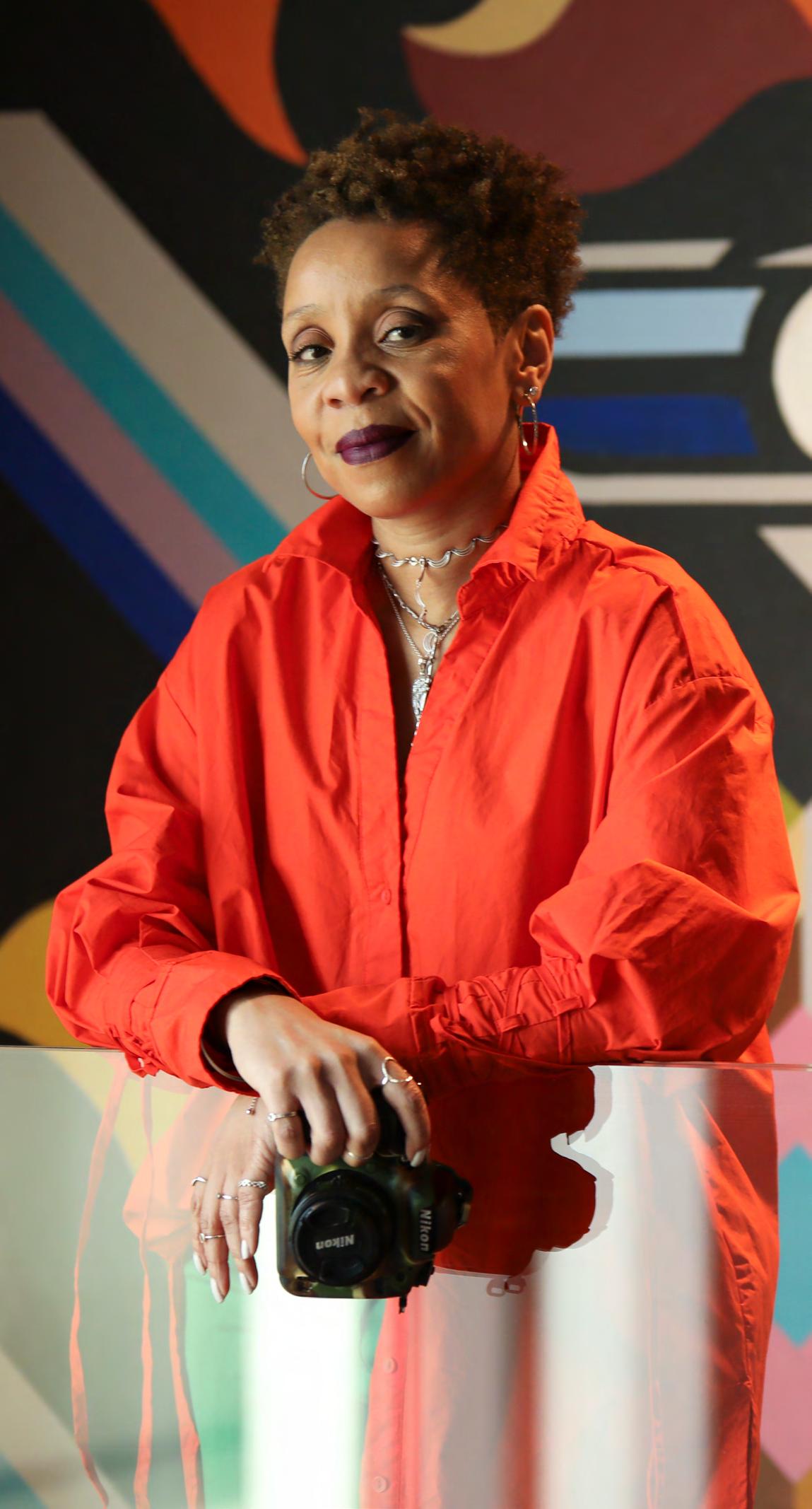
business to the world. They are used for press articles, social media profiles and posts, websites, and anything where a professional business shot of you is needed. If you have ever been nominated for an award or had an article written about you, and you start to panic when they ask you to send a portrait of yourself
140 www.blackbusinessmag.com
in to accompany it, because you then have to spend time instead scrambling through phones and Facebook albums to find something appropriate, this article is definitely for you!
Why do you need one?
There are more reasons than we have time to discuss here, but importantly… great branding imagery can earn you money! (Cue strange look at the page - what is Denise talking about?)
Think about this scenario: you go on holiday to a new country, and when it comes to dinner, how do you decide where to eat? Who else looks at the pictures of the food on the menu and then at the actual food on people’s plates to make their choice?
There you have it - this restaurant just made a sale based on its imagery! Theirs was food, but yours may be you!
They first convince you to engage with the picture, then bring you to the next stage of selection, the service - how the food looks on the plate. If you have done this before, do you think others do the same with your business? Good branding images can drive engagement, and contribute to business growth.
I often use the analogy of a shop window; it is useful because it’s tried and tested. Shops use their shop windows to pull you into their business when a new client googles youwhat does your shop window show them?
Lessons from Netflix
This is where I share more of myself by using my love of films and series as a further example.
A series on Netflix called “Inventing Anna” perfectly highlights your brand imagery’s importance. While it’s not quite the story of business sales, it was about a woman “selling” her image.
If you have not seen it, it is the story of Anna Delvey, a woman who convinced New York’s elite (including banks that were about to loan her millions) that she was a rich German heiress, swindling her way into a life of luxury, influence, free hotels, and exclusive events.
Now, I am not advocating swindling here, but what I am pointing out is that she was able to do it because of her imagery. She looked the part. Looking the part was the first part of the process of getting her into the right rooms. This is how important our images are when branding and marketing our businesses.
Again, have you ever clicked on a website and seen terrible images, and even though you wanted the product, you went somewhere else to buy it because the photos put you off that much? Me too. If only they knew their images would lose them business! Lucky for you, you have subscribed to this magazine, and you are reading this article.
The ‘rooms’ great branding images can get you into are meetings, pitches, introductions, sales, and engagement. Because of this, it should play a significant role in your business.
You may be thinking, well, it never harmed Boris, who looked a bit disheveled and unput together. Some people actually have the privilege of being able to show up in any way and still be seen. In this short time, hopefully, you will see the importance of your branding images. If you do not already have some, add them to your to-do list immediately!
www.blackbusinessmag.com 141
DOS AND DON’TS FOR YOUR BRANDING IMAGES
DO NOT
Be scared of colour! This is subjective but for me, I love my clients to represent the full range of what business is! Maybe the stereotype used to be older white men in blue and grey suits: it’s time to change that narrative. I love the use of colour in my everyday practice. I also do this with branding portraits.
Limit locations! Often, people think about going straight to a studio for branding portraits. These are great too, but I love the variety you can get in office spaces, with different backgrounds, spaces, and decor. It also means each of my clients has such unique portraits of each other.
Use your phone. Yes, it has a million pixels, but the quality is different. Phones also usually have wideangle lenses, making you look wider than you are!
Use an image from a wedding or party. Yes, our hair looked nice, but if you are asking people to invest in your business or product yet not in yourself, what message does this portray?
DO
Keep them up to date. What message does it portray when I connect with you on LinkedIn, but walk past you when I meet you in person because I spoke to your younger self from 15 years ago?
Take advice from your photographer or stylist on what to wear! I advise my clients on outfits that will look great on camera or are timeless classics.
Take advice from your photographer on poses. Nearly every person who books a shoot comes in with an idea of what they want, but leaves with poses I put them in. The right photographer will understand what angles and poses may suit your body type, outfit, business, or personality.

Be authentically you.
Have your hair and make-up professionally done! This may mean a fresh trim, shave, plaits, wig, wash and blow dry, and make-up by a pro MUA. Be like McDonald’s. The burgers you see on the order screens look their very best, even if the everyday burgers look slightly different!
Choose the right photographer! Every photographer has their style and skill. Remember it is not the camera that creates the image.
142 www.blackbusinessmag.com
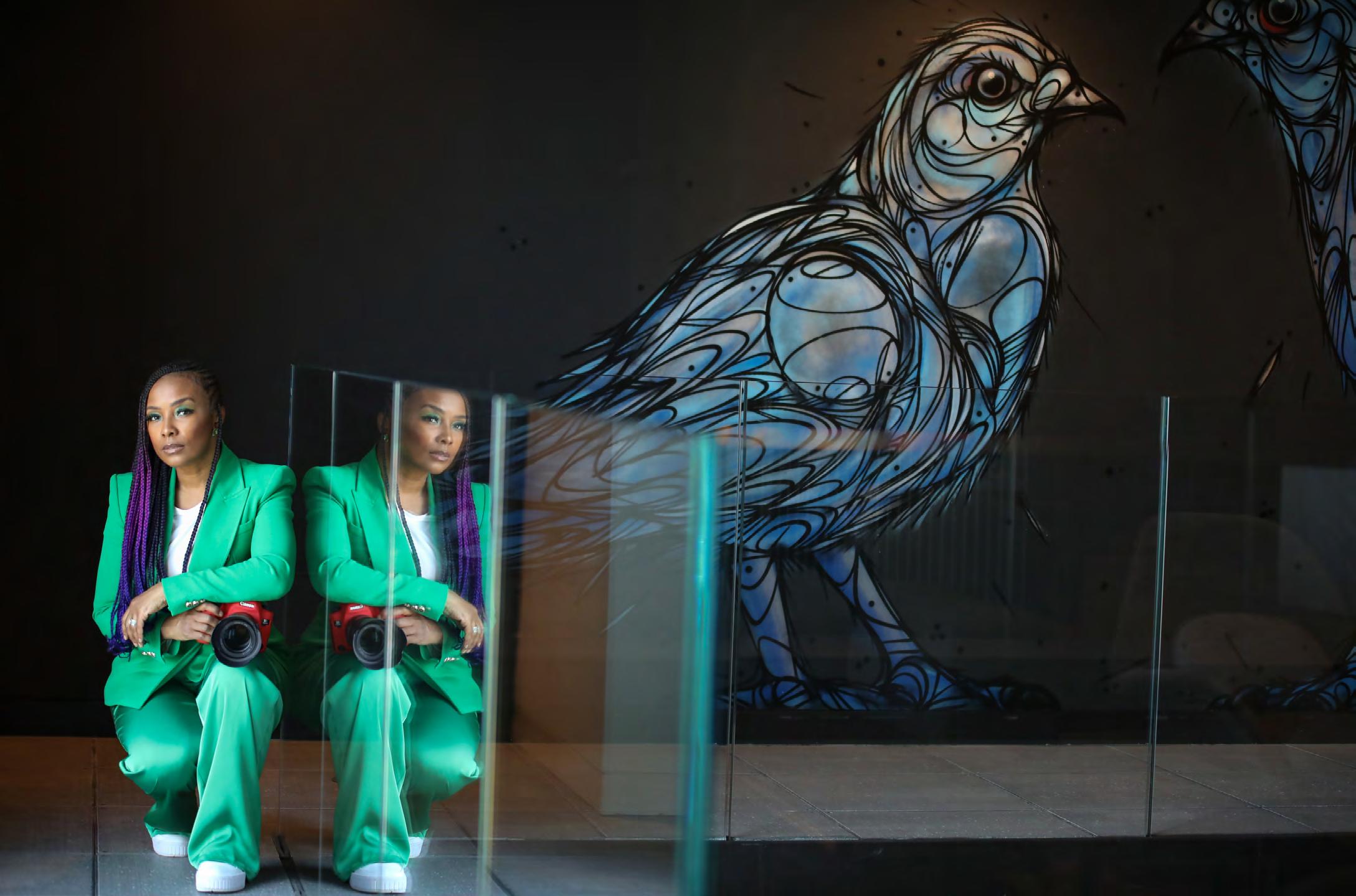
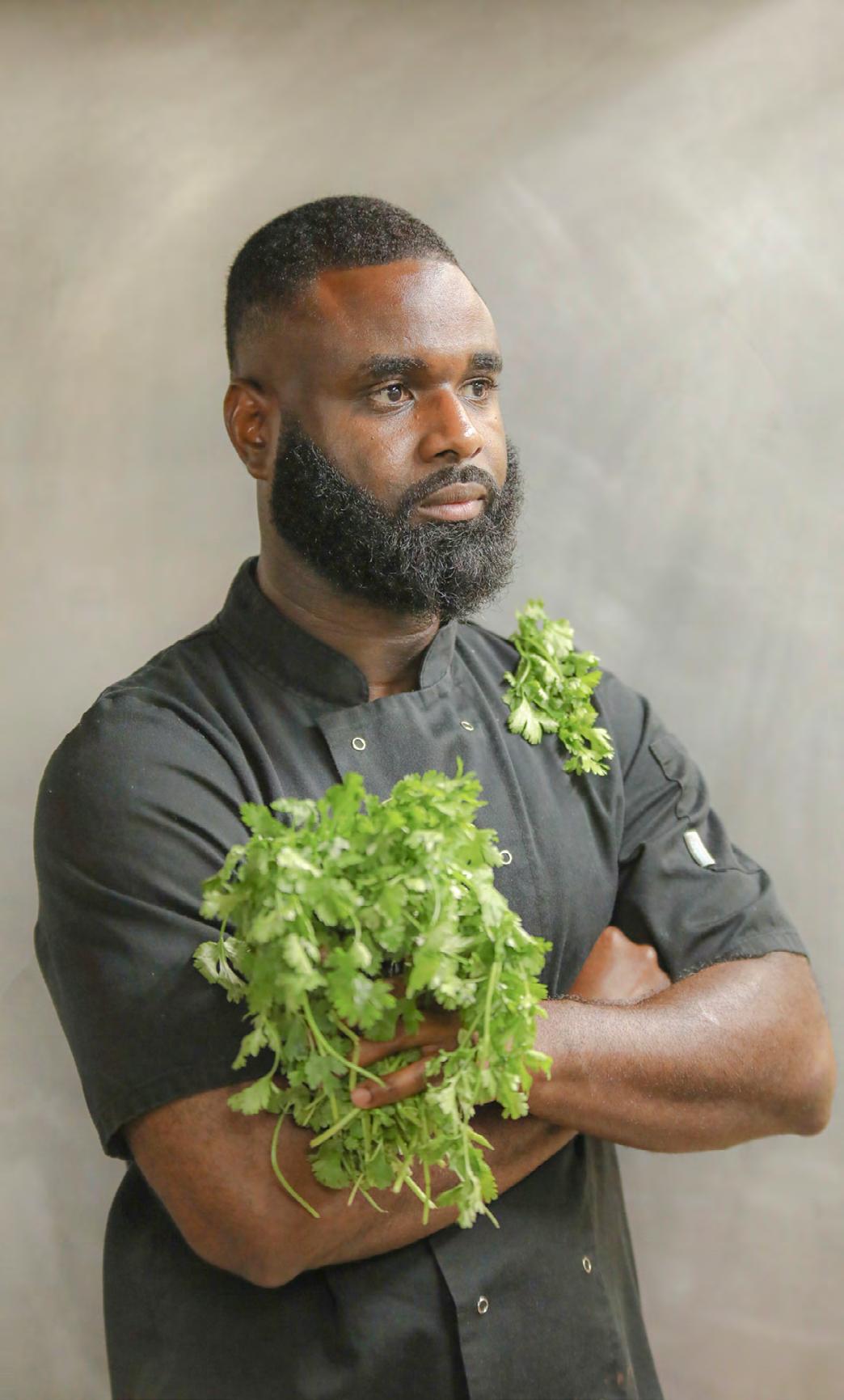
If you are interested in doing the best for your business by getting professional branding portraits and would like a 10% discount, please share an IG story of you with the magazine open on this article, tagging both @Lensi_Photography and @BlackBusinessMagazine.
Or contact Lensi Photography info@lensi.co.uk directly to discuss. Prices start at £295 for a seven-image package.

www.blackbusinessmag.com 143
Become the CEO of Your Own Life
by Justice Williams
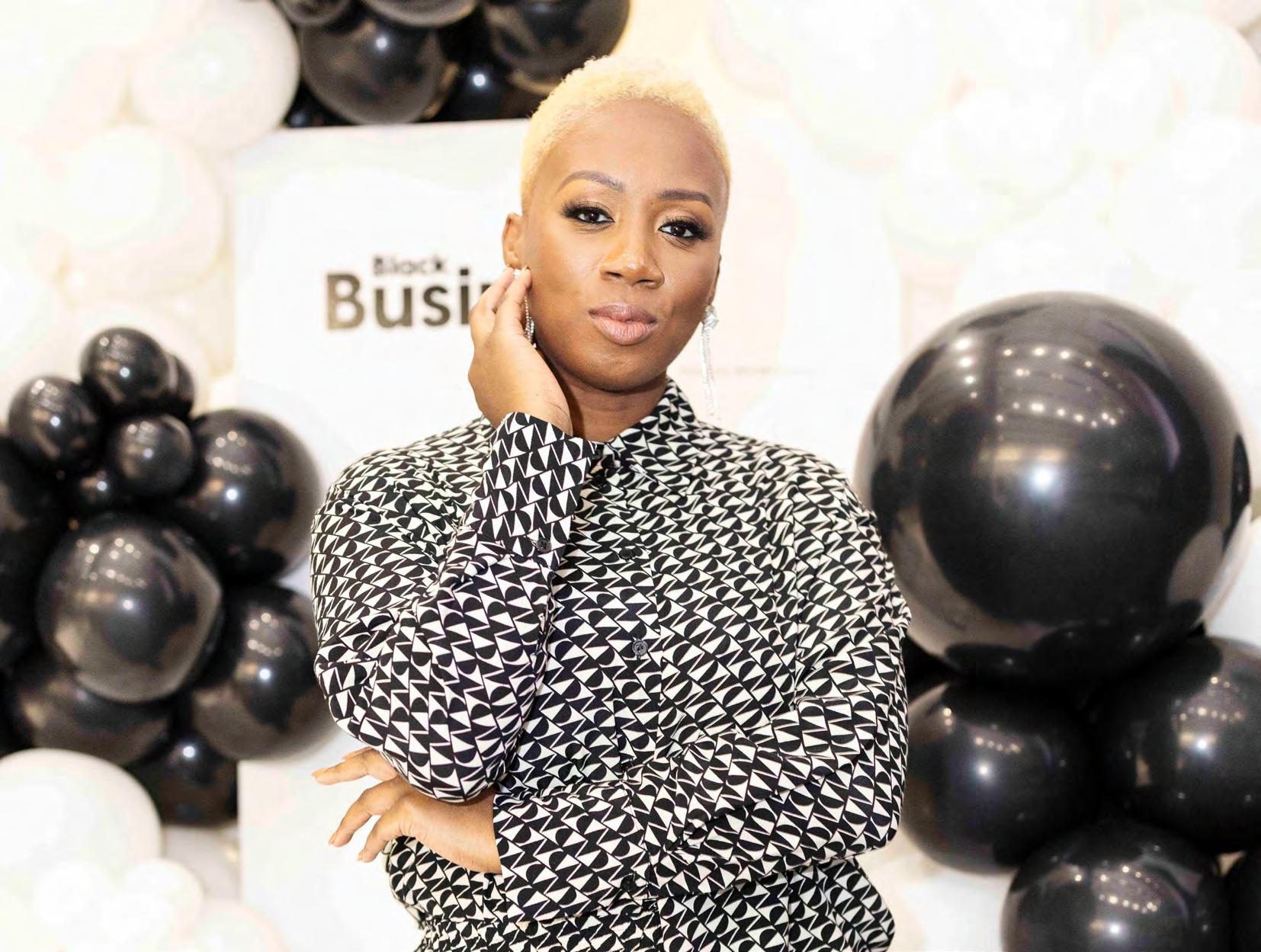
As entrepreneurs and professionals, the importance of leading ourselves before we lead others cannot be overstated.
The concept of self-leadership is where our journey begins. It's about recognising that the foundation of all our endeavours, the core of our successes and challenges, starts with the individual in the mirror. In the grand scheme of our lives, where we strive to be CEOs, mastering self-leadership is our first, most critical task.
This mindset demands more than just introspection; it requires action. It's about setting a vision for who you want to be and where you want your life to go, then committing to the strategies and habits that will get you there. It's about holding yourself accountable, just as a CEO would for their company, ensuring that every decision aligns with your goals and values. For us, navigating our paths
is not just about navigating the external challenges but mastering the internal ones - our fears, doubts, and limitations.
Leading from within means prioritising self-awareness, self-care, and selfdiscipline, recognising that these are not merely acts of indulgence but essential strategies for high performance and resilience. It understands that before we can effectively lead teams, projects, or businesses, we must first lead ourselves with the same rigour and commitment we would apply to any professional endeavour.
Vision Is Everything
Every successful CEO starts with a vision, a picture of where they want their company to go. So, what’s your vision for your life? Picture it. Hold it in your heart. This vision is your why - the driving force that gets you up in the morning and
144 www.blackbusinessmag.com
keeps you pushing through those latenight hustle hours.
Our visions aren’t just for us. They’re for our families, our communities, and those little eyes watching us, dreaming of what they can become. Our visions are wrapped in the hope and resilience passed down through generations.
Navigating Challenges with Grace and Grit
Let’s keep it 100 - this journey is filled with challenges. You’ll face barriers that seem too high and hurdles that seem too tough. But remember, being the CEO means facing these challenges head-on, with grace and an unwavering belief in your ability to overcome them.
Think of every challenge as a leadership, resilience, and innovation lesson. Embrace, learn from, and use them to fuel your growth. Remember, diamonds are formed under pressure, and so are the most formidable leaders.
Building Your Dream Team
No CEO does it alone, and neither should you. Surround yourself with a tribe that lifts you up, pushes you forward, and keeps you grounded. These are your mentors, your cheerleaders, your sounding boards. They’re the ones who remind you of your why when the going gets tough and celebrate your victories like they’re their own.
And while we’re building our teams, let’s not forget to reach back and lift others. Mentorship, especially within our community, is a cycle of empowerment - a way to pass on the lessons and open doors for those coming up behind us.
Investing in Yourself
The best CEOs know that to grow their companies, they must invest in them.
The same goes for your life. Invest in your growth, your health, your peace of mind. Whether picking up a new skill, diving into personal development books, or simply taking the time to rest and recharge, these investments in yourself are non-negotiable.
Remember, you can’t pour from an empty cup. Taking care of yourself isn’t just self-love; it’s a strategic move that ensures you’re always operating at your best.
Embracing the Journey
Finally, leading from within means embracing the journey, with all its twists and turns. It means celebrating the small wins as much as the big ones, learning to pivot when necessary, and always moving forward.
Your journey as the CEO of your life is unique - filled with stories only you can tell. These stories are your legacy, your mark on the world. So, make them powerful, make them inspiring, and most importantly, make them authentically yours.
As we wrap this up, I want you to remember this: leading from within isn’t about having all the answers or never facing doubt. It’s about recognising your power to shape your life, make an impact, and uplift those around you. It’s about being the CEO who leads with vision, resilience, and a heart full of purpose.
Being the CEO of your own life means more than just calling the shots. It’s about recognising your power and steering your life with purpose, resilience, and a hefty dose of self-love.
It’s about owning every part of your journey - the successes, the setbacks, and everything in between.
www.blackbusinessmag.com 145
Empowering Black Apprentices
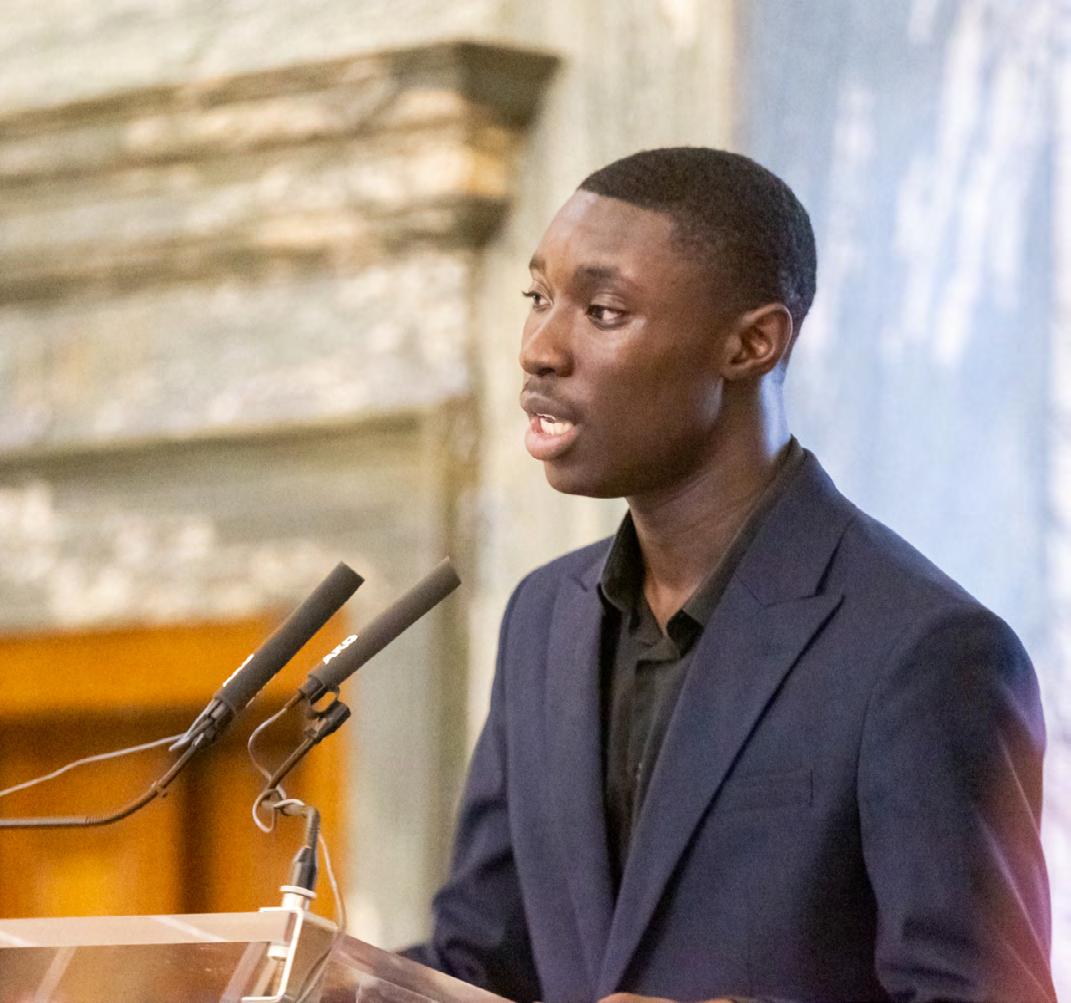
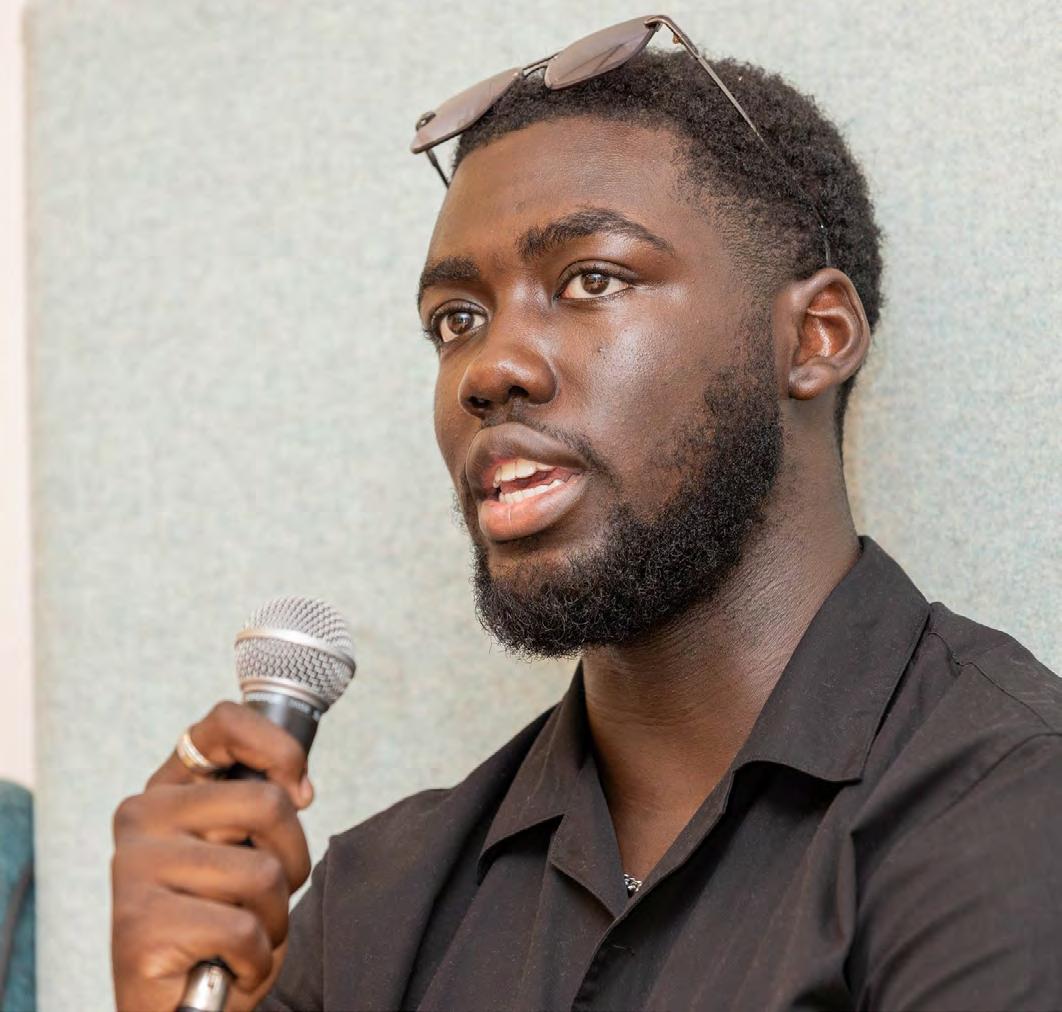
A CONVERSATION WITH THE FOUNDERS OF THE BLACK APPRENTICE NETWORK
Kwesi Bimpong
Rubin Aboagye-Poku
Elijah Olanipekun
Interview by Lizzie Griffiths

146 www.blackbusinessmag.com
TikTok @blackapprenticenetwork
Kwes Bimpongi, Elijah Olanipekun, and Rubin Poku are three pioneering individuals who excel in their respective apprenticeships and are the driving force behind the Black Apprentice Network. Founded in 2022, this community has swiftly grown to 1700 members, providing a vital space for current and aspiring Black apprentices. Here, we dive into their vision for the network and how they’re reshaping the narrative for underrepresented communities in the professional sphere.
What inspired you to create the Black Apprentice Network, and what challenges or gaps did you identify within existing apprenticeship structures?
One thing that inspired us to create a network for Black individuals was to foster a community for Black apprentices in the UK. As founders, we shared our experiences and challenges while on our apprenticeship journey and wanted to ensure others had a similar experience.
Our community had trouble finding others who undergo the same challenges, and there wasn’t a space where they felt the freedom to share things specific to Black apprentices.
We observed varying experiences among apprentices, particularly within the African and Caribbean communities. Some individuals significantly leveraged their apprenticeship opportunities as a vehicle to accelerate their career growth.
There are examples of people who made significant leaps in their careers soon after joining their apprenticeships. We aimed to ensure that our community had the resources needed to take advantage of this incredible shift in the tertiary education space in the United Kingdom.
In what ways does the Black Apprentice Network foster personal and professional development among its members? What initiatives does the network offer to support apprentices?
Connecting community members is one way we foster personal and professional development among our members. The members have a diverse array of personal and professional experiences, and creating a space for them to engage in conversation allows them to grow through hearing about other people’s perspectives.
We also provide our community with different professional opportunities, one recently being the opportunity to participate in the Afro-Caribbean hackathon at Microsoft. We strive to offer our members different opportunities that are available to us, enabling them to learn and grow within their apprenticeship roles and beyond.
The Black Apprentice Network emphasises the importance of community and mentorship. What has been the significance of mentorship in your personal and professional growth? How do you cultivate mentorship opportunities within the network?
The importance of community and mentorship has been an ongoing theme for us. Having met as a group through the Amos Bursary, an organisation that ensures talented people of African or Caribbean descent have the opportunity to excel in education and beyond, we understood the benefit of having a community of ambitious, driven, and professional individuals.
We want members to take advantage of mentorship opportunities in the community. Our network connects people in our community with companies that
www.blackbusinessmag.com 147

can provide opportunities for our members to understand personal struggles and strategies they can utilise to achieve their professional goals.
We used to have a group of aspiring apprentices within the Black Apprentice Network, and we ensured that we used people from our current apprentice community to support the aspiring apprentices in achieving their dream apprenticeships and navigating the challenges of balancing different components of their lives.
As founders of the Black Apprentice Network, how do you envision the future of apprenticeships for Black individuals?
We envision the future of apprenticeships for Black individuals as an alternative route for tertiary education, offering ambitious and motivated individuals a viable option to take control of their careers.
We recognise the value of entering a company young, engaging in conversations about one’s future, and learning valuable skills critical in the marketplace.
We want our community to take advantage of apprenticeship learning opportunities while receiving a support system through the Black Apprentice Network. This allows them to meet similarly motivated individuals and receive resources to accelerate their career development.
How has the Black Apprentice Network evolved since its founding in 2022? How do you envision the network growing in the next five years?
The Black Apprentice Network has evolved in multiple ways. We have created an alternative community for aspiring apprentices to help them connect and provide them with resources to land the apprenticeships of their dreams.
We also run several initiatives and events with many companies, including Salesforce, Wedlake Bell, and Linklaters.
We envision the network evolving beyond apprenticeships in the future, giving young Black people across the UK the opportunity to connect and serve as a vehicle to help them achieve professional and personal success.
148 www.blackbusinessmag.com

Flushed Away
Meet the Pioneering Woman Behind the World’s First Flushable Wet Wipe
Ellenor McIntosh is a Londonbased scientist on a mission for sustainability.
With her expertise in biochemical and materials science, Elle revolutionised the wet wipe industry with Twipes – the world’s first truly flushable and biodegradable wipes.
Ellenor’s groundbreaking work hasn’t gone unnoticed. Her impact resonates globally, from winning the Princess Diana Award for her scientific achievements to being named in Forbes’ 30 Under 30 list.
Featured in prestigious publications like TimeOut and The Guardian, Ellenor’s accolades include recognition at the Black British Business Awards and being named by the Mayor’s Fund for London Entrepreneurs of the Year.
As a co-founder and inventor of Twipes, could you share some insights into the journey of developing the world’s first toiletfriendly wet wipes?
So Twipes’ journey began when I sat down to brunch with my co-founder, Alborz Bozorgi, and another one of our friends, who had told us he had blocked his toilet three times in two months with wipes that were supposedly ‘flushable’.
I knew there had to be a better solution to using wet wipes, so with my scientific background and Al’s business expertise, we started Twipes. I spent four years in the lab researching and developing the biotech in our wipes to ensure they would break down properly. We launched in December 2019 in the UK, with our wet wipes dispersing
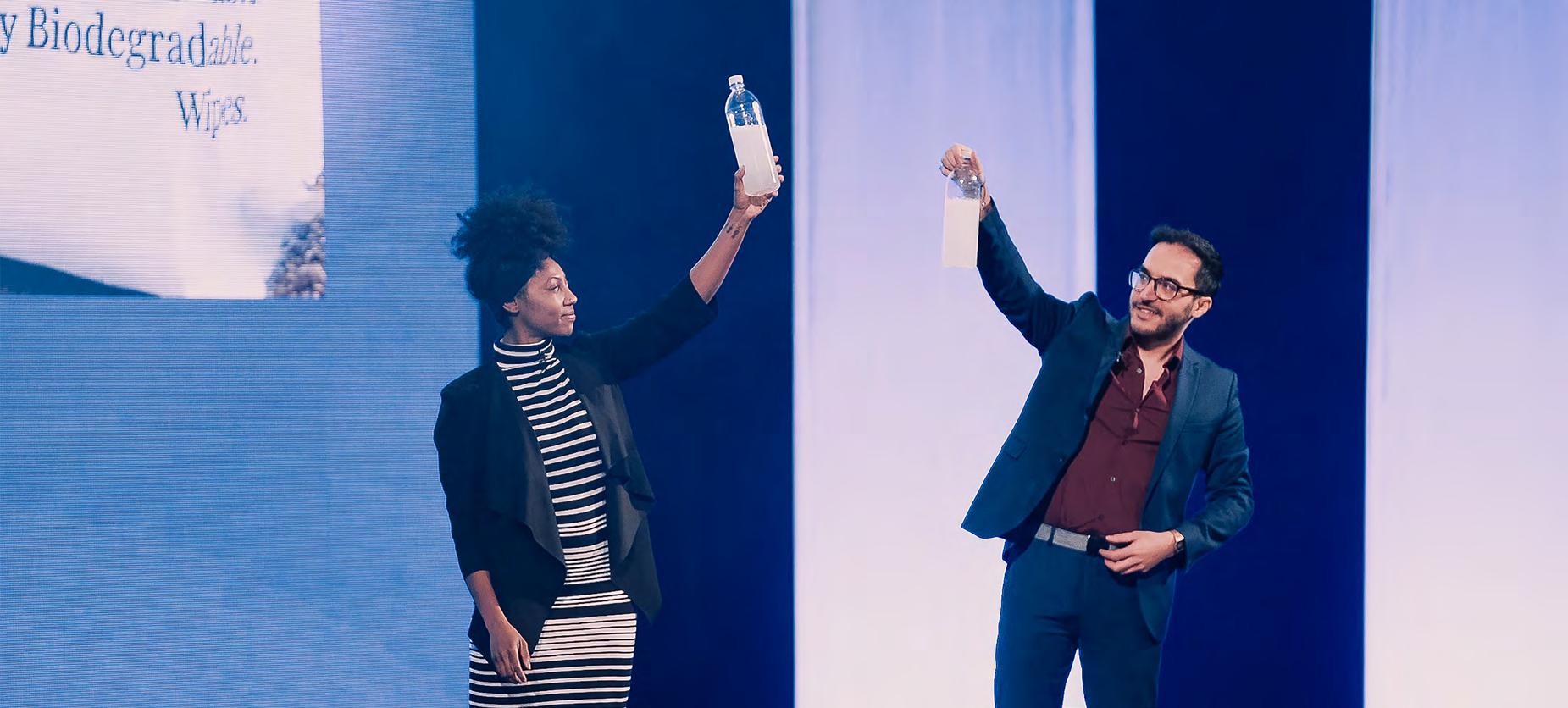
150 www.blackbusinessmag.com
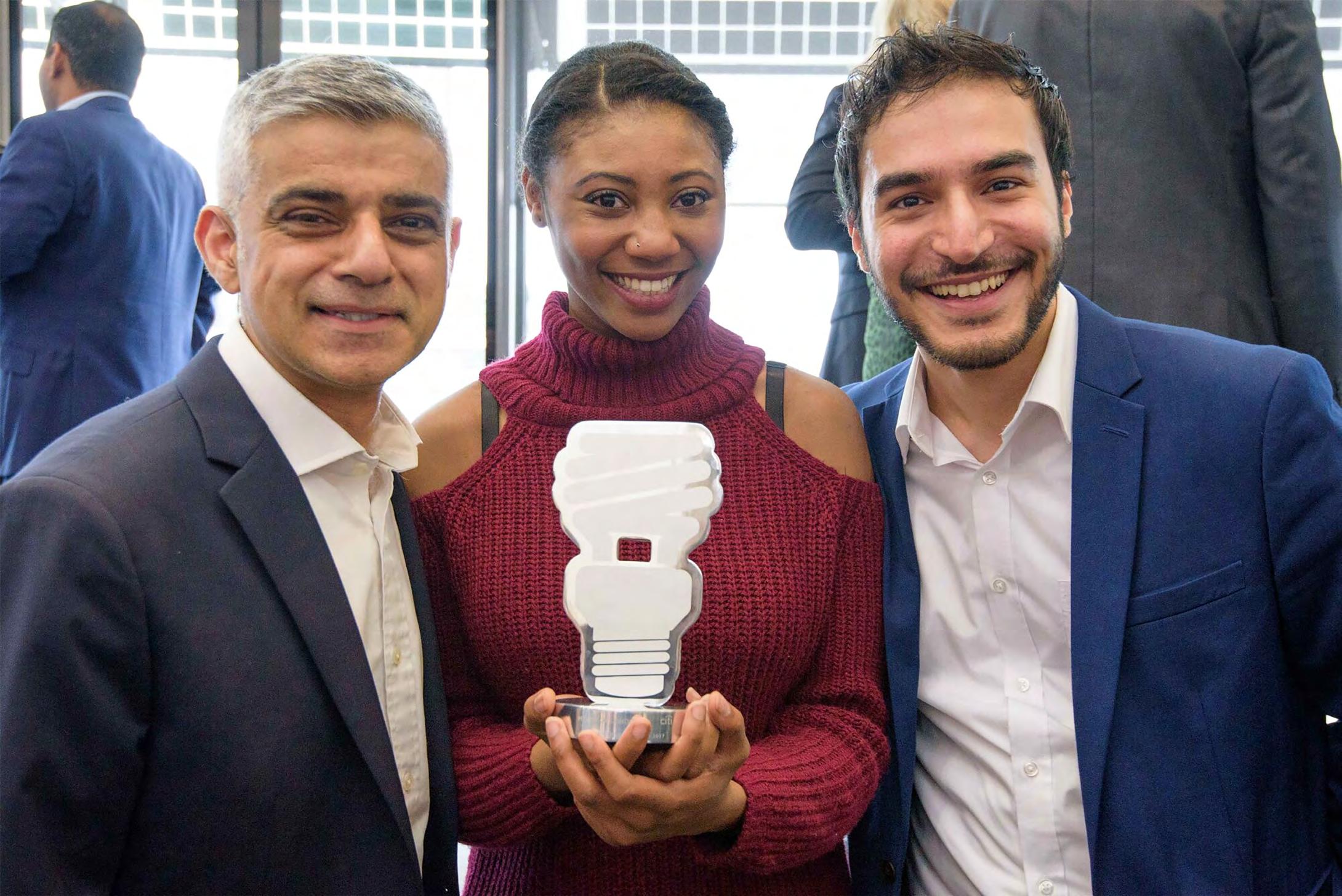
within three hours in water, or breaking down within seven days in landfills, due to their unique binding technology. Since then, we’ve been on the rise, expanding to America and garnering interest from prominent investors and accelerator programmes.
Twipes represents a unique solution to a pressing environmental issue. Can you discuss Twipes’ approach to sustainability in its product design and business operations?
With no parabens or alcohol, our product was created to create a safe and efficient customer experience. Likewise, Twipes was designed with the environment in mind. Not only do competitor wipes block toilets, they also cause a massive problem in sewers, forming build-ups that cost millions to remove annually.
With our product’s rapid biodegradation and dispersion, Twipes aims to solve these sewage issues and disasters that directly
affect the environment. For instance, about 11 billion wipes end up on beaches yearly, and 90% contain microplastics, which can harm marine life. Our wet wipes are completely microplastic-free. They are also PETA-certified, cruelty-free and vegan.
What obstacles have you encountered as a Black woman navigating the predominantly male scientific research field and cofounding a successful company in the UK and US?
I could talk about this all day! Being a Black woman in STEM is hard enough in both countries, and some obstacles I’ve encountered have been both hilarious and sad.
I’ll never forget a networking event I attended with people from all backgrounds. I had taken my partner with me at the time. My partner, a white man, had been asked by another white man about the business, assuming he was the owner.
www.blackbusinessmag.com 151
As I answered, the man only made eye contact with my partner. During this “conversation”, more questions were directed to him, and when he began to say he didn’t have anything to do with the business, the other man was shocked (and seemingly oblivious to shutting me out).
I walked away because he refused to acknowledge my existence, even though I was answering the questions.
As a Black female scientist and business owner, I find this, unfortunately, not uncommon.
Being selected as the only UK company for Morgan Stanley’s Inclusive Ventures Lab cohort in New York City is a huge achievement. How do you believe this opportunity will impact Twipes’ growth trajectory?
Since we expanded to the US in February 2023, one of our goals has been building on that expansion.
The wet wipes market in the US is six times the size of the UK’s, and we’re trying to make as big of an impact as we can on a global scale.
Attracting the US market is a huge step in helping more people understand the benefits of Twipes to both them and our planet.
Being chosen by Morgan Stanley to participate in the Inclusive Ventures Lab was a massive deal for Twipes. It was an honour to be part of such a prestigious programme.
The mentorship and financial support we received from them were unbelievable, and it was fascinating to be the only UK company in the most recent New York City cohort.
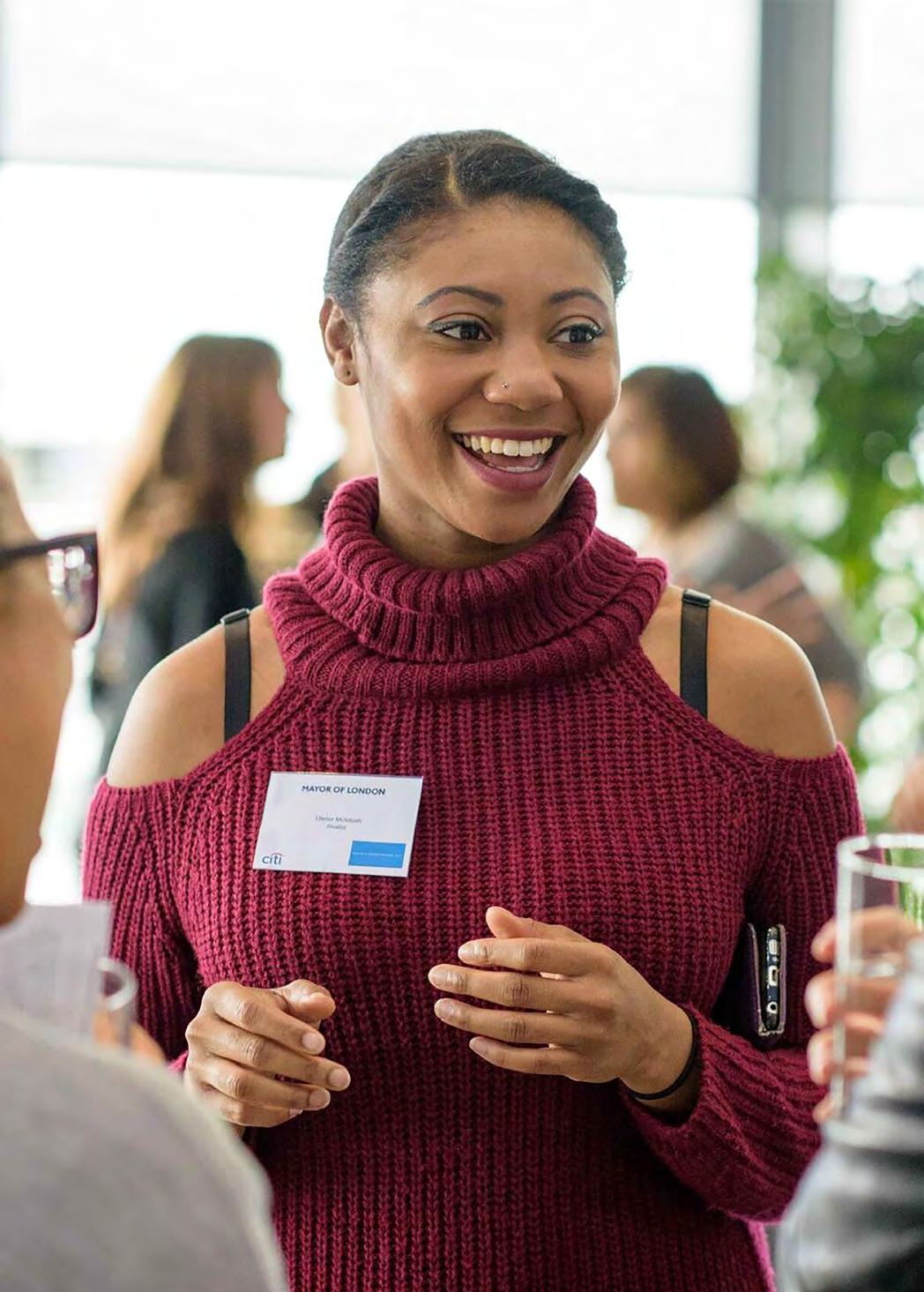
How do you envision Twipes’ impact evolving globally, especially in urban areas facing similar sanitation challenges?
With Twipes’ growing success, if we continue down the trajectory that we’re on, we will become a household name, meaning people no longer have to change their behaviour.
They just need to change their product. With our current product’s features, if we were to capture just 5% of the market, we would be able to reduce blockages by 35%, which is especially important in urban areas.
With antiquated pipe systems and stress on pipes due to overcrowding in larger cities, sanitary products that are good for the environment are imperative to keep urban areas clean and safe for their residents.
Find out more about Twipes and Ellenor’s work at twipes.us - Instagram @ellenorm
152 www.blackbusinessmag.com

The Yes Network
Empowering Young Entrepreneurs in Business in Southend-on-Sea
In the coastal town of Southend-onSea, where opportunities for young entrepreneurs to gather, network, and collaborate have been scarce, Takondwa saw a void that needed filling.
Born and raised in Southend, he recognised the importance of creating a space where aspiring business owners could discuss ideas, share opportunities, and navigate challenges in an increasingly competitive landscape. Thus, the Young Entrepreneurs Southend (YES) Network was born.
As the co-founders of YES Network, Takondwa Maosa and Ben Culett are at the forefront of a movement to empower the next generation of Southend business leaders.
Partnering with local organisations and supported by the Southend City Council, YES Network aims to provide a platform for young entrepreneurs to thrive and succeed in their ventures.
Ben joined the council last year as a Business Navigator in a new role
specifically created to help local businesses grow and succeed. Ben has already led numerous successful projects and is only 21 years old and eager to help drive our economy by encouraging young local people. Takondwa is a cofounder of Divided London streetwear and was previously featured in our first edition of the magazine.
The recent launch event of YES Network at Launchpad Southend saw an impressive turnout of over 40 guests, all eager to expand their networks and enhance their business acumen.
Among the attendees were representatives from Cecil Jones Academy and the University of Essex, demonstrating the widespread appeal and relevance of the YES Network across different educational institutions.
One notable highlight of the event was the presence of local Councillor Darryl Jones, whose support underscores the importance of initiatives like YES Network in fostering economic growth and innovation within the community.
154 www.blackbusinessmag.com
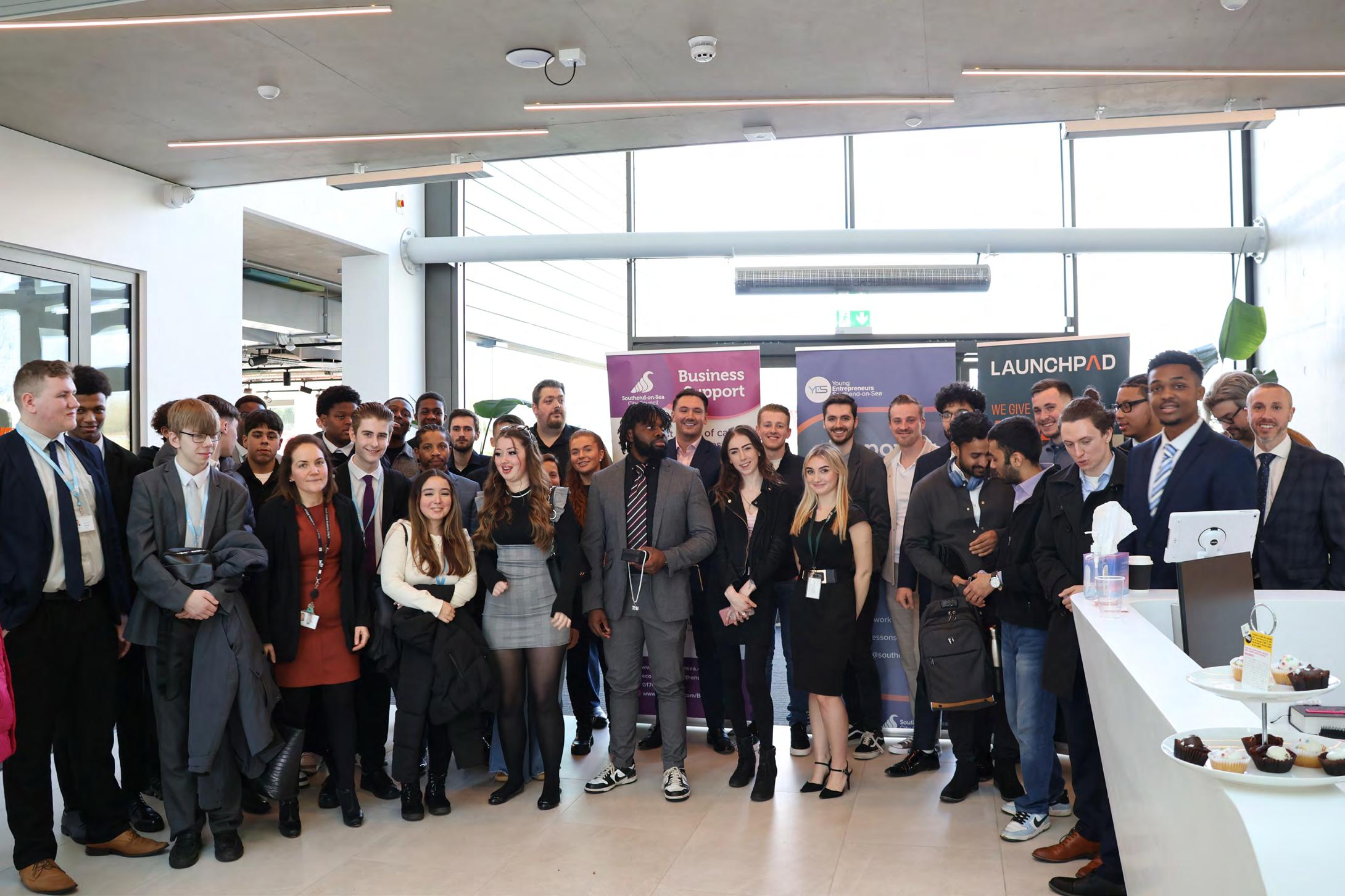
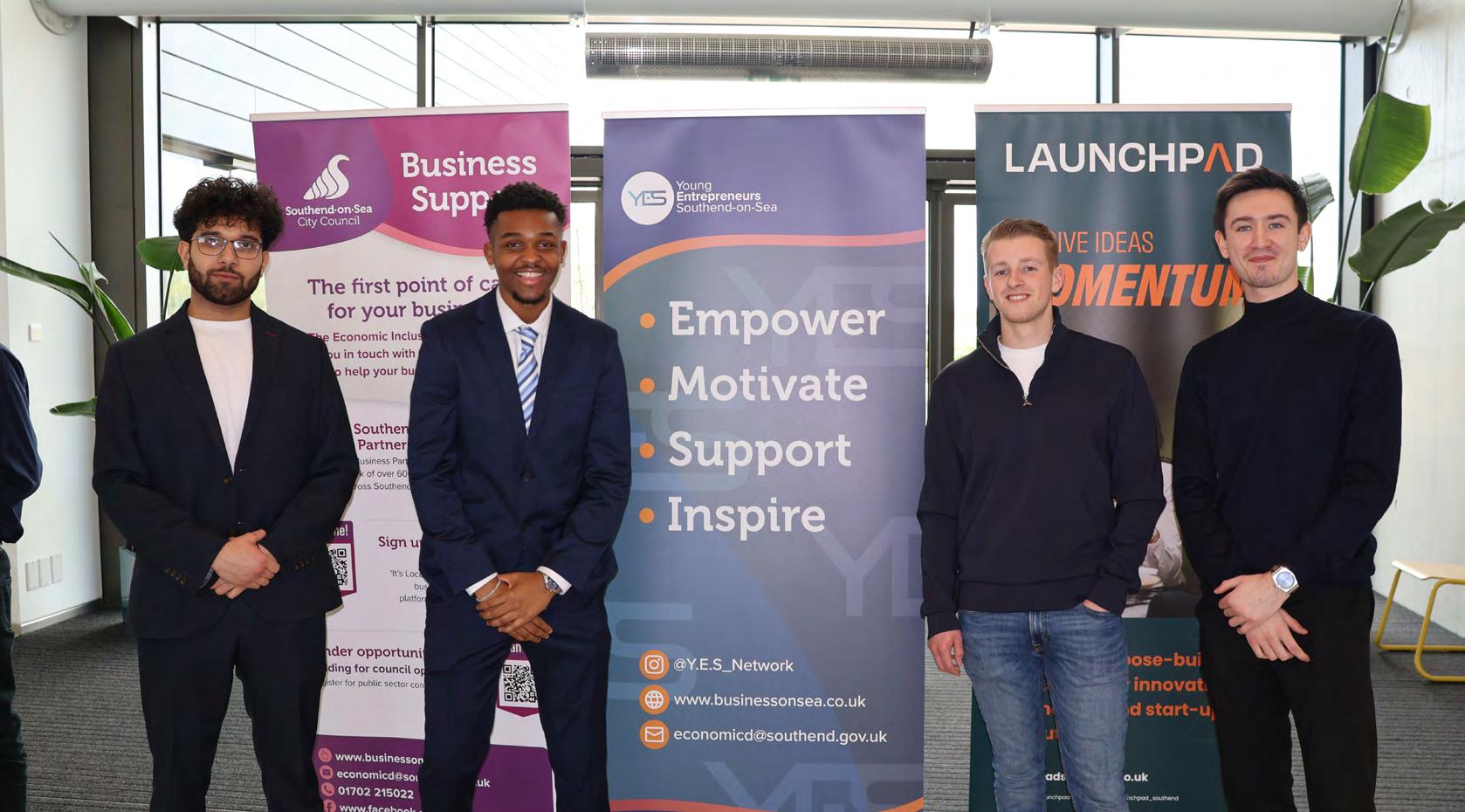
Additionally, the participation of young business owner Alex Chapman from AWC Car Detailing inspired attendees, showcasing the tangible possibilities of entrepreneurship.
With the enthusiastic leadership of cofounder Ben Culett and the community's unwavering support, YES Network is poised for even greater success in the
coming months. With a commitment to nurturing talent, fostering collaboration, and driving positive change, YES Network is set to play a pivotal role in shaping the future of business in Southend and beyond.
Follow the YES Network on Instagram @y.e.s_network
www.blackbusinessmag.com 155
The Impact of Sponsorship and
in Business Empowering Futures
Mentoring
By Karl George MBE
Mentoring is an activity that I have been doing for over three decades. In 1997, I started the first international chapter of 100 Black Men, a mentoring organisation with some 10,000 members at the time. It had 100 chapters, mainly in the United States, reaching 100,000 youth.
I wasn’t yet 30, so I was one of the, if not youngest, Chapter Presidents. I also set up the Institute of Directors Young Directors Forum with other directors to support each other and influence policy.
If I go back even further, I remember setting up Black Link even before I had qualified as an accountant.
Our live chat shows with high-profile hosts would rival the current day chat shows and podcasts. The reason for giving this background is because a philosophy of mine has always been to serve my community, whether in church, business or professionally.
My theme has always been about giving back and supporting people to achieve and realise their potential. Working with those “at risk” to me didn’t necessarily mean at risk of being drawn into becoming a criminal or gang or going down the wrong path - although this was a real concern. “At risk” has meant the risk of not achieving what they could in life.
This could mean pursuing mainstream paths to success like going to university, taking professional qualifications, Master's degrees and doctorates, and going into business sectors that provide an opportunity to scale up. The risk is that you don’t consider something because no one from your family or background has done it. That’s why I want to explain my sponsoring programme.
Being a role model is different from being a mentor, and sponsoring someone has levels of sponsoring
156 www.blackbusinessmag.com
support. Let me start the journey by profiling just four and mentioning a further three of the hundreds of mentees I have supported over the years. Some of whom are now my peers and can support me.
There is Michael, the civil engineer who runs a multi-million-pound engineering/construction business. I got to know this young man at age 13 when I taught him about his selfidentity, personal development and my expectations of him.
I remember critical talks on his journey, such as the importance of getting his head down after his first year at university when he was having too much fun and not doing enough studying.
Later, I would share the power of networking and encourage him to be entrepreneurial.
Duane was an aspiring model and actor. I also met Duane at a school when he was about 15 when he joined our mentoring programme.
I encouraged him to write his 10year business plan, which included leaving Birmingham and some of the influences that could have taken him to prison, like his closest friends.
Eventually, in the same plan, he moved to Hollywood to pursue his acting career, in which he successfully achieved success and still lives there.
Duane had a leading role in NCIS, and the American drama appeared in Captain Marvel and Doctor Who.
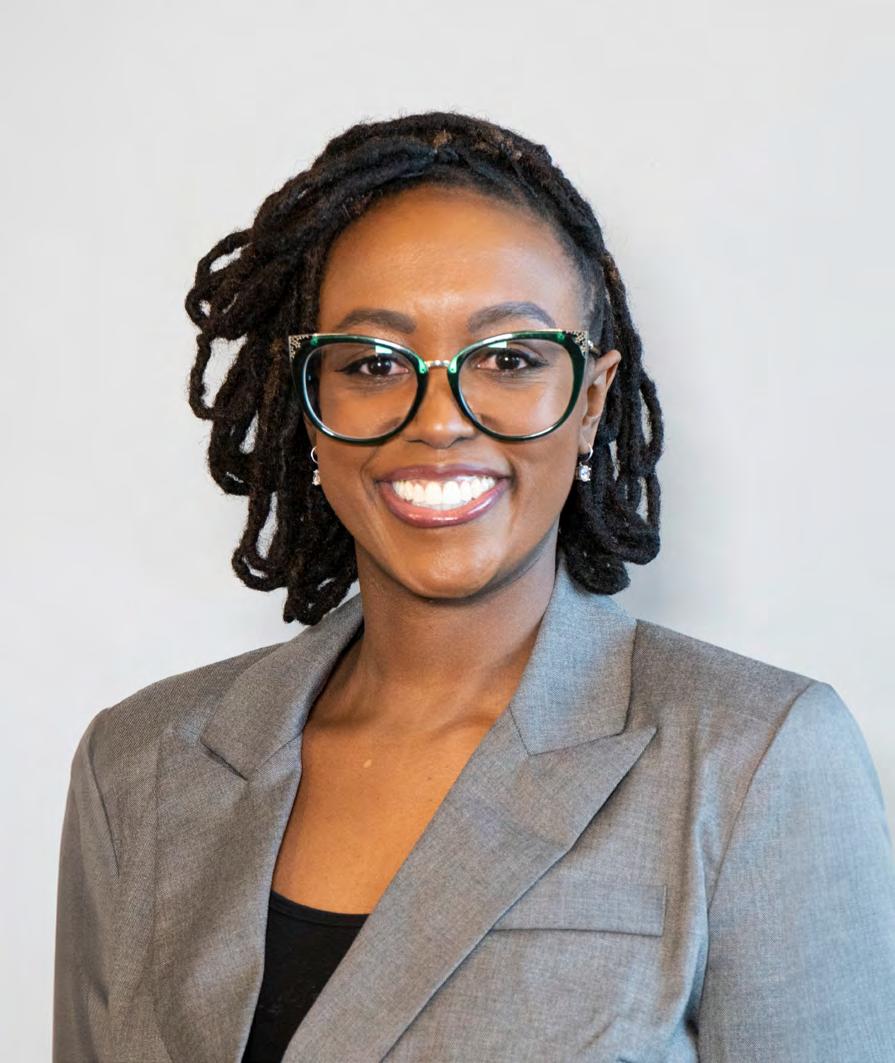
Naomi Mason decided she wanted to be entrepreneurial and set up a hairdressing business. I saw bigger things for her professionally and encouraged her to complete her accountancy professional exams.
Then, she could get a job in a large corporation to have better choices later in life. Naomi listened and has had an international career working in South Africa and Australia, and is now married with two boys and settled in Las Vegas.
Her chartered management accounting professional qualification has been like a passport to getting senior roles throughout her career.
Nathan is the ex-gang member who turned his life around. Nathan said that before he met me as a young adult, he hadn’t met people in the community who were financially successful without some criminal activity involved. Nathan now has a consultancy and community charity,
www.blackbusinessmag.com 157
has raised a family with his wife and business partner, and is an ordained minister in the church.
Joel has also received an OBE for his work nationally in the technology sector. Matthew similarly received an OBE for his work for the government in launching national government initiatives.
Sharon, whom I met when I started my young leaders programme to get these people into leadership positions, is now deputy leader of one the largest local authorities in Europe.
Sponsoring Stepping Stones
I want to share the sponsoring steps I have used with these and countless others. Before you get to the level of being a sponsor, you may be a role model without even knowing it. People aspire to be people with whom they have some commonality. You are sometimes a role model without even knowing it.
A mentor takes more time and commitment. It's a step further than doing a talk or presentation - you are more of a trusted counsellor or advisor.
INTRODUCE
Reveals Opportunities to you
Put opportunity to you
Make you aware of potential opportunity
A sponsor is more than that; it is based on making yourself available, putting in the time, and being open to promoting the person you are sponsoring.
The Sponsor starts off as someone who would introduce their protégé to various networks and opportunities they may not be aware of. The sponsor who has made several introductions will then look to share about the protégé even when they are not there.
The next step is to develop the relationship and trust in the protégé because it is here that the sponsor endorses and provides references.
The cycle isn’t finished here; the last step is where the sponsor makes personal or business commitments in the form of finance, resources or even employment or business contracts.
The Sponsorship steps are described below in the accompanying table, showing the many ways we can sponsor. Not every relationship will lead to the four levels identified, and although they logically work in order, this doesn’t have to be so:
ADVOCATE
Shares your accomplishments within their networks
Cultivates a positive impression for you
Helps develop your brand
PROMOTE
Promotes and endorses you across networks
Links their own endorsement with your brand
Underwriting you and risks their integrity
INVEST
Invests their own resources in your development.
Employ you or commit to your services
Invest in your business or opportunity
Introduce you to new networks
158 www.blackbusinessmag.com
In conclusion, I remember people supporting me in my journey, making introductions for me, patronising my business, and spending money with me.
I had to deliver, which I did, which made it easy for them, but nevertheless, they initially had to take a risk on me. Who will you take a risk on to promote their career?
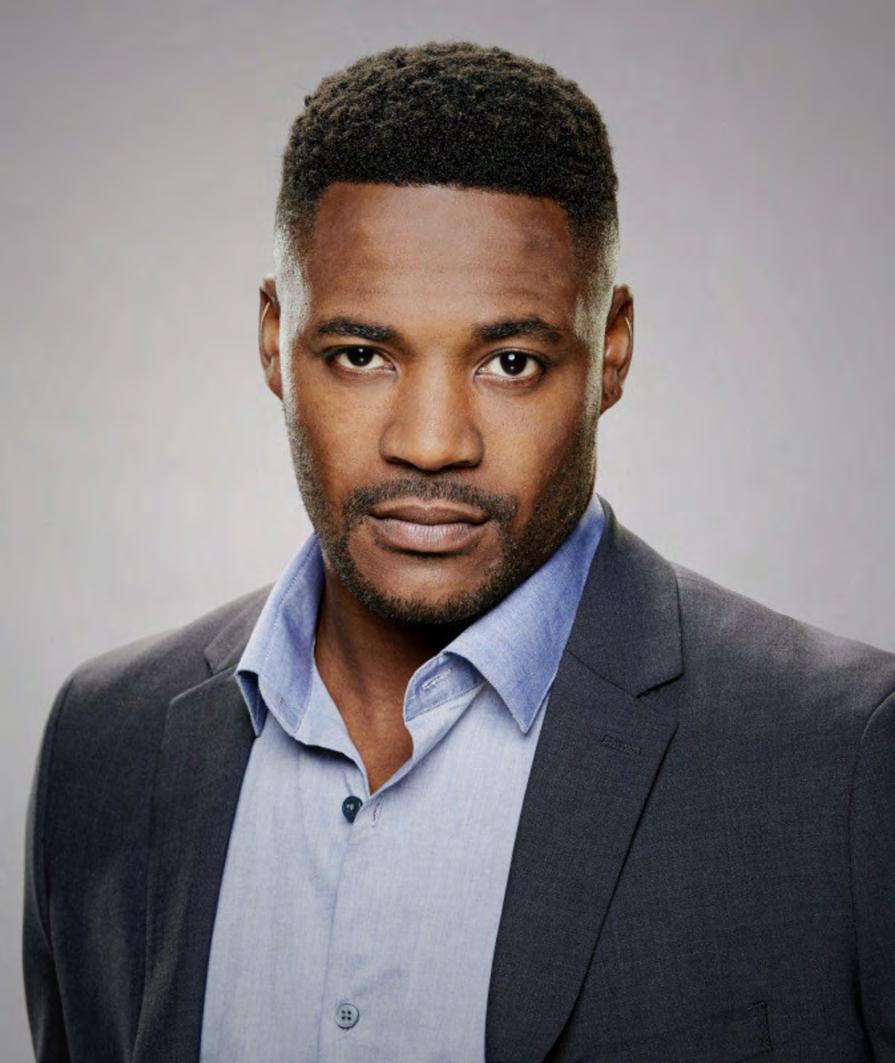
Duane Henry's journey to success is as inspiring as his performances. Residing in California, Born in Handsworth Birmingham, England, his passion for acting ignited at a young age, driving him to pursue his dreams relentlessly.
After honing his skills in local theatre productions, Henry made a breakthrough with his role in "NCIS" as MI6 Officer Clayton Reeves, earning widespread acclaim for his complex character portrayal.
His talents also graced the iconic sci-fi series "Doctor Who," “Captain Marvel” and many other movies showcasing his range and versatility as an actor. Beyond his on-screen achievements, Henry is known for his philanthropic
efforts and advocacy work, using his voice to raise awareness on social issues. With his magnetic presence and unwavering dedication, Duane Henry continues to shine as a beacon of talent and inspiration in the entertainment industry.
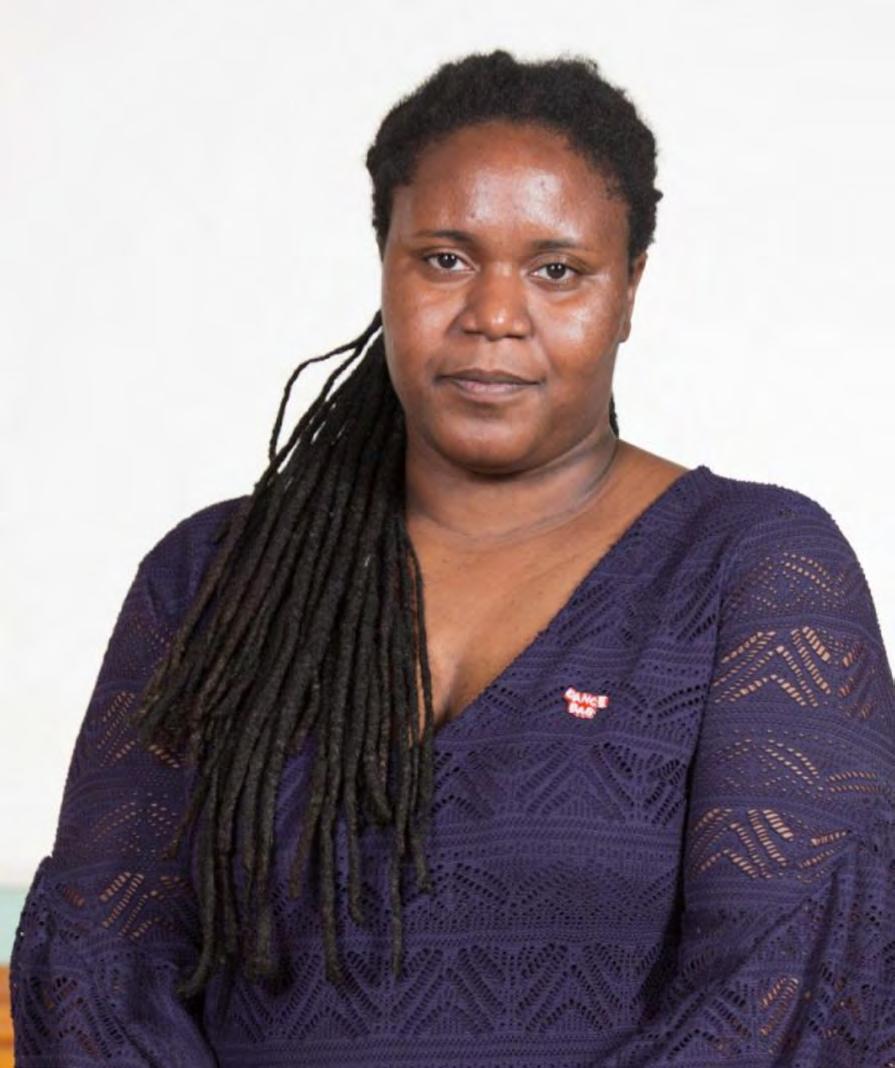
Sharon Thompson has been a Councillor since 2014 and was the Cabinet Member for Housing and Homelessness, responsible for many areas such as housing, the Commonwealth Games, and Sports and Events Development.
In her remit as a Councillor, Sharon has also served on St Basil's board of directors, Southside BID and sat on the Commonwealth Games 2022 Members Advisory Group.
As Deputy Leader of Birmingham City Council since May 2023, Sharon is now responsible for Business Change, Efficiency and Improvement, Risk Management, Customer Services, Emergency Planning, Strategic Partnerships, Levelling Up, Devolution and WMCA, Employment and Skills and Cost of Living.
www.blackbusinessmag.com 159
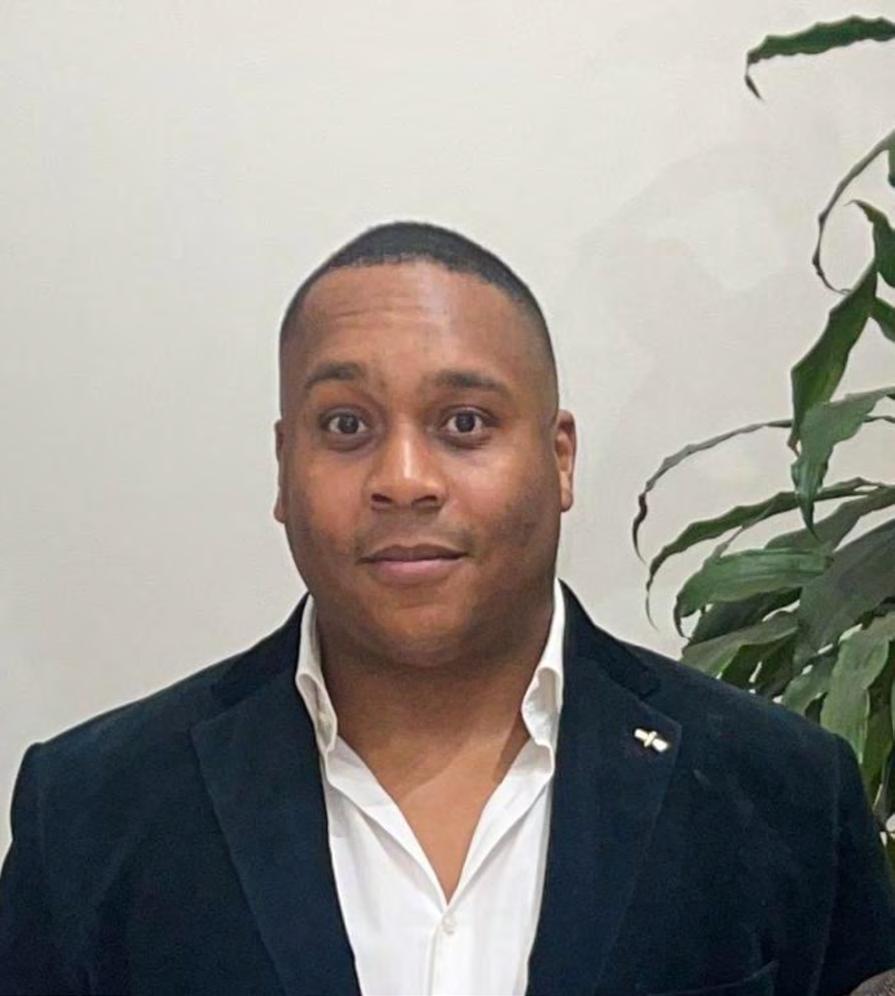
Michael Wedderburn studied for his degree and Master's in Civil Engineering from the University of Birmingham.
He then worked for several tier1 contractors as a civil engineer, progressing through the ranks to become a construction manager, specialising in groundworks and civils, high-rise city centre construction and industrial warehouses.
Michael delivered several multimillion-pound projects ranging from £25m - £100m +. In 2020, Michael went full time into running his own company called Chambers Capital Group, which specialises in civil engineering groundworks, construction and property development.
Chambers Capital Group delivers construction and civil engineering contract works for clients such as the prestigious Spinningfields in Manchester and Sexy Fish, Renewable Energy Civils contracts for the energy BESS sector for clients with project stakeholders such as Ethical Power, Adaptogen and National Grid, and the self-delivery of their own in-house warehouse and housing developments, where they develop their own land and sites.
Chambers capital has seen exceptional growth, growing from circa. £250k turnover to £5m in 3 years under Michael’s leadership.
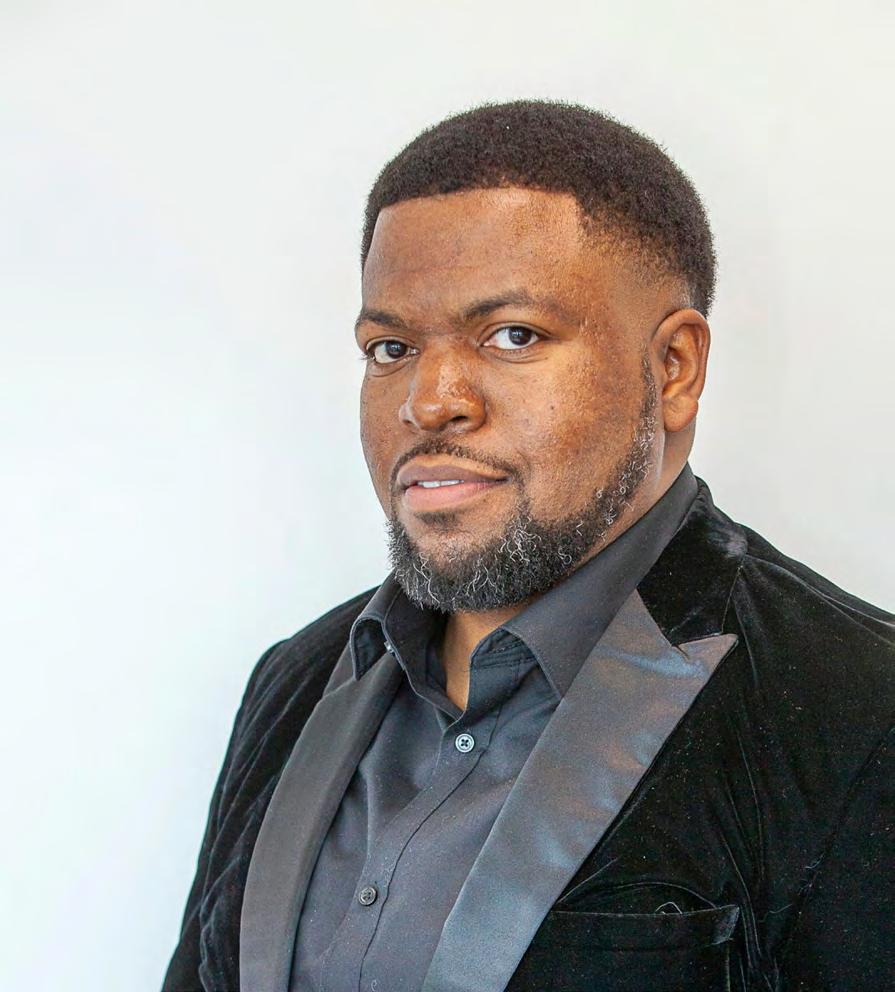
Nathan Dennis is a dynamic leader with a proven track record as an award-winning social entrepreneur, Founder Trustee of the charity First Class Foundation, Owner and Senior Consultant at Legacy Consultants, an established black stakeholder engagement consultancy.
Nathan is building on this work in a corporate environment. His training and consultancy services enable organisations to understand race and racism better while implementing effective strategies to engage with Black communities. His own journey from the streets/gangs and underground activity has meant his personal life transformation and journey that led him to the Christian faith and eventually to the church as a fully ordained Minister and now on many mainstream platforms is inspirational.
First Class Foundation not only feeds the homeless and community but also helps those in need. The charity aims to reduce youth violence, improve mental health resilience and connect young people and their families to their purpose.
160 www.blackbusinessmag.com




































Merlin Entertainments strives to create an inclusive and diverse workplace where people can be themselves, have the same opportunities and thrive together. Because at Merlin, everyone matters!

















LEGO©, the LEGO logo, , the Brick configuration, the Minifigure and LEGOLAND are trademarks of the LEGO® Group © 2021 The LEGO Group. ©2021 DreamWorks Animation LLC. Ultimate Castle Fantastic Escapism OtherworldyAdventure Adrenaline Adventures Interactive Fairytale
WildAdventure
LEGO® Escape
® Fun Scary Fun Panoramic Views
Discoveries Famous Fun A Career
Lifetime
www. MerlinCareers.com
360°viewsofLondon
Ultimate
UltimateLEGO
Amazing
of a
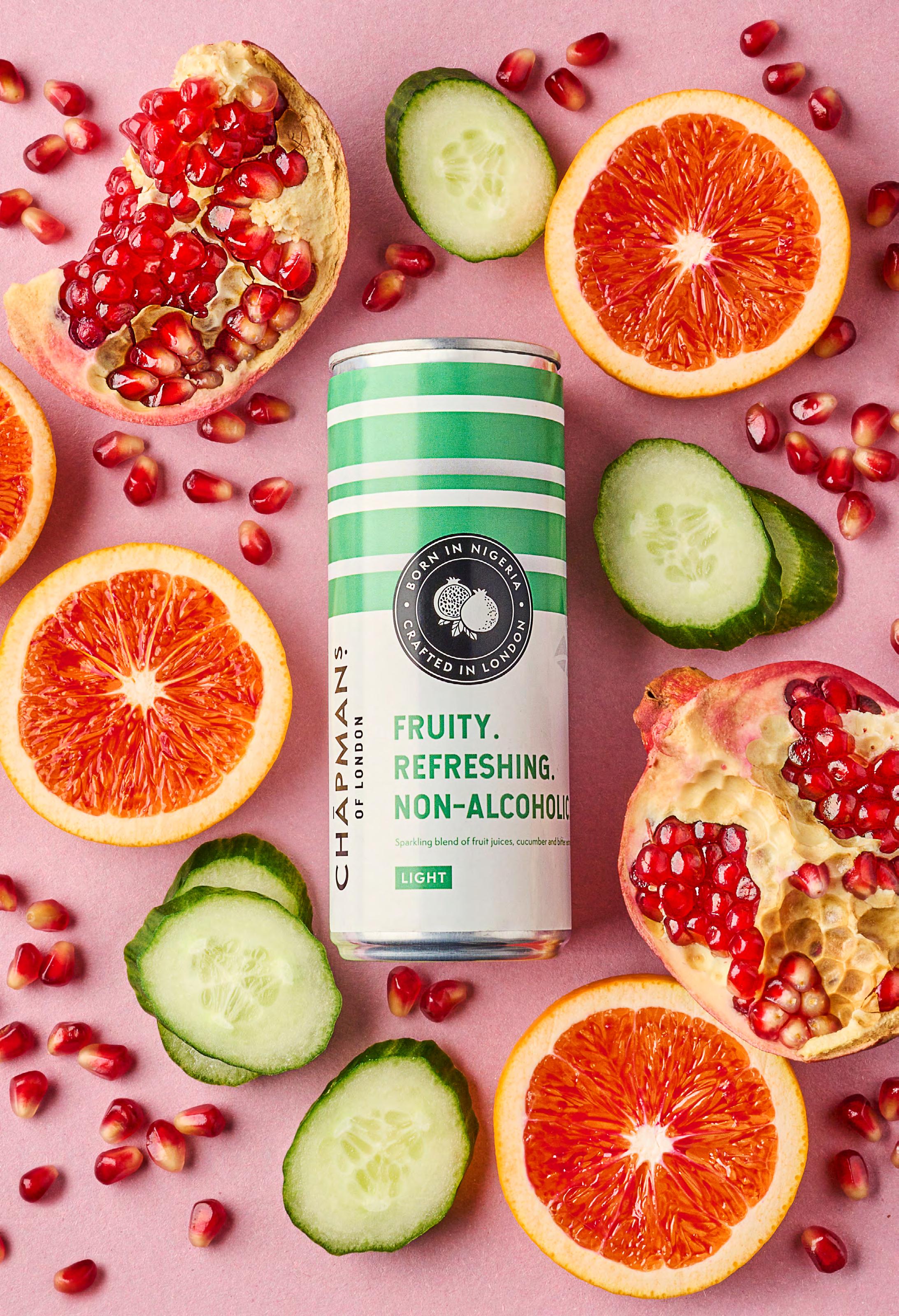
162 www.blackbusinessmag.com
Chapmans of London
Chapmans of London is on a mission to bring Nigeria’s vibrant flavours and culture to the UK.
With the vibrant flavours of blackcurrant, pomegranate, and blood orange with cucumber and bitters, our unique blend ensures an enriching drinking experience.
Launched in 2023 with two flavours, light (low calorie, lower sugar) and original, whether a night out with friends, a family gathering, or just seeking a refreshing experience, Chapmans offers an inclusive option that enriches any occasion.
The brand takes inspiration from the traditional “Chapman,” a beloved and iconic Nigerian drink known for its blend of juices, bitters, and a hint of grenadine. We’ve transformed this classic cocktail into a non-alcoholic masterpiece, bridging the gap between authenticity and modern innovation.
Chapmans of London is more than just a beverage; it celebrates and elevates Nigeria’s rich cultural heritage, energy, and diversity.
The drink can be seen in restaurants, delis, and takeaways across London, Manchester, and
FOR THOSE SEEKING AUTHENTICITY IN EVERY SIP
Chippenham, as well as online marketplaces and on our website.
Everyone is invited to raise their glasses to where taste, culture, and connection come together. Let your taste buds embark on a journey with Chapmans, where every sip tells a story and celebrates the richness of our heritage.

www.blackbusinessmag.com 163
For more information chapmansoflondon.com

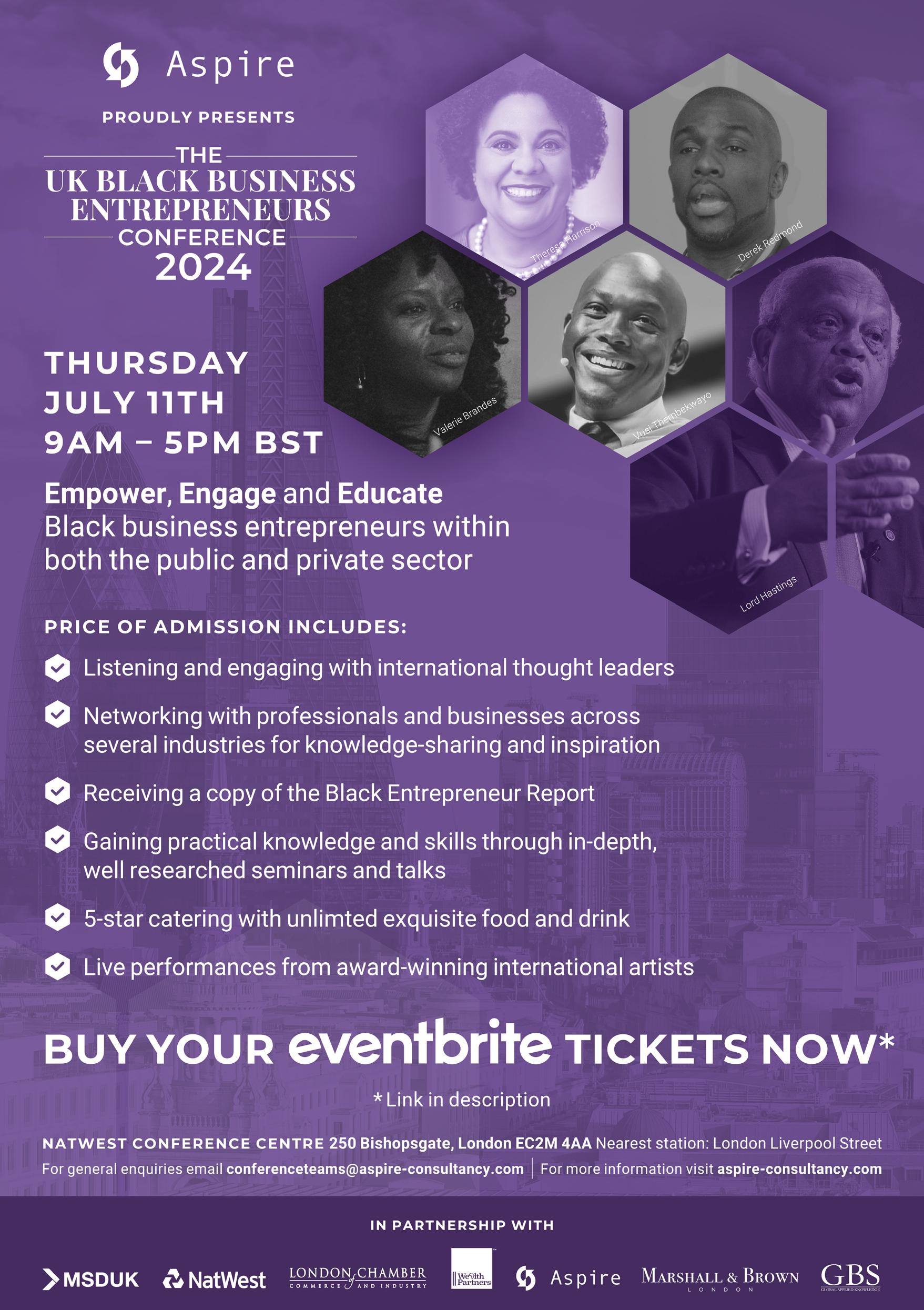



166 www.blackbusinessmag.com Find out more about Foundervine Immerse and other ways Lloyds Bank is supporting Black-owned businesses at: lloydsbank.com/blackbusinesses Empowering diverse founders to build, grow and scale businesses

































































































































































































